Frequent persons on Germany's street signs
countries
1333 names / 91314 streets
Friedrich Schiller
 1989
Johann Christoph Friedrich von Schiller was a German polymath and poet, playwright, historian, philosopher, physician, lawyer. Schiller is considered by most Germans to be Germany's most important...
1989
Johann Christoph Friedrich von Schiller was a German polymath and poet, playwright, historian, philosopher, physician, lawyer. Schiller is considered by most Germans to be Germany's most important...
Johann Sebastian Bach
 1989
Johann Sebastian Bach was a German composer and musician of the late Baroque period. He is known for his prolific authorship of music across a variety of instruments and forms, including; orchestral...
1989
Johann Sebastian Bach was a German composer and musician of the late Baroque period. He is known for his prolific authorship of music across a variety of instruments and forms, including; orchestral...
Johann Wolfgang von Goethe
 1907
Johann Wolfgang von Goethe was a German polymath and writer, who is widely regarded as the greatest and most influential writer in the German language. His work has had a profound and wide-ranging...
1907
Johann Wolfgang von Goethe was a German polymath and writer, who is widely regarded as the greatest and most influential writer in the German language. His work has had a profound and wide-ranging...
Friedrich Ludwig Jahn
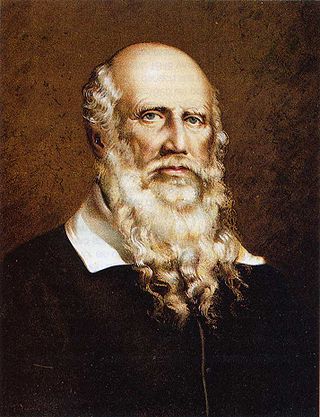 1873
Johann Friedrich Ludwig Christoph Jahn was a German gymnastics educator and nationalist whose writing is credited with the founding of the German gymnastics (Turner) movement as well as influencing...
1873
Johann Friedrich Ludwig Christoph Jahn was a German gymnastics educator and nationalist whose writing is credited with the founding of the German gymnastics (Turner) movement as well as influencing...
Wolfgang Amadeus Mozart
 1349
Wolfgang Amadeus Mozart was a prolific and influential composer of the Classical period. Despite his short life, his rapid pace of composition resulted in more than 800 works representing virtually...
1349
Wolfgang Amadeus Mozart was a prolific and influential composer of the Classical period. Despite his short life, his rapid pace of composition resulted in more than 800 works representing virtually...
Friedrich Wilhelm Raiffeisen
 1259
Friedrich Wilhelm Raiffeisen was a German mayor and cooperative pioneer. Several credit union systems and cooperative banks have been named after Raiffeisen, who pioneered rural credit unions.
1259
Friedrich Wilhelm Raiffeisen was a German mayor and cooperative pioneer. Several credit union systems and cooperative banks have been named after Raiffeisen, who pioneered rural credit unions.
Ludwig van Beethoven
 1193
Ludwig van Beethoven was a German composer and pianist. He is one of the most revered figures in the history of Western music; his works rank among the most performed of the classical music...
1193
Ludwig van Beethoven was a German composer and pianist. He is one of the most revered figures in the history of Western music; his works rank among the most performed of the classical music...
Ludwig Uhland
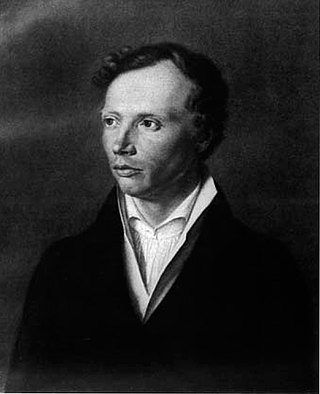 1110
Johann Ludwig Uhland was a German poet, philologist, literary historian, lawyer and politician.
1110
Johann Ludwig Uhland was a German poet, philologist, literary historian, lawyer and politician.
Gotthold Ephraim Lessing
 1048
Gotthold Ephraim Lessing was a German philosopher, dramatist, publicist and art critic, and a representative of the Enlightenment era. His plays and theoretical writings substantially influenced the...
1048
Gotthold Ephraim Lessing was a German philosopher, dramatist, publicist and art critic, and a representative of the Enlightenment era. His plays and theoretical writings substantially influenced the...
Franz Schubert
 944
Franz Peter Schubert was an Austrian composer of the late Classical and early Romantic eras. Despite his short life, Schubert left behind a vast oeuvre, including more than 600 secular vocal works,...
944
Franz Peter Schubert was an Austrian composer of the late Classical and early Romantic eras. Despite his short life, Schubert left behind a vast oeuvre, including more than 600 secular vocal works,...
Joseph Freiherr von Eichendorff
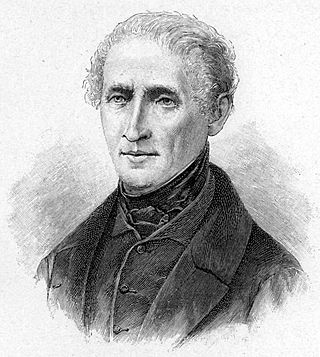 909
Joseph Freiherr von Eichendorff was a German poet, novelist, playwright, literary critic, translator, and anthologist. Eichendorff was one of the major writers and critics of Romanticism. Ever since...
909
Joseph Freiherr von Eichendorff was a German poet, novelist, playwright, literary critic, translator, and anthologist. Eichendorff was one of the major writers and critics of Romanticism. Ever since...
Mary, mother of Jesus
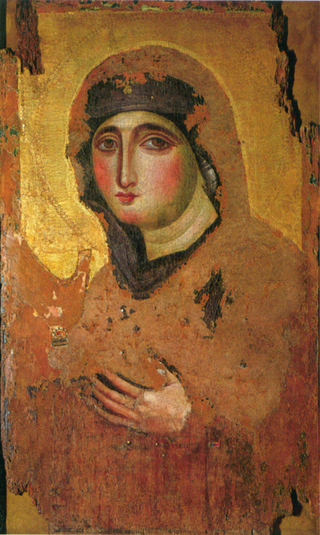 899
Mary was a first-century Jewish woman of Nazareth, the wife of Joseph and the mother of Jesus. She is a central figure of Christianity, venerated under various titles such as virgin or queen, many of...
899
Mary was a first-century Jewish woman of Nazareth, the wife of Joseph and the mother of Jesus. She is a central figure of Christianity, venerated under various titles such as virgin or queen, many of...
Richard Wagner
 883
Wilhelm Richard Wagner was a German composer, theatre director, polemicist, and conductor who is chiefly known for his operas. Unlike most opera composers, Wagner wrote both the libretto and the...
883
Wilhelm Richard Wagner was a German composer, theatre director, polemicist, and conductor who is chiefly known for his operas. Unlike most opera composers, Wagner wrote both the libretto and the...
Heinrich Heine
 874
Christian Johann Heinrich Heine was a German poet, writer and literary critic. He is best known outside Germany for his early lyric poetry, which was set to music in the form of Lieder by composers...
874
Christian Johann Heinrich Heine was a German poet, writer and literary critic. He is best known outside Germany for his early lyric poetry, which was set to music in the form of Lieder by composers...
Hermann Löns
 799
Hermann Löns was a German journalist and writer. He is most famous as "The Poet of the Heath" for his novels and poems celebrating the people and landscape of the North German moors, particularly the...
799
Hermann Löns was a German journalist and writer. He is most famous as "The Poet of the Heath" for his novels and poems celebrating the people and landscape of the North German moors, particularly the...
Adolph Kolping
 740
Adolph Kolping was a German Catholic priest and the founder of the Kolping Association. He led the movement for providing and promoting social support for workers in industrialized cities while also...
740
Adolph Kolping was a German Catholic priest and the founder of the Kolping Association. He led the movement for providing and promoting social support for workers in industrialized cities while also...
Wilhelm II
 737
Wilhelm II was the last German Emperor and King of Prussia from 1888 until his abdication in 1918, which marked the end of the German Empire and the House of Hohenzollern's 300-year reign in Prussia...
737
Wilhelm II was the last German Emperor and King of Prussia from 1888 until his abdication in 1918, which marked the end of the German Empire and the House of Hohenzollern's 300-year reign in Prussia...
Martin Luther
 720
Martin Luther was a German priest, theologian, author, hymnwriter, professor, and Augustinian friar. Luther was the seminal figure of the Protestant Reformation, and his theological beliefs form the...
720
Martin Luther was a German priest, theologian, author, hymnwriter, professor, and Augustinian friar. Luther was the seminal figure of the Protestant Reformation, and his theological beliefs form the...
Rudolf Diesel
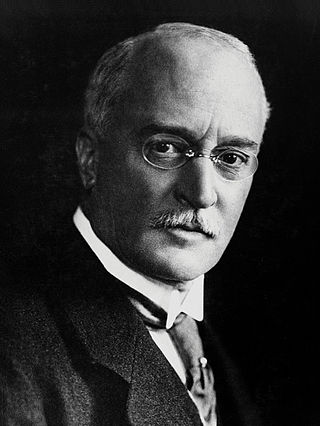 710
Rudolf Christian Karl Diesel was a German inventor and mechanical engineer who is famous for having invented the Diesel engine, which burns Diesel fuel; both are named after him.
710
Rudolf Christian Karl Diesel was a German inventor and mechanical engineer who is famous for having invented the Diesel engine, which burns Diesel fuel; both are named after him.
Immanuel Kant
 670
Immanuel Kant was a German philosopher and one of the central Enlightenment thinkers. Born in Königsberg, Kant's comprehensive and systematic works in epistemology, metaphysics, ethics, and...
670
Immanuel Kant was a German philosopher and one of the central Enlightenment thinkers. Born in Königsberg, Kant's comprehensive and systematic works in epistemology, metaphysics, ethics, and...
Joseph Haydn
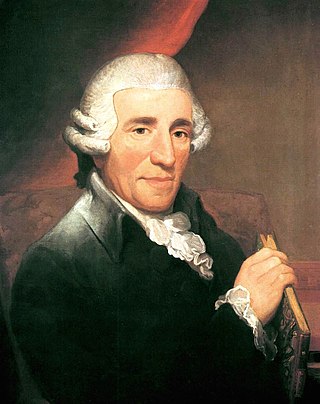 661
Franz Joseph Haydn was an Austrian composer of the Classical period. He was instrumental in the development of chamber music such as the string quartet and piano trio. His contributions to musical...
661
Franz Joseph Haydn was an Austrian composer of the Classical period. He was instrumental in the development of chamber music such as the string quartet and piano trio. His contributions to musical...
Werner von Siemens
 658
Ernst Werner Siemens was a German electrical engineer, inventor and industrialist. Siemens's name has been adopted as the SI unit of electrical conductance, the siemens. He founded the electrical and...
658
Ernst Werner Siemens was a German electrical engineer, inventor and industrialist. Siemens's name has been adopted as the SI unit of electrical conductance, the siemens. He founded the electrical and...
Eduard Mörike
 658
Eduard Friedrich Mörike was a German Lutheran pastor who was also a Romantic poet and writer of novellas and novels. Many of his poems were set to music and became established folk songs, while...
658
Eduard Friedrich Mörike was a German Lutheran pastor who was also a Romantic poet and writer of novellas and novels. Many of his poems were set to music and became established folk songs, while...
Heinrich von Brühl
 647
Heinrich, Count von Brühl, was a Polish-Saxon statesman at the court of Saxony and the Polish–Lithuanian Commonwealth and a member of the powerful German von Brühl family. The incumbency of this...
647
Heinrich, Count von Brühl, was a Polish-Saxon statesman at the court of Saxony and the Polish–Lithuanian Commonwealth and a member of the powerful German von Brühl family. The incumbency of this...
Johann Heinrich Pestalozzi
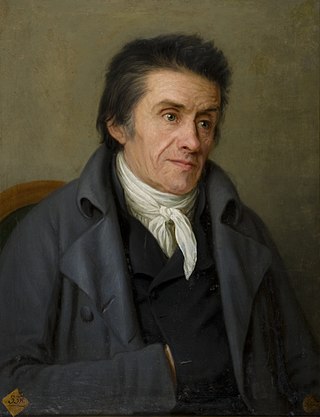 645
Johann Heinrich Pestalozzi was a Swiss pedagogue and educational reformer who exemplified Romanticism in his approach.
645
Johann Heinrich Pestalozzi was a Swiss pedagogue and educational reformer who exemplified Romanticism in his approach.
Friedrich Ebert
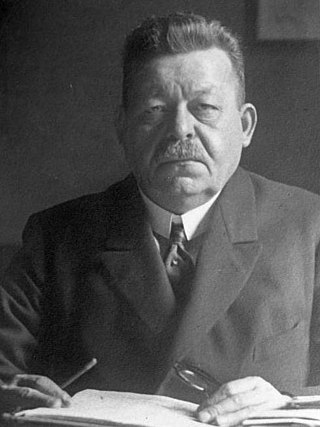 644
Friedrich Ebert was a German politician of the Social Democratic Party of Germany (SPD) and the first president of Germany from 1919 until his death in office in 1925.
644
Friedrich Ebert was a German politician of the Social Democratic Party of Germany (SPD) and the first president of Germany from 1919 until his death in office in 1925.
Robert Koch
 608
Heinrich Hermann Robert Koch was a German physician and microbiologist. As the discoverer of the specific causative agents of deadly infectious diseases including tuberculosis, cholera and anthrax,...
608
Heinrich Hermann Robert Koch was a German physician and microbiologist. As the discoverer of the specific causative agents of deadly infectious diseases including tuberculosis, cholera and anthrax,...
Friedrich Hölderlin
 597
Johann Christian Friedrich Hölderlin was a German poet and philosopher. Described by Norbert von Hellingrath as "the most German of Germans", Hölderlin was a key figure of German Romanticism....
597
Johann Christian Friedrich Hölderlin was a German poet and philosopher. Described by Norbert von Hellingrath as "the most German of Germans", Hölderlin was a key figure of German Romanticism....
Gottlieb Daimler
 590
Gottlieb Wilhelm Daimler was a German engineer, industrial designer and industrialist born in Schorndorf, in what is now Germany. He was a pioneer of internal-combustion engines and automobile...
590
Gottlieb Wilhelm Daimler was a German engineer, industrial designer and industrialist born in Schorndorf, in what is now Germany. He was a pioneer of internal-combustion engines and automobile...
Johannes Gutenberg
 587
Johannes Gensfleisch zur Laden zum Gutenberg was a German inventor and craftsman who introduced letterpress printing to Europe with his movable-type printing press. Though movable type was already in...
587
Johannes Gensfleisch zur Laden zum Gutenberg was a German inventor and craftsman who introduced letterpress printing to Europe with his movable-type printing press. Though movable type was already in...
Robert Bosch
 583
Robert Bosch was a German industrialist, engineer and inventor, founder of Robert Bosch GmbH.
583
Robert Bosch was a German industrialist, engineer and inventor, founder of Robert Bosch GmbH.
Albert Schweitzer
 583
Ludwig Philipp Albert Schweitzer was an Alsatian polymath. He was a theologian, organist, musicologist, writer, humanitarian, philosopher, and physician. A Lutheran minister, Schweitzer challenged...
583
Ludwig Philipp Albert Schweitzer was an Alsatian polymath. He was a theologian, organist, musicologist, writer, humanitarian, philosopher, and physician. A Lutheran minister, Schweitzer challenged...
Ferdinand von Zeppelin
 571
Count Ferdinand von Zeppelin was a German general and later inventor of the Zeppelin rigid airships. His name became synonymous with airships and dominated long-distance flight until the 1930s. He...
571
Count Ferdinand von Zeppelin was a German general and later inventor of the Zeppelin rigid airships. His name became synonymous with airships and dominated long-distance flight until the 1930s. He...
Johannes Brahms
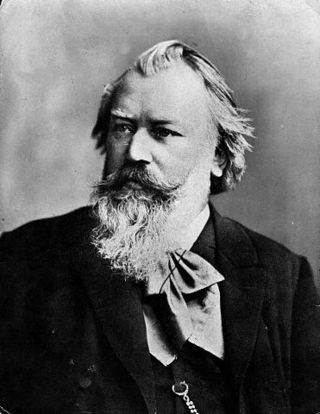 546
Johannes Brahms was a German composer, pianist, and conductor of the mid-Romantic period. Born in Hamburg into a Lutheran family, he spent much of his professional life in Vienna. He is sometimes...
546
Johannes Brahms was a German composer, pianist, and conductor of the mid-Romantic period. Born in Hamburg into a Lutheran family, he spent much of his professional life in Vienna. He is sometimes...
Gerhart Hauptmann
 542
Gerhart Johann Robert Hauptmann was a German dramatist and novelist. He is counted among the most important promoters of literary naturalism, though he integrated other styles into his work as well....
542
Gerhart Johann Robert Hauptmann was a German dramatist and novelist. He is counted among the most important promoters of literary naturalism, though he integrated other styles into his work as well....
August Bebel
 525
Ferdinand August Bebel was a German socialist politician, writer, and orator. He is best remembered as one of the founders of the Social Democratic Workers' Party of Germany (SDAP) in 1869, which in...
525
Ferdinand August Bebel was a German socialist politician, writer, and orator. He is best remembered as one of the founders of the Social Democratic Workers' Party of Germany (SDAP) in 1869, which in...
Hans and Sophie Scholl
 512
Hans and Sophie Scholl, often referred to in German as die Geschwister Scholl, were a brother and sister who were members of the White Rose, a student group in Munich that was active in the...
512
Hans and Sophie Scholl, often referred to in German as die Geschwister Scholl, were a brother and sister who were members of the White Rose, a student group in Munich that was active in the...
Friedrich Silcher
 503
Philipp Friedrich Silcher, was a German composer, mainly known for his lieder (songs), and an important Volkslied collector.
503
Philipp Friedrich Silcher, was a German composer, mainly known for his lieder (songs), and an important Volkslied collector.
Otto von Bismarck
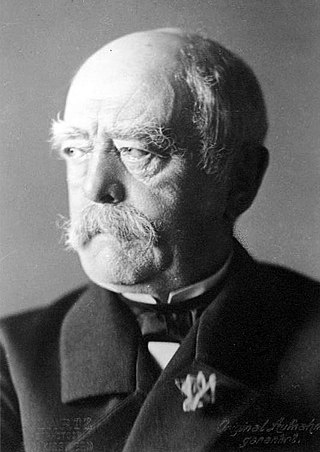 497
Otto, Prince of Bismarck, Count of Bismarck-Schönhausen, Duke of Lauenburg was a Prussian and later German statesman and diplomat. Bismarck's Realpolitik and powerful rule led to him being called the...
497
Otto, Prince of Bismarck, Count of Bismarck-Schönhausen, Duke of Lauenburg was a Prussian and later German statesman and diplomat. Bismarck's Realpolitik and powerful rule led to him being called the...
Max Weber
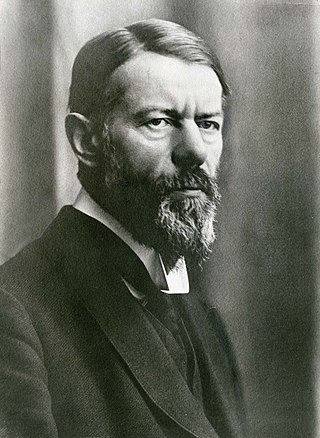 490
Maximilian Karl Emil Weber was a German sociologist, historian, jurist, and political economist who was one of the central figures in the development of sociology and the social sciences more...
490
Maximilian Karl Emil Weber was a German sociologist, historian, jurist, and political economist who was one of the central figures in the development of sociology and the social sciences more...
Hubertus
 486
Hubertus or Hubert was a Christian saint who became the first bishop of Liège in 708 A.D. He is the patron saint of hunters, mathematicians, opticians and metalworkers. Known as the "Apostle of the...
486
Hubertus or Hubert was a Christian saint who became the first bishop of Liège in 708 A.D. He is the patron saint of hunters, mathematicians, opticians and metalworkers. Known as the "Apostle of the...
Max Bruch
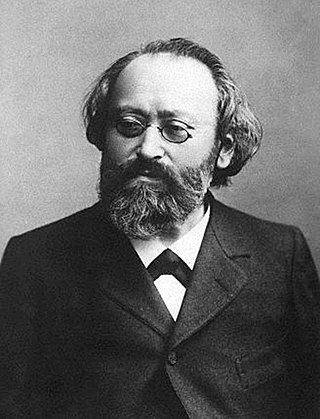 484
Max Bruch was a German Romantic composer, violinist, teacher, and conductor who wrote more than 200 works, including three violin concertos, the first of which has become a staple of the violin...
484
Max Bruch was a German Romantic composer, violinist, teacher, and conductor who wrote more than 200 works, including three violin concertos, the first of which has become a staple of the violin...
George Frideric Handel
 478
George Frideric Handel was a German-British Baroque composer well known for his operas, oratorios, anthems, concerti grossi, and organ concertos. Handel received his training in Halle and worked as a...
478
George Frideric Handel was a German-British Baroque composer well known for his operas, oratorios, anthems, concerti grossi, and organ concertos. Handel received his training in Halle and worked as a...
Albrecht Dürer
 468
Albrecht Dürer, sometimes spelled in English as Durer, was a German painter, printmaker, and theorist of the German Renaissance. Born in Nuremberg, Dürer established his reputation and influence...
468
Albrecht Dürer, sometimes spelled in English as Durer, was a German painter, printmaker, and theorist of the German Renaissance. Born in Nuremberg, Dürer established his reputation and influence...
Carl Benz
 459
Carl Friedrich Benz was a German engine designer and automotive engineer. His Benz Patent Motorcar from 1885 is considered the first practical modern automobile and first car put into series...
459
Carl Friedrich Benz was a German engine designer and automotive engineer. His Benz Patent Motorcar from 1885 is considered the first practical modern automobile and first car put into series...
Ludwig II of Bavaria
 448
Ludwig II, also called the Swan King or the Fairy Tale King, was King of Bavaria from 1864 until his death in 1886. He also held the titles of Count Palatine of the Rhine, Duke of Bavaria, Duke of...
448
Ludwig II, also called the Swan King or the Fairy Tale King, was King of Bavaria from 1864 until his death in 1886. He also held the titles of Count Palatine of the Rhine, Duke of Bavaria, Duke of...
Max Planck
 444
Max Karl Ernst Ludwig Planck was a German theoretical physicist whose discovery of energy quanta won him the Nobel Prize in Physics in 1918.
444
Max Karl Ernst Ludwig Planck was a German theoretical physicist whose discovery of energy quanta won him the Nobel Prize in Physics in 1918.
Heinrich von Kleist
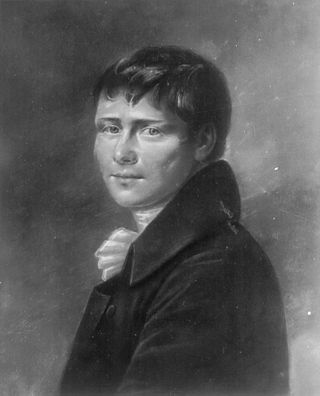 442
Bernd Heinrich Wilhelm von Kleist was a German poet, dramatist, novelist, short story writer and journalist. His best known works are the theatre plays Das Käthchen von Heilbronn, The Broken Jug,...
442
Bernd Heinrich Wilhelm von Kleist was a German poet, dramatist, novelist, short story writer and journalist. His best known works are the theatre plays Das Käthchen von Heilbronn, The Broken Jug,...
Saint George
 437
Saint George, also George of Lydda, was an early Christian martyr who is venerated as a saint in Christianity. According to tradition, he was a soldier in the Roman army. Of Cappadocian Greek origin,...
437
Saint George, also George of Lydda, was an early Christian martyr who is venerated as a saint in Christianity. According to tradition, he was a soldier in the Roman army. Of Cappadocian Greek origin,...
Wilhelm Röntgen
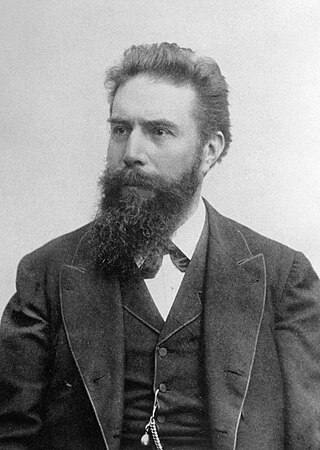 437
Wilhelm Conrad Röntgen was a German mechanical engineer and physicist, who, on 8 November 1895, produced and detected electromagnetic radiation in a wavelength range known as X-rays or Röntgen rays,...
437
Wilhelm Conrad Röntgen was a German mechanical engineer and physicist, who, on 8 November 1895, produced and detected electromagnetic radiation in a wavelength range known as X-rays or Röntgen rays,...
Eugen Fischer
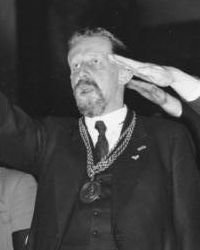 435
Eugen Fischer was a German professor of medicine, anthropology, and eugenics, and a member of the Nazi Party. He served as director of the Kaiser Wilhelm Institute of Anthropology, Human Heredity,...
435
Eugen Fischer was a German professor of medicine, anthropology, and eugenics, and a member of the Nazi Party. He served as director of the Kaiser Wilhelm Institute of Anthropology, Human Heredity,...
Theodor Storm
 431
Hans Theodor Woldsen Storm, commonly known as Theodor Storm, was a German-Frisian writer and poet. He is considered to be one of the most important figures of German realism.
431
Hans Theodor Woldsen Storm, commonly known as Theodor Storm, was a German-Frisian writer and poet. He is considered to be one of the most important figures of German realism.
Albert Einstein
 421
Albert Einstein was a German-born theoretical physicist who is widely held to be one of the greatest and most influential scientists of all time. Best known for developing the theory of relativity,...
421
Albert Einstein was a German-born theoretical physicist who is widely held to be one of the greatest and most influential scientists of all time. Best known for developing the theory of relativity,...
Alexander von Humboldt
 410
Friedrich Wilhelm Heinrich Alexander von Humboldt was a German polymath, geographer, naturalist, explorer, and proponent of Romantic philosophy and science. He was the younger brother of the Prussian...
410
Friedrich Wilhelm Heinrich Alexander von Humboldt was a German polymath, geographer, naturalist, explorer, and proponent of Romantic philosophy and science. He was the younger brother of the Prussian...
Johann Gottfried Herder
 409
Johann Gottfried von Herder was a German philosopher, theologian, poet, and literary critic. He is associated with the Enlightenment, Sturm und Drang, and Weimar Classicism. He was a Romantic...
409
Johann Gottfried von Herder was a German philosopher, theologian, poet, and literary critic. He is associated with the Enlightenment, Sturm und Drang, and Weimar Classicism. He was a Romantic...
Konrad Adenauer
 407
Konrad Hermann Joseph Adenauer was a German statesman who served as the first chancellor of the Federal Republic of Germany from 1949 to 1963. From 1946 to 1966, he was the first leader of the...
407
Konrad Hermann Joseph Adenauer was a German statesman who served as the first chancellor of the Federal Republic of Germany from 1949 to 1963. From 1946 to 1966, he was the first leader of the...
Fritz Reuter
 407
Fritz Reuter was a novelist from Northern Germany who was a prominent contributor to Low German literature.
407
Fritz Reuter was a novelist from Northern Germany who was a prominent contributor to Low German literature.
Otto Hahn
 406
Otto Hahn was a German chemist who was a pioneer in the fields of radioactivity and radiochemistry. He is referred to as the father of nuclear chemistry and father of nuclear fission. Hahn and Lise...
406
Otto Hahn was a German chemist who was a pioneer in the fields of radioactivity and radiochemistry. He is referred to as the father of nuclear chemistry and father of nuclear fission. Hahn and Lise...
Theodor Heuss
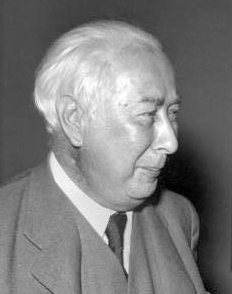 405
Theodor Heuss was a German liberal politician who served as the first president of West Germany from 1949 to 1959. His cordial nature – something of a contrast to the stern character of chancellor...
405
Theodor Heuss was a German liberal politician who served as the first president of West Germany from 1949 to 1959. His cordial nature – something of a contrast to the stern character of chancellor...
Justus von Liebig
 396
Justus Freiherr von Liebig was a German scientist who made major contributions to agricultural and biological chemistry, and is considered one of the principal founders of organic chemistry. As a...
396
Justus Freiherr von Liebig was a German scientist who made major contributions to agricultural and biological chemistry, and is considered one of the principal founders of organic chemistry. As a...
Anton Bruckner
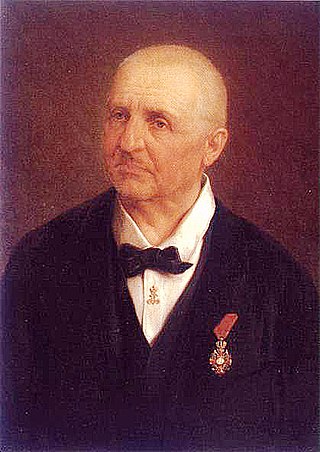 392
Josef Anton Bruckner was an Austrian composer and organist best known for his symphonies and sacred music, which includes Masses, Te Deum and motets. The symphonies are considered emblematic of the...
392
Josef Anton Bruckner was an Austrian composer and organist best known for his symphonies and sacred music, which includes Masses, Te Deum and motets. The symphonies are considered emblematic of the...
Alfred Adler
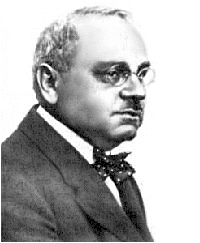 391
Alfred Adler was an Austrian medical doctor, psychotherapist, and founder of the school of individual psychology. His emphasis on the importance of feelings of belonging, relationships within the...
391
Alfred Adler was an Austrian medical doctor, psychotherapist, and founder of the school of individual psychology. His emphasis on the importance of feelings of belonging, relationships within the...
Karl Marx
 379
Karl Marx was a German-born philosopher, economist, political theorist, historian, sociologist, journalist, and revolutionary socialist. His best-known works are the 1848 pamphlet The Communist...
379
Karl Marx was a German-born philosopher, economist, political theorist, historian, sociologist, journalist, and revolutionary socialist. His best-known works are the 1848 pamphlet The Communist...
Theodor Fontane
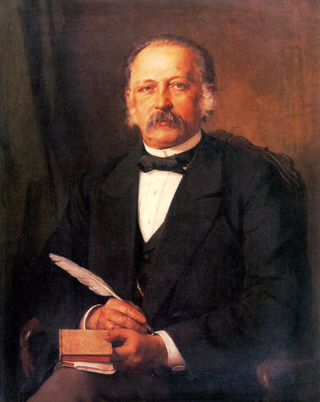 372
Theodor Fontane was a German novelist and poet, regarded by many as the most important 19th-century German-language realist author. Fontane is known as a writer of realism, not only because he was...
372
Theodor Fontane was a German novelist and poet, regarded by many as the most important 19th-century German-language realist author. Fontane is known as a writer of realism, not only because he was...
Wilhelm Busch
 354
Heinrich Christian Wilhelm Busch was a German humorist, poet, illustrator, and painter. He published wildly innovative illustrated tales that remain influential to this day.
354
Heinrich Christian Wilhelm Busch was a German humorist, poet, illustrator, and painter. He published wildly innovative illustrated tales that remain influential to this day.
Gottfried Keller
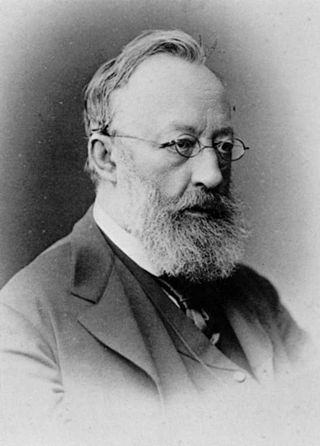 348
Gottfried Keller was a Swiss poet and writer of German literature. Best known for his novel Green Henry and his cycle of novellas called Seldwyla Folks, he became one of the most popular narrators of...
348
Gottfried Keller was a Swiss poet and writer of German literature. Best known for his novel Green Henry and his cycle of novellas called Seldwyla Folks, he became one of the most popular narrators of...
Heinrich Gerber (civil engineer)
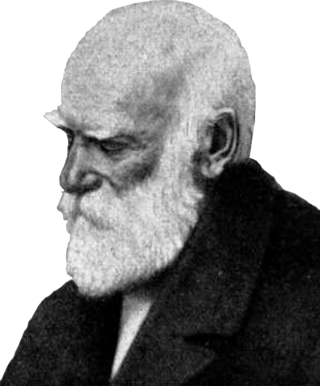 342
Heinrich Gerber was a German civil engineer and inventor of the Gerber girder. He received several patents for his systems for building bridges.
342
Heinrich Gerber was a German civil engineer and inventor of the Gerber girder. He received several patents for his systems for building bridges.
Käthe Kollwitz
 342
Käthe Kollwitz was a German artist who worked with painting, printmaking and sculpture. Her most famous art cycles, including The Weavers and The Peasant War, depict the effects of poverty, hunger...
342
Käthe Kollwitz was a German artist who worked with painting, printmaking and sculpture. Her most famous art cycles, including The Weavers and The Peasant War, depict the effects of poverty, hunger...
Wilhelm Hauff
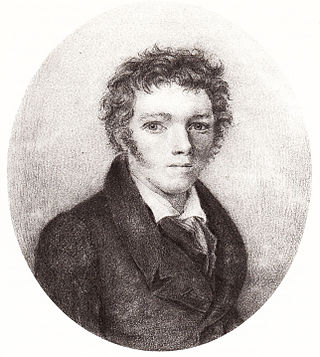 342
Wilhelm Hauff was a German poet and novelist.
342
Wilhelm Hauff was a German poet and novelist.
Rudolf Breitscheid
 337
Rudolf Breitscheid was a German politician and leading member of the Social Democratic Party of Germany (SPD) during the Weimar Republic. Once leader of the liberal Democratic Union, he joined the...
337
Rudolf Breitscheid was a German politician and leading member of the Social Democratic Party of Germany (SPD) during the Weimar Republic. Once leader of the liberal Democratic Union, he joined the...
Paul von Hindenburg
 332
Paul Ludwig Hans Anton von Beneckendorff und von Hindenburg was a German field marshal and statesman who led the Imperial German Army during World War I. He later became president of Germany from...
332
Paul Ludwig Hans Anton von Beneckendorff und von Hindenburg was a German field marshal and statesman who led the Imperial German Army during World War I. He later became president of Germany from...
Ernst Thälmann
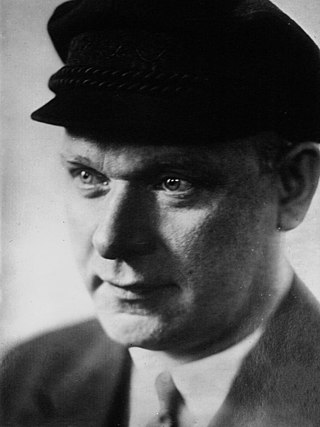 328
Ernst Johannes Fritz Thälmann was a German communist politician, and leader of the Communist Party of Germany (KPD) from 1925 to 1933.
328
Ernst Johannes Fritz Thälmann was a German communist politician, and leader of the Communist Party of Germany (KPD) from 1925 to 1933.
Adalbert Stifter
 325
Adalbert Stifter was an Bohemian-Austrian writer, poet, painter, and pedagogue. He was notable for the vivid natural landscapes depicted in his writing and has long been popular in the...
325
Adalbert Stifter was an Bohemian-Austrian writer, poet, painter, and pedagogue. He was notable for the vivid natural landscapes depicted in his writing and has long been popular in the...
Friedrich Fröbel
 324
Friedrich Wilhelm August Fröbel or Froebel was a German pedagogue, a student of Johann Heinrich Pestalozzi, who laid the foundation for modern education based on the recognition that children have...
324
Friedrich Wilhelm August Fröbel or Froebel was a German pedagogue, a student of Johann Heinrich Pestalozzi, who laid the foundation for modern education based on the recognition that children have...
Adolphus Busch
 324
Adolphus Busch was the German-born co-founder of Anheuser-Busch with his father-in-law, Eberhard Anheuser. He introduced numerous innovations, building the success of the company in the late 19th and...
324
Adolphus Busch was the German-born co-founder of Anheuser-Busch with his father-in-law, Eberhard Anheuser. He introduced numerous innovations, building the success of the company in the late 19th and...
Albert Lortzing
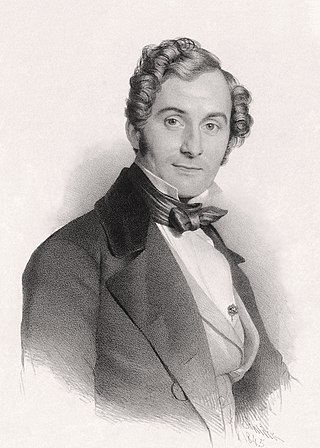 317
Gustav Albert Lortzing was a German composer, librettist, actor and singer. He is considered to be the main representative of the German Spieloper, a form similar to the French opéra comique, which...
317
Gustav Albert Lortzing was a German composer, librettist, actor and singer. He is considered to be the main representative of the German Spieloper, a form similar to the French opéra comique, which...
Johannes Kepler
 315
Johannes Kepler was a German astronomer, mathematician, astrologer, natural philosopher and writer on music. He is a key figure in the 17th-century Scientific Revolution, best known for his laws of...
315
Johannes Kepler was a German astronomer, mathematician, astrologer, natural philosopher and writer on music. He is a key figure in the 17th-century Scientific Revolution, best known for his laws of...
Heinrich Friedrich Karl vom und zum Stein
 305
Heinrich Friedrich Karl vom und zum Stein, commonly known as Baron vom Stein, was a Prussian statesman who introduced the Prussian reforms, which paved the way for the unification of Germany. He...
305
Heinrich Friedrich Karl vom und zum Stein, commonly known as Baron vom Stein, was a Prussian statesman who introduced the Prussian reforms, which paved the way for the unification of Germany. He...
Ernst Moritz Arndt
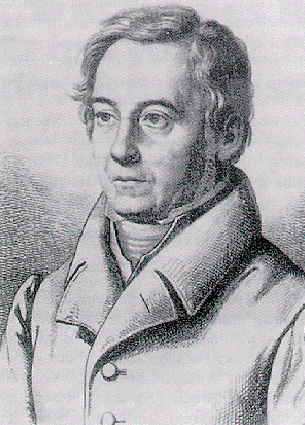 303
Ernst Moritz Arndt was a German nationalist historian, writer and poet. Early in his life, he fought for the abolition of serfdom, later against Napoleonic dominance over Germany. Arndt had to flee...
303
Ernst Moritz Arndt was a German nationalist historian, writer and poet. Early in his life, he fought for the abolition of serfdom, later against Napoleonic dominance over Germany. Arndt had to flee...
Wilhelm Emmanuel von Ketteler
 303
Baron Wilhelm Emmanuel von Ketteler was a German theologian and politician who served as Bishop of Mainz. His social teachings became influential during the papacy of Leo XIII and his encyclical...
303
Baron Wilhelm Emmanuel von Ketteler was a German theologian and politician who served as Bishop of Mainz. His social teachings became influential during the papacy of Leo XIII and his encyclical...
Joseph Victor von Scheffel
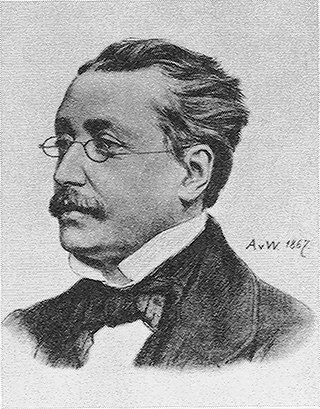 294
Joseph Victor von Scheffel was a German poet and novelist.
294
Joseph Victor von Scheffel was a German poet and novelist.
Franz Liszt
 282
Franz Liszt was a Hungarian composer, virtuoso pianist, conductor and teacher of the Romantic period. With a diverse body of work spanning more than six decades, he is considered to be one of the...
282
Franz Liszt was a Hungarian composer, virtuoso pianist, conductor and teacher of the Romantic period. With a diverse body of work spanning more than six decades, he is considered to be one of the...
Saint Joseph
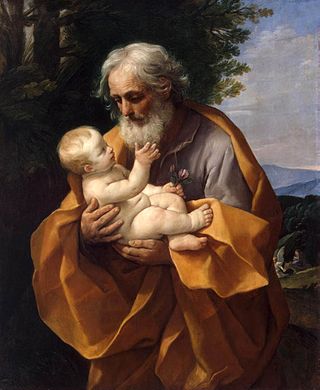 270
Joseph was a 1st-century Jewish man of Nazareth who, according to the canonical Gospels, was married to Mary, the mother of Jesus, and was the legal father of Jesus.
270
Joseph was a 1st-century Jewish man of Nazareth who, according to the canonical Gospels, was married to Mary, the mother of Jesus, and was the legal father of Jesus.
Thomas Mann
 267
Paul Thomas Mann was a German novelist, short story writer, social critic, philanthropist, essayist, and the 1929 Nobel Prize in Literature laureate. His highly symbolic and ironic epic novels and...
267
Paul Thomas Mann was a German novelist, short story writer, social critic, philanthropist, essayist, and the 1929 Nobel Prize in Literature laureate. His highly symbolic and ironic epic novels and...
Nicolaus Otto
 266
Nicolaus August Otto was a German engineer who successfully developed the compressed charge internal combustion engine which ran on petroleum gas and led to the modern internal combustion engine. The...
266
Nicolaus August Otto was a German engineer who successfully developed the compressed charge internal combustion engine which ran on petroleum gas and led to the modern internal combustion engine. The...
Otto Lilienthal
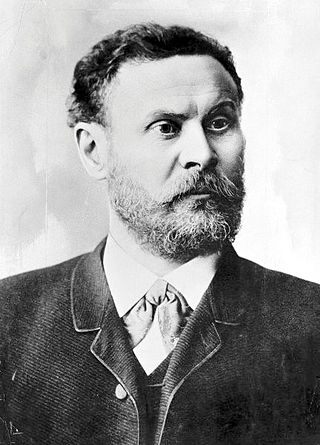 266
Karl Wilhelm Otto Lilienthal was a German pioneer of aviation who became known as the "flying man". He was the first person to make well-documented, repeated, successful flights with gliders,...
266
Karl Wilhelm Otto Lilienthal was a German pioneer of aviation who became known as the "flying man". He was the first person to make well-documented, repeated, successful flights with gliders,...
Walther Rathenau
 265
Walther Rathenau was a German industrialist, writer and politician who served as foreign minister of Germany from February to June 1922.
265
Walther Rathenau was a German industrialist, writer and politician who served as foreign minister of Germany from February to June 1922.
Friedrich von Bodelschwingh
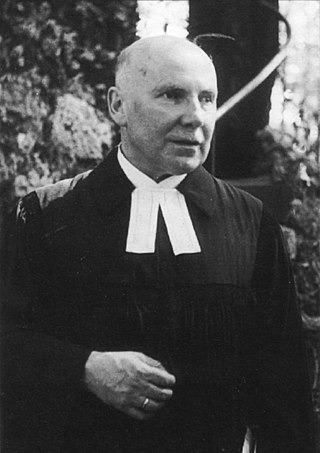 265
Friedrich "Fritz" von Bodelschwingh, also known as Friedrich von Bodelschwingh the Younger, was a German pastor, theologian and public health advocate. His father was Friedrich von Bodelschwingh the...
265
Friedrich "Fritz" von Bodelschwingh, also known as Friedrich von Bodelschwingh the Younger, was a German pastor, theologian and public health advocate. His father was Friedrich von Bodelschwingh the...
Johann Gottlieb Fichte
 263
Johann Gottlieb Fichte was a German philosopher who became a founding figure of the philosophical movement known as German idealism, which developed from the theoretical and ethical writings of...
263
Johann Gottlieb Fichte was a German philosopher who became a founding figure of the philosophical movement known as German idealism, which developed from the theoretical and ethical writings of...
Helmuth von Moltke the Elder
 260
Helmuth Karl Bernhard Graf von Moltke was a Prussian field marshal. The chief of staff of the Prussian Army for thirty years, he is regarded as the creator of a new, more modern method of directing...
260
Helmuth Karl Bernhard Graf von Moltke was a Prussian field marshal. The chief of staff of the Prussian Army for thirty years, he is regarded as the creator of a new, more modern method of directing...
Karl Liebknecht
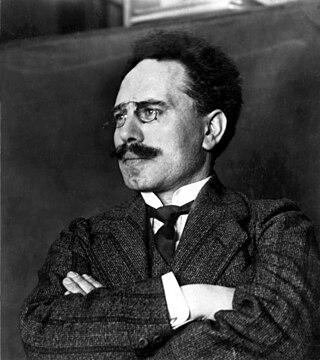 260
Karl Paul August Friedrich Liebknecht was a German socialist and anti-militarist. A member of the Social Democratic Party of Germany (SPD) beginning in 1900, he was one of its deputies in the...
260
Karl Paul August Friedrich Liebknecht was a German socialist and anti-militarist. A member of the Social Democratic Party of Germany (SPD) beginning in 1900, he was one of its deputies in the...
Saint Barbara
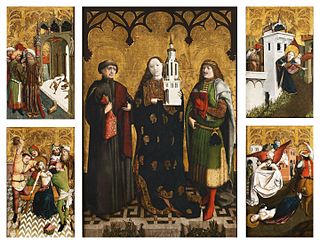 260
Saint Barbara, known in the Eastern Orthodox Church as the Great Martyr Barbara, was an early Christian Greek saint and martyr.
260
Saint Barbara, known in the Eastern Orthodox Church as the Great Martyr Barbara, was an early Christian Greek saint and martyr.
Johann Peter Hebel
 259
Johann Peter Hebel was a German short story writer, dialectal poet, Lutheran theologian and pedagogue, most famous for a collection of Alemannic lyric poems and one of German tales.
259
Johann Peter Hebel was a German short story writer, dialectal poet, Lutheran theologian and pedagogue, most famous for a collection of Alemannic lyric poems and one of German tales.
Saint Anne
 259
According to apocrypha, as well as Christian and Islamic tradition, Saint Anne was the mother of Mary, the wife of Joachim and the maternal grandmother of Jesus. Mary's mother is not named in the...
259
According to apocrypha, as well as Christian and Islamic tradition, Saint Anne was the mother of Mary, the wife of Joachim and the maternal grandmother of Jesus. Mary's mother is not named in the...
Brothers Grimm
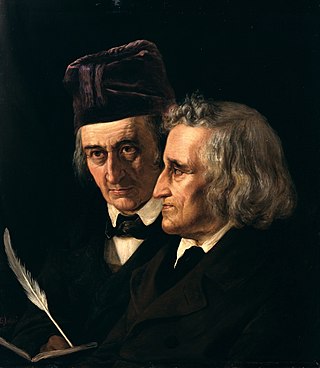 255
The Brothers Grimm, Jacob (1785–1863) and Wilhelm (1786–1859), were German academics who together collected and published folklore. The brothers are among the best-known storytellers of folktales,...
255
The Brothers Grimm, Jacob (1785–1863) and Wilhelm (1786–1859), were German academics who together collected and published folklore. The brothers are among the best-known storytellers of folktales,...
Paul Klee
 250
Paul Klee was a Swiss-born German artist. His highly individual style was influenced by movements in art that included expressionism, cubism, and surrealism. Klee was a natural draftsman who...
250
Paul Klee was a Swiss-born German artist. His highly individual style was influenced by movements in art that included expressionism, cubism, and surrealism. Klee was a natural draftsman who...
Max Reger
 248
Johann Baptist Joseph Maximilian Reger was a German composer, pianist, organist, conductor, and academic teacher. He worked as a concert pianist, a musical director at the Leipzig University Church,...
248
Johann Baptist Joseph Maximilian Reger was a German composer, pianist, organist, conductor, and academic teacher. He worked as a concert pianist, a musical director at the Leipzig University Church,...
Kurt Schumacher
 247
Curt Ernst Carl Schumacher, better known as Kurt Schumacher, was a German politician and resistance fighter against the Nazis. He was chairman of the Social Democratic Party of Germany from 1946 and...
247
Curt Ernst Carl Schumacher, better known as Kurt Schumacher, was a German politician and resistance fighter against the Nazis. He was chairman of the Social Democratic Party of Germany from 1946 and...
Heinrich Otto Wieland
 246
Heinrich Otto Wieland was a German chemist. He won the 1927 Nobel Prize in Chemistry for his research into the bile acids.
246
Heinrich Otto Wieland was a German chemist. He won the 1927 Nobel Prize in Chemistry for his research into the bile acids.
Thomas Müntzer
 246
Thomas Müntzer was a German preacher and theologian of the early Reformation whose opposition to both Martin Luther and the Roman Catholic Church led to his open defiance of late-feudal authority in...
246
Thomas Müntzer was a German preacher and theologian of the early Reformation whose opposition to both Martin Luther and the Roman Catholic Church led to his open defiance of late-feudal authority in...
Adolf Damaschke
 239
Adolf Wilhelm Ferdinand Damaschke was a German politician and economist (Nationalökonom).
239
Adolf Wilhelm Ferdinand Damaschke was a German politician and economist (Nationalökonom).
Anthony of Padua
 236
Anthony of Padua, OFM or Anthony of Lisbon was a Portuguese Catholic priest and friar of the Franciscan Order.
236
Anthony of Padua, OFM or Anthony of Lisbon was a Portuguese Catholic priest and friar of the Franciscan Order.
Nicolaus Copernicus
 234
Nicolaus Copernicus was a Renaissance polymath, active as a mathematician, astronomer, and Catholic canon, who formulated a model of the universe that placed the Sun rather than Earth at its center....
234
Nicolaus Copernicus was a Renaissance polymath, active as a mathematician, astronomer, and Catholic canon, who formulated a model of the universe that placed the Sun rather than Earth at its center....
Hermann Hesse
 231
Hermann Karl Hesse was a German-Swiss poet, novelist, and painter. His best-known works include Demian, Steppenwolf, Siddhartha, and The Glass Bead Game, each of which explores an individual's search...
231
Hermann Karl Hesse was a German-Swiss poet, novelist, and painter. His best-known works include Demian, Steppenwolf, Siddhartha, and The Glass Bead Game, each of which explores an individual's search...
Rosa Luxemburg
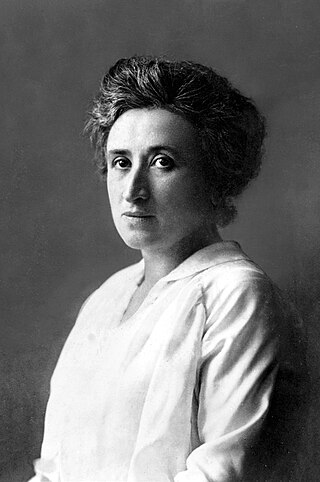 227
Rosa Luxemburg was a Polish and naturalised-German revolutionary socialist, orthodox Marxist, and anti-War activist during the First World War. She became a key figure of the revolutionary socialist...
227
Rosa Luxemburg was a Polish and naturalised-German revolutionary socialist, orthodox Marxist, and anti-War activist during the First World War. She became a key figure of the revolutionary socialist...
Dietrich Bonhoeffer
 226
Dietrich Bonhoeffer was a German Lutheran pastor, theologian and anti-Nazi dissident who was a key founding member of the Confessing Church. His writings on Christianity's role in the secular world...
226
Dietrich Bonhoeffer was a German Lutheran pastor, theologian and anti-Nazi dissident who was a key founding member of the Confessing Church. His writings on Christianity's role in the secular world...
Georg Wilhelm Friedrich Hegel
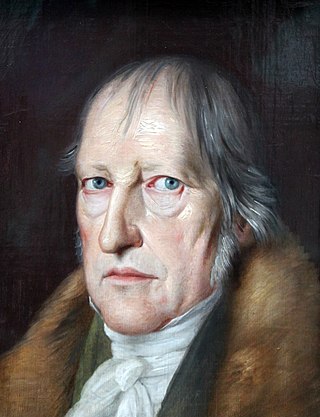 226
Georg Wilhelm Friedrich Hegel was a German philosopher and one of the most influential figures of German idealism and 19th-century philosophy. His influence extends across the entire range of...
226
Georg Wilhelm Friedrich Hegel was a German philosopher and one of the most influential figures of German idealism and 19th-century philosophy. His influence extends across the entire range of...
Carl von Linde
 224
Carl Paul Gottfried von Linde was a German scientist, engineer, and businessman. He discovered a refrigeration cycle and invented the first industrial-scale air separation and gas liquefaction...
224
Carl Paul Gottfried von Linde was a German scientist, engineer, and businessman. He discovered a refrigeration cycle and invented the first industrial-scale air separation and gas liquefaction...
Elizabeth II
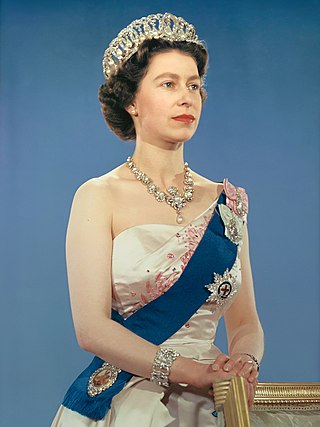 223
Elizabeth II was Queen of the United Kingdom and other Commonwealth realms from 6 February 1952 until her death in 2022. She was queen regnant of 32 sovereign states over the course of her lifetime...
223
Elizabeth II was Queen of the United Kingdom and other Commonwealth realms from 6 February 1952 until her death in 2022. She was queen regnant of 32 sovereign states over the course of her lifetime...
Christian Friedrich Hebbel
 215
Christian Friedrich Hebbel was a German poet and dramatist.
215
Christian Friedrich Hebbel was a German poet and dramatist.
Rudolf Virchow
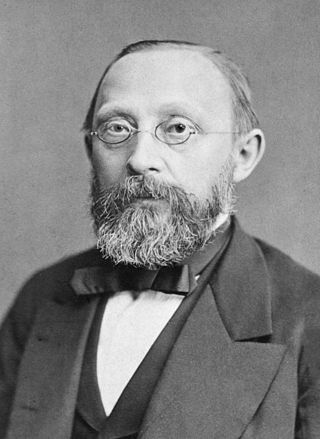 213
Rudolf Ludwig Carl Virchow was a German physician, anthropologist, pathologist, prehistorian, biologist, writer, editor, and politician. He is known as "the father of modern pathology" and as the...
213
Rudolf Ludwig Carl Virchow was a German physician, anthropologist, pathologist, prehistorian, biologist, writer, editor, and politician. He is known as "the father of modern pathology" and as the...
Friedrich Engels
 212
Friedrich Engels was a German philosopher, political theorist, historian, journalist, and revolutionary socialist. He was also a businessman and Karl Marx's closest friend and collaborator.
212
Friedrich Engels was a German philosopher, political theorist, historian, journalist, and revolutionary socialist. He was also a businessman and Karl Marx's closest friend and collaborator.
Ulrich of Augsburg
 211
Ulrich of Augsburg, sometimes spelled Uodalric or Odalrici, was Prince-Bishop of Augsburg in the Holy Roman Empire. He was the first saint to be canonized not by a local authority but by the pope.
211
Ulrich of Augsburg, sometimes spelled Uodalric or Odalrici, was Prince-Bishop of Augsburg in the Holy Roman Empire. He was the first saint to be canonized not by a local authority but by the pope.
Anne Frank
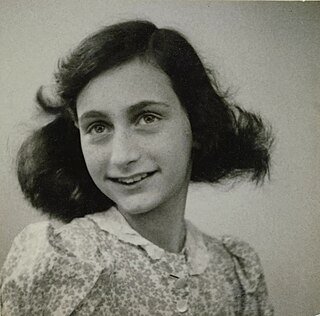 209
Annelies Marie Frank was a German-born Jewish girl who kept a diary in which she documented life in hiding under Nazi persecution during the German occupation of the Netherlands. She is a celebrated...
209
Annelies Marie Frank was a German-born Jewish girl who kept a diary in which she documented life in hiding under Nazi persecution during the German occupation of the Netherlands. She is a celebrated...
Caesar von Hofacker
 208
Caesar von Hofacker was a German Luftwaffe Lieutenant Colonel and member of the 20 July plot against Adolf Hitler.
208
Caesar von Hofacker was a German Luftwaffe Lieutenant Colonel and member of the 20 July plot against Adolf Hitler.
Marie Curie
 208
Maria Salomea Skłodowska-Curie, known simply as Marie Curie, was a Polish and naturalised-French physicist and chemist who conducted pioneering research on radioactivity. She was the first woman to...
208
Maria Salomea Skłodowska-Curie, known simply as Marie Curie, was a Polish and naturalised-French physicist and chemist who conducted pioneering research on radioactivity. She was the first woman to...
Lise Meitner
 208
Lise Meitner was an Austrian-Swedish physicist who was one of those responsible for the discovery of the element protactinium and nuclear fission. While working on radioactivity at the Kaiser Wilhelm...
208
Lise Meitner was an Austrian-Swedish physicist who was one of those responsible for the discovery of the element protactinium and nuclear fission. While working on radioactivity at the Kaiser Wilhelm...
Wilhelm Backhaus
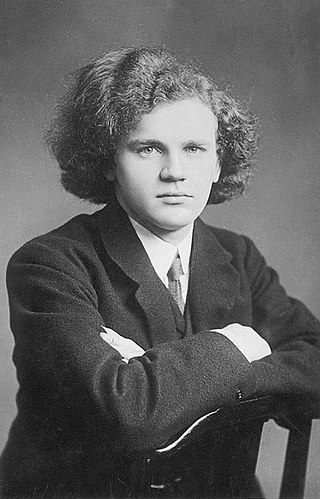 206
Wilhelm Backhaus was a German pianist and pedagogue. He was particularly well known for his interpretations of Mozart, Beethoven, Schumann, Chopin and Brahms. He was also much admired as a chamber...
206
Wilhelm Backhaus was a German pianist and pedagogue. He was particularly well known for his interpretations of Mozart, Beethoven, Schumann, Chopin and Brahms. He was also much admired as a chamber...
Gottfried Wilhelm Leibniz
 205
Gottfried Wilhelm Leibniz was a German polymath active as a mathematician, philosopher, scientist and diplomat who invented calculus in addition to many other branches of mathematics and statistics....
205
Gottfried Wilhelm Leibniz was a German polymath active as a mathematician, philosopher, scientist and diplomat who invented calculus in addition to many other branches of mathematics and statistics....
Rainer Maria Rilke
 204
René Karl Wilhelm Johann Josef Maria Rilke, known as Rainer Maria Rilke, was an Austrian poet and novelist. Acclaimed as an idiosyncratic and expressive poet, he is widely recognized as a significant...
204
René Karl Wilhelm Johann Josef Maria Rilke, known as Rainer Maria Rilke, was an Austrian poet and novelist. Acclaimed as an idiosyncratic and expressive poet, he is widely recognized as a significant...
Bertolt Brecht
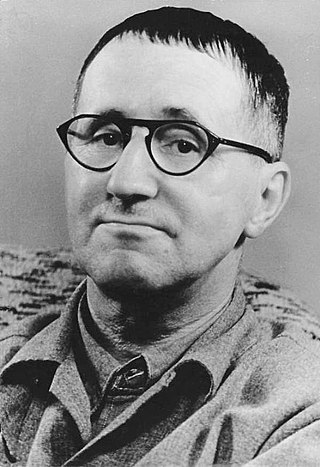 200
Eugen Berthold Friedrich Brecht, known professionally as Bertolt Brecht, was a German theatre practitioner, playwright, and poet. Coming of age during the Weimar Republic, he had his first successes...
200
Eugen Berthold Friedrich Brecht, known professionally as Bertolt Brecht, was a German theatre practitioner, playwright, and poet. Coming of age during the Weimar Republic, he had his first successes...
Justinus Kerner
 195
Justinus Andreas Christian Kerner was a German poet, practicing physician, and medical writer. He gave the first detailed description of botulism.
195
Justinus Andreas Christian Kerner was a German poet, practicing physician, and medical writer. He gave the first detailed description of botulism.
Wilhelm Raabe
 193
Wilhelm Raabe was a German novelist. His early works were published under the pseudonym of Jakob Corvinus.
193
Wilhelm Raabe was a German novelist. His early works were published under the pseudonym of Jakob Corvinus.
Hans Böckler
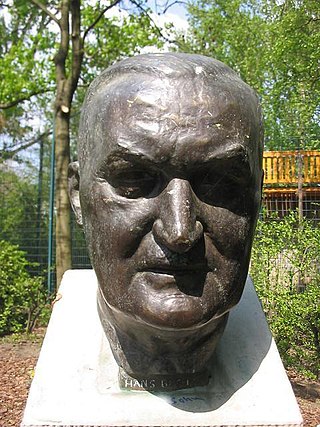 191
Hans Böckler was a German politician and trade union leader. He was the most influential re-founder of the unions in post-war Germany and became the first president of the German Trade Union...
191
Hans Böckler was a German politician and trade union leader. He was the most influential re-founder of the unions in post-war Germany and became the first president of the German Trade Union...
Saint Sebastian
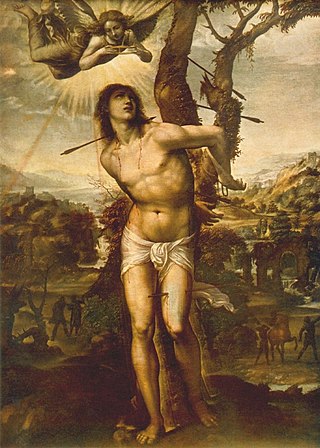 189
Sebastian was an early Christian saint and martyr. According to traditional belief, he was killed during the Diocletianic Persecution of Christians. He was initially tied to a post or tree and shot...
189
Sebastian was an early Christian saint and martyr. According to traditional belief, he was killed during the Diocletianic Persecution of Christians. He was initially tied to a post or tree and shot...
Ludwig Thoma
 188
Ludwig Thoma was a German author, publisher and editor, who gained popularity through his partially exaggerated description of everyday Bavarian life.
188
Ludwig Thoma was a German author, publisher and editor, who gained popularity through his partially exaggerated description of everyday Bavarian life.
John the Baptist
 186
John the Baptist was a Jewish preacher active in the area of the Jordan River in the early 1st century AD. He is also known as Saint John the Forerunner in Eastern Orthodoxy, John the Immerser in...
186
John the Baptist was a Jewish preacher active in the area of the Jordan River in the early 1st century AD. He is also known as Saint John the Forerunner in Eastern Orthodoxy, John the Immerser in...
Saint Nicholas
 185
Saint Nicholas of Myra, also known as Nicholas of Bari, was an early Christian bishop of Greek descent from the maritime city of Patara in Anatolia during the time of the Roman Empire. Because of the...
185
Saint Nicholas of Myra, also known as Nicholas of Bari, was an early Christian bishop of Greek descent from the maritime city of Patara in Anatolia during the time of the Roman Empire. Because of the...
Annette von Droste-Hülshoff
 184
Baroness Anna Elisabeth Franziska Adolphine Wilhelmine Louise Maria von Droste zu Hülshoff, known as Annette von Droste-Hülshoff, was a 19th-century German poet, novelist, and composer of Classical...
184
Baroness Anna Elisabeth Franziska Adolphine Wilhelmine Louise Maria von Droste zu Hülshoff, known as Annette von Droste-Hülshoff, was a 19th-century German poet, novelist, and composer of Classical...
Wilhelm Maybach
 182
Wilhelm Maybach was an early German engine designer and industrialist. During the 1890s he was hailed in France, then the world centre for car production, as the "King of Designers".
182
Wilhelm Maybach was an early German engine designer and industrialist. During the 1890s he was hailed in France, then the world centre for car production, as the "King of Designers".
Hans Sachs
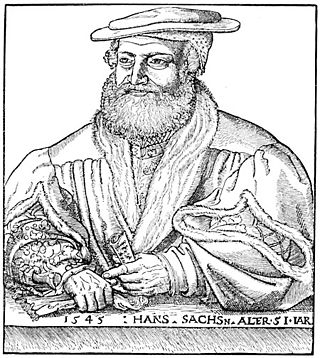 182
Hans Sachs was a German Meistersinger ("mastersinger"), poet, playwright, and shoemaker.
182
Hans Sachs was a German Meistersinger ("mastersinger"), poet, playwright, and shoemaker.
Elsa Brändström
 182
Elsa Brändström was a Swedish nurse and philanthropist. She was known as the "Angel of Siberia".
182
Elsa Brändström was a Swedish nurse and philanthropist. She was known as the "Angel of Siberia".
Emil von Behring
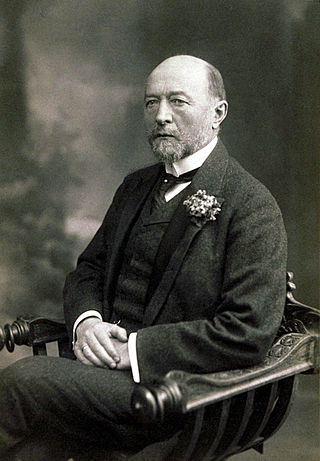 179
Emil von Behring, born Emil Adolf Behring, was a German physiologist who received the 1901 Nobel Prize in Physiology or Medicine, the first one awarded in that field, for his discovery of a...
179
Emil von Behring, born Emil Adolf Behring, was a German physiologist who received the 1901 Nobel Prize in Physiology or Medicine, the first one awarded in that field, for his discovery of a...
Matthias Grünewald
 178
Matthias Grünewald was a German Renaissance painter of religious works who ignored Renaissance classicism to continue the style of late medieval Central European art into the 16th century. His first...
178
Matthias Grünewald was a German Renaissance painter of religious works who ignored Renaissance classicism to continue the style of late medieval Central European art into the 16th century. His first...
Gustav Stresemann
 178
Gustav Ernst Stresemann was a German statesman who served as chancellor of Germany from August to November 1923, and as foreign minister from 1923 to 1929. His most notable achievement was the...
178
Gustav Ernst Stresemann was a German statesman who served as chancellor of Germany from August to November 1923, and as foreign minister from 1923 to 1929. His most notable achievement was the...
Sebastian Kneipp
 178
Sebastian Kneipp was a German Catholic priest and one of the forefathers of the naturopathic movement. He is most commonly associated with the "Kneipp Cure" form of hydrotherapy, the application of...
178
Sebastian Kneipp was a German Catholic priest and one of the forefathers of the naturopathic movement. He is most commonly associated with the "Kneipp Cure" form of hydrotherapy, the application of...
Matthias Claudius
 176
Matthias Claudius was a German poet and journalist, otherwise known by the pen name of “Asmus”.
176
Matthias Claudius was a German poet and journalist, otherwise known by the pen name of “Asmus”.
Clemens August Graf von Galen
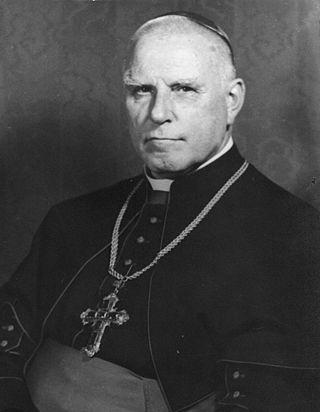 175
Clemens Augustinus Emmanuel Joseph Pius Anthonius Hubertus Marie Graf von Galen, better known as Clemens August Graf von Galen, was a German count, Bishop of Münster, and cardinal of the Catholic...
175
Clemens Augustinus Emmanuel Joseph Pius Anthonius Hubertus Marie Graf von Galen, better known as Clemens August Graf von Galen, was a German count, Bishop of Münster, and cardinal of the Catholic...
Peter Rosegger
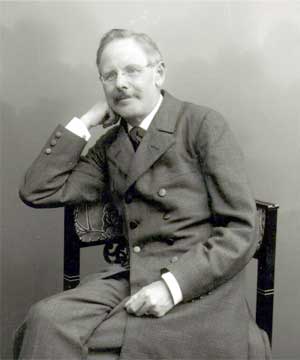 175
Peter Rosegger was an Austrian writer and poet from Krieglach in the province of Styria. He was a son of a mountain farmer and grew up in the woodlands and mountains of Alpl. Rosegger went on to...
175
Peter Rosegger was an Austrian writer and poet from Krieglach in the province of Styria. He was a son of a mountain farmer and grew up in the woodlands and mountains of Alpl. Rosegger went on to...
Carl Zeiss
 174
Carl Zeiss was a German scientific instrument maker, optician and businessman. In 1846 he founded his workshop, which is still in business as Carl Zeiss AG. Zeiss gathered a group of gifted practical...
174
Carl Zeiss was a German scientific instrument maker, optician and businessman. In 1846 he founded his workshop, which is still in business as Carl Zeiss AG. Zeiss gathered a group of gifted practical...
Willy Brandt
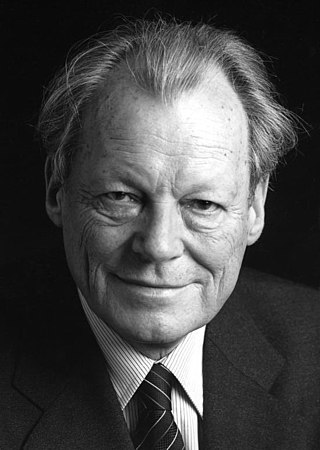 173
Willy Brandt was a German politician and statesman who was leader of the Social Democratic Party of Germany (SPD) from 1964 to 1987 and served as the chancellor of West Germany from 1969 to 1974. He...
173
Willy Brandt was a German politician and statesman who was leader of the Social Democratic Party of Germany (SPD) from 1964 to 1987 and served as the chancellor of West Germany from 1969 to 1974. He...
Bertha von Suttner
 171
Bertha Sophie Felicitas Freifrau von Suttner was an Austro-Bohemian noblewoman, pacifist and novelist. In 1905, she became the second female Nobel laureate, the first woman to be awarded the Nobel...
171
Bertha Sophie Felicitas Freifrau von Suttner was an Austro-Bohemian noblewoman, pacifist and novelist. In 1905, she became the second female Nobel laureate, the first woman to be awarded the Nobel...
Friedrich List
 171
Daniel Friedrich List was a German economist and political theorist who developed the nationalist theory of political economy in both Europe and the United States. He was a forefather of the German...
171
Daniel Friedrich List was a German economist and political theorist who developed the nationalist theory of political economy in both Europe and the United States. He was a forefather of the German...
Carl Orff
 171
Carl Heinrich Maria Orff was a German composer and music educator, who composed the cantata Carmina Burana (1937). The concepts of his Schulwerk were influential for children's music education.
171
Carl Heinrich Maria Orff was a German composer and music educator, who composed the cantata Carmina Burana (1937). The concepts of his Schulwerk were influential for children's music education.
Lucas Cranach the Elder
 170
Lucas Cranach the Elder was a German Renaissance painter and printmaker in woodcut and engraving. He was court painter to the Electors of Saxony for most of his career, and is known for his...
170
Lucas Cranach the Elder was a German Renaissance painter and printmaker in woodcut and engraving. He was court painter to the Electors of Saxony for most of his career, and is known for his...
Michael (archangel)
 165
Michael, also called Saint Michael the Archangel, Archangel Michael and Saint Michael the Taxiarch is an archangel in Judaism, Christianity, Islam, and the Baha'i faith. The earliest surviving...
165
Michael, also called Saint Michael the Archangel, Archangel Michael and Saint Michael the Taxiarch is an archangel in Judaism, Christianity, Islam, and the Baha'i faith. The earliest surviving...
Johann Hinrich Wichern
 163
Johann Hinrich Wichern was a founder of the Home Mission movement in Germany.
163
Johann Hinrich Wichern was a founder of the Home Mission movement in Germany.
Clara Zetkin
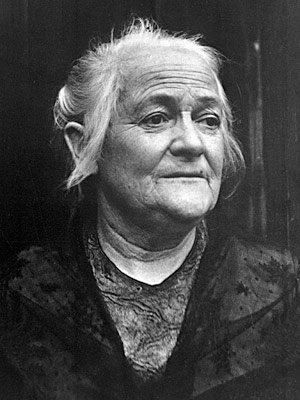 163
Clara Zetkin was a German Marxist theorist, communist activist, and advocate for women's rights.
163
Clara Zetkin was a German Marxist theorist, communist activist, and advocate for women's rights.
Ferdinand Freiligrath
 163
Ferdinand Freiligrath was a German poet, translator and liberal agitator, who is considered part of the Young Germany movement.
163
Ferdinand Freiligrath was a German poet, translator and liberal agitator, who is considered part of the Young Germany movement.
Nikolaus Lenau
 160
Nikolaus Lenau was the pen name of Nikolaus Franz Niembsch Edler von Strehlenau, a German-language Austrian poet.
160
Nikolaus Lenau was the pen name of Nikolaus Franz Niembsch Edler von Strehlenau, a German-language Austrian poet.
Gottfried August Bürger
 158
Gottfried August Bürger was a German poet. His ballads were very popular in Germany. His most noted ballad, Lenore, found an audience beyond readers of the German language in an English and Russian...
158
Gottfried August Bürger was a German poet. His ballads were very popular in Germany. His most noted ballad, Lenore, found an audience beyond readers of the German language in an English and Russian...
Rembrandt
 156
Rembrandt Harmenszoon van Rijn, usually simply known as Rembrandt, was a Dutch Golden Age painter, printmaker, and draughtsman. He is generally considered one of the greatest visual artists in the...
156
Rembrandt Harmenszoon van Rijn, usually simply known as Rembrandt, was a Dutch Golden Age painter, printmaker, and draughtsman. He is generally considered one of the greatest visual artists in the...
Saint Lawrence
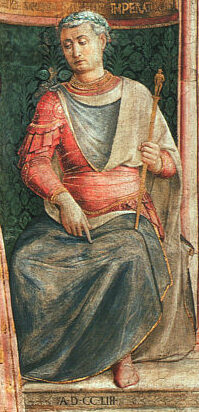 152
Saint Lawrence or Laurence was one of the seven deacons of the city of Rome under Pope Sixtus II who were martyred in the persecution of the Christians that the Roman Emperor Valerian ordered in 258.
152
Saint Lawrence or Laurence was one of the seven deacons of the city of Rome under Pope Sixtus II who were martyred in the persecution of the Christians that the Roman Emperor Valerian ordered in 258.
Erich Kästner
 145
Emil Erich Kästner was a German writer, poet, screenwriter and satirist, known primarily for his humorous, socially astute poems and for children's books including Emil and the Detectives and The...
145
Emil Erich Kästner was a German writer, poet, screenwriter and satirist, known primarily for his humorous, socially astute poems and for children's books including Emil and the Detectives and The...
Peter Paul Rubens
 144
Sir Peter Paul Rubens was a Flemish artist and diplomat. He is considered the most influential artist of the Flemish Baroque tradition. Rubens's highly charged compositions reference erudite aspects...
144
Sir Peter Paul Rubens was a Flemish artist and diplomat. He is considered the most influential artist of the Flemish Baroque tradition. Rubens's highly charged compositions reference erudite aspects...
Carl Friedrich Gauss
 144
Johann Carl Friedrich Gauss was a German mathematician, astronomer, geodesist, and physicist who contributed to many fields in mathematics and science. He ranks among history's most influential...
144
Johann Carl Friedrich Gauss was a German mathematician, astronomer, geodesist, and physicist who contributed to many fields in mathematics and science. He ranks among history's most influential...
Wilhelm Leuschner
 143
Wilhelm Leuschner was a trade unionist and Social Democratic politician. An early opponent of Nazism, he organized underground resistance in the labour movement. As a result of their involvement in...
143
Wilhelm Leuschner was a trade unionist and Social Democratic politician. An early opponent of Nazism, he organized underground resistance in the labour movement. As a result of their involvement in...
Edith Stein
 140
Edith Stein, OCD was a German Jewish philosopher who converted to Catholicism and became a Discalced Carmelite nun. She is canonized as a martyr and saint of the Catholic Church; she is also one of...
140
Edith Stein, OCD was a German Jewish philosopher who converted to Catholicism and became a Discalced Carmelite nun. She is canonized as a martyr and saint of the Catholic Church; she is also one of...
Augusta Victoria of Schleswig-Holstein
 139
Augusta Viktoria of Schleswig-Holstein was the last German Empress and Queen of Prussia by marriage to Wilhelm II, German Emperor.
139
Augusta Viktoria of Schleswig-Holstein was the last German Empress and Queen of Prussia by marriage to Wilhelm II, German Emperor.
Carl Friedrich Goerdeler
 138
Carl Friedrich Goerdeler was a German conservative politician, monarchist, executive, economist, civil servant and opponent of the Nazi regime. He opposed some anti-Jewish policies while he held...
138
Carl Friedrich Goerdeler was a German conservative politician, monarchist, executive, economist, civil servant and opponent of the Nazi regime. He opposed some anti-Jewish policies while he held...
Theodor Körner (author)
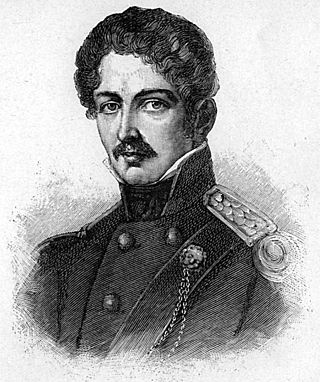 136
Carl Theodor Körner was a German poet and soldier. After having lived for some time in Vienna, where he wrote some light comedies and other works for the Burgtheater, he became a soldier and joined...
136
Carl Theodor Körner was a German poet and soldier. After having lived for some time in Vienna, where he wrote some light comedies and other works for the Burgtheater, he became a soldier and joined...
Johann Philipp Reis
 135
Johann Philipp Reis was a self-taught German scientist and inventor. In 1861, he constructed the first make-and-break telephone, today called the Reis telephone. It was the first device to transmit a...
135
Johann Philipp Reis was a self-taught German scientist and inventor. In 1861, he constructed the first make-and-break telephone, today called the Reis telephone. It was the first device to transmit a...
Wendelin of Trier
 135
Saint Wendelin of Trier was a hermit and abbot. Although not listed in the Roman Martyrology, his cultus is wide-spread in German-speaking areas. He is a patron of country folk and herdsmen. He is...
135
Saint Wendelin of Trier was a hermit and abbot. Although not listed in the Roman Martyrology, his cultus is wide-spread in German-speaking areas. He is a patron of country folk and herdsmen. He is...
Heinrich Hertz
 134
Heinrich Rudolf Hertz was a German physicist who first conclusively proved the existence of the electromagnetic waves predicted by James Clerk Maxwell's equations of electromagnetism. The unit of...
134
Heinrich Rudolf Hertz was a German physicist who first conclusively proved the existence of the electromagnetic waves predicted by James Clerk Maxwell's equations of electromagnetism. The unit of...
Alexander Pushkin
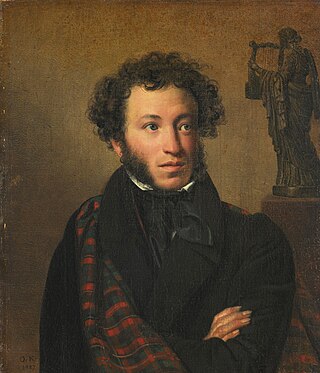 133
Alexander Sergeyevich Pushkin was a Russian poet, playwright, and novelist of the Romantic era. He is considered by many to be the greatest Russian poet, as well as the founder of modern Russian...
133
Alexander Sergeyevich Pushkin was a Russian poet, playwright, and novelist of the Romantic era. He is considered by many to be the greatest Russian poet, as well as the founder of modern Russian...
Martin of Tours
 131
Martin of Tours, also known as Martin the Merciful, was the third bishop of Tours. He has become one of the most familiar and recognizable Christian saints in France, heralded as the patron saint of...
131
Martin of Tours, also known as Martin the Merciful, was the third bishop of Tours. He has become one of the most familiar and recognizable Christian saints in France, heralded as the patron saint of...
Henry Dunant
 131
Henry Dunant, also known as Henri Dunant, was a Swiss humanitarian, businessman, social activist, and co-founder of the Red Cross. His humanitarian efforts won him the first Nobel Peace Prize in 1901.
131
Henry Dunant, also known as Henri Dunant, was a Swiss humanitarian, businessman, social activist, and co-founder of the Red Cross. His humanitarian efforts won him the first Nobel Peace Prize in 1901.
Andrew the Apostle
 130
Andrew the Apostle, also called Saint Andrew, was an apostle of Jesus. According to the New Testament, he was a fisherman and one of the Twelve Apostles chosen by Jesus. The title First-Called stems...
130
Andrew the Apostle, also called Saint Andrew, was an apostle of Jesus. According to the New Testament, he was a fisherman and one of the Twelve Apostles chosen by Jesus. The title First-Called stems...
Ferdinand Porsche
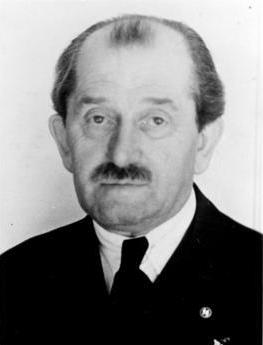 130
Ferdinand Porsche was a German-Bohemian automotive engineer and founder of the Porsche AG. He is best known for creating the first gasoline–electric hybrid vehicle (Lohner–Porsche), the Volkswagen...
130
Ferdinand Porsche was a German-Bohemian automotive engineer and founder of the Porsche AG. He is best known for creating the first gasoline–electric hybrid vehicle (Lohner–Porsche), the Volkswagen...
Robert Bunsen
Paul Gerhardt
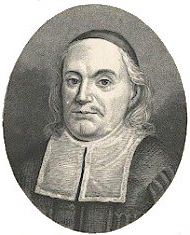 128
Paul Gerhardt was a German theologian, Lutheran minister and hymnodist.
128
Paul Gerhardt was a German theologian, Lutheran minister and hymnodist.
Alfred Delp
 127
Alfred Friedrich Delp was a German Jesuit priest and philosopher of the German Resistance. A member of the inner Kreisau Circle resistance group, he is considered a significant figure in Catholic...
127
Alfred Friedrich Delp was a German Jesuit priest and philosopher of the German Resistance. A member of the inner Kreisau Circle resistance group, he is considered a significant figure in Catholic...
Heinrich Zille
 124
Rudolf Heinrich Zille was a German illustrator, caricaturist, lithographer and photographer.
124
Rudolf Heinrich Zille was a German illustrator, caricaturist, lithographer and photographer.
Adolph Menzel
 124
Adolph Friedrich Erdmann von Menzel was a German Realist artist noted for drawings, etchings, and paintings. Along with Caspar David Friedrich, he is considered one of the two most prominent German...
124
Adolph Friedrich Erdmann von Menzel was a German Realist artist noted for drawings, etchings, and paintings. Along with Caspar David Friedrich, he is considered one of the two most prominent German...
Klaus Groth
 123
Klaus Groth was a Low German poet.
123
Klaus Groth was a Low German poet.
Wilhelm Külz
 121
Wilhelm Külz was a German liberal politician of the National Liberal Party, the German Democratic Party (DDP) and later the Liberal Democratic Party of Germany (LDPD). He held public office both in...
121
Wilhelm Külz was a German liberal politician of the National Liberal Party, the German Democratic Party (DDP) and later the Liberal Democratic Party of Germany (LDPD). He held public office both in...
Johann Strauss II
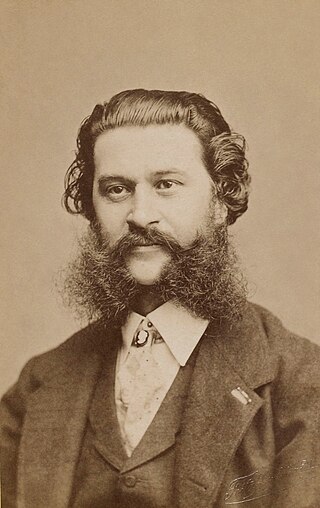 121
Johann Baptist Strauss II, also known as Johann Strauss Jr., the Younger or the Son, was an Austrian composer of light music, particularly dance music and operettas as well as a violinist. He...
121
Johann Baptist Strauss II, also known as Johann Strauss Jr., the Younger or the Son, was an Austrian composer of light music, particularly dance music and operettas as well as a violinist. He...
August Borsig
 120
Johann Karl Friedrich August Borsig was a German businessman who founded the Borsig-Werke factory.
120
Johann Karl Friedrich August Borsig was a German businessman who founded the Borsig-Werke factory.
Ferdinand Sauerbruch
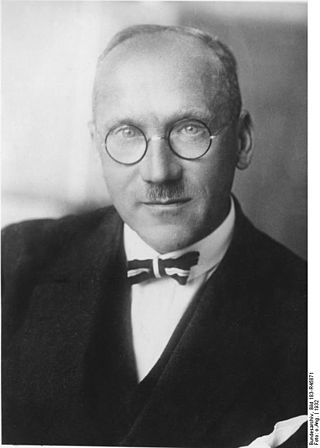 120
Ernst Ferdinand Sauerbruch was a German surgeon. His major work was on the use of negative-pressure chambers for surgery.
120
Ernst Ferdinand Sauerbruch was a German surgeon. His major work was on the use of negative-pressure chambers for surgery.
Emil Nolde
 120
Emil Nolde was a German-Danish painter and printmaker. He was one of the first Expressionists, a member of Die Brücke, and was one of the first oil painting and watercolor painters of the early 20th...
120
Emil Nolde was a German-Danish painter and printmaker. He was one of the first Expressionists, a member of Die Brücke, and was one of the first oil painting and watercolor painters of the early 20th...
Philip Melanchthon
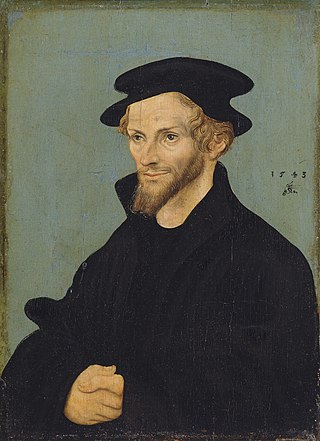 119
Philip Melanchthon was a German Lutheran reformer, collaborator with Martin Luther, the first systematic theologian of the Protestant Reformation, an intellectual leader of the Lutheran Reformation,...
119
Philip Melanchthon was a German Lutheran reformer, collaborator with Martin Luther, the first systematic theologian of the Protestant Reformation, an intellectual leader of the Lutheran Reformation,...
Ludwig Richter
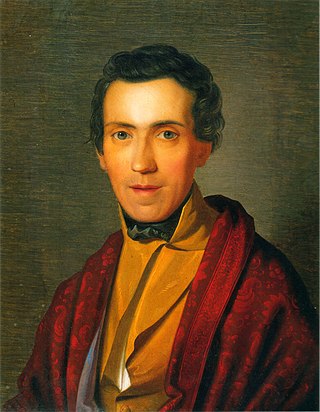 119
Adrian Ludwig Richter was a German painter and etcher, who was strongly influenced by Erhard and Chodowiecki. He was a representative of both Romanticism and Biedermeier styles.
119
Adrian Ludwig Richter was a German painter and etcher, who was strongly influenced by Erhard and Chodowiecki. He was a representative of both Romanticism and Biedermeier styles.
Sebastian Münster
 118
Sebastian Münster was a German cartographer and cosmographer. He also was a Christian Hebraist scholar who taught as a professor at the University of Basel. His well-known work, the highly accurate...
118
Sebastian Münster was a German cartographer and cosmographer. He also was a Christian Hebraist scholar who taught as a professor at the University of Basel. His well-known work, the highly accurate...
Gorch Fock (author)
 117
Johann Wilhelm Kinau, better known by his pseudonym Gorch Fock, was a German author. Other pseudonyms he used were Jakob Holst and Giorgio Focco.
117
Johann Wilhelm Kinau, better known by his pseudonym Gorch Fock, was a German author. Other pseudonyms he used were Jakob Holst and Giorgio Focco.
Joseph von Fraunhofer
 115
Joseph Ritter von Fraunhofer was a German physicist and optical lens manufacturer. He made optical glass, an achromatic telescope, and objective lenses. He developed diffraction grating and also...
115
Joseph Ritter von Fraunhofer was a German physicist and optical lens manufacturer. He made optical glass, an achromatic telescope, and objective lenses. He developed diffraction grating and also...
Georg Büchner
 114
Karl Georg Büchner was a German dramatist and writer of poetry and prose, considered part of the Young Germany movement. He was also a revolutionary and the brother of physician and philosopher...
114
Karl Georg Büchner was a German dramatist and writer of poetry and prose, considered part of the Young Germany movement. He was also a revolutionary and the brother of physician and philosopher...
Franz Lehár
 112
Franz Lehár was an Austro-Hungarian composer. He is mainly known for his operettas, of which the most successful and best known is The Merry Widow.
112
Franz Lehár was an Austro-Hungarian composer. He is mainly known for his operettas, of which the most successful and best known is The Merry Widow.
Gustav Schwab
 112
Gustav Benjamin Schwab was a German writer, pastor and publisher.
112
Gustav Benjamin Schwab was a German writer, pastor and publisher.
Franz Brentano
 110
Franz Clemens Honoratus Hermann Josef Brentano was a German philosopher and psychologist. His 1874 Psychology from an Empirical Standpoint, considered his magnum opus, is credited with having...
110
Franz Clemens Honoratus Hermann Josef Brentano was a German philosopher and psychologist. His 1874 Psychology from an Empirical Standpoint, considered his magnum opus, is credited with having...
Julius Leber
 110
Julius Leber was a German politician of the SPD and a member of the German resistance against the Nazi regime.
110
Julius Leber was a German politician of the SPD and a member of the German resistance against the Nazi regime.
Ricarda Huch
 109
Ricarda Huch was a pioneering German intellectual. Trained as a historian, and the author of many works of European history, she also wrote novels, poems, and a play. Asteroid 879 Ricarda is named in...
109
Ricarda Huch was a pioneering German intellectual. Trained as a historian, and the author of many works of European history, she also wrote novels, poems, and a play. Asteroid 879 Ricarda is named in...
Maximilian Kolbe
 108
Maximilian Maria Kolbe was a Polish Catholic priest and Conventual Franciscan friar who volunteered to die in place of a man named Franciszek Gajowniczek in the German death camp of Auschwitz,...
108
Maximilian Maria Kolbe was a Polish Catholic priest and Conventual Franciscan friar who volunteered to die in place of a man named Franciszek Gajowniczek in the German death camp of Auschwitz,...
Hedwig of Silesia
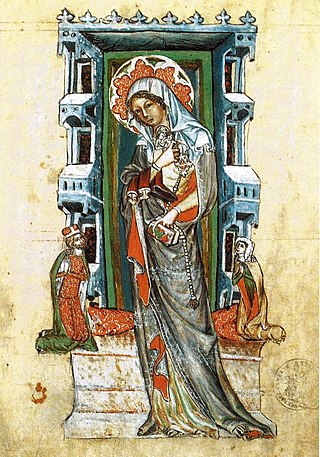 106
Hedwig of Silesia, also Hedwig of Andechs, a member of the Bavarian comital House of Andechs, was Duchess of Silesia from 1201 and of Greater Poland from 1231 as well as High Duchess consort of...
106
Hedwig of Silesia, also Hedwig of Andechs, a member of the Bavarian comital House of Andechs, was Duchess of Silesia from 1201 and of Greater Poland from 1231 as well as High Duchess consort of...
Christoph Willibald Gluck
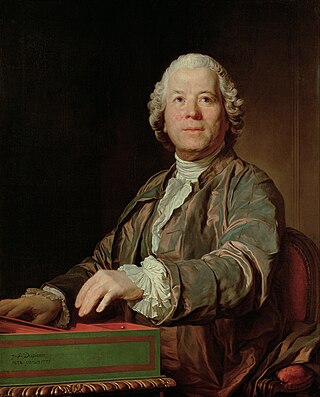 106
Christoph Willibald Gluck was a composer of Italian and French opera in the early classical period. Born in the Upper Palatinate and raised in Bohemia, both part of the Holy Roman Empire, he gained...
106
Christoph Willibald Gluck was a composer of Italian and French opera in the early classical period. Born in the Upper Palatinate and raised in Bohemia, both part of the Holy Roman Empire, he gained...
Maria Sibylla Merian
 105
Maria Sibylla Merian was a German entomologist, naturalist and scientific illustrator. She was one of the earliest European naturalists to document observations about insects directly. Merian was a...
105
Maria Sibylla Merian was a German entomologist, naturalist and scientific illustrator. She was one of the earliest European naturalists to document observations about insects directly. Merian was a...
Paul Schneider (pastor)
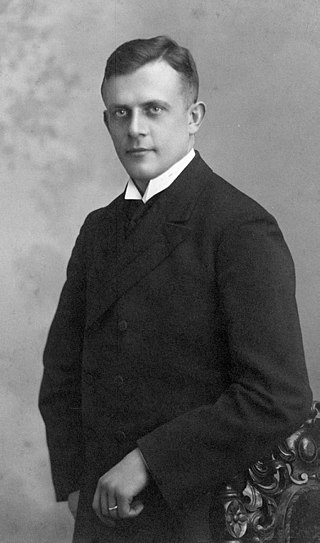 105
Paul Robert Schneider was a German pastor of the Evangelical Church of the old-Prussian Union who was the first Protestant minister to be martyred by the Nazis. He was murdered with a strophanthin...
105
Paul Robert Schneider was a German pastor of the Evangelical Church of the old-Prussian Union who was the first Protestant minister to be martyred by the Nazis. He was murdered with a strophanthin...
Max Liebermann
 104
Max Liebermann was a German painter and printmaker, and one of the leading proponents of Impressionism in Germany and continental Europe. In addition to his activity as an artist, he also assembled...
104
Max Liebermann was a German painter and printmaker, and one of the leading proponents of Impressionism in Germany and continental Europe. In addition to his activity as an artist, he also assembled...
Ludwig Erhard
 103
Ludwig Wilhelm Erhard was a German politician and economist affiliated with the Christian Democratic Union (CDU), and chancellor of West Germany from 1963 until 1966. He is known for leading the West...
103
Ludwig Wilhelm Erhard was a German politician and economist affiliated with the Christian Democratic Union (CDU), and chancellor of West Germany from 1963 until 1966. He is known for leading the West...
Carl von Ossietzky
 103
Carl von Ossietzky was a German journalist and pacifist. He was the recipient of the 1935 Nobel Peace Prize for his work in exposing the clandestine German rearmament.
103
Carl von Ossietzky was a German journalist and pacifist. He was the recipient of the 1935 Nobel Peace Prize for his work in exposing the clandestine German rearmament.
Richard Strauss
 103
Richard Georg Strauss was a German composer and conductor best known for his tone poems and operas. Considered a leading composer of the late Romantic and early modern eras, he has been described as...
103
Richard Georg Strauss was a German composer and conductor best known for his tone poems and operas. Considered a leading composer of the late Romantic and early modern eras, he has been described as...
Ludwig Feuerbach
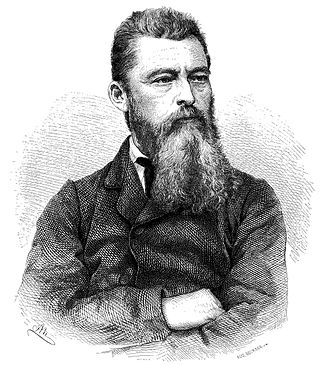 101
Ludwig Andreas von Feuerbach was a German anthropologist and philosopher, best known for his book The Essence of Christianity, which provided a critique of Christianity that strongly influenced...
101
Ludwig Andreas von Feuerbach was a German anthropologist and philosopher, best known for his book The Essence of Christianity, which provided a critique of Christianity that strongly influenced...
Karl Arnold
 101
Karl Arnold was a German politician. He was Minister President of North Rhine-Westphalia from 1947 to 1956.
101
Karl Arnold was a German politician. He was Minister President of North Rhine-Westphalia from 1947 to 1956.
Konrad Zuse
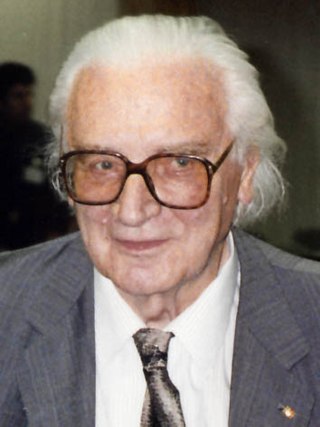 100
Konrad Ernst Otto Zuse was a German civil engineer, pioneering computer scientist, inventor and businessman. His greatest achievement was the world's first programmable computer; the functional...
100
Konrad Ernst Otto Zuse was a German civil engineer, pioneering computer scientist, inventor and businessman. His greatest achievement was the world's first programmable computer; the functional...
Felix Mendelssohn
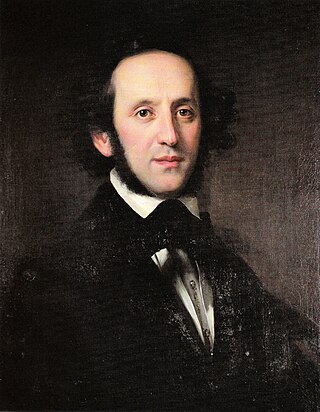 98
Jakob Ludwig Felix Mendelssohn Bartholdy, widely known as Felix Mendelssohn, was a German composer, pianist, organist and conductor of the early Romantic period. Mendelssohn's compositions include...
98
Jakob Ludwig Felix Mendelssohn Bartholdy, widely known as Felix Mendelssohn, was a German composer, pianist, organist and conductor of the early Romantic period. Mendelssohn's compositions include...
Arthur Schopenhauer
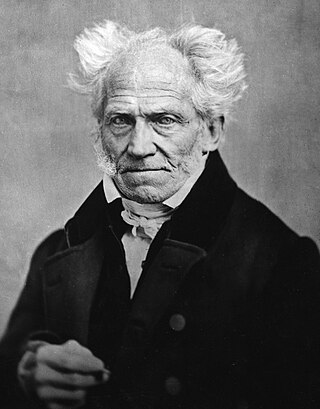 98
Arthur Schopenhauer was a German philosopher. He is known for his 1818 work The World as Will and Representation, which characterizes the phenomenal world as the manifestation of a blind and...
98
Arthur Schopenhauer was a German philosopher. He is known for his 1818 work The World as Will and Representation, which characterizes the phenomenal world as the manifestation of a blind and...
Saint Roch
 98
Roch, also called Rock in English, was a Majorcan Catholic confessor whose death is commemorated on 16 August and 9 September in Italy; he was especially invoked against the plague. He has the...
98
Roch, also called Rock in English, was a Majorcan Catholic confessor whose death is commemorated on 16 August and 9 September in Italy; he was especially invoked against the plague. He has the...
Clara Schumann
 98
Clara Josephine Schumann was a German pianist, composer, and piano teacher. Regarded as one of the most distinguished pianists of the Romantic era, she exerted her influence over the course of a...
98
Clara Josephine Schumann was a German pianist, composer, and piano teacher. Regarded as one of the most distinguished pianists of the Romantic era, she exerted her influence over the course of a...
Leonard of Noblac
 97
Leonard of Noblac, is a Frankish saint closely associated with the town and abbey of Saint-Léonard-de-Noblat, in Haute-Vienne, in the Limousin region of France. He was converted to Christianity along...
97
Leonard of Noblac, is a Frankish saint closely associated with the town and abbey of Saint-Léonard-de-Noblat, in Haute-Vienne, in the Limousin region of France. He was converted to Christianity along...
Daniel Paul Schreber
 93
Daniel Paul Schreber was a German judge who was famous for his personal account of his own experience with schizophrenia. Schreber experienced three distinct periods of acute mental illness. The...
93
Daniel Paul Schreber was a German judge who was famous for his personal account of his own experience with schizophrenia. Schreber experienced three distinct periods of acute mental illness. The...
Paracelsus
 92
Paracelsus, born Theophrastus von Hohenheim, was a Swiss physician, alchemist, lay theologian, and philosopher of the German Renaissance.
92
Paracelsus, born Theophrastus von Hohenheim, was a Swiss physician, alchemist, lay theologian, and philosopher of the German Renaissance.
Hermann von Helmholtz
 91
Hermann Ludwig Ferdinand von Helmholtz was a German physicist and physician who made significant contributions in several scientific fields, particularly hydrodynamic stability. The Helmholtz...
91
Hermann Ludwig Ferdinand von Helmholtz was a German physicist and physician who made significant contributions in several scientific fields, particularly hydrodynamic stability. The Helmholtz...
Saint Florian
 90
Florian was a Christian holy man and the patron saint of chimney sweeps; soapmakers, and firefighters. His feast day is 4 May. Florian is also the patron saint of Poland, the city of Linz, Austria,...
90
Florian was a Christian holy man and the patron saint of chimney sweeps; soapmakers, and firefighters. His feast day is 4 May. Florian is also the patron saint of Poland, the city of Linz, Austria,...
Alfred Nobel
 90
Alfred Bernhard Nobel was a Swedish chemist, inventor, engineer and businessman. He is known for inventing dynamite as well as having bequeathed his fortune to establish the Nobel Prize. He also made...
90
Alfred Bernhard Nobel was a Swedish chemist, inventor, engineer and businessman. He is known for inventing dynamite as well as having bequeathed his fortune to establish the Nobel Prize. He also made...
Paul Ehrlich
 90
Paul Ehrlich was a Nobel Prize-winning German physician and scientist who worked in the fields of hematology, immunology, and antimicrobial chemotherapy. Among his foremost achievements were finding...
90
Paul Ehrlich was a Nobel Prize-winning German physician and scientist who worked in the fields of hematology, immunology, and antimicrobial chemotherapy. Among his foremost achievements were finding...
Hugo Eckener
 90
Hugo Eckener was the manager of the Luftschiffbau Zeppelin during the inter-war years, and also the commander of the famous Graf Zeppelin for most of its record-setting flights, including the first...
90
Hugo Eckener was the manager of the Luftschiffbau Zeppelin during the inter-war years, and also the commander of the famous Graf Zeppelin for most of its record-setting flights, including the first...
Augustin Wibbelt
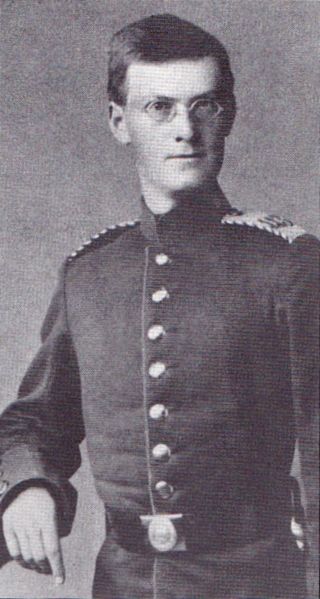 88
Augustin Wibbelt war ein deutscher römisch-katholischer Geistlicher und westfälischer Mundartdichter und -schriftsteller.
88
Augustin Wibbelt war ein deutscher römisch-katholischer Geistlicher und westfälischer Mundartdichter und -schriftsteller.
Giuseppe Verdi
 88
Giuseppe Fortunino Francesco Verdi was an Italian composer best known for his operas. He was born near Busseto to a provincial family of moderate means, receiving a musical education with the help of...
88
Giuseppe Fortunino Francesco Verdi was an Italian composer best known for his operas. He was born near Busseto to a provincial family of moderate means, receiving a musical education with the help of...
Friedrich Naumann
 88
Friedrich Naumann was a German liberal politician and Protestant parish pastor. In 1896, he founded the National-Social Association that sought to combine liberalism, nationalism and (non-Marxist)...
88
Friedrich Naumann was a German liberal politician and Protestant parish pastor. In 1896, he founded the National-Social Association that sought to combine liberalism, nationalism and (non-Marxist)...
Bettina von Arnim
 88
Bettina von Arnim, born Elisabeth Catharina Ludovica Magdalena Brentano, was a German writer and novelist.
88
Bettina von Arnim, born Elisabeth Catharina Ludovica Magdalena Brentano, was a German writer and novelist.
Arnold Schoenberg
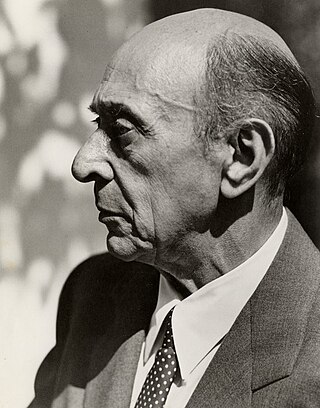 88
Arnold Schoenberg or Schönberg was an Austrian-American composer, music theorist, teacher, writer, and painter. He is widely considered one of the most influential composers of the 20th century. He...
88
Arnold Schoenberg or Schönberg was an Austrian-American composer, music theorist, teacher, writer, and painter. He is widely considered one of the most influential composers of the 20th century. He...
Manfred von Richthofen
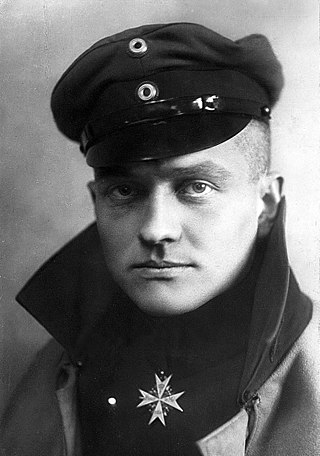 88
Manfred Albrecht Freiherr von Richthofen, known in English as Baron von Richthofen or the Red Baron, was a fighter pilot with the German Air Force during World War I. He is considered the ace-of-aces...
88
Manfred Albrecht Freiherr von Richthofen, known in English as Baron von Richthofen or the Red Baron, was a fighter pilot with the German Air Force during World War I. He is considered the ace-of-aces...
Saint Kilian
 85
Kilian, also spelled Cillian or Killian, was an Irish missionary bishop and the Apostle of Franconia, where he began his labours in the latter half of the 7th century. His feast day is 8 July.
85
Kilian, also spelled Cillian or Killian, was an Irish missionary bishop and the Apostle of Franconia, where he began his labours in the latter half of the 7th century. His feast day is 8 July.
Ernst Reuter
 82
Ernst Rudolf Johannes Reuter was the mayor of West Berlin from 1948 to 1953, during the time of the Cold War. He played a significant role in unifying the divided sectors of Berlin and publicly and...
82
Ernst Rudolf Johannes Reuter was the mayor of West Berlin from 1948 to 1953, during the time of the Cold War. He played a significant role in unifying the divided sectors of Berlin and publicly and...
Ignaz Semmelweis
 82
Ignaz Philipp Semmelweis was a Hungarian physician and scientist of German descent, who was an early pioneer of antiseptic procedures, and was described as the "saviour of mothers". Postpartum...
82
Ignaz Philipp Semmelweis was a Hungarian physician and scientist of German descent, who was an early pioneer of antiseptic procedures, and was described as the "saviour of mothers". Postpartum...
Bonifatius
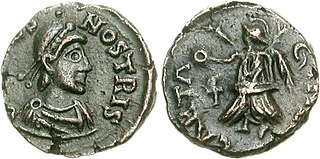 82
Bonifatius was a Roman general and governor of the diocese of Africa. He campaigned against the Visigoths in Gaul and the Vandals in North Africa. An ally of Galla Placidia, mother and advisor of...
82
Bonifatius was a Roman general and governor of the diocese of Africa. He campaigned against the Visigoths in Gaul and the Vandals in North Africa. An ally of Galla Placidia, mother and advisor of...
Max Josef Metzger
 81
Max Josef Metzger was a Catholic priest and leading German pacifist who was executed by the Nazis during World War II.
81
Max Josef Metzger was a Catholic priest and leading German pacifist who was executed by the Nazis during World War II.
Nelly Sachs
 81
Nelly Sachs was a German–Swedish poet and playwright. Her experiences resulting from the rise of the Nazis in World War II Europe transformed her into a poignant spokesperson for the grief and...
81
Nelly Sachs was a German–Swedish poet and playwright. Her experiences resulting from the rise of the Nazis in World War II Europe transformed her into a poignant spokesperson for the grief and...
Stefan Zweig
 81
Stefan Zweig was an Austrian writer. At the height of his literary career, in the 1920s and 1930s, he was one of the most widely translated and popular writers in the world.
81
Stefan Zweig was an Austrian writer. At the height of his literary career, in the 1920s and 1930s, he was one of the most widely translated and popular writers in the world.
Heinrich Böll
 80
Heinrich Theodor Böll was a German writer. Considered one of Germany's foremost post-World War II writers, Böll is a recipient of the Georg Büchner Prize (1967) and the Nobel Prize for Literature...
80
Heinrich Theodor Böll was a German writer. Considered one of Germany's foremost post-World War II writers, Böll is a recipient of the Georg Büchner Prize (1967) and the Nobel Prize for Literature...
Astrid Lindgren
 80
Astrid Anna Emilia Lindgren was a Swedish writer of fiction and screenplays. She is best known for several children's book series, featuring Pippi Longstocking, Emil of Lönneberga,...
80
Astrid Anna Emilia Lindgren was a Swedish writer of fiction and screenplays. She is best known for several children's book series, featuring Pippi Longstocking, Emil of Lönneberga,...
Marie Juchacz
 80
Marie Juchacz was a German social reformer.
80
Marie Juchacz was a German social reformer.
Sophie Scholl
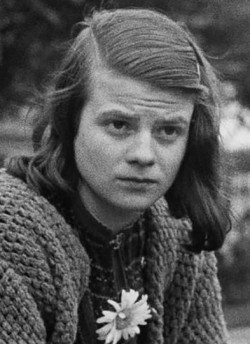 79
Sophia Magdalena Scholl was a German student and anti-Nazi political activist, active within the White Rose non-violent resistance group in Nazi Germany.
79
Sophia Magdalena Scholl was a German student and anti-Nazi political activist, active within the White Rose non-violent resistance group in Nazi Germany.
Saint Vitus
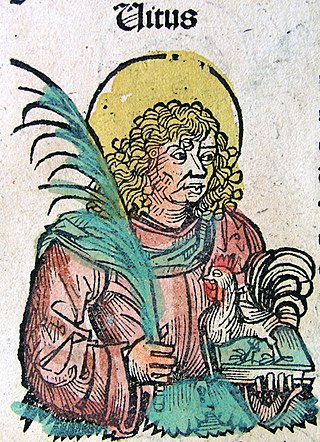 78
Vitus, whose name is sometimes rendered Guy or Guido, was a Christian martyr from Sicily. His surviving hagiography is pure legend. The dates of his actual life are unknown. He has for long been tied...
78
Vitus, whose name is sometimes rendered Guy or Guido, was a Christian martyr from Sicily. His surviving hagiography is pure legend. The dates of his actual life are unknown. He has for long been tied...
Friedrich Wilhelm von Steuben
 77
Friedrich Wilhelm August Heinrich Ferdinand von Steuben, also referred to as Baron von Steuben, was a Prussian military officer who played a leading role in the American Revolutionary War by...
77
Friedrich Wilhelm August Heinrich Ferdinand von Steuben, also referred to as Baron von Steuben, was a Prussian military officer who played a leading role in the American Revolutionary War by...
Maxim Gorky
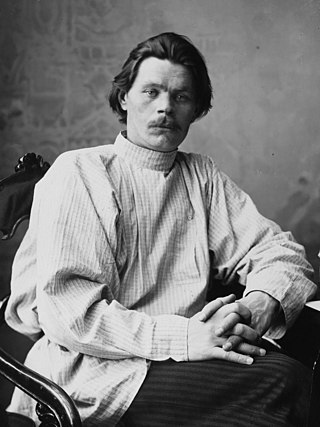 76
Alexei Maximovich Peshkov, popularly known as Maxim Gorky, was a Russian and Soviet writer and socialism proponent. He was nominated five times for the Nobel Prize in Literature. Before his success...
76
Alexei Maximovich Peshkov, popularly known as Maxim Gorky, was a Russian and Soviet writer and socialism proponent. He was nominated five times for the Nobel Prize in Literature. Before his success...
Florian Geyer
 76
Florian Geyer von Giebelstadt was a German nobleman, diplomat, and knight. He became widely known for leading peasants during the German Peasants' War.
76
Florian Geyer von Giebelstadt was a German nobleman, diplomat, and knight. He became widely known for leading peasants during the German Peasants' War.
Thomas Edison
 76
Thomas Alva Edison was an American inventor and businessman. He developed many devices in fields such as electric power generation, mass communication, sound recording, and motion pictures. These...
76
Thomas Alva Edison was an American inventor and businessman. He developed many devices in fields such as electric power generation, mass communication, sound recording, and motion pictures. These...
Adolph Diesterweg
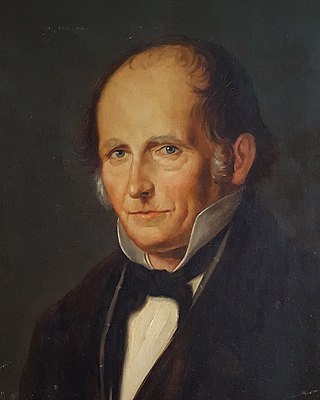 76
Friedrich Adolph Wilhelm Diesterweg was a German educator, thinker, and progressive liberal politician, who campaigned for the secularization of schools. He is said to be precursory to the reform of...
76
Friedrich Adolph Wilhelm Diesterweg was a German educator, thinker, and progressive liberal politician, who campaigned for the secularization of schools. He is said to be precursory to the reform of...
Hugo Junkers
 75
Hugo Junkers was a German aircraft engineer and aircraft designer who pioneered the design of all-metal airplanes and flying wings. His company, Junkers Flugzeug- und Motorenwerke AG, was one of the...
75
Hugo Junkers was a German aircraft engineer and aircraft designer who pioneered the design of all-metal airplanes and flying wings. His company, Junkers Flugzeug- und Motorenwerke AG, was one of the...
Ludwig Windthorst
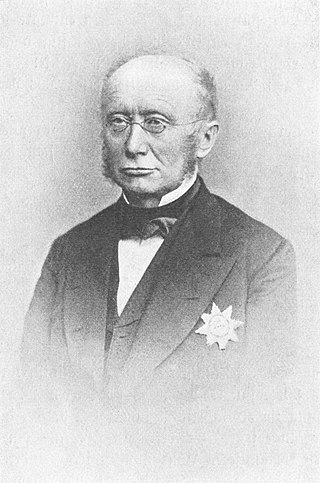 74
Baron Ludwig von Windthorst was a German politician and leader of the Catholic Centre Party and the most notable opponent of Chancellor Otto von Bismarck during the Prussian-led unification of...
74
Baron Ludwig von Windthorst was a German politician and leader of the Catholic Centre Party and the most notable opponent of Chancellor Otto von Bismarck during the Prussian-led unification of...
Elisabeth Selbert
 74
Elisabeth Selbert (1896–1986) was a German politician and lawyer. She was one of the four women who worked on the Basic Law for the Federal Republic of Germany, collectively called the Mütter des...
74
Elisabeth Selbert (1896–1986) was a German politician and lawyer. She was one of the four women who worked on the Basic Law for the Federal Republic of Germany, collectively called the Mütter des...
Felix Wankel
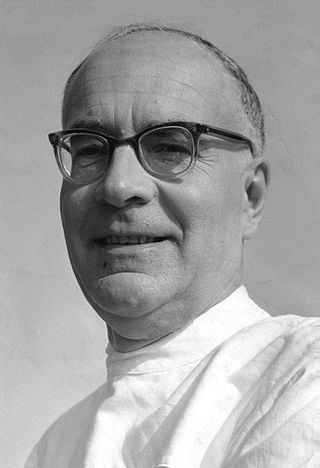 72
Felix Heinrich Wankel was a German mechanical engineer and inventor after whom the Wankel engine was named.
72
Felix Heinrich Wankel was a German mechanical engineer and inventor after whom the Wankel engine was named.
Conradin Kreutzer
 71
Conradin Kreutzer or Kreuzer was a German composer and conductor. His works include the operas Das Nachtlager in Granada and incidental music to Der Verschwender, both produced in 1834 in Vienna.
71
Conradin Kreutzer or Kreuzer was a German composer and conductor. His works include the operas Das Nachtlager in Granada and incidental music to Der Verschwender, both produced in 1834 in Vienna.
Agnes Miegel
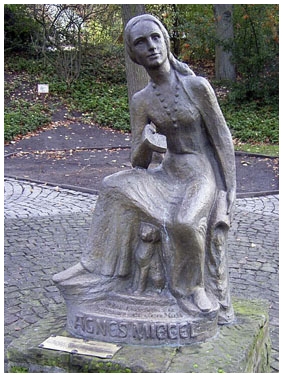 71
Agnes Miegel was a German author, journalist and poet. She is best known for her poems and short stories about East Prussia, but also for the support she gave to the Nazi Party.
71
Agnes Miegel was a German author, journalist and poet. She is best known for her poems and short stories about East Prussia, but also for the support she gave to the Nazi Party.
Otto Brenner
 70
Otto Brenner was a German trades unionist and politician. Between 1956 and 1972 he was the leader of the powerful IG Metall (Industrial Union of Metalworkers).
70
Otto Brenner was a German trades unionist and politician. Between 1956 and 1972 he was the leader of the powerful IG Metall (Industrial Union of Metalworkers).
Paul Lincke
 70
Carl Emil Paul Lincke was a German composer and theater conductor. He is considered the "father" of the Berlin operetta. His well-known compositions include "Berliner Luft", the unofficial anthem of...
70
Carl Emil Paul Lincke was a German composer and theater conductor. He is considered the "father" of the Berlin operetta. His well-known compositions include "Berliner Luft", the unofficial anthem of...
Clemens von Ketteler
 69
Clemens August Freiherr von Ketteler was a German career diplomat. He was killed during the Boxer Rebellion.
69
Clemens August Freiherr von Ketteler was a German career diplomat. He was killed during the Boxer Rebellion.
Franz Mehring
 69
Franz Erdmann Mehring was a German communist historian, literary and art critic, philosopher, and revolutionary socialist politician who was a senior member of the Spartacus League during the German...
69
Franz Erdmann Mehring was a German communist historian, literary and art critic, philosopher, and revolutionary socialist politician who was a senior member of the Spartacus League during the German...
August Lämmle
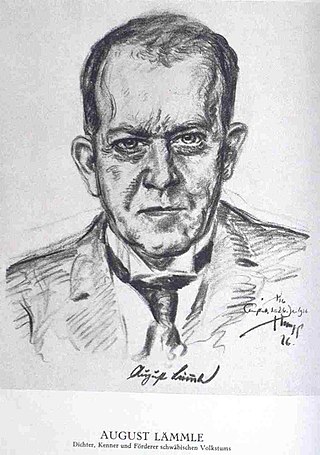 69
Julius August Lämmle war ein schwäbischer Mundartdichter.
69
Julius August Lämmle war ein schwäbischer Mundartdichter.
Kurt Tucholsky
 69
Kurt Tucholsky was a German journalist, satirist, and writer. He also wrote under the pseudonyms Kaspar Hauser, Peter Panter, Theobald Tiger and Ignaz Wrobel.
69
Kurt Tucholsky was a German journalist, satirist, and writer. He also wrote under the pseudonyms Kaspar Hauser, Peter Panter, Theobald Tiger and Ignaz Wrobel.
Francis of Assisi
 69
Giovanni di Pietro di Bernardone, known as Francis of Assisi, was an Italian mystic, poet and Catholic friar who founded the religious order of the Franciscans. He was inspired to lead a Christian...
69
Giovanni di Pietro di Bernardone, known as Francis of Assisi, was an Italian mystic, poet and Catholic friar who founded the religious order of the Franciscans. He was inspired to lead a Christian...
Eugen Bolz
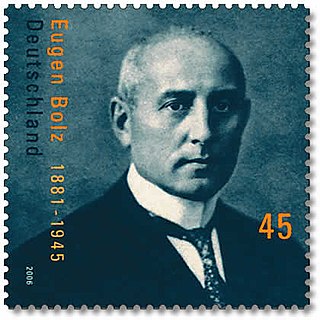 68
Eugen Anton Bolz was a German politician and a member of the resistance to the Nazi régime.
68
Eugen Anton Bolz was a German politician and a member of the resistance to the Nazi régime.
Alois Senefelder
 68
Johann Alois Senefelder was a German actor and playwright who invented the printing technique of lithography in the 1790s.
68
Johann Alois Senefelder was a German actor and playwright who invented the printing technique of lithography in the 1790s.
Ernst Heinkel
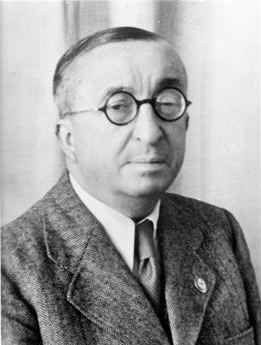 68
Dr. Ernst Heinkel was a German aircraft designer, manufacturer, Wehrwirtschaftsführer in Nazi Germany, and member of the Nazi party. His company Heinkel Flugzeugwerke produced the Heinkel He 178, the...
68
Dr. Ernst Heinkel was a German aircraft designer, manufacturer, Wehrwirtschaftsführer in Nazi Germany, and member of the Nazi party. His company Heinkel Flugzeugwerke produced the Heinkel He 178, the...
Erich Weinert
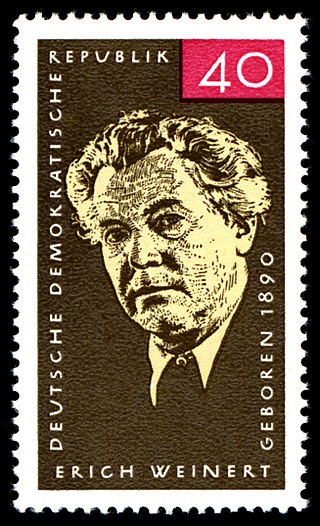 68
Erich Bernhard Gustav Weinert was a German Communist writer and a member of the Communist Party of Germany (KPD).
68
Erich Bernhard Gustav Weinert was a German Communist writer and a member of the Communist Party of Germany (KPD).
Jacques Offenbach
 68
Jacques Offenbach 20 June 1819 – 5 October 1880) was a German-born French composer, cellist and impresario. He is remembered for his nearly 100 operettas of the 1850s to the 1870s, and his...
68
Jacques Offenbach 20 June 1819 – 5 October 1880) was a German-born French composer, cellist and impresario. He is remembered for his nearly 100 operettas of the 1850s to the 1870s, and his...
Fridtjof Nansen
 68
Fridtjof Wedel-Jarlsberg Nansen was a Norwegian polymath and Nobel Peace Prize laureate. He gained prominence at various points in his life as an explorer, scientist, diplomat, humanitarian and...
68
Fridtjof Wedel-Jarlsberg Nansen was a Norwegian polymath and Nobel Peace Prize laureate. He gained prominence at various points in his life as an explorer, scientist, diplomat, humanitarian and...
Carl Maria von Weber
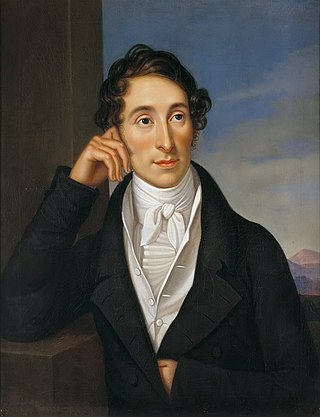 67
Carl Maria Friedrich Ernst von Weber was a German composer, conductor, virtuoso pianist, guitarist, and critic of the early Romantic period. Best known for his operas, he was a crucial figure in the...
67
Carl Maria Friedrich Ernst von Weber was a German composer, conductor, virtuoso pianist, guitarist, and critic of the early Romantic period. Best known for his operas, he was a crucial figure in the...
Gustav Mahler
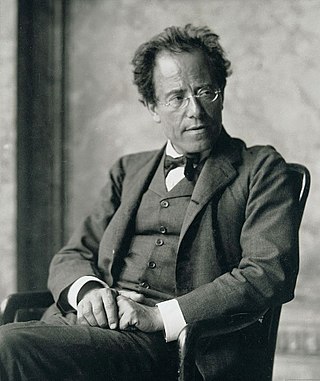 67
Gustav Mahler was an Austro-Bohemian Romantic composer, and one of the leading conductors of his generation. As a composer he acted as a bridge between the 19th-century Austro-German tradition and...
67
Gustav Mahler was an Austro-Bohemian Romantic composer, and one of the leading conductors of his generation. As a composer he acted as a bridge between the 19th-century Austro-German tradition and...
Ernst Abbe
Albrecht Altdorfer
 66
Albrecht Altdorfer was a German painter, engraver and architect of the Renaissance working in Regensburg, Bavaria. Along with Lucas Cranach the Elder and Wolf Huber he is regarded to be the main...
66
Albrecht Altdorfer was a German painter, engraver and architect of the Renaissance working in Regensburg, Bavaria. Along with Lucas Cranach the Elder and Wolf Huber he is regarded to be the main...
Claude Dornier
 66
Claude (Claudius) Honoré Désiré Dornier was a German-French airplane designer and founder of Dornier GmbH. His notable designs include the 12-engine Dornier Do X flying boat, for decades the world's...
66
Claude (Claudius) Honoré Désiré Dornier was a German-French airplane designer and founder of Dornier GmbH. His notable designs include the 12-engine Dornier Do X flying boat, for decades the world's...
Ferdinand von Steinbeis
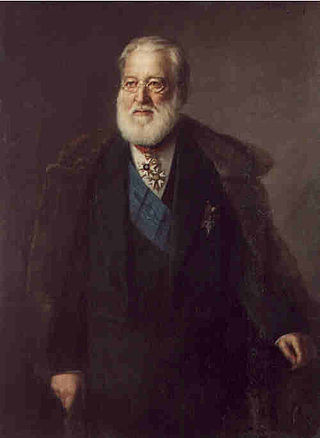 65
Ferdinand Steinbeis, ab 1855 von Steinbeis, war ein württembergischer Wirtschaftspolitiker und wichtiger Förderer der Industrialisierung in Württemberg.
65
Ferdinand Steinbeis, ab 1855 von Steinbeis, war ein württembergischer Wirtschaftspolitiker und wichtiger Förderer der Industrialisierung in Württemberg.
Anton Günther
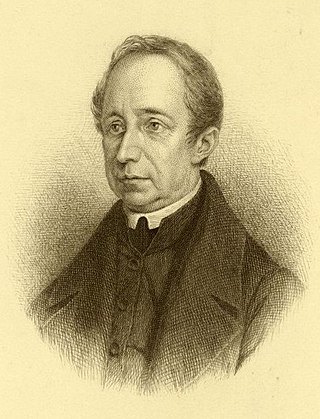 65
Anton Günther was an Austrian Roman Catholic philosopher whose work was condemned by the church as heretical tritheism. His work has been described as Liberal Catholicism and Vienna's first Catholic...
65
Anton Günther was an Austrian Roman Catholic philosopher whose work was condemned by the church as heretical tritheism. His work has been described as Liberal Catholicism and Vienna's first Catholic...
Paul the Apostle
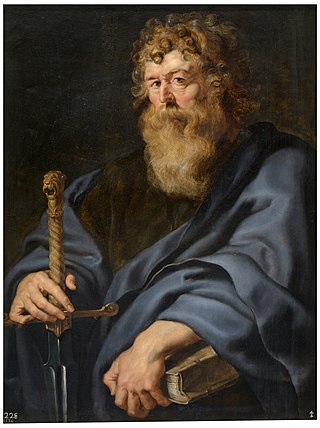 64
Paul, commonly known as Paul the Apostle and Saint Paul, was a Christian apostle who spread the teachings of Jesus in the first-century world. For his contributions towards the New Testament, he is...
64
Paul, commonly known as Paul the Apostle and Saint Paul, was a Christian apostle who spread the teachings of Jesus in the first-century world. For his contributions towards the New Testament, he is...
Gustav Heinemann
 63
Gustav Walter Heinemann was a German politician who was President of West Germany from 1969 to 1974. He served as mayor of Essen from 1946 to 1949, West German Minister of the Interior from 1949 to...
63
Gustav Walter Heinemann was a German politician who was President of West Germany from 1969 to 1974. He served as mayor of Essen from 1946 to 1949, West German Minister of the Interior from 1949 to...
Gregor Mendel
 63
Gregor Johann Mendel OSA was an Austrian-Czech biologist, meteorologist, mathematician, Augustinian friar and abbot of St. Thomas' Abbey in Brno (Brünn), Margraviate of Moravia. Mendel was born in a...
63
Gregor Johann Mendel OSA was an Austrian-Czech biologist, meteorologist, mathematician, Augustinian friar and abbot of St. Thomas' Abbey in Brno (Brünn), Margraviate of Moravia. Mendel was born in a...
Rudolf Harbig
 63
Rudolf Waldemar Harbig was a German athlete. As a middle distance runner he was best known for the 800 metres world record that he set in Milan in 1939. He also held the European record in the 400...
63
Rudolf Waldemar Harbig was a German athlete. As a middle distance runner he was best known for the 800 metres world record that he set in Milan in 1939. He also held the European record in the 400...
Hans Christian Andersen
 62
Hans Christian Andersen was a Danish author. Although a prolific writer of plays, travelogues, novels, and poems, he is best remembered for his literary fairy tales.
62
Hans Christian Andersen was a Danish author. Although a prolific writer of plays, travelogues, novels, and poems, he is best remembered for his literary fairy tales.
Clare of Assisi
 61
Chiara Offreduccio, known as Clare of Assisi, was an Italian saint who was one of the first followers of Francis of Assisi.
61
Chiara Offreduccio, known as Clare of Assisi, was an Italian saint who was one of the first followers of Francis of Assisi.
Saint Ursula
 61
Ursula was a Romano-British virgin and martyr possibly of royal origin. She is venerated as a saint in the Roman Catholic Church and the Anglican Communion. Her feast day in the pre-1970 General...
61
Ursula was a Romano-British virgin and martyr possibly of royal origin. She is venerated as a saint in the Roman Catholic Church and the Anglican Communion. Her feast day in the pre-1970 General...
James the Great
 61
James the Great was one of the Twelve Apostles of Jesus. According to the New Testament, he was the second of the apostles to die, and the first to be martyred. Saint James is the patron saint of...
61
James the Great was one of the Twelve Apostles of Jesus. According to the New Testament, he was the second of the apostles to die, and the first to be martyred. Saint James is the patron saint of...
Tilman Riemenschneider
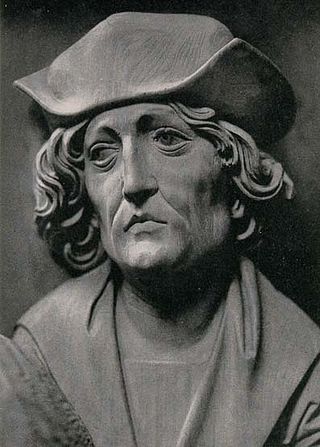 60
Tilman Riemenschneider was a German sculptor and woodcarver active in Würzburg from 1483. He was one of the most prolific and versatile sculptors of the transition period between the Late Gothic, to...
60
Tilman Riemenschneider was a German sculptor and woodcarver active in Würzburg from 1483. He was one of the most prolific and versatile sculptors of the transition period between the Late Gothic, to...
Gustav Freytag
 60
Gustav Freytag was a German novelist and playwright.
60
Gustav Freytag was a German novelist and playwright.
Maria Montessori
 60
Maria Tecla Artemisia Montessori was an Italian physician and educator best known for her philosophy of education and her writing on scientific pedagogy. At an early age, Montessori enrolled in...
60
Maria Tecla Artemisia Montessori was an Italian physician and educator best known for her philosophy of education and her writing on scientific pedagogy. At an early age, Montessori enrolled in...
Franz Grillparzer
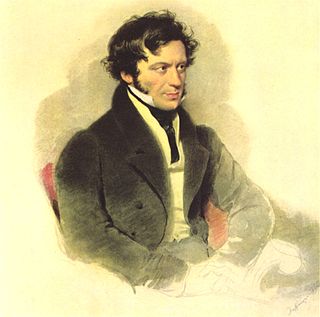 59
Franz Seraphicus Grillparzer was an Austrian writer who was considered to be the leading Austrian dramatist of the 19th century. His plays were and are frequently performed at the famous Burgtheater...
59
Franz Seraphicus Grillparzer was an Austrian writer who was considered to be the leading Austrian dramatist of the 19th century. His plays were and are frequently performed at the famous Burgtheater...
Arnold Böcklin
 59
Arnold Böcklin was a Swiss Symbolist painter. He is best known for his six versions of the Isle of the Dead, which inspired works by several late-Romantic composers.
59
Arnold Böcklin was a Swiss Symbolist painter. He is best known for his six versions of the Isle of the Dead, which inspired works by several late-Romantic composers.
Werner Seelenbinder
 59
Werner Seelenbinder was a German communist and wrestler.
59
Werner Seelenbinder was a German communist and wrestler.
Max von Schenkendorf
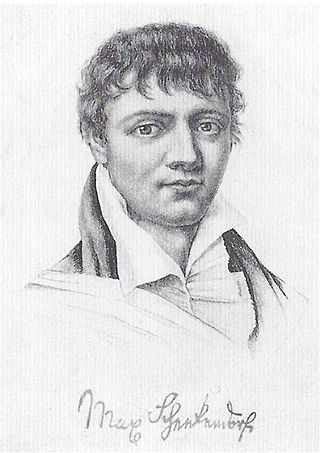 58
Gottlob Ferdinand Maximilian Gottfried von Schenkendorf was a German poet, born in Tilsit and educated at Königsberg. During the War of Liberation, in which he took an active part, Schenkendorf was...
58
Gottlob Ferdinand Maximilian Gottfried von Schenkendorf was a German poet, born in Tilsit and educated at Königsberg. During the War of Liberation, in which he took an active part, Schenkendorf was...
Karl Theodor, Duke in Bavaria
 58
Karl-Theodor, Duke in Bavaria, was a member of the House of Wittelsbach and a professional oculist. He was the favorite brother of the Empress Elisabeth of Austria, and father of Queen Elisabeth of...
58
Karl-Theodor, Duke in Bavaria, was a member of the House of Wittelsbach and a professional oculist. He was the favorite brother of the Empress Elisabeth of Austria, and father of Queen Elisabeth of...
Franz Hermann Schulze-Delitzsch
 58
Franz Hermann Schulze-Delitzsch, also Hermann Schulze, was a German politician and economist. He was responsible for the organizing of the world's first credit unions. He was also co-founder of the...
58
Franz Hermann Schulze-Delitzsch, also Hermann Schulze, was a German politician and economist. He was responsible for the organizing of the world's first credit unions. He was also co-founder of the...
Hermann Ehlers
 57
Hermann Ehlers was a German politician. He was the second president of the Bundestag from 19 October 1950 to 29 October 1954.
57
Hermann Ehlers was a German politician. He was the second president of the Bundestag from 19 October 1950 to 29 October 1954.
Saint Stephen
 57
Stephen is traditionally venerated as the protomartyr or first martyr of Christianity. According to the Acts of the Apostles, he was a deacon in the early church at Jerusalem who angered members of...
57
Stephen is traditionally venerated as the protomartyr or first martyr of Christianity. According to the Acts of the Apostles, he was a deacon in the early church at Jerusalem who angered members of...
Gustavus Adolphus
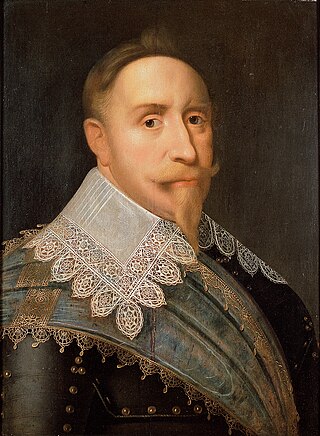 57
Gustavus Adolphus, also known in English as Gustav II Adolf or Gustav II Adolph, was King of Sweden from 1611 to 1632, and is credited with the rise of Sweden as a great European power. During his...
57
Gustavus Adolphus, also known in English as Gustav II Adolf or Gustav II Adolph, was King of Sweden from 1611 to 1632, and is credited with the rise of Sweden as a great European power. During his...
Wilhelm Wagenfeld
 56
Wilhelm Wagenfeld was a German industrial designer and former student of the Bauhaus art school. He designed glass and metal works for the Jenaer Glaswerk Schott & Gen., the Vereinigte Lausitzer...
56
Wilhelm Wagenfeld was a German industrial designer and former student of the Bauhaus art school. He designed glass and metal works for the Jenaer Glaswerk Schott & Gen., the Vereinigte Lausitzer...
Wilhelm Pieck
 55
Friedrich Wilhelm Reinhold Pieck was a German communist politician who served as the chairman of the Socialist Unity Party from 1946 to 1950 and as president of the German Democratic Republic from...
55
Friedrich Wilhelm Reinhold Pieck was a German communist politician who served as the chairman of the Socialist Unity Party from 1946 to 1950 and as president of the German Democratic Republic from...
Saint Gall
 54
Gall according to hagiographic tradition was a disciple and one of the traditional twelve companions of Columbanus on his mission from Ireland to the continent. However, he may have originally come...
54
Gall according to hagiographic tradition was a disciple and one of the traditional twelve companions of Columbanus on his mission from Ireland to the continent. However, he may have originally come...
Saint Maurice
 54
Maurice was an Egyptian military leader who headed the legendary Theban Legion of Rome in the 3rd century, and is one of the favourite and most widely venerated saints of that martyred group. He is...
54
Maurice was an Egyptian military leader who headed the legendary Theban Legion of Rome in the 3rd century, and is one of the favourite and most widely venerated saints of that martyred group. He is...
John Bosco
 53
John Melchior Bosco, SDB, popularly known as Don Bosco, was an Italian Catholic priest, educator and writer of the 19th century. While working in Turin, where the population suffered many of the ill...
53
John Melchior Bosco, SDB, popularly known as Don Bosco, was an Italian Catholic priest, educator and writer of the 19th century. While working in Turin, where the population suffered many of the ill...
Robert Stolz
 53
Robert Elisabeth Stolz was an Austrian songwriter and conductor as well as a composer of operettas and film music.
53
Robert Elisabeth Stolz was an Austrian songwriter and conductor as well as a composer of operettas and film music.
Galileo Galilei
 53
Galileo di Vincenzo Bonaiuti de' Galilei, commonly referred to as Galileo Galilei or simply Galileo, was an Italian astronomer, physicist and engineer, sometimes described as a polymath. He was born...
53
Galileo di Vincenzo Bonaiuti de' Galilei, commonly referred to as Galileo Galilei or simply Galileo, was an Italian astronomer, physicist and engineer, sometimes described as a polymath. He was born...
Nikolaus Gross
 53
Nikolaus Gross was a German Roman Catholic. Gross first worked in crafts requiring skilled labor before becoming a coal miner like his father while joining a range of trade union and political...
53
Nikolaus Gross was a German Roman Catholic. Gross first worked in crafts requiring skilled labor before becoming a coal miner like his father while joining a range of trade union and political...
Wilhelm Leibl
 52
Wilhelm Maria Hubertus Leibl was a German realist painter of portraits and scenes of peasant life.
52
Wilhelm Maria Hubertus Leibl was a German realist painter of portraits and scenes of peasant life.
Ernst Barlach
 51
Ernst Heinrich Barlach was a German expressionist sculptor, medallist, printmaker and writer. Although he was a supporter of the war in the years leading to World War I, his participation in the...
51
Ernst Heinrich Barlach was a German expressionist sculptor, medallist, printmaker and writer. Although he was a supporter of the war in the years leading to World War I, his participation in the...
Fritz Erler
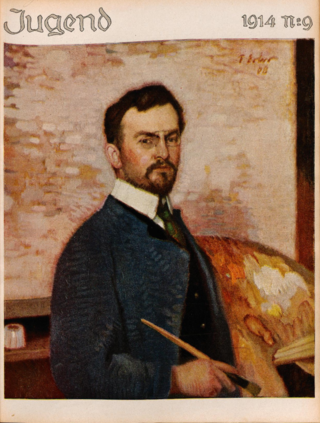 50
Fritz Erler was a German painter, graphic designer and scenic designer. Although most talented as an interior designer, he is perhaps best remembered for several propaganda posters he produced during...
50
Fritz Erler was a German painter, graphic designer and scenic designer. Although most talented as an interior designer, he is perhaps best remembered for several propaganda posters he produced during...
Otto Wels
 50
Otto Wels was a German politician who served as a member of the Reichstag from 1912 to 1933 and as the chairman of the Social Democratic Party (SPD) from 1919 until his death in 1939. He was military...
50
Otto Wels was a German politician who served as a member of the Reichstag from 1912 to 1933 and as the chairman of the Social Democratic Party (SPD) from 1919 until his death in 1939. He was military...
Georg Kerschensteiner
 50
Georg Michael Anton Kerschensteiner was a German professor and educational theorist. He was director of public schools in Munich from 1895 to 1919 and became a professor at the University of Munich...
50
Georg Michael Anton Kerschensteiner was a German professor and educational theorist. He was director of public schools in Munich from 1895 to 1919 and became a professor at the University of Munich...
Martin Schongauer
 50
Martin Schongauer, also known as Martin Schön or Hübsch Martin by his contemporaries, was an Alsatian engraver and painter. He was the most important printmaker north of the Alps before Albrecht...
50
Martin Schongauer, also known as Martin Schön or Hübsch Martin by his contemporaries, was an Alsatian engraver and painter. He was the most important printmaker north of the Alps before Albrecht...
Peter Cornelius
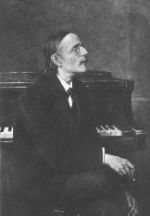 50
Carl August Peter Cornelius was a German composer, writer about music, poet and translator.
50
Carl August Peter Cornelius was a German composer, writer about music, poet and translator.
Friedrich Wöhler
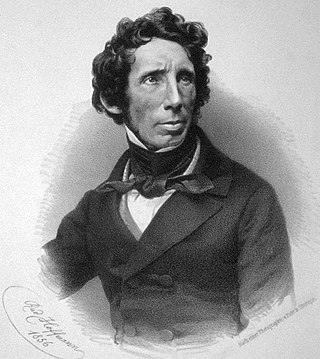 50
Friedrich Wöhler FRS(For) HonFRSE was a German chemist known for his work in both organic and inorganic chemistry, being the first to isolate the chemical elements beryllium and yttrium in pure...
50
Friedrich Wöhler FRS(For) HonFRSE was a German chemist known for his work in both organic and inorganic chemistry, being the first to isolate the chemical elements beryllium and yttrium in pure...
Stauffenberg
 50
The Schenk von Stauffenberg family is a Roman Catholic Uradel German noble family from Swabia, Germany. The family's best-known recent member was Colonel Claus Schenk Graf von Stauffenberg – the key...
50
The Schenk von Stauffenberg family is a Roman Catholic Uradel German noble family from Swabia, Germany. The family's best-known recent member was Colonel Claus Schenk Graf von Stauffenberg – the key...
Gabriele Münter
 50
Gabriele Münter was a German expressionist painter who was at the forefront of the Munich avant-garde in the early 20th century. She studied and lived with the painter Wassily Kandinsky and was a...
50
Gabriele Münter was a German expressionist painter who was at the forefront of the Munich avant-garde in the early 20th century. She studied and lived with the painter Wassily Kandinsky and was a...
Balthasar Neumann
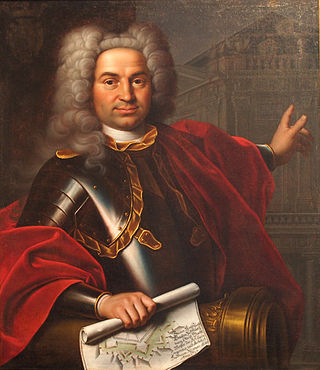 49
Johann Balthasar Neumann, usually known as Balthasar Neumann, was a German architect and military artillery engineer who developed a refined brand of Baroque architecture, fusing Austrian, Bohemian,...
49
Johann Balthasar Neumann, usually known as Balthasar Neumann, was a German architect and military artillery engineer who developed a refined brand of Baroque architecture, fusing Austrian, Bohemian,...
Alfred Krupp
 48
Alfred Krupp was a German steel manufacturer and inventor; the largest arms supplier of his era, which earned him the nickname "The Cannon King".
48
Alfred Krupp was a German steel manufacturer and inventor; the largest arms supplier of his era, which earned him the nickname "The Cannon King".
Adam Opel
 48
Adam Opel was a German entrepreneur who founded the automobile company Adam Opel AG.
48
Adam Opel was a German entrepreneur who founded the automobile company Adam Opel AG.
Wernher von Braun
 48
Wernher Magnus Maximilian Freiherr von Braun was a German-American aerospace engineer and space architect. He was a member of the Nazi Party and Allgemeine SS, the leading figure in the development...
48
Wernher Magnus Maximilian Freiherr von Braun was a German-American aerospace engineer and space architect. He was a member of the Nazi Party and Allgemeine SS, the leading figure in the development...
Willi Bleicher
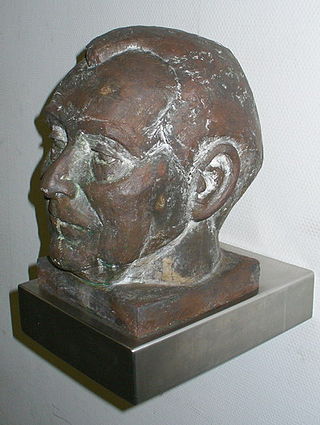 47
Willi Bleicher was one of the best known and, according to at least one source, one of the most important and effective German trades union leaders of the post-war decades.
47
Willi Bleicher was one of the best known and, according to at least one source, one of the most important and effective German trades union leaders of the post-war decades.
Carl Schurz
 47
Carl Schurz was a German revolutionary and an American statesman, journalist, and reformer. He migrated to the United States after the German revolutions of 1848–1849 and became a prominent member of...
47
Carl Schurz was a German revolutionary and an American statesman, journalist, and reformer. He migrated to the United States after the German revolutions of 1848–1849 and became a prominent member of...
Georg Herwegh
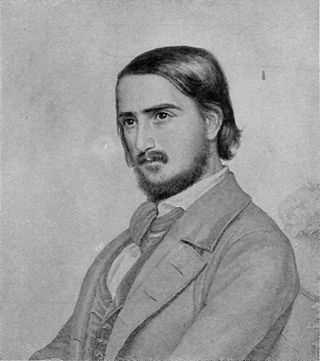 47
Georg Friedrich Rudolph Theodor Herwegh was a German poet, who is considered part of the Young Germany movement.
47
Georg Friedrich Rudolph Theodor Herwegh was a German poet, who is considered part of the Young Germany movement.
Ingeborg Bachmann
 47
Ingeborg Bachmann was an Austrian poet and author. She is regarded as one of the major voices of German-language literature in the 20th century.
47
Ingeborg Bachmann was an Austrian poet and author. She is regarded as one of the major voices of German-language literature in the 20th century.
John F. Kennedy
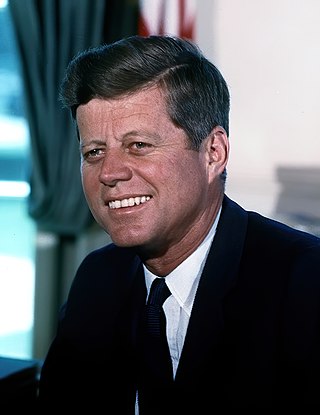 47
John Fitzgerald Kennedy, often referred to as JFK, was an American politician who served as the 35th president of the United States from 1961 until his assassination in 1963. He was the youngest...
47
John Fitzgerald Kennedy, often referred to as JFK, was an American politician who served as the 35th president of the United States from 1961 until his assassination in 1963. He was the youngest...
Karl Ferdinand Braun
 47
Karl Ferdinand Braun was a German electrical engineer, inventor, physicist and Nobel laureate in physics. Braun contributed significantly to the development of radio and television technology and...
47
Karl Ferdinand Braun was a German electrical engineer, inventor, physicist and Nobel laureate in physics. Braun contributed significantly to the development of radio and television technology and...
Peter Henlein
 47
Peter Henlein, a locksmith and clockmaker of Nuremberg, Germany, is often considered the inventor of the watch. He was one of the first craftsmen to make small ornamental portable clocks which were...
47
Peter Henlein, a locksmith and clockmaker of Nuremberg, Germany, is often considered the inventor of the watch. He was one of the first craftsmen to make small ornamental portable clocks which were...
Johannes R. Becher
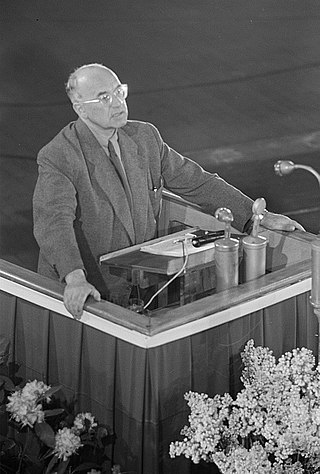 46
Johannes Robert Becher was a German politician, novelist, and poet. He was affiliated with the Communist Party of Germany (KPD) before World War II. At one time, he was part of the literary...
46
Johannes Robert Becher was a German politician, novelist, and poet. He was affiliated with the Communist Party of Germany (KPD) before World War II. At one time, he was part of the literary...
Friedrich Harkort
 46
Friedrich Harkort, known as the "Father of the Ruhr," was an early prominent German industrialist and pioneer of industrial development in the Ruhr region.
46
Friedrich Harkort, known as the "Father of the Ruhr," was an early prominent German industrialist and pioneer of industrial development in the Ruhr region.
Heinrich Mann
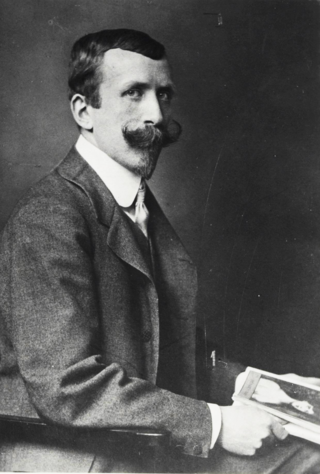 46
Luiz Heinrich Mann, best known as simply Heinrich Mann, was a German writer known for his socio-political novels. From 1930 until 1933, he was president of the fine poetry division of the Prussian...
46
Luiz Heinrich Mann, best known as simply Heinrich Mann, was a German writer known for his socio-political novels. From 1930 until 1933, he was president of the fine poetry division of the Prussian...
Konrad Lorenz
 46
Konrad Zacharias Lorenz was an Austrian zoologist, ethologist, and ornithologist. He shared the 1973 Nobel Prize in Physiology or Medicine with Nikolaas Tinbergen and Karl von Frisch. He is often...
46
Konrad Zacharias Lorenz was an Austrian zoologist, ethologist, and ornithologist. He shared the 1973 Nobel Prize in Physiology or Medicine with Nikolaas Tinbergen and Karl von Frisch. He is often...
Carl Diem
 46
Carl Diem was a German sports administrator, and as Secretary General of the Organizing Committee of the Berlin Olympic Games, the chief organizer of the 1936 Olympic Summer Games.
46
Carl Diem was a German sports administrator, and as Secretary General of the Organizing Committee of the Berlin Olympic Games, the chief organizer of the 1936 Olympic Summer Games.
John the Evangelist
 45
John the Evangelist is the name traditionally given to the author of the Gospel of John. Christians have traditionally identified him with John the Apostle, John of Patmos, and John the Presbyter,...
45
John the Evangelist is the name traditionally given to the author of the Gospel of John. Christians have traditionally identified him with John the Apostle, John of Patmos, and John the Presbyter,...
Georg Elser
 44
Johann Georg Elser was a German worker who planned and carried out an elaborate assassination attempt on Adolf Hitler and other high-ranking Nazi leaders on 8 November 1939 at the Bürgerbräukeller in...
44
Johann Georg Elser was a German worker who planned and carried out an elaborate assassination attempt on Adolf Hitler and other high-ranking Nazi leaders on 8 November 1939 at the Bürgerbräukeller in...
Alfred Brehm
 44
Alfred Edmund Brehm was a German zoologist, writer, director of zoological gardens and the son of Christian Ludwig Brehm, a famous pastor and ornithologist.
44
Alfred Edmund Brehm was a German zoologist, writer, director of zoological gardens and the son of Christian Ludwig Brehm, a famous pastor and ornithologist.
Claus von Stauffenberg
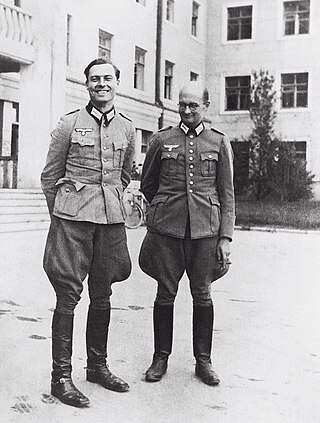 44
Claus von Stauffenberg was a German army officer who is best known for his failed attempt on 20 July 1944 to assassinate Adolf Hitler at the Wolf's Lair.
44
Claus von Stauffenberg was a German army officer who is best known for his failed attempt on 20 July 1944 to assassinate Adolf Hitler at the Wolf's Lair.
Werner Heisenberg
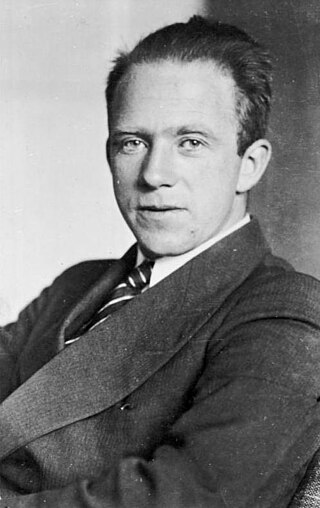 43
Werner Karl Heisenberg was a German theoretical physicist, one of the main pioneers of the theory of quantum mechanics, and a principal scientist in the Nazi nuclear weapons program during World War...
43
Werner Karl Heisenberg was a German theoretical physicist, one of the main pioneers of the theory of quantum mechanics, and a principal scientist in the Nazi nuclear weapons program during World War...
Moritz von Schwind
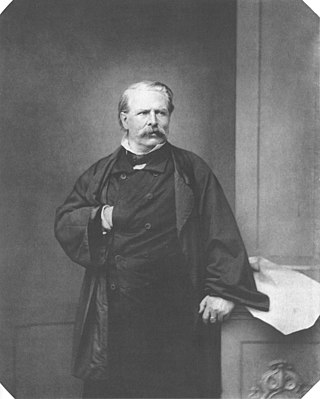 43
Moritz von Schwind was an Austrian painter, born in Vienna. Schwind's genius was lyrical—he drew inspiration from chivalry, folklore, and the songs of the people. Schwind died in Pöcking in Bavaria,...
43
Moritz von Schwind was an Austrian painter, born in Vienna. Schwind's genius was lyrical—he drew inspiration from chivalry, folklore, and the songs of the people. Schwind died in Pöcking in Bavaria,...
Bernhard Letterhaus
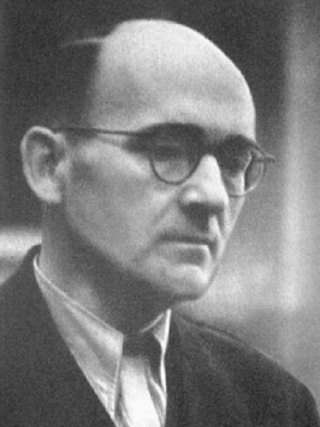 43
Bernhard Letterhaus was a German Catholic Trade Unionist and member of the resistance to Nazism.
43
Bernhard Letterhaus was a German Catholic Trade Unionist and member of the resistance to Nazism.
Robert Blum
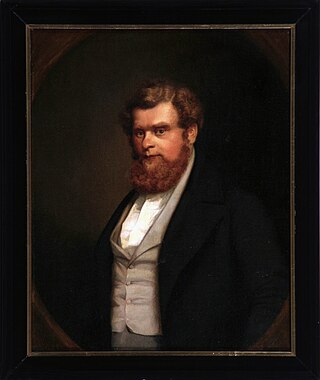 43
Robert Blum was a German democratic politician, publicist, poet, publisher, revolutionary and member of the National Assembly of 1848. In his fight for a strong, unified Germany he opposed...
43
Robert Blum was a German democratic politician, publicist, poet, publisher, revolutionary and member of the National Assembly of 1848. In his fight for a strong, unified Germany he opposed...
Veit Stoss
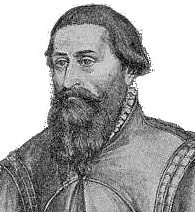 43
Veit Stoss was a leading German sculptor, mostly working with wood, whose career covered the transition between the late Gothic and the Northern Renaissance. His style emphasized pathos and emotion,...
43
Veit Stoss was a leading German sculptor, mostly working with wood, whose career covered the transition between the late Gothic and the Northern Renaissance. His style emphasized pathos and emotion,...
Rudolf Kinau
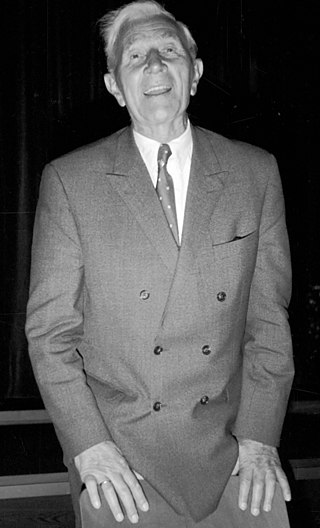 43
Rudolf Kinau, also known as Rudi Kinau was a Low German writer.
43
Rudolf Kinau, also known as Rudi Kinau was a Low German writer.
Ludwig von Vincke
 43
Friedrich Ludwig Wilhelm Philip Freiherr von Vincke was a liberal Prussian statesman. Born as member of an old Westphalian noble family and educated at three universities in a broad variety of...
43
Friedrich Ludwig Wilhelm Philip Freiherr von Vincke was a liberal Prussian statesman. Born as member of an old Westphalian noble family and educated at three universities in a broad variety of...
Else Lasker-Schüler
 43
Else Lasker-Schüler was a German-Jewish poet and playwright famous for her bohemian lifestyle in Berlin and her poetry. She was one of the few women affiliated with the Expressionist movement....
43
Else Lasker-Schüler was a German-Jewish poet and playwright famous for her bohemian lifestyle in Berlin and her poetry. She was one of the few women affiliated with the Expressionist movement....
E. T. A. Hoffmann
 42
Ernst Theodor Amadeus Hoffmann was a German Romantic author of fantasy and Gothic horror, a jurist, composer, music critic and artist. His stories form the basis of Jacques Offenbach's opera The...
42
Ernst Theodor Amadeus Hoffmann was a German Romantic author of fantasy and Gothic horror, a jurist, composer, music critic and artist. His stories form the basis of Jacques Offenbach's opera The...
Helene Weber
 42
Helene Weber was a German politician and was known as a women's rights activist. In the Weimar Republic she rose to prominence in the Catholic Centre Party. In 1945 she was among the founders of the...
42
Helene Weber was a German politician and was known as a women's rights activist. In the Weimar Republic she rose to prominence in the Catholic Centre Party. In 1945 she was among the founders of the...
James Watt
 42
James Watt was a Scottish inventor, mechanical engineer, and chemist who improved on Thomas Newcomen's 1712 Newcomen steam engine with his Watt steam engine in 1776, which was fundamental to the...
42
James Watt was a Scottish inventor, mechanical engineer, and chemist who improved on Thomas Newcomen's 1712 Newcomen steam engine with his Watt steam engine in 1776, which was fundamental to the...
Heinrich Schütz
 41
Heinrich Schütz was a German early Baroque composer and organist, generally regarded as the most important German composer before Johann Sebastian Bach and one of the most important composers of the...
41
Heinrich Schütz was a German early Baroque composer and organist, generally regarded as the most important German composer before Johann Sebastian Bach and one of the most important composers of the...
Otto von Guericke
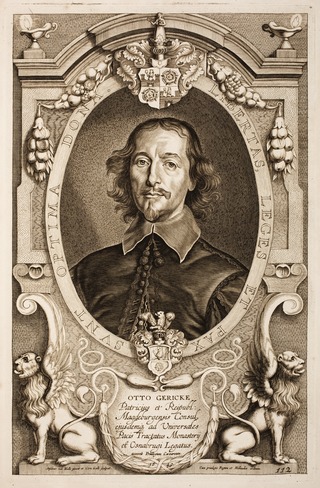 41
Otto von Guericke was a German scientist, inventor, mathematician and physicist. His pioneering scientific work, the development of experimental methods and repeatable demonstrations on the physics...
41
Otto von Guericke was a German scientist, inventor, mathematician and physicist. His pioneering scientific work, the development of experimental methods and repeatable demonstrations on the physics...
Ludwig Anzengruber
 41
Ludwig Anzengruber was an Austrian dramatist, novelist and poet. He was born and died in Vienna, Austria.
41
Ludwig Anzengruber was an Austrian dramatist, novelist and poet. He was born and died in Vienna, Austria.
Ernest Louis, Grand Duke of Hesse
 41
Ernest Louis was the last Grand Duke of Hesse and by Rhine, reigning from 1892 until 1918.
41
Ernest Louis was the last Grand Duke of Hesse and by Rhine, reigning from 1892 until 1918.
Lena Christ
 41
Lena Christ German: [lɛna krɪst] was a German writer.
41
Lena Christ German: [lɛna krɪst] was a German writer.
Carlo Schmid (German politician)
 41
Carlo Schmid was a German academic and politician of the Social Democratic Party of Germany (SPD).
41
Carlo Schmid was a German academic and politician of the Social Democratic Party of Germany (SPD).
Fritz Haber
 41
Fritz Haber was a German chemist who received the Nobel Prize in Chemistry in 1918 for his invention of the Haber–Bosch process, a method used in industry to synthesize ammonia from nitrogen gas and...
41
Fritz Haber was a German chemist who received the Nobel Prize in Chemistry in 1918 for his invention of the Haber–Bosch process, a method used in industry to synthesize ammonia from nitrogen gas and...
Siegfried Lenz
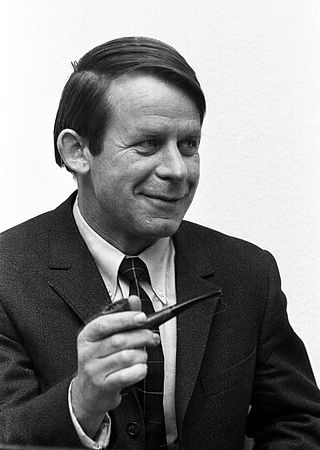 41
Siegfried Lenz was a German writer of novels, short stories and essays, as well as dramas for radio and the theatre. In 2000 he received the Goethe Prize on the 250th Anniversary of Johann Wolfgang...
41
Siegfried Lenz was a German writer of novels, short stories and essays, as well as dramas for radio and the theatre. In 2000 he received the Goethe Prize on the 250th Anniversary of Johann Wolfgang...
John Amos Comenius
 40
John Amos Comenius was a Moravian philosopher, pedagogue and theologian who is considered the father of modern education. He served as the last bishop of the Unity of the Brethren before becoming a...
40
John Amos Comenius was a Moravian philosopher, pedagogue and theologian who is considered the father of modern education. He served as the last bishop of the Unity of the Brethren before becoming a...
Heinrich Lübke
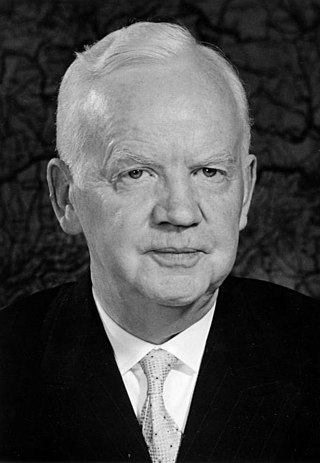 40
Karl Heinrich Lübke was a German politician, who served as president of West Germany from 1959 to 1969.
40
Karl Heinrich Lübke was a German politician, who served as president of West Germany from 1959 to 1969.
Johann von Werth
 40
Johann von Werth, also Jan von Werth or in French Jean de Werth, was a German general of cavalry in the Thirty Years' War.
40
Johann von Werth, also Jan von Werth or in French Jean de Werth, was a German general of cavalry in the Thirty Years' War.
Oskar von Miller
 39
Oskar Franz Xaver Miller, since 1875 von Miller, was a German engineer and founder of the Deutsches Museum, a large museum of technology and science in Munich.
39
Oskar Franz Xaver Miller, since 1875 von Miller, was a German engineer and founder of the Deutsches Museum, a large museum of technology and science in Munich.
Louis Pasteur
 39
Louis Pasteur was a French chemist, pharmacist, and microbiologist renowned for his discoveries of the principles of vaccination, microbial fermentation, and pasteurization, the last of which was...
39
Louis Pasteur was a French chemist, pharmacist, and microbiologist renowned for his discoveries of the principles of vaccination, microbial fermentation, and pasteurization, the last of which was...
Andreas Schlüter
 39
Andreas Schlüter was a German baroque sculptor and architect, active in the Holy Roman Empire of the German Nation, the Polish–Lithuanian Commonwealth, and the Russian Tsardom.
39
Andreas Schlüter was a German baroque sculptor and architect, active in the Holy Roman Empire of the German Nation, the Polish–Lithuanian Commonwealth, and the Russian Tsardom.
Otto Nuschke
 39
Otto Nuschke was a German politician.
39
Otto Nuschke was a German politician.
Charles Lindbergh
 39
Charles Augustus Lindbergh was an American aviator and military officer. On May 20–21, 1927, he made the first nonstop flight from New York City to Paris, a distance of 3,600 miles (5,800 km), flying...
39
Charles Augustus Lindbergh was an American aviator and military officer. On May 20–21, 1927, he made the first nonstop flight from New York City to Paris, a distance of 3,600 miles (5,800 km), flying...
Robert Schuman
 39
Jean-Baptiste Nicolas Robert Schuman was a Luxembourg-born French statesman. Schuman was a Christian democratic political thinker and activist. Twice Prime Minister of France, a reformist Minister of...
39
Jean-Baptiste Nicolas Robert Schuman was a Luxembourg-born French statesman. Schuman was a Christian democratic political thinker and activist. Twice Prime Minister of France, a reformist Minister of...
Hildegard of Bingen
 39
Hildegard of Bingen, also known as Saint Hildegard and the Sibyl of the Rhine, was a German Benedictine abbess and polymath active as a writer, composer, philosopher, mystic, visionary, and as a...
39
Hildegard of Bingen, also known as Saint Hildegard and the Sibyl of the Rhine, was a German Benedictine abbess and polymath active as a writer, composer, philosopher, mystic, visionary, and as a...
John Calvin
 38
John Calvin was a French theologian, pastor and reformer in Geneva during the Protestant Reformation. He was a principal figure in the development of the system of Christian theology later called...
38
John Calvin was a French theologian, pastor and reformer in Geneva during the Protestant Reformation. He was a principal figure in the development of the system of Christian theology later called...
Leonhard Euler
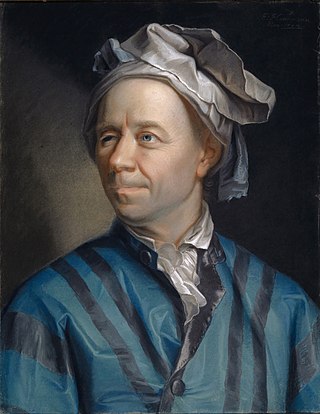 38
Leonhard Euler was a Swiss mathematician, physicist, astronomer, geographer, logician, and engineer who founded the studies of graph theory and topology and made pioneering and influential...
38
Leonhard Euler was a Swiss mathematician, physicist, astronomer, geographer, logician, and engineer who founded the studies of graph theory and topology and made pioneering and influential...
Yuri Gagarin
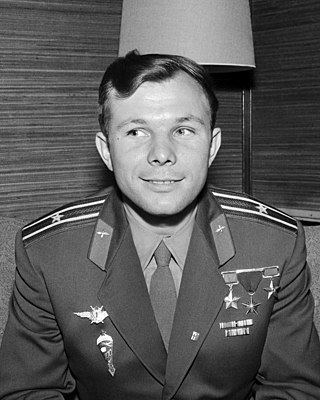 38
Yuri Alekseyevich Gagarin was a Soviet pilot and cosmonaut who, aboard the first successful crewed spaceflight, became the first human to journey into outer space. Travelling on Vostok 1, Gagarin...
38
Yuri Alekseyevich Gagarin was a Soviet pilot and cosmonaut who, aboard the first successful crewed spaceflight, became the first human to journey into outer space. Travelling on Vostok 1, Gagarin...
Max Immelmann
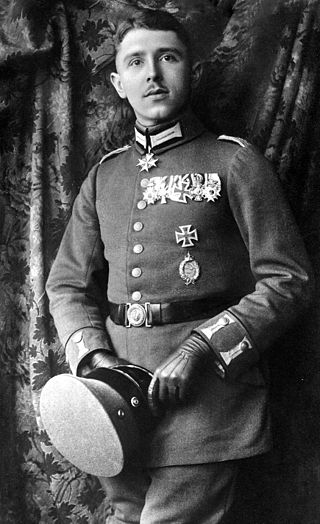 38
Max Immelmann PLM was the first German World War I flying ace. He was a pioneer in fighter aviation and is often mistakenly credited with the first aerial victory using a synchronized gun, which was...
38
Max Immelmann PLM was the first German World War I flying ace. He was a pioneer in fighter aviation and is often mistakenly credited with the first aerial victory using a synchronized gun, which was...
Friedrich Wilhelm
 37
The German name Friedrich Wilhelm may refer to:
37
The German name Friedrich Wilhelm may refer to:
Adolf Reichwein
 37
Adolf Reichwein was a German educator, economist, and cultural policymaker for the SPD, who resisted the policies of Nazi Germany.
37
Adolf Reichwein was a German educator, economist, and cultural policymaker for the SPD, who resisted the policies of Nazi Germany.
Hermann Sudermann
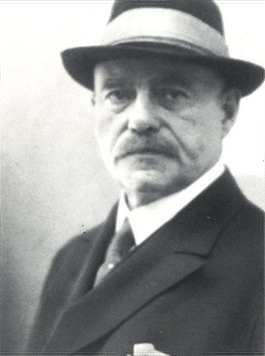 37
Hermann Sudermann was a German dramatist and novelist.
37
Hermann Sudermann was a German dramatist and novelist.
Hannah Arendt
 37
Hannah Arendt was a German-American historian and philosopher. She was one of the most influential political theorists of the 20th century.
37
Hannah Arendt was a German-American historian and philosopher. She was one of the most influential political theorists of the 20th century.
Martin Niemöller
 37
Friedrich Gustav Emil Martin Niemöller was a German theologian and Lutheran pastor. He is best known for his opposition to the Nazi regime during the late 1930s and for his widely quoted 1946 poem...
37
Friedrich Gustav Emil Martin Niemöller was a German theologian and Lutheran pastor. He is best known for his opposition to the Nazi regime during the late 1930s and for his widely quoted 1946 poem...
Max Slevogt
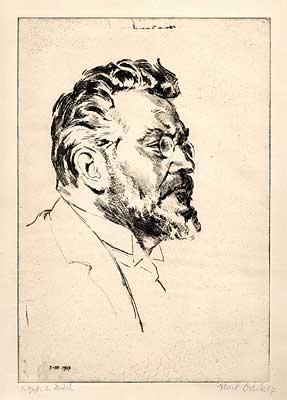 37
Max Slevogt was a German Impressionist painter and illustrator, best known for his landscapes. He was, together with Lovis Corinth and Max Liebermann, one of the foremost representatives in Germany...
37
Max Slevogt was a German Impressionist painter and illustrator, best known for his landscapes. He was, together with Lovis Corinth and Max Liebermann, one of the foremost representatives in Germany...
Otto Dix
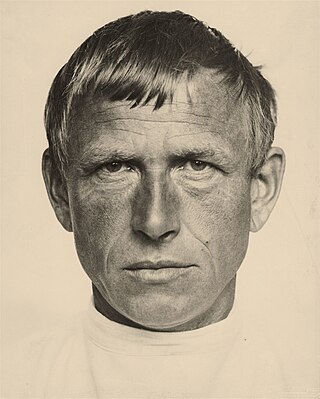 36
Wilhelm Heinrich Otto Dix was a German painter and printmaker, noted for his ruthless and harshly realistic depictions of German society during the Weimar Republic and the brutality of war. Along...
36
Wilhelm Heinrich Otto Dix was a German painter and printmaker, noted for his ruthless and harshly realistic depictions of German society during the Weimar Republic and the brutality of war. Along...
Novalis
 36
Georg Philipp Friedrich Freiherr von Hardenberg, pen name Novalis, was a German aristocrat and polymath, who was a poet, novelist, philosopher and mystic. He is regarded as an influential figure of...
36
Georg Philipp Friedrich Freiherr von Hardenberg, pen name Novalis, was a German aristocrat and polymath, who was a poet, novelist, philosopher and mystic. He is regarded as an influential figure of...
Peter Dörfler
 36
Peter Dörfler war ein deutscher katholischer Priester, Erzieher und Dichter.
36
Peter Dörfler war ein deutscher katholischer Priester, Erzieher und Dichter.
Elly Heuss-Knapp
 36
Elisabeth Eleonore Anna Justine Heuss-Knapp was a German politician of the Free Democratic Party (FDP), social reformer, author and wife of German president Theodor Heuss. She was the founder of the...
36
Elisabeth Eleonore Anna Justine Heuss-Knapp was a German politician of the Free Democratic Party (FDP), social reformer, author and wife of German president Theodor Heuss. She was the founder of the...
August Horch
 35
August Horch was a German engineer and automobile pioneer, the founder of the manufacturing giant that eventually became Audi.
35
August Horch was a German engineer and automobile pioneer, the founder of the manufacturing giant that eventually became Audi.
Saint Peter
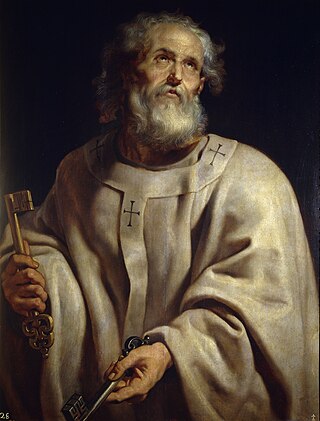 35
Saint Peter, also known as Peter the Apostle, Simon Peter, Simeon, Simon, or Cephas, was one of the Twelve Apostles of Jesus Christ and one of the first leaders of the early Christian Church. He...
35
Saint Peter, also known as Peter the Apostle, Simon Peter, Simeon, Simon, or Cephas, was one of the Twelve Apostles of Jesus Christ and one of the first leaders of the early Christian Church. He...
Clara Viebig
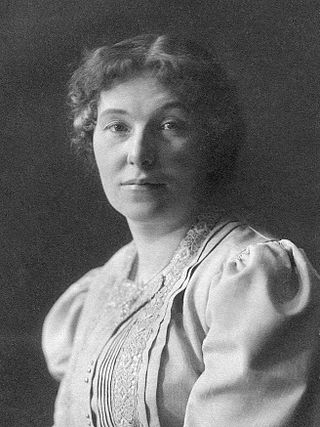 35
Clara Emma Amalia Viebig was a German author.
35
Clara Emma Amalia Viebig was a German author.
Georg August Zinn
 35
Georg August Zinn was a German lawyer and a politician of the SPD. He was a member of the Bundestag from 1949 to 1951 representing Kassel, the 2nd Minister-President of Hesse from 1950 to 1969 and...
35
Georg August Zinn was a German lawyer and a politician of the SPD. He was a member of the Bundestag from 1949 to 1951 representing Kassel, the 2nd Minister-President of Hesse from 1950 to 1969 and...
Friedrich Nietzsche
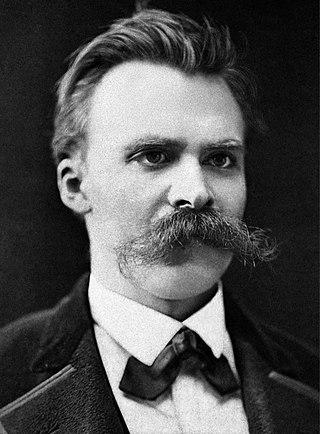 35
Friedrich Wilhelm Nietzsche was a German philosopher. He began his career as a classical philologist before turning to philosophy. He became the youngest person to hold the Chair of Classical...
35
Friedrich Wilhelm Nietzsche was a German philosopher. He began his career as a classical philologist before turning to philosophy. He became the youngest person to hold the Chair of Classical...
Alessandro Volta
 35
Alessandro Giuseppe Antonio Anastasio Volta was an Italian physicist and chemist who was a pioneer of electricity and power and is credited as the inventor of the electric battery and the discoverer...
35
Alessandro Giuseppe Antonio Anastasio Volta was an Italian physicist and chemist who was a pioneer of electricity and power and is credited as the inventor of the electric battery and the discoverer...
Wolfgang of Regensburg
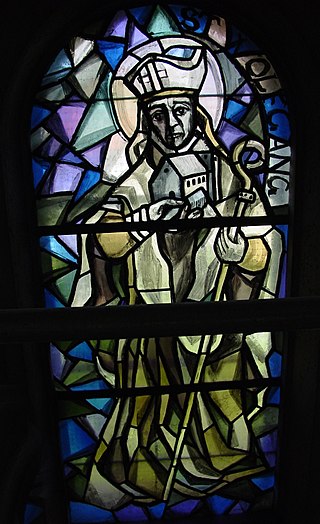 35
Wolfgang of Regensburg was bishop of Regensburg in Bavaria from Christmas 972 until his death. He is a saint in the Catholic and Eastern Orthodox churches. He is regarded as one of the three great...
35
Wolfgang of Regensburg was bishop of Regensburg in Bavaria from Christmas 972 until his death. He is a saint in the Catholic and Eastern Orthodox churches. He is regarded as one of the three great...
Johann Friedrich Böttger
 35
Johann Friedrich Böttger was a German alchemist. Böttger was born in Schleiz and died in Dresden. He is normally credited with being the first European to discover the secret of the creation of...
35
Johann Friedrich Böttger was a German alchemist. Böttger was born in Schleiz and died in Dresden. He is normally credited with being the first European to discover the secret of the creation of...
Helene Lange
 35
Helene Lange was a pedagogue and feminist. She is a symbolic figure of the international and German civil rights feminist movement. In the years from 1919 to 1921 she was a member of the Hamburg...
35
Helene Lange was a pedagogue and feminist. She is a symbolic figure of the international and German civil rights feminist movement. In the years from 1919 to 1921 she was a member of the Hamburg...
Walter Flex
 35
Walter Flex was a German author of The Wanderer between the Two Worlds: An Experience of War of 1916, a war novel dealing with themes of humanity, friendship, and suffering during World War I. Due to...
35
Walter Flex was a German author of The Wanderer between the Two Worlds: An Experience of War of 1916, a war novel dealing with themes of humanity, friendship, and suffering during World War I. Due to...
Franz Hitze
 35
Franz Hitze war ein deutscher katholischer Geistlicher, Sozialethiker und Politiker der Zentrumspartei.
35
Franz Hitze war ein deutscher katholischer Geistlicher, Sozialethiker und Politiker der Zentrumspartei.
Theodor Mommsen
 34
Christian Matthias Theodor Mommsen was a German classical scholar, historian, jurist, journalist, politician and archaeologist. He is widely regarded as one of the greatest classicists of the 19th...
34
Christian Matthias Theodor Mommsen was a German classical scholar, historian, jurist, journalist, politician and archaeologist. He is widely regarded as one of the greatest classicists of the 19th...
Theodor Neubauer
 34
Theodor Neubauer was a German communist politician, educator, essayist, historian and anti-Nazi resistance fighter.
34
Theodor Neubauer was a German communist politician, educator, essayist, historian and anti-Nazi resistance fighter.
Bertha Benz
 34
Bertha Benz was a German automotive pioneer. She was the business partner, investor and wife of automobile inventor Karl Benz. On 5 August 1888, she was the first person to drive an...
34
Bertha Benz was a German automotive pioneer. She was the business partner, investor and wife of automobile inventor Karl Benz. On 5 August 1888, she was the first person to drive an...
Heinrich Lanz
 34
Heinrich Lanz was a German entrepreneur and engineer. He founded Heinrich Lanz AG, a manufacturer of agricultural machinery and stationary steam engines and locomotives exported globally.
34
Heinrich Lanz was a German entrepreneur and engineer. He founded Heinrich Lanz AG, a manufacturer of agricultural machinery and stationary steam engines and locomotives exported globally.
Berthold Schenk Graf von Stauffenberg
 34
Berthold Alfred Maria Schenk Graf von Stauffenberg was a German aristocrat and lawyer who was a key conspirator in the plot to assassinate Adolf Hitler on 20 July 1944, alongside his younger brother,...
34
Berthold Alfred Maria Schenk Graf von Stauffenberg was a German aristocrat and lawyer who was a key conspirator in the plot to assassinate Adolf Hitler on 20 July 1944, alongside his younger brother,...
Andreas Hofer
 34
Andreas Hofer was a Tyrolean innkeeper and drover, who in 1809 became the leader of the Tyrolean Rebellion against the Napoleonic and Bavarian invasion during the War of the Fifth Coalition. He was...
34
Andreas Hofer was a Tyrolean innkeeper and drover, who in 1809 became the leader of the Tyrolean Rebellion against the Napoleonic and Bavarian invasion during the War of the Fifth Coalition. He was...
Friedrich Bergius
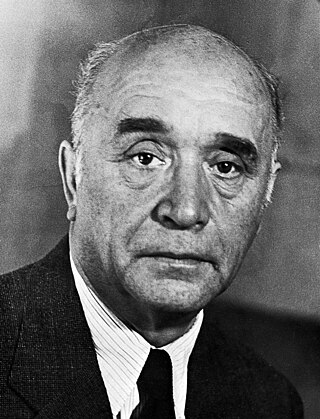 34
Friedrich Karl Rudolf Bergius was a German chemist known for the Bergius process for producing synthetic fuel from coal, Nobel Prize in Chemistry in recognition of contributions to the invention and...
34
Friedrich Karl Rudolf Bergius was a German chemist known for the Bergius process for producing synthetic fuel from coal, Nobel Prize in Chemistry in recognition of contributions to the invention and...
Ina Seidel
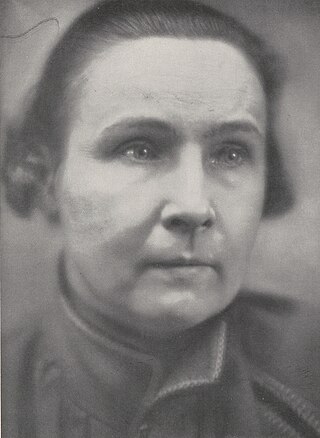 34
Ina Seidel was a German lyric poet and novelist. Favourite themes included motherhood and the mysteries of race and heredity.
34
Ina Seidel was a German lyric poet and novelist. Favourite themes included motherhood and the mysteries of race and heredity.
Heinrich Brüning
 34
Heinrich Aloysius Maria Elisabeth Brüning was a German Centre Party politician and academic, who served as the chancellor of Germany during the Weimar Republic from 1930 to 1932.
34
Heinrich Aloysius Maria Elisabeth Brüning was a German Centre Party politician and academic, who served as the chancellor of Germany during the Weimar Republic from 1930 to 1932.
Hugo Wolf
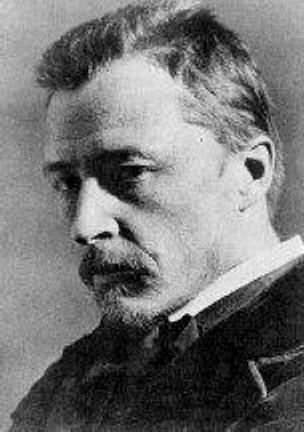 34
Hugo Philipp Jacob Wolf was an Austrian composer, particularly noted for his art songs, or Lieder. He brought to this form a concentrated expressive intensity which was unique in late Romantic music,...
34
Hugo Philipp Jacob Wolf was an Austrian composer, particularly noted for his art songs, or Lieder. He brought to this form a concentrated expressive intensity which was unique in late Romantic music,...
Friedrich Hecker
 34
Friedrich Franz Karl Hecker was a German lawyer, politician and revolutionary. He was one of the most popular speakers and agitators of the 1848 Revolution. After moving to the United States, he...
34
Friedrich Franz Karl Hecker was a German lawyer, politician and revolutionary. He was one of the most popular speakers and agitators of the 1848 Revolution. After moving to the United States, he...
Bruno of Cologne
 33
Bruno of Cologne, venerated as Saint Bruno, was the founder of the Carthusian Order. He personally founded the order's first two communities. He was a celebrated teacher at Reims, and a close advisor...
33
Bruno of Cologne, venerated as Saint Bruno, was the founder of the Carthusian Order. He personally founded the order's first two communities. He was a celebrated teacher at Reims, and a close advisor...
Adolf Grimme
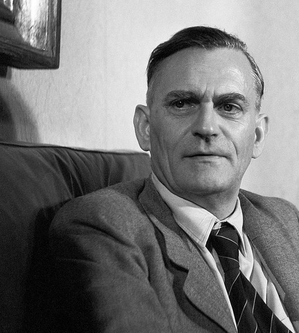 33
Adolf Berthold Ludwig Grimme was a German politician, a member of the Social Democratic Party (SPD). He was Cultural Minister during the later years of the Weimar Republic and after World War II,...
33
Adolf Berthold Ludwig Grimme was a German politician, a member of the Social Democratic Party (SPD). He was Cultural Minister during the later years of the Weimar Republic and after World War II,...
Anna Seghers
 33
Anna Seghers, is the pseudonym of German writer Anna Reiling, who was notable for exploring and depicting the moral experience of the Second World War. Born into a Jewish family and married to a...
33
Anna Seghers, is the pseudonym of German writer Anna Reiling, who was notable for exploring and depicting the moral experience of the Second World War. Born into a Jewish family and married to a...
Saint Christopher
 33
Saint Christopher is venerated by several Christian denominations as a martyr killed in the reign of the 3rd-century Roman emperor Decius, or alternatively under the emperor Maximinus Daia. There...
33
Saint Christopher is venerated by several Christian denominations as a martyr killed in the reign of the 3rd-century Roman emperor Decius, or alternatively under the emperor Maximinus Daia. There...
Edvard Grieg
 32
Edvard Hagerup Grieg was a Norwegian composer and pianist. He is widely considered one of the leading Romantic era composers, and his music is part of the standard classical repertoire worldwide. His...
32
Edvard Hagerup Grieg was a Norwegian composer and pianist. He is widely considered one of the leading Romantic era composers, and his music is part of the standard classical repertoire worldwide. His...
Frédéric Chopin
 32
Frédéric François Chopin was a Polish composer and virtuoso pianist of the Romantic period, who wrote primarily for solo piano. He has maintained worldwide renown as a leading musician of his era,...
32
Frédéric François Chopin was a Polish composer and virtuoso pianist of the Romantic period, who wrote primarily for solo piano. He has maintained worldwide renown as a leading musician of his era,...
Joachim Ringelnatz
 32
Joachim Ringelnatz is the pen name of the German author and painter Hans Bötticher
(7 August 1883, Wurzen, Saxony – 17 November 1934, Berlin). From 1894 to 1900 he lived with his family in the...
32
Joachim Ringelnatz is the pen name of the German author and painter Hans Bötticher
(7 August 1883, Wurzen, Saxony – 17 November 1934, Berlin). From 1894 to 1900 he lived with his family in the...
Friedrich Wilhelm Weber
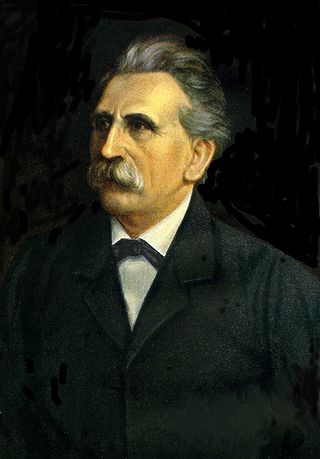 32
Friedrich Wilhelm Weber was a German doctor, politician of the Prussian House of Deputies, and poet.
32
Friedrich Wilhelm Weber was a German doctor, politician of the Prussian House of Deputies, and poet.
Albertus Magnus
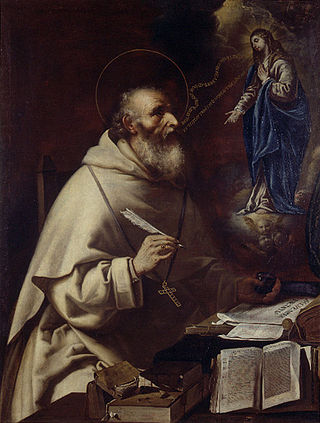 32
Albertus Magnus, also known as Saint Albert the Great, Albert of Swabia
or Albert of Cologne, was a German Dominican friar, philosopher, scientist, and bishop, considered one of the greatest medieval...
32
Albertus Magnus, also known as Saint Albert the Great, Albert of Swabia
or Albert of Cologne, was a German Dominican friar, philosopher, scientist, and bishop, considered one of the greatest medieval...
Otto Schott
 32
Friedrich Otto Schott (1851–1935) was a German chemist, glass technologist, and the inventor of borosilicate glass. Schott systematically investigated the relationship between the chemical...
32
Friedrich Otto Schott (1851–1935) was a German chemist, glass technologist, and the inventor of borosilicate glass. Schott systematically investigated the relationship between the chemical...
Ernst Wiechert
 32
Ernst Wiechert was a German teacher, poet and writer.
32
Ernst Wiechert was a German teacher, poet and writer.
Annette Kolb
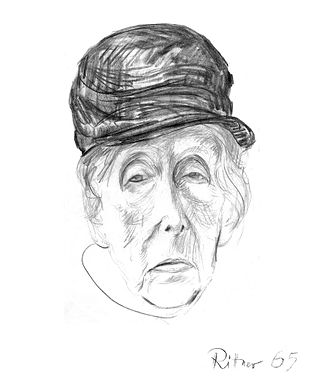 32
Annette Kolb was a German author and pacifist.
32
Annette Kolb was a German author and pacifist.
Emmy Noether
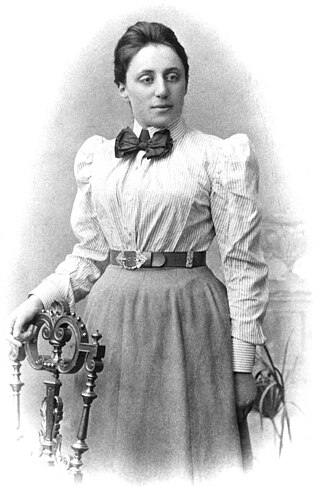 32
Amalie Emmy Noether was a German mathematician who made many important contributions to abstract algebra. She proved Noether's first and second theorems, which are fundamental in mathematical...
32
Amalie Emmy Noether was a German mathematician who made many important contributions to abstract algebra. She proved Noether's first and second theorems, which are fundamental in mathematical...
Saint Blaise
 31
Blaise of Sebaste was a physician and bishop of Sebastea in historical Lesser Armenia who is venerated as a Christian saint and martyr. He is counted as one of the Fourteen Holy Helpers.
31
Blaise of Sebaste was a physician and bishop of Sebastea in historical Lesser Armenia who is venerated as a Christian saint and martyr. He is counted as one of the Fourteen Holy Helpers.
Ernst Haeckel
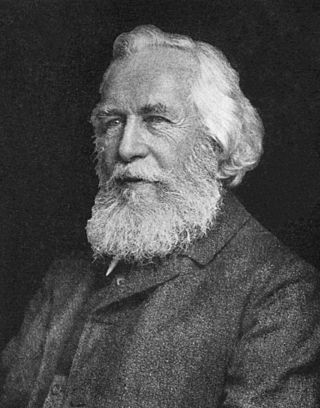 31
Ernst Heinrich Philipp August Haeckel was a German zoologist, naturalist, eugenicist, philosopher, physician, professor, marine biologist and artist. He discovered, described and named thousands of...
31
Ernst Heinrich Philipp August Haeckel was a German zoologist, naturalist, eugenicist, philosopher, physician, professor, marine biologist and artist. He discovered, described and named thousands of...
Franz Kafka
 31
Franz Kafka was a German-speaking Bohemian Jewish novelist and writer from Prague. He is widely regarded as one of the major figures of 20th-century literature. His work fuses elements of realism and...
31
Franz Kafka was a German-speaking Bohemian Jewish novelist and writer from Prague. He is widely regarded as one of the major figures of 20th-century literature. His work fuses elements of realism and...
Albrecht Thaer
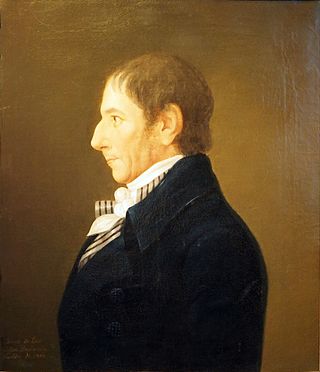 31
Albrecht Daniel Thaer was a German agronomist and a supporter of the humus theory for plant nutrition.
31
Albrecht Daniel Thaer was a German agronomist and a supporter of the humus theory for plant nutrition.
Walter Gropius
 31
Walter Adolph Georg Gropius was a German-American architect and founder of the Bauhaus School, who, along with Alvar Aalto, Ludwig Mies van der Rohe, Le Corbusier and Frank Lloyd Wright, is widely...
31
Walter Adolph Georg Gropius was a German-American architect and founder of the Bauhaus School, who, along with Alvar Aalto, Ludwig Mies van der Rohe, Le Corbusier and Frank Lloyd Wright, is widely...
Ulrich von Hutten
 31
Ulrich von Hutten was a German knight, scholar, poet and satirist, who later became a follower of Martin Luther and a Protestant reformer.
31
Ulrich von Hutten was a German knight, scholar, poet and satirist, who later became a follower of Martin Luther and a Protestant reformer.
Selma Lagerlöf
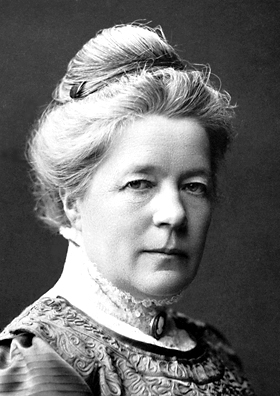 31
Selma Ottilia Lovisa Lagerlöf was a Swedish writer. She published her first novel, Gösta Berling's Saga, at the age of 33. She was the first woman to win the Nobel Prize in Literature, which she was...
31
Selma Ottilia Lovisa Lagerlöf was a Swedish writer. She published her first novel, Gösta Berling's Saga, at the age of 33. She was the first woman to win the Nobel Prize in Literature, which she was...
Carl Millöcker
 31
Carl Joseph Millöcker, was an Austrian composer of operettas and a conductor.
He was born in Vienna, where he studied the flute at the Vienna Conservatory. While holding various conducting posts in...
31
Carl Joseph Millöcker, was an Austrian composer of operettas and a conductor.
He was born in Vienna, where he studied the flute at the Vienna Conservatory. While holding various conducting posts in...
Peter Vischer the Elder
 31
Peter Vischer the Elder was a German sculptor, the son of Hermann Vischer, and the most notable member of the Vischer Family of Nuremberg.
31
Peter Vischer the Elder was a German sculptor, the son of Hermann Vischer, and the most notable member of the Vischer Family of Nuremberg.
Vincent van Gogh
 31
Vincent Willem van Gogh was a Dutch Post-Impressionist painter who is among the most famous and influential figures in the history of Western art. In just over a decade, he created approximately 2100...
31
Vincent Willem van Gogh was a Dutch Post-Impressionist painter who is among the most famous and influential figures in the history of Western art. In just over a decade, he created approximately 2100...
Helene Wessel
 30
Helene Wessel was a German politician. From October 1949 to January 1952 she was chairwoman of the Centre Party and a founding member of the All-German People's Party, which eventually joined the...
30
Helene Wessel was a German politician. From October 1949 to January 1952 she was chairwoman of the Centre Party and a founding member of the All-German People's Party, which eventually joined the...
Erich Ollenhauer
 30
Erich Ollenhauer was the leader of the Social Democratic Party of Germany (SPD) from 1952 until 1963. He was a key leader of the opposition to Konrad Adenauer in the Bundestag. In exile under the...
30
Erich Ollenhauer was the leader of the Social Democratic Party of Germany (SPD) from 1952 until 1963. He was a key leader of the opposition to Konrad Adenauer in the Bundestag. In exile under the...
Franz von Sickingen
 30
Franz von Sickingen was a knight of the Holy Roman Empire who, with Ulrich von Hutten, led the so-called "Knights' War," and was one of the most notable figures of the early period of the Protestant...
30
Franz von Sickingen was a knight of the Holy Roman Empire who, with Ulrich von Hutten, led the so-called "Knights' War," and was one of the most notable figures of the early period of the Protestant...
Sophie Henschel
 30
Sophie Henschel (1841–1916) was a German industrialist. She was married to Oscar Henschel and the leader of Henschel & Son from his death in 1894 until 1910. She was one of the richest women in...
30
Sophie Henschel (1841–1916) was a German industrialist. She was married to Oscar Henschel and the leader of Henschel & Son from his death in 1894 until 1910. She was one of the richest women in...
Caroline Herschel
 30
Caroline Lucretia Herschel was a German-born British astronomer, whose most significant contributions to astronomy were the discoveries of several comets, including the periodic comet...
30
Caroline Lucretia Herschel was a German-born British astronomer, whose most significant contributions to astronomy were the discoveries of several comets, including the periodic comet...
Jakob Kaiser
 30
Jakob Kaiser was a German politician and resistance leader during World War II.
30
Jakob Kaiser was a German politician and resistance leader during World War II.
Andreas Hermes
 30
Andreas Hermes was a German agricultural scientist and politician. In the Weimar Republic, he was a member of several governments, serving as minister of food/nutrition and minister of finance for...
30
Andreas Hermes was a German agricultural scientist and politician. In the Weimar Republic, he was a member of several governments, serving as minister of food/nutrition and minister of finance for...
Hans Geiger
 29
Johannes Wilhelm "Hans" Geiger was a German physicist. He is best known as the co-inventor of the detector component of the Geiger counter and for the Geiger–Marsden experiment which discovered the...
29
Johannes Wilhelm "Hans" Geiger was a German physicist. He is best known as the co-inventor of the detector component of the Geiger counter and for the Geiger–Marsden experiment which discovered the...
Heinrich von Stephan
 29
Ernst Heinrich Wilhelm von Stephan was a general post director for the German Empire who reorganized the German postal service. He was integral in the founding of the Universal Postal Union in 1874,...
29
Ernst Heinrich Wilhelm von Stephan was a general post director for the German Empire who reorganized the German postal service. He was integral in the founding of the Universal Postal Union in 1874,...
Johann Konrad Wilhelm Löhe
 29
Johann Konrad Wilhelm Löhe was a pastor of the Lutheran Church, Confesional Lutheran writer, and is often regarded as being a founder of the deaconess movement in Lutheranism and a founding sponsor...
29
Johann Konrad Wilhelm Löhe was a pastor of the Lutheran Church, Confesional Lutheran writer, and is often regarded as being a founder of the deaconess movement in Lutheranism and a founding sponsor...
Stefan Lochner
 29
Stefan Lochner was a German painter working in the late International Gothic period. His paintings combine that era's tendency toward long flowing lines and brilliant colours with the realism,...
29
Stefan Lochner was a German painter working in the late International Gothic period. His paintings combine that era's tendency toward long flowing lines and brilliant colours with the realism,...
Arminius
 29
Arminius was a chieftain of the Germanic Cherusci tribe who is best known for commanding an alliance of Germanic tribes at the Battle of the Teutoburg Forest in AD 9, in which three Roman legions...
29
Arminius was a chieftain of the Germanic Cherusci tribe who is best known for commanding an alliance of Germanic tribes at the Battle of the Teutoburg Forest in AD 9, in which three Roman legions...
Jochen Klepper
 29
Jochen Klepper was a German writer, poet and journalist.
29
Jochen Klepper was a German writer, poet and journalist.
Bruno H. Bürgel
 29
Bruno Hans Bürgel war ein bekannter deutscher Schriftsteller und Wissenschaftspublizist, dessen Verdienste vor allem in der Verbreitung astronomischer Kenntnisse liegen.
29
Bruno Hans Bürgel war ein bekannter deutscher Schriftsteller und Wissenschaftspublizist, dessen Verdienste vor allem in der Verbreitung astronomischer Kenntnisse liegen.
Carl Legien
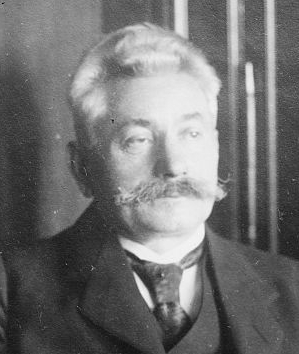 28
Carl Legien was a German unionist, moderate Social Democratic politician and first President of the International Federation of Trade Unions.
28
Carl Legien was a German unionist, moderate Social Democratic politician and first President of the International Federation of Trade Unions.
Ernst Ludwig Kirchner
 28
Ernst Ludwig Kirchner was a German expressionist painter and printmaker and one of the founders of the artists group Die Brücke or "The Bridge", a key group leading to the foundation of Expressionism...
28
Ernst Ludwig Kirchner was a German expressionist painter and printmaker and one of the founders of the artists group Die Brücke or "The Bridge", a key group leading to the foundation of Expressionism...
John of Nepomuk
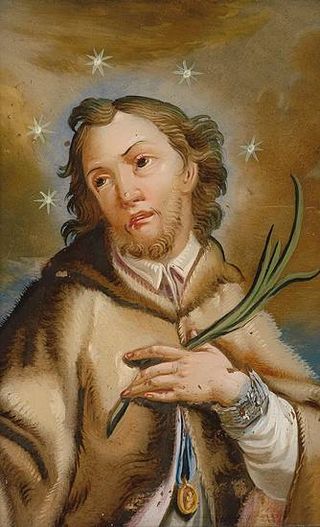 28
John of Nepomuk
was a saint of Bohemia who was drowned in the Vltava river at the behest of King Wenceslaus IV of Bohemia. Later accounts state that he was the confessor of the queen of Bohemia and...
28
John of Nepomuk
was a saint of Bohemia who was drowned in the Vltava river at the behest of King Wenceslaus IV of Bohemia. Later accounts state that he was the confessor of the queen of Bohemia and...
Hans Beimler (politician)
 28
Johannes Baptist "Hans" Beimler was a trade unionist, Communist Party official, deputy in the 1933 Reichstag, an outspoken opponent of the Nazis and a volunteer in the international brigades fighting...
28
Johannes Baptist "Hans" Beimler was a trade unionist, Communist Party official, deputy in the 1933 Reichstag, an outspoken opponent of the Nazis and a volunteer in the international brigades fighting...
Max von Laue
 28
Max Theodor Felix von Laue was a German physicist who received the Nobel Prize in Physics in 1914 for his discovery of the diffraction of X-rays by crystals.
28
Max Theodor Felix von Laue was a German physicist who received the Nobel Prize in Physics in 1914 for his discovery of the diffraction of X-rays by crystals.
Hans Pfitzner
 28
Hans Erich Pfitzner was a German composer, conductor and polemicist who was a self-described anti-modernist. His best known work is the post-Romantic opera Palestrina (1917), loosely based on the...
28
Hans Erich Pfitzner was a German composer, conductor and polemicist who was a self-described anti-modernist. His best known work is the post-Romantic opera Palestrina (1917), loosely based on the...
Max Beckmann
 28
Max Carl Friedrich Beckmann was a German painter, draftsman, printmaker, sculptor, and writer. Although he is classified as an Expressionist artist, he rejected both the term and the movement. In the...
28
Max Carl Friedrich Beckmann was a German painter, draftsman, printmaker, sculptor, and writer. Although he is classified as an Expressionist artist, he rejected both the term and the movement. In the...
Robert Gerwig
 27
Robert Gerwig (1820–1885) was a German civil engineer.
27
Robert Gerwig (1820–1885) was a German civil engineer.
Heinrich Schliemann
Hermann Allmers
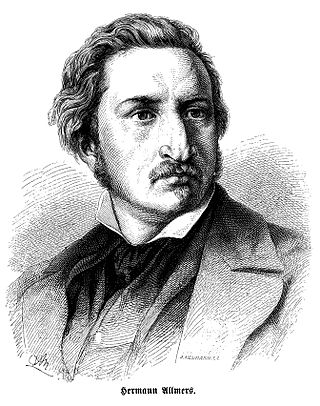 27
Hermann Allmers was a German poet.
27
Hermann Allmers was a German poet.
Friedrich-Wilhelm Bock
 27
Friedrich-Wilhelm Bock was a German Waffen-SS commander during World War II who led three SS divisions, the SS Division Hohenstaufen, 4th SS Polizei Division, Waffen Grenadier Division of the SS. He...
27
Friedrich-Wilhelm Bock was a German Waffen-SS commander during World War II who led three SS divisions, the SS Division Hohenstaufen, 4th SS Polizei Division, Waffen Grenadier Division of the SS. He...
Erich Mühsam
 27
Erich Mühsam was a German antimilitarist anarchist essayist, poet and playwright. He emerged at the end of World War I as one of the leading agitators for a federated Bavarian Soviet Republic, for...
27
Erich Mühsam was a German antimilitarist anarchist essayist, poet and playwright. He emerged at the end of World War I as one of the leading agitators for a federated Bavarian Soviet Republic, for...
Gertrud Bäumer
 27
Gertrud Bäumer was a German politician who actively participated in the German civil rights feminist movement. She was also a writer, and contributed to Friedrich Naumann's paper Die Hilfe. From...
27
Gertrud Bäumer was a German politician who actively participated in the German civil rights feminist movement. She was also a writer, and contributed to Friedrich Naumann's paper Die Hilfe. From...
Wolfram von Eschenbach
 27
Wolfram von Eschenbach was a German knight, poet and composer, regarded as one of the greatest epic poets of medieval German literature. As a Minnesinger, he also wrote lyric poetry.
27
Wolfram von Eschenbach was a German knight, poet and composer, regarded as one of the greatest epic poets of medieval German literature. As a Minnesinger, he also wrote lyric poetry.
Erwin Rommel
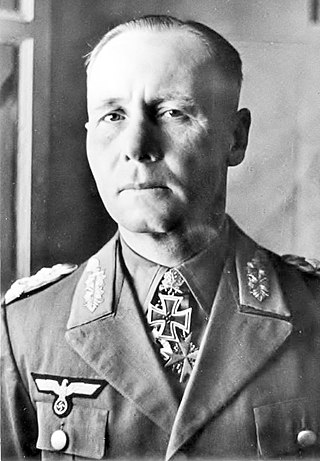 27
Johannes Erwin Eugen Rommel was a German Generalfeldmarschall during World War II. Popularly known as the Desert Fox, he served in the Wehrmacht of Nazi Germany, as well as in the Reichswehr of the...
27
Johannes Erwin Eugen Rommel was a German Generalfeldmarschall during World War II. Popularly known as the Desert Fox, he served in the Wehrmacht of Nazi Germany, as well as in the Reichswehr of the...
Gustav Kirchhoff
 27
Gustav Robert Kirchhoff was a German physicist and mathematician who contributed to the fundamental understanding of electrical circuits, spectroscopy, and the emission of black-body radiation by...
27
Gustav Robert Kirchhoff was a German physicist and mathematician who contributed to the fundamental understanding of electrical circuits, spectroscopy, and the emission of black-body radiation by...
Carl Zuckmayer
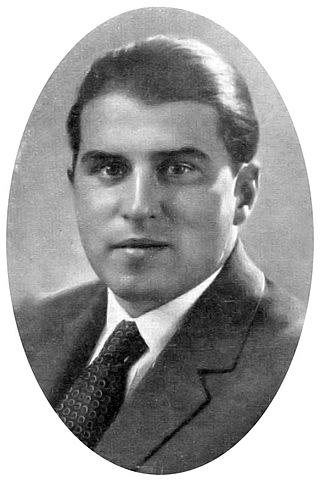 27
Carl Zuckmayer was a German writer and playwright. His older brother was the pedagogue, composer, conductor, and pianist Eduard Zuckmayer.
27
Carl Zuckmayer was a German writer and playwright. His older brother was the pedagogue, composer, conductor, and pianist Eduard Zuckmayer.
Walther von Seydlitz-Kurzbach
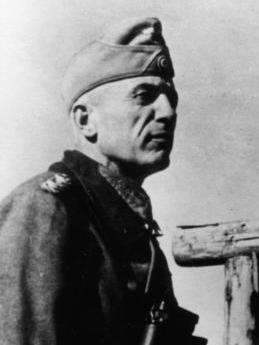 27
Walther Kurt von Seydlitz-Kurzbach was a German general during World War II who commanded the LI Army Corps during the Battle of Stalingrad. At the end of the battle, he gave his officers freedom of...
27
Walther Kurt von Seydlitz-Kurzbach was a German general during World War II who commanded the LI Army Corps during the Battle of Stalingrad. At the end of the battle, he gave his officers freedom of...
Karl Leisner
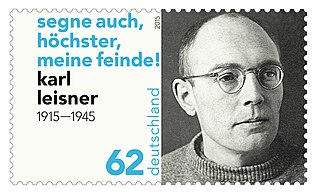 27
Karl Leisner was a Roman Catholic priest interned in the Dachau concentration camp. He died of tuberculosis shortly after being liberated by the Allied forces. He has been declared a martyr and was...
27
Karl Leisner was a Roman Catholic priest interned in the Dachau concentration camp. He died of tuberculosis shortly after being liberated by the Allied forces. He has been declared a martyr and was...
Ludwig Beck
 27
Ludwig August Theodor Beck was a German general and Chief of the German General Staff during the early years of the Nazi regime in Germany before World War II. Although Beck never became a member of...
27
Ludwig August Theodor Beck was a German general and Chief of the German General Staff during the early years of the Nazi regime in Germany before World War II. Although Beck never became a member of...
Alfred Wegener
 26
Alfred Lothar Wegener was a German climatologist, geologist, geophysicist, meteorologist, and polar researcher.
26
Alfred Lothar Wegener was a German climatologist, geologist, geophysicist, meteorologist, and polar researcher.
Friedrich Freudenthal
 26
Friedrich Freudenthal war einer der wichtigsten Heimatschriftsteller Niederdeutschlands.
26
Friedrich Freudenthal war einer der wichtigsten Heimatschriftsteller Niederdeutschlands.
Hermann Köhl
 26
Hermann Köhl was a German aviation pioneer and pilot of the first transatlantic flight by a fixed-wing aircraft from east to west.
26
Hermann Köhl was a German aviation pioneer and pilot of the first transatlantic flight by a fixed-wing aircraft from east to west.
Margarete Steiff
 26
Margarete Steiff was a German seamstress who in 1880 founded Margarete Steiff GmbH, more widely known as Steiff, a maker of toy stuffed animals.
26
Margarete Steiff was a German seamstress who in 1880 founded Margarete Steiff GmbH, more widely known as Steiff, a maker of toy stuffed animals.
Louise Schroeder
 26
Louise Dorothea Schroeder was a German politician of the Social Democratic Party of Germany (SPD) party. She was among the 41 female members of the Weimar National Assembly, the Constituent Assembly...
26
Louise Dorothea Schroeder was a German politician of the Social Democratic Party of Germany (SPD) party. She was among the 41 female members of the Weimar National Assembly, the Constituent Assembly...
Rupert Mayer
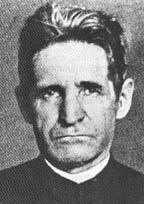 26
Rupert Mayer was a German Jesuit priest and a leading figure of the Catholic resistance to Nazism in Munich. In 1987, he was beatified by Pope John Paul II.
26
Rupert Mayer was a German Jesuit priest and a leading figure of the Catholic resistance to Nazism in Munich. In 1987, he was beatified by Pope John Paul II.
Hans Carossa
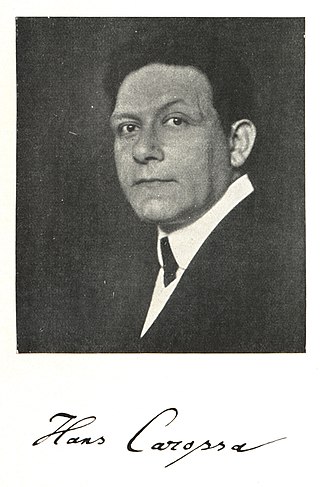 26
Hans Carossa was a German novelist and poet, known mostly for his autobiographical novels, and his inner emigration during the Nazi era.
26
Hans Carossa was a German novelist and poet, known mostly for his autobiographical novels, and his inner emigration during the Nazi era.
Antonio Vivaldi
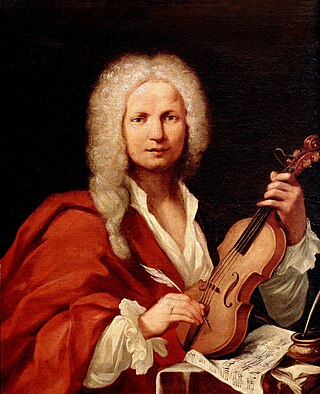 26
Antonio Lucio Vivaldi was an Italian composer, virtuoso violinist and impresario of Baroque music. Along with Johann Sebastian Bach and George Frideric Handel, Vivaldi ranks amongst the greatest...
26
Antonio Lucio Vivaldi was an Italian composer, virtuoso violinist and impresario of Baroque music. Along with Johann Sebastian Bach and George Frideric Handel, Vivaldi ranks amongst the greatest...
Carl Spitzweg
 26
Carl Spitzweg was a German romantic painter, especially of genre subjects. He is considered to be one of the most important artists of the Biedermeier era.
26
Carl Spitzweg was a German romantic painter, especially of genre subjects. He is considered to be one of the most important artists of the Biedermeier era.
Frieda Nadig
 26
Friederike Nadig was a German politician of the Social Democratic Party (SPD). One of the four women members of the Parlamentarischer Rat who drafted the Basic Law for the Federal Republic of Germany...
26
Friederike Nadig was a German politician of the Social Democratic Party (SPD). One of the four women members of the Parlamentarischer Rat who drafted the Basic Law for the Federal Republic of Germany...
Adam Stegerwald
 25
Adam Stegerwald was a German Catholic politician and a leader of the left wing of the Centre Party.
25
Adam Stegerwald was a German Catholic politician and a leader of the left wing of the Centre Party.
Peter Behrens
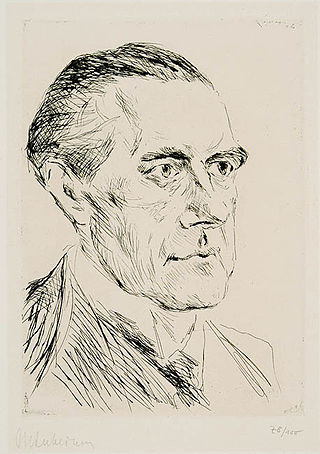 25
Peter Behrens was a leading German architect, graphic and industrial designer, best known for his early pioneering AEG Turbine Hall in Berlin in 1909. He had a long career, designing objects,...
25
Peter Behrens was a leading German architect, graphic and industrial designer, best known for his early pioneering AEG Turbine Hall in Berlin in 1909. He had a long career, designing objects,...
Clemens August of Bavaria
 25
Clemens August of Bavaria was an 18th-century member of the Wittelsbach dynasty of Bavaria and Archbishop-Elector of Cologne.
25
Clemens August of Bavaria was an 18th-century member of the Wittelsbach dynasty of Bavaria and Archbishop-Elector of Cologne.
Ludwig Ganghofer
 25
Ludwig Ganghofer was a German writer. He has been called the "most-adapted author in the history of German cinema", as many of his novels were turned into films.
25
Ludwig Ganghofer was a German writer. He has been called the "most-adapted author in the history of German cinema", as many of his novels were turned into films.
Theodor Haubach
 25
Theodor Haubach was a German journalist, SPD politician, and resistance fighter against the Nazi régime.
25
Theodor Haubach was a German journalist, SPD politician, and resistance fighter against the Nazi régime.
Carl Bosch
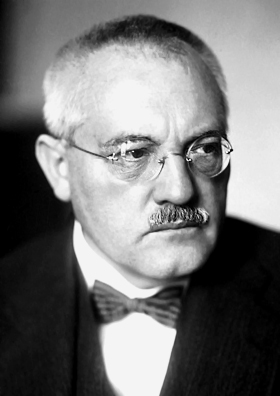 25
Carl Bosch was a German chemist and engineer and Nobel Laureate in Chemistry. He was a pioneer in the field of high-pressure industrial chemistry and founder of IG Farben, at one point the world's...
25
Carl Bosch was a German chemist and engineer and Nobel Laureate in Chemistry. He was a pioneer in the field of high-pressure industrial chemistry and founder of IG Farben, at one point the world's...
Ernst Schneller
 25
Ernst Schneller was a German school teacher. In 1914 he volunteered to join the army when war broke out. Sent to fight on the Eastern Front, he became politicised and radicalised, especially as the...
25
Ernst Schneller was a German school teacher. In 1914 he volunteered to join the army when war broke out. Sent to fight on the Eastern Front, he became politicised and radicalised, especially as the...
Richard Schirrmann
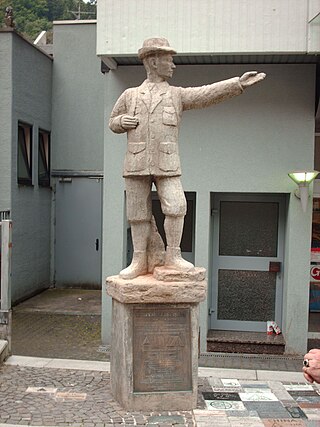 24
Richard Schirrmann was a German teacher and founder of the first hostel.
24
Richard Schirrmann was a German teacher and founder of the first hostel.
Augustine of Hippo
 24
Augustine of Hippo, also known as Saint Augustine, was a theologian and philosopher of Berber origin and the bishop of Hippo Regius in Numidia, Roman North Africa. His writings influenced the...
24
Augustine of Hippo, also known as Saint Augustine, was a theologian and philosopher of Berber origin and the bishop of Hippo Regius in Numidia, Roman North Africa. His writings influenced the...
Martin Luther King Jr.
 24
Martin Luther King Jr. was an American Christian minister, activist, and political philosopher who was one of the most prominent leaders in the civil rights movement from 1955 until his assassination...
24
Martin Luther King Jr. was an American Christian minister, activist, and political philosopher who was one of the most prominent leaders in the civil rights movement from 1955 until his assassination...
Heinrich Sohnrey
 24
Heinrich Sohnrey war Lehrer, Volksschriftsteller und Publizist. Er kam über die Völkische Bewegung zum Nationalsozialismus.
24
Heinrich Sohnrey war Lehrer, Volksschriftsteller und Publizist. Er kam über die Völkische Bewegung zum Nationalsozialismus.
John Brinckman
 24
John Brinckman, originally Johann Friedrich Brinckmann was a German author of humorous works in Plattdeutsch.
24
John Brinckman, originally Johann Friedrich Brinckmann was a German author of humorous works in Plattdeutsch.
Paula Modersohn-Becker
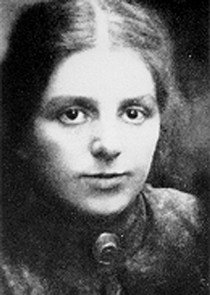 24
Paula Modersohn-Becker was a German Expressionist painter of the late 19th and early 20th century. She is noted for the many self-portraits the artist produced, including nude self-portraits. She is...
24
Paula Modersohn-Becker was a German Expressionist painter of the late 19th and early 20th century. She is noted for the many self-portraits the artist produced, including nude self-portraits. She is...
Otto Hue
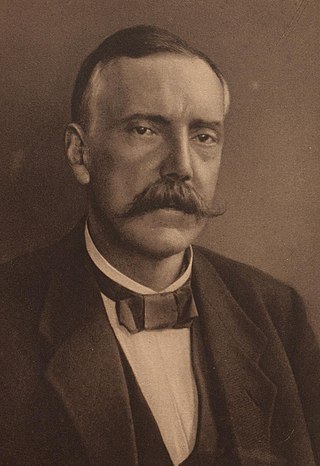 24
Otto Hue [ˈhuːə] war ein deutscher Gewerkschafter und Politiker (SPD).
24
Otto Hue [ˈhuːə] war ein deutscher Gewerkschafter und Politiker (SPD).
August Hermann Francke
 24
August Hermann Francke was a German Lutheran clergyman, theologian, philanthropist, and Biblical scholar.
24
August Hermann Francke was a German Lutheran clergyman, theologian, philanthropist, and Biblical scholar.
Saint Remigius
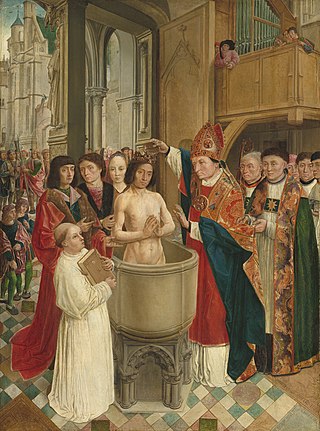 24
Remigius was the Bishop of Reims and "Apostle of the Franks". On 25 December 496, he baptised Clovis I, King of the Franks. The baptism, leading to about 3000 additional converts, was an important...
24
Remigius was the Bishop of Reims and "Apostle of the Franks". On 25 December 496, he baptised Clovis I, King of the Franks. The baptism, leading to about 3000 additional converts, was an important...
Joseph Lanner
 24
Joseph Lanner was an Austrian dance music composer and dance orchestra conductor. He is best remembered as one of the earliest Viennese composers to reform the waltz from a simple peasant dance to...
24
Joseph Lanner was an Austrian dance music composer and dance orchestra conductor. He is best remembered as one of the earliest Viennese composers to reform the waltz from a simple peasant dance to...
Johann Heinrich von Thünen
 24
Johann Heinrich von Thünen, sometimes spelled Thuenen, was a prominent nineteenth-century economist and a native of Mecklenburg-Strelitz, now in northern Germany.
24
Johann Heinrich von Thünen, sometimes spelled Thuenen, was a prominent nineteenth-century economist and a native of Mecklenburg-Strelitz, now in northern Germany.
Johann Hinrich Fehrs
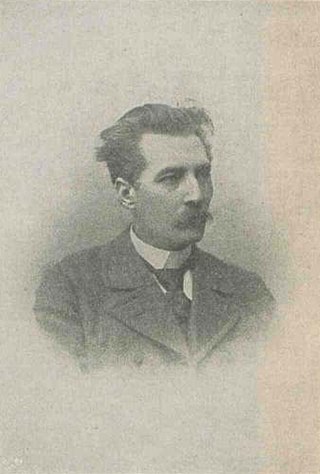 24
Johann Hinrich Fehrs war ein niederdeutscher Erzähler und Lyriker.
24
Johann Hinrich Fehrs war ein niederdeutscher Erzähler und Lyriker.
Luise Hensel
 24
Luise Hensel was a German teacher and religious poet, who influenced the romantic style of her friend and fellow poet, Clemens Brentano.
24
Luise Hensel was a German teacher and religious poet, who influenced the romantic style of her friend and fellow poet, Clemens Brentano.
Friedrich Rückert
 24
Johann Michael Friedrich Rückert was a German poet, translator, and professor of Oriental languages.
24
Johann Michael Friedrich Rückert was a German poet, translator, and professor of Oriental languages.
Gustav Werner (Pfarrer)
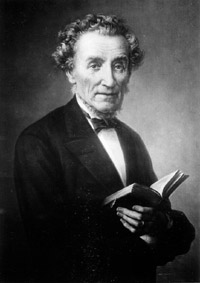 24
Gustav Albert Werner war evangelischer Pfarrer und Gründer der Gustav-Werner-Stiftung.
24
Gustav Albert Werner war evangelischer Pfarrer und Gründer der Gustav-Werner-Stiftung.
Gerhard Domagk
 23
Gerhard Johannes Paul Domagk was a German pathologist and bacteriologist.
23
Gerhard Johannes Paul Domagk was a German pathologist and bacteriologist.
Salvador Allende
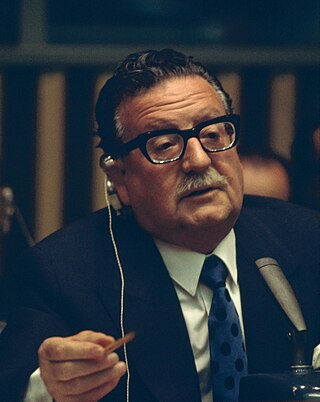 23
Salvador Guillermo Allende Gossens was a Chilean socialist politician who served as the 28th president of Chile from 1970 until his death in 1973. As a democratic socialist committed to democracy, he...
23
Salvador Guillermo Allende Gossens was a Chilean socialist politician who served as the 28th president of Chile from 1970 until his death in 1973. As a democratic socialist committed to democracy, he...
Philipp Scheidemann
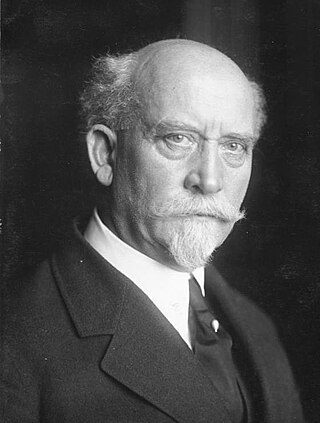 23
Philipp Heinrich Scheidemann was a German politician of the Social Democratic Party of Germany (SPD). In the first quarter of the 20th century he played a leading role in both his party and in the...
23
Philipp Heinrich Scheidemann was a German politician of the Social Democratic Party of Germany (SPD). In the first quarter of the 20th century he played a leading role in both his party and in the...
Charles Darwin
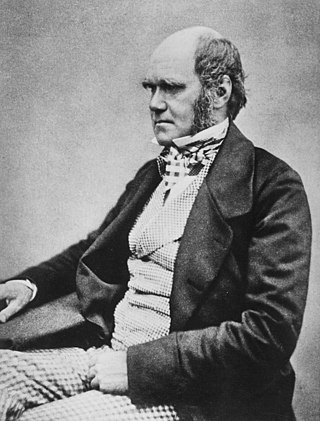 23
Charles Robert Darwin was an English naturalist, geologist and biologist, widely known for his contributions to evolutionary biology. His proposition that all species of life have descended from a...
23
Charles Robert Darwin was an English naturalist, geologist and biologist, widely known for his contributions to evolutionary biology. His proposition that all species of life have descended from a...
Lovis Corinth
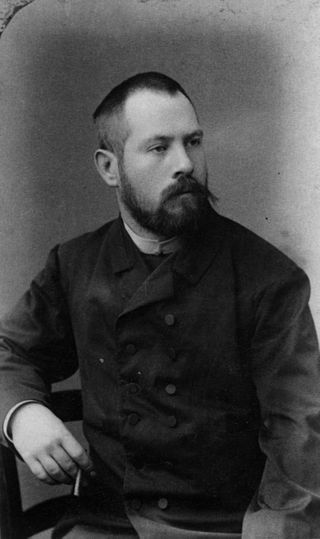 23
Lovis Corinth was a German artist and writer whose mature work as a painter and printmaker realized a synthesis of impressionism and expressionism.
23
Lovis Corinth was a German artist and writer whose mature work as a painter and printmaker realized a synthesis of impressionism and expressionism.
Julius Echter von Mespelbrunn
 23
Julius Echter von Mespelbrunn was Prince-Bishop of Würzburg from 1573. He was born in Mespelbrunn Castle, Spessart and died in Würzburg.
23
Julius Echter von Mespelbrunn was Prince-Bishop of Würzburg from 1573. He was born in Mespelbrunn Castle, Spessart and died in Würzburg.
Liselotte Herrmann
 23
Liselotte Herrmann was a German Communist resistance fighter in Nazi Germany. Herrmann was the first woman to be sentenced to death by a Nazi court and then executed in Plötzensee Prison in 1938.
23
Liselotte Herrmann was a German Communist resistance fighter in Nazi Germany. Herrmann was the first woman to be sentenced to death by a Nazi court and then executed in Plötzensee Prison in 1938.
Martin Behaim
 23
Martin Behaim, also known as Martin von Behaim and by various forms of Martin of Bohemia, was a German textile merchant and cartographer. He served John II of Portugal as an adviser in matters of...
23
Martin Behaim, also known as Martin von Behaim and by various forms of Martin of Bohemia, was a German textile merchant and cartographer. He served John II of Portugal as an adviser in matters of...
Gioachino Rossini
 23
Gioachino Antonio Rossini was an Italian composer who gained fame for his 39 operas, although he also wrote many songs, some chamber music and piano pieces and some sacred music. He set new standards...
23
Gioachino Antonio Rossini was an Italian composer who gained fame for his 39 operas, although he also wrote many songs, some chamber music and piano pieces and some sacred music. He set new standards...
Ferdinand Lassalle
 23
Ferdinand Lassalle was a Prussian-German jurist, philosopher, socialist and politician who is best remembered as the initiator of the social-democratic movement in Germany. "Lassalle was the first...
23
Ferdinand Lassalle was a Prussian-German jurist, philosopher, socialist and politician who is best remembered as the initiator of the social-democratic movement in Germany. "Lassalle was the first...
Wolfgang Borchert
 23
Wolfgang Borchert was a German author and playwright whose work was strongly influenced by his experience of dictatorship and his service in the Wehrmacht during the Second World War. His work is...
23
Wolfgang Borchert was a German author and playwright whose work was strongly influenced by his experience of dictatorship and his service in the Wehrmacht during the Second World War. His work is...
Frederick III, German Emperor
 22
Frederick III was German Emperor and King of Prussia for 99 days between March and June 1888, during the Year of the Three Emperors. Known informally as "Fritz", he was the only son of Emperor...
22
Frederick III was German Emperor and King of Prussia for 99 days between March and June 1888, during the Year of the Three Emperors. Known informally as "Fritz", he was the only son of Emperor...
Helene Stöcker
 22
Helene Stöcker was a German feminist, pacifist and gender activist. She successfully campaigned to keep same sex relationships between women legal, but she was unsuccessful in her campaign to...
22
Helene Stöcker was a German feminist, pacifist and gender activist. She successfully campaigned to keep same sex relationships between women legal, but she was unsuccessful in her campaign to...
Pablo Picasso
 22
Pablo Ruiz Picasso was a Spanish painter, sculptor, printmaker, ceramicist, and theatre designer who spent most of his adult life in France. One of the most influential artists of the 20th century,...
22
Pablo Ruiz Picasso was a Spanish painter, sculptor, printmaker, ceramicist, and theatre designer who spent most of his adult life in France. One of the most influential artists of the 20th century,...
Ottmar Mergenthaler
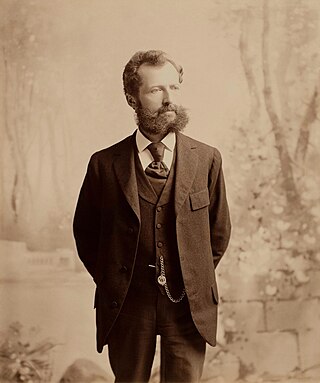 22
Ottmar Mergenthaler was a German-American inventor who invented the linotype machine, the first device that could easily and quickly set complete lines of type for use in printing presses. This...
22
Ottmar Mergenthaler was a German-American inventor who invented the linotype machine, the first device that could easily and quickly set complete lines of type for use in printing presses. This...
Ernst Toller
 22
Ernst Toller was a German author, playwright, left-wing politician and revolutionary, known for his Expressionist plays. He served in 1919 for six days as President of the short-lived Bavarian Soviet...
22
Ernst Toller was a German author, playwright, left-wing politician and revolutionary, known for his Expressionist plays. He served in 1919 for six days as President of the short-lived Bavarian Soviet...
Karl Kessler
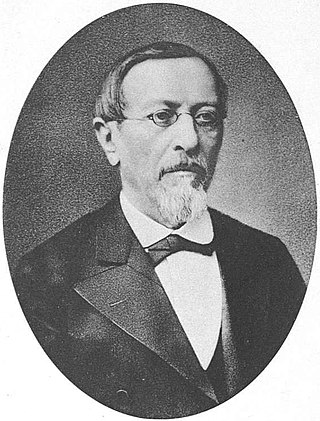 22
Karl Fedorovich Kessler was a Baltic German zoologist who worked as a professor of biology at Saint Petersburg Imperial University. Among his contributions was the idea that evolution at an...
22
Karl Fedorovich Kessler was a Baltic German zoologist who worked as a professor of biology at Saint Petersburg Imperial University. Among his contributions was the idea that evolution at an...
J. Robert Oppenheimer
 22
J. Robert Oppenheimer was an American theoretical physicist. He was director of the Manhattan Project's Los Alamos Laboratory during World War II and is often called the "father of the atomic bomb".
22
J. Robert Oppenheimer was an American theoretical physicist. He was director of the Manhattan Project's Los Alamos Laboratory during World War II and is often called the "father of the atomic bomb".
Eduard Spranger
 22
Eduard Spranger was a German philosopher and psychologist. A student of Wilhelm Dilthey, Spranger was born in Berlin and died in Tübingen. He was considered a humanist who developed a philosophical...
22
Eduard Spranger was a German philosopher and psychologist. A student of Wilhelm Dilthey, Spranger was born in Berlin and died in Tübingen. He was considered a humanist who developed a philosophical...
August Heinrich Hoffmann von Fallersleben
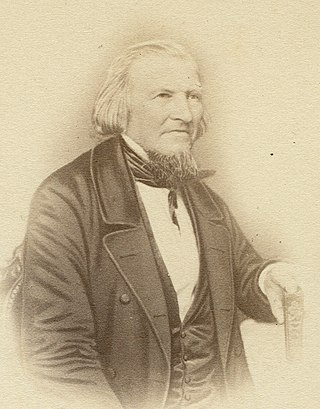 22
August Heinrich Hoffmann was a German poet. He is best known for writing "Das Lied der Deutschen", whose third stanza is now the national anthem of Germany, and a number of popular children's songs,...
22
August Heinrich Hoffmann was a German poet. He is best known for writing "Das Lied der Deutschen", whose third stanza is now the national anthem of Germany, and a number of popular children's songs,...
Erich Heckel
 22
Erich Heckel was a German painter and printmaker, and a founding member of the group Die Brücke which existed 1905–1913. His work was part of the art competitions at the 1928 Summer Olympics and the...
22
Erich Heckel was a German painter and printmaker, and a founding member of the group Die Brücke which existed 1905–1913. His work was part of the art competitions at the 1928 Summer Olympics and the...
Karl Joseph Simrock
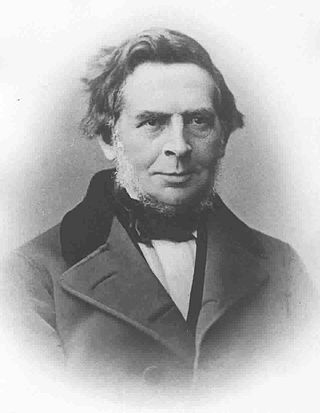 22
Karl Joseph Simrock was a German poet and writer. He is primarily known for his translation of Das Nibelungenlied into modern German.
22
Karl Joseph Simrock was a German poet and writer. He is primarily known for his translation of Das Nibelungenlied into modern German.
Carl Sonnenschein
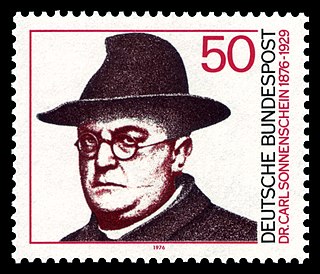 22
Carl Sonnenschein was a German writer and Catholic priest, the founder of the Catholic student movement in Germany.
22
Carl Sonnenschein was a German writer and Catholic priest, the founder of the Catholic student movement in Germany.
Michael Ende
 22
Michael Andreas Helmuth Ende was a German writer of fantasy and children's fiction. He is known for his epic fantasy The Neverending Story ; other well-known works include Momo and Jim Button and...
22
Michael Andreas Helmuth Ende was a German writer of fantasy and children's fiction. He is known for his epic fantasy The Neverending Story ; other well-known works include Momo and Jim Button and...
Käthe Kruse
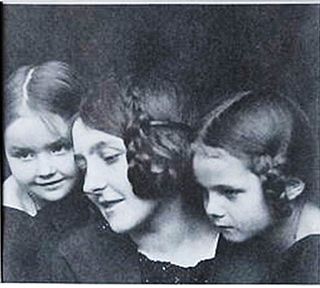 22
Käthe Kruse, born Katharina Simon was a notable pioneer of German doll-making and went on to establish manufacturing principles which persist to this day. Her original dolls remain very collectible...
22
Käthe Kruse, born Katharina Simon was a notable pioneer of German doll-making and went on to establish manufacturing principles which persist to this day. Her original dolls remain very collectible...
Ludwig Bechstein
 22
Ludwig Bechstein was a German writer and collector of folk fairy tales.
22
Ludwig Bechstein was a German writer and collector of folk fairy tales.
Lyonel Feininger
 21
Lyonel Charles Adrian Feininger was a German-American painter, and a leading exponent of Expressionism. He also worked as a caricaturist and comic strip artist. He was born and grew up in New York...
21
Lyonel Charles Adrian Feininger was a German-American painter, and a leading exponent of Expressionism. He also worked as a caricaturist and comic strip artist. He was born and grew up in New York...
Heinrich Jasper (biologist)
 21
Heinrich (Henri) Jasper is a German-American biologist at Buck Institute for Research on Aging. He was formerly a professor of biology at The University of Rochester. He studies aging, stem cell...
21
Heinrich (Henri) Jasper is a German-American biologist at Buck Institute for Research on Aging. He was formerly a professor of biology at The University of Rochester. He studies aging, stem cell...
Matthias Erzberger
 21
Matthias Erzberger was a politician of the Catholic Centre Party, member of the Reichstag and minister of finance of Germany from 1919 to 1920.
21
Matthias Erzberger was a politician of the Catholic Centre Party, member of the Reichstag and minister of finance of Germany from 1919 to 1920.
Heinrich Lersch
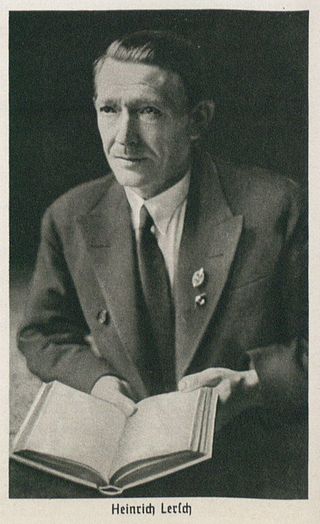 21
Heinrich Lersch war ein deutscher Arbeiterdichter.
21
Heinrich Lersch war ein deutscher Arbeiterdichter.
Timm Kröger
 21
Timm Kröger war ein deutscher Jurist und Schriftsteller. Er verfasste Novellen, Erzählungen und Skizzen, die das holsteinische Bauern- und Landleben schildern. Sein Neffe war der kaiserliche Baurat...
21
Timm Kröger war ein deutscher Jurist und Schriftsteller. Er verfasste Novellen, Erzählungen und Skizzen, die das holsteinische Bauern- und Landleben schildern. Sein Neffe war der kaiserliche Baurat...
Wassily Kandinsky
 21
Wassily Wassilyevich Kandinsky was a Russian painter and art theorist. Kandinsky is generally credited as one of the pioneers of abstraction in western art. Born in Moscow, he spent his childhood in...
21
Wassily Wassilyevich Kandinsky was a Russian painter and art theorist. Kandinsky is generally credited as one of the pioneers of abstraction in western art. Born in Moscow, he spent his childhood in...
Hellmut von Gerlach
 21
Hellmut Georg von Gerlach was a German journalist and politician.
21
Hellmut Georg von Gerlach was a German journalist and politician.
Bernard of Clairvaux
 21
Bernard of Clairvaux, O. Cist., venerated as Saint Bernard, was an abbot, mystic, co-founder of the Knights Templar, and a major leader in the reformation of the Benedictine Order through the nascent...
21
Bernard of Clairvaux, O. Cist., venerated as Saint Bernard, was an abbot, mystic, co-founder of the Knights Templar, and a major leader in the reformation of the Benedictine Order through the nascent...
Isolde Kurz
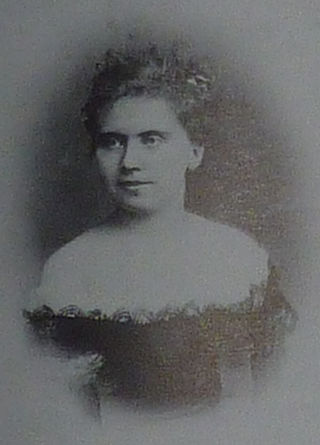 21
Maria Clara Isolde Kurz was a German poet and short story writer.
21
Maria Clara Isolde Kurz was a German poet and short story writer.
Franz Werfel
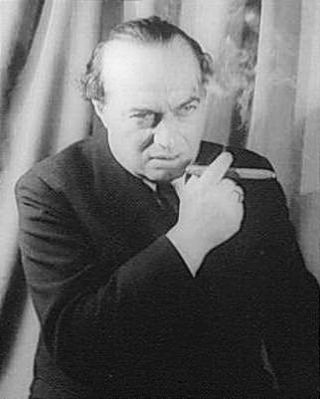 21
Franz Viktor Werfel was an Austrian-Bohemian novelist, playwright, and poet whose career spanned World War I, the Interwar period, and World War II. He is primarily known as the author of The Forty...
21
Franz Viktor Werfel was an Austrian-Bohemian novelist, playwright, and poet whose career spanned World War I, the Interwar period, and World War II. He is primarily known as the author of The Forty...
Nikolaus Ehlen
 21
Nikolaus Ehlen was a German pacifist teacher. He was a Catholic pioneer of the Selbsthilfe-Siedlungsbau, which was a movement to help workers get their own home.
21
Nikolaus Ehlen was a German pacifist teacher. He was a Catholic pioneer of the Selbsthilfe-Siedlungsbau, which was a movement to help workers get their own home.
Irène Joliot-Curie
 20
Irène Joliot-Curie was a French chemist, physicist and politician, the elder daughter of Pierre Curie and Marie Skłodowska–Curie, and the wife of Frédéric Joliot-Curie. Jointly with her husband,...
20
Irène Joliot-Curie was a French chemist, physicist and politician, the elder daughter of Pierre Curie and Marie Skłodowska–Curie, and the wife of Frédéric Joliot-Curie. Jointly with her husband,...
Lion Feuchtwanger
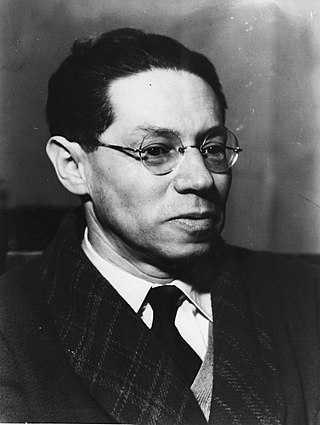 20
Lion Feuchtwanger was a German Jewish novelist and playwright. A prominent figure in the literary world of Weimar Germany, he influenced contemporaries including playwright Bertolt Brecht.
20
Lion Feuchtwanger was a German Jewish novelist and playwright. A prominent figure in the literary world of Weimar Germany, he influenced contemporaries including playwright Bertolt Brecht.
Felix Dahn
 20
Felix Ludwig Julius Dahn was a German law professor and nationalist author, poet and historian.
20
Felix Ludwig Julius Dahn was a German law professor and nationalist author, poet and historian.
Roald Amundsen
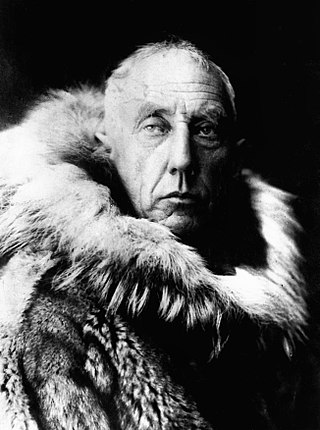 20
Roald Engelbregt Gravning Amundsen was a Norwegian explorer of polar regions. He was a key figure of the period known as the Heroic Age of Antarctic Exploration.
20
Roald Engelbregt Gravning Amundsen was a Norwegian explorer of polar regions. He was a key figure of the period known as the Heroic Age of Antarctic Exploration.
Adam Ries
 20
Adam Ries was a German mathematician. He is also known by the name Adam Riese. He is known as the "father of modern calculating" because of his decisive contribution to the recognition that Roman...
20
Adam Ries was a German mathematician. He is also known by the name Adam Riese. He is known as the "father of modern calculating" because of his decisive contribution to the recognition that Roman...
Dorothea Erxleben
 20
Dorothea Christiane Erxleben was a German doctor who became the first female doctor of medicine in Germany. Educated by her progressive physician father and rector of her school, she desired to...
20
Dorothea Christiane Erxleben was a German doctor who became the first female doctor of medicine in Germany. Educated by her progressive physician father and rector of her school, she desired to...
Carlo Mierendorff
 20
Carlo Mierendorff was a German politician of the Social Democratic Party (SPD) during the Weimar Republic. An intellectual activist and regional politician in the People's State of Hesse, he played a...
20
Carlo Mierendorff was a German politician of the Social Democratic Party (SPD) during the Weimar Republic. An intellectual activist and regional politician in the People's State of Hesse, he played a...
Heinrich von Brentano
 20
Heinrich Joseph Maximilian Johann Maria von Brentano di Tremezzo, known professionally as Heinrich von Brentano, was a German politician of the Christian Democratic Union (CDU). He served as Federal...
20
Heinrich Joseph Maximilian Johann Maria von Brentano di Tremezzo, known professionally as Heinrich von Brentano, was a German politician of the Christian Democratic Union (CDU). He served as Federal...
August Hinrichs
 20
August Gerhard Hinrichs war ein deutscher Schriftsteller.
20
August Gerhard Hinrichs war ein deutscher Schriftsteller.
Fanny Mendelssohn
 20
Fanny Mendelssohn was a German composer and pianist of the early Romantic era who was known as Fanny Hensel after her marriage. Her compositions include a piano trio, a piano quartet, an orchestral...
20
Fanny Mendelssohn was a German composer and pianist of the early Romantic era who was known as Fanny Hensel after her marriage. Her compositions include a piano trio, a piano quartet, an orchestral...
Liborius of Le Mans
 20
Liborius of Le Mans was the second Bishop of Le Mans. He is the patron saint of the cathedral and archdiocese of Paderborn in Germany. The year of his birth is unknown; he died in 397, reputedly on...
20
Liborius of Le Mans was the second Bishop of Le Mans. He is the patron saint of the cathedral and archdiocese of Paderborn in Germany. The year of his birth is unknown; he died in 397, reputedly on...
Leo Tolstoy
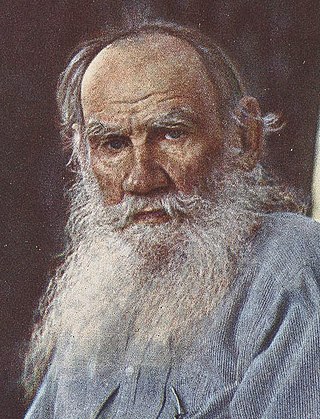 20
Count Lev Nikolayevich Tolstoy, usually referred to in English as Leo Tolstoy, was a Russian writer. He is regarded as one of the greatest and most influential authors of all time. He received...
20
Count Lev Nikolayevich Tolstoy, usually referred to in English as Leo Tolstoy, was a Russian writer. He is regarded as one of the greatest and most influential authors of all time. He received...
Tristan
 20
Tristan, also known as Tristram, Tristyn or Tristain and similar names, is the hero of the legend of Tristan and Iseult. In the legend, he is tasked with escorting the Irish princess Iseult to wed...
20
Tristan, also known as Tristram, Tristyn or Tristain and similar names, is the hero of the legend of Tristan and Iseult. In the legend, he is tasked with escorting the Irish princess Iseult to wed...
Oswald von Nell-Breuning
 20
Oswald von Nell-Breuning was a Roman Catholic theologian and sociologist.
20
Oswald von Nell-Breuning was a Roman Catholic theologian and sociologist.
Theodor Fliedner
 20
Theodor Fliedner was a German Lutheran minister and founder of Lutheran deaconess training. In 1836, he founded Kaiserswerther Diakonie, a hospital and deaconess training center. Together with his...
20
Theodor Fliedner was a German Lutheran minister and founder of Lutheran deaconess training. In 1836, he founded Kaiserswerther Diakonie, a hospital and deaconess training center. Together with his...
Martin Buber
 20
Martin Buber was an Austrian-Jewish and Israeli philosopher best known for his philosophy of dialogue, a form of existentialism centered on the distinction between the I–Thou relationship and the...
20
Martin Buber was an Austrian-Jewish and Israeli philosopher best known for his philosophy of dialogue, a form of existentialism centered on the distinction between the I–Thou relationship and the...
Hermann Staudinger
 19
Hermann Staudinger was a German organic chemist who demonstrated the existence of macromolecules, which he characterized as polymers. For this work he received the 1953 Nobel Prize in Chemistry.
19
Hermann Staudinger was a German organic chemist who demonstrated the existence of macromolecules, which he characterized as polymers. For this work he received the 1953 Nobel Prize in Chemistry.
Sepp Herberger
 19
Josef "Sepp" Herberger was a German football player and manager. He is most famous for being the manager of the West Germany national team that won the 1954 FIFA World Cup final, a match later dubbed...
19
Josef "Sepp" Herberger was a German football player and manager. He is most famous for being the manager of the West Germany national team that won the 1954 FIFA World Cup final, a match later dubbed...
Heinrich Göbel
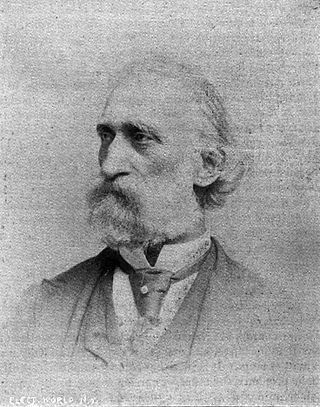 19
Heinrich Göbel, or Henry Goebel was a German-born American precision mechanic and inventor. In 1848 he immigrated to New York City, where he resided until his death. He received American citizenship...
19
Heinrich Göbel, or Henry Goebel was a German-born American precision mechanic and inventor. In 1848 he immigrated to New York City, where he resided until his death. He received American citizenship...
Blaise Pascal
 19
Blaise Pascal was a French mathematician, physicist, inventor, philosopher, and Catholic writer.
19
Blaise Pascal was a French mathematician, physicist, inventor, philosopher, and Catholic writer.
Joseph Wirth
 19
Karl Joseph Wirth was a German politician of the Catholic Centre Party who served for one year and six months as the chancellor of Germany from 1921 to 1922, as the finance minister from 1920 to...
19
Karl Joseph Wirth was a German politician of the Catholic Centre Party who served for one year and six months as the chancellor of Germany from 1921 to 1922, as the finance minister from 1920 to...
Martin Andersen Nexø
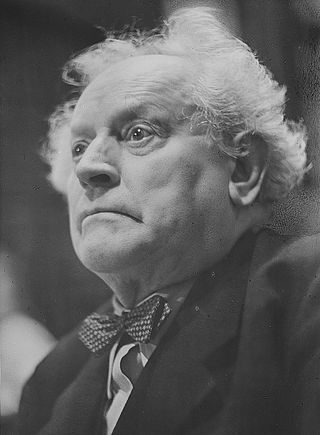 19
Martin Andersen Nexø was a Danish writer. He was one of the authors in the Modern Breakthrough movement in Danish art and literature. He was a socialist throughout his life and during the Second...
19
Martin Andersen Nexø was a Danish writer. He was one of the authors in the Modern Breakthrough movement in Danish art and literature. He was a socialist throughout his life and during the Second...
Otto Weddigen
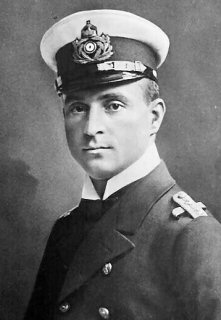 19
Otto Eduard Weddigen was an Imperial German Navy U-boat commander during World War I. He was awarded the Pour le Mérite, Germany's highest honour, for sinking four British warships.
19
Otto Eduard Weddigen was an Imperial German Navy U-boat commander during World War I. He was awarded the Pour le Mérite, Germany's highest honour, for sinking four British warships.
Boy Lornsen
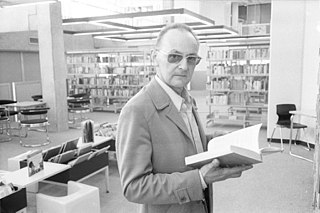 19
Boy Lornsen was a German sculptor and author of children's literature, writing both in Standard German and in Platt.
19
Boy Lornsen was a German sculptor and author of children's literature, writing both in Standard German and in Platt.
Karl Carstens
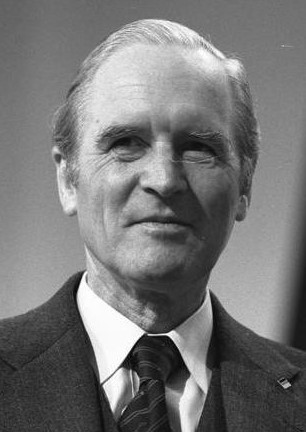 19
Karl Carstens was a German politician. He served as the president of West Germany from 1979 to 1984.
19
Karl Carstens was a German politician. He served as the president of West Germany from 1979 to 1984.
Max Pechstein
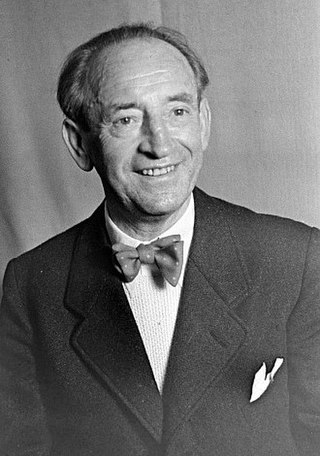 19
Hermann Max Pechstein was a German expressionist painter and printmaker and a member of the Die Brücke group. He fought on the Western Front during World War I and his art was classified as...
19
Hermann Max Pechstein was a German expressionist painter and printmaker and a member of the Die Brücke group. He fought on the Western Front during World War I and his art was classified as...
Hermann Stehr
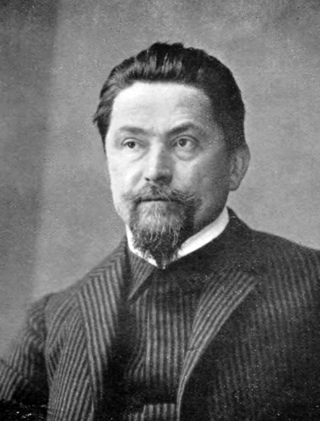 19
Hermann Stehr was a German novelist, dramatist and poet. He was nominated for the Nobel Prize in Literature four times.
19
Hermann Stehr was a German novelist, dramatist and poet. He was nominated for the Nobel Prize in Literature four times.
Erich Klausener
 19
Erich Klausener was a German Catholic politician and Catholic martyr in the "Night of the Long Knives", a purge that took place in Nazi Germany from 30 June to 2 July 1934, when the Nazi regime...
19
Erich Klausener was a German Catholic politician and Catholic martyr in the "Night of the Long Knives", a purge that took place in Nazi Germany from 30 June to 2 July 1934, when the Nazi regime...
Vladimir Lenin
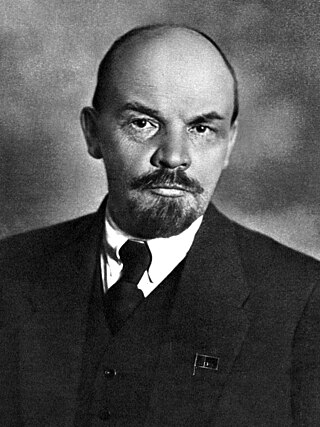 19
Vladimir Ilyich Ulyanov, better known as Vladimir Lenin, was a Russian revolutionary, Soviet politician, and political theorist who was the founder and first leader of the Russian Soviet Federative...
19
Vladimir Ilyich Ulyanov, better known as Vladimir Lenin, was a Russian revolutionary, Soviet politician, and political theorist who was the founder and first leader of the Russian Soviet Federative...
Willi Graf
 19
Wilhelm "Willi" Graf was a German member of the White Rose resistance group in Nazi Germany. The Catholic Church in Germany included Graf in their list of martyrs of the 20th century. In 2017, his...
19
Wilhelm "Willi" Graf was a German member of the White Rose resistance group in Nazi Germany. The Catholic Church in Germany included Graf in their list of martyrs of the 20th century. In 2017, his...
William Tell
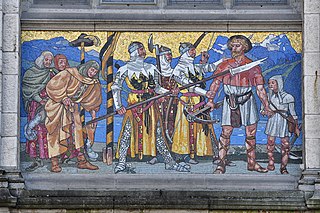 19
William Tell is a folk hero of Switzerland.
According to the legend, Tell was an expert mountain climber and marksman with a crossbow who assassinated Albrecht Gessler, a tyrannical reeve of the...
19
William Tell is a folk hero of Switzerland.
According to the legend, Tell was an expert mountain climber and marksman with a crossbow who assassinated Albrecht Gessler, a tyrannical reeve of the...
Karl May
 19
Karl Friedrich May was a German author. He is best known for his novels of travels and adventures, set in the American Old West, the Orient, the Middle East, Latin America, China and Germany. He also...
19
Karl Friedrich May was a German author. He is best known for his novels of travels and adventures, set in the American Old West, the Orient, the Middle East, Latin America, China and Germany. He also...
Saint Giles
 19
Saint Giles, also known as Giles the Hermit, was a hermit or monk active in the lower Rhône most likely in the 7th century. Revered as a saint, his cult became widely diffused but his hagiography is...
19
Saint Giles, also known as Giles the Hermit, was a hermit or monk active in the lower Rhône most likely in the 7th century. Revered as a saint, his cult became widely diffused but his hagiography is...
Napoleon
 19
Napoleon Bonaparte, later known by his regnal name Napoleon I, was a French emperor and military commander who rose to prominence during the French Revolution and led successful campaigns during the...
19
Napoleon Bonaparte, later known by his regnal name Napoleon I, was a French emperor and military commander who rose to prominence during the French Revolution and led successful campaigns during the...
Thomas Dehler
 18
Thomas Dehler was a German politician. He was the Federal Republic of Germany's first Minister of Justice (1949–1953) and chairman of Free Democratic Party (1954–1957).
18
Thomas Dehler was a German politician. He was the Federal Republic of Germany's first Minister of Justice (1949–1953) and chairman of Free Democratic Party (1954–1957).
Dante Alighieri
 18
Dante Alighieri, most likely baptized Durante di Alighiero degli Alighieri and often referred to as Dante, was an Italian poet, writer, and philosopher. His Divine Comedy, originally called Comedìa...
18
Dante Alighieri, most likely baptized Durante di Alighiero degli Alighieri and often referred to as Dante, was an Italian poet, writer, and philosopher. His Divine Comedy, originally called Comedìa...
Hans Bredow
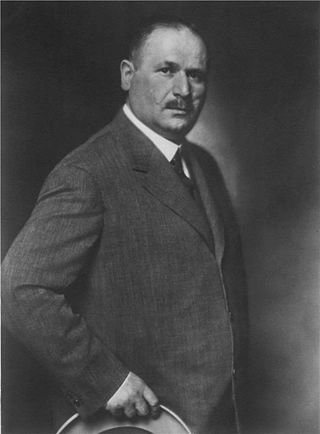 18
Hans Bredow was a German radio broadcasting pioneer and the first chairman of Weimar Germany's National broadcasting service. He is regarded as the "father of German broadcasting".
18
Hans Bredow was a German radio broadcasting pioneer and the first chairman of Weimar Germany's National broadcasting service. He is regarded as the "father of German broadcasting".
Albert, Duke of Prussia
 18
Albert of Prussia was a German prince who was the 37th grand master of the Teutonic Knights and, after converting to Lutheranism, became the first ruler of the Duchy of Prussia, the secularized state...
18
Albert of Prussia was a German prince who was the 37th grand master of the Teutonic Knights and, after converting to Lutheranism, became the first ruler of the Duchy of Prussia, the secularized state...
Bernhard Riemann
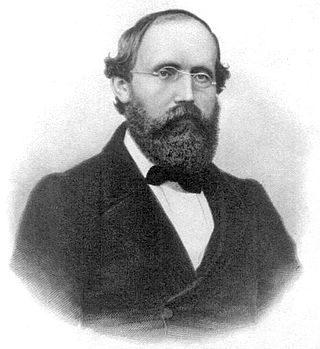 18
Georg Friedrich Bernhard Riemann was a German mathematician who made profound contributions to analysis, number theory, and differential geometry. In the field of real analysis, he is mostly known...
18
Georg Friedrich Bernhard Riemann was a German mathematician who made profound contributions to analysis, number theory, and differential geometry. In the field of real analysis, he is mostly known...
Karl Stieler
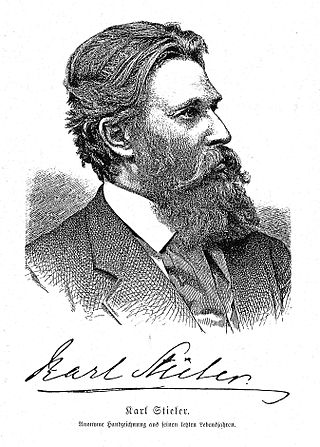 18
Karl Stieler was a German lawyer and author.
18
Karl Stieler was a German lawyer and author.
August Thyssen
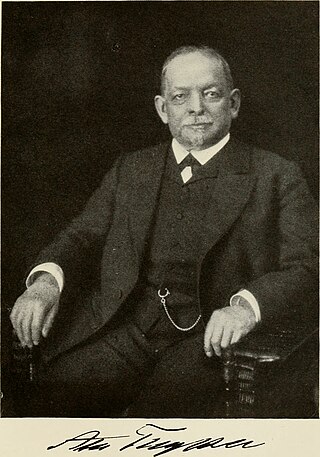 18
August Thyssen was a German industrialist, founder and controlling shareholder of Thyssen & Co. He was a prominent member of the Thyssen family.
18
August Thyssen was a German industrialist, founder and controlling shareholder of Thyssen & Co. He was a prominent member of the Thyssen family.
Augustus
 18
Gaius Julius Caesar Augustus, also known as Octavian, was the founder of the Roman Empire. He reigned as the first Roman emperor from 27 BC until his death in AD 14. The reign of Augustus initiated...
18
Gaius Julius Caesar Augustus, also known as Octavian, was the founder of the Roman Empire. He reigned as the first Roman emperor from 27 BC until his death in AD 14. The reign of Augustus initiated...
Maria Theresa
 18
Maria Theresa was ruler of the Habsburg dominions from 1740 until her death in 1780, and the only woman to hold the position suo jure. She was the sovereign of Austria, Hungary, Croatia, Bohemia,...
18
Maria Theresa was ruler of the Habsburg dominions from 1740 until her death in 1780, and the only woman to hold the position suo jure. She was the sovereign of Austria, Hungary, Croatia, Bohemia,...
Gustav Struve
 18
Gustav Struve, known as Gustav von Struve until he gave up his title, was a German surgeon, politician, lawyer and publicist, and a revolutionary during the German revolutions of 1848–1849 in Baden,...
18
Gustav Struve, known as Gustav von Struve until he gave up his title, was a German surgeon, politician, lawyer and publicist, and a revolutionary during the German revolutions of 1848–1849 in Baden,...
Paul Hindemith
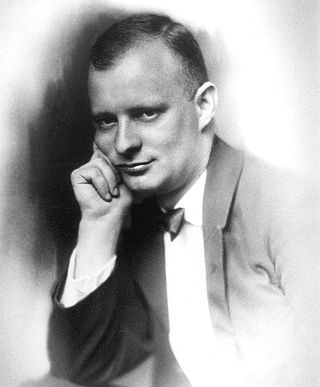 18
Paul Hindemith was a German and American composer, music theorist, teacher, violist and conductor. He founded the Amar Quartet in 1921, touring extensively in Europe. As a composer, he became a major...
18
Paul Hindemith was a German and American composer, music theorist, teacher, violist and conductor. He founded the Amar Quartet in 1921, touring extensively in Europe. As a composer, he became a major...
Maximilian von Spee
 18
Maximilian Johannes Maria Hubert Reichsgraf von Spee was a naval officer of the German Kaiserliche Marine, who commanded the East Asia Squadron during World War I. Spee entered the navy in 1878 and...
18
Maximilian Johannes Maria Hubert Reichsgraf von Spee was a naval officer of the German Kaiserliche Marine, who commanded the East Asia Squadron during World War I. Spee entered the navy in 1878 and...
Adam Müller-Guttenbrunn
 18
Adam Müller-Guttenbrunn was an Austrian author.
18
Adam Müller-Guttenbrunn was an Austrian author.
Pope Urban I
 18
Pope Urban I, also known as Saint Urban (175?–230), was the bishop of Rome from 222 to 23 May 230. He was born in Rome and succeeded Callixtus I, who had been martyred. It was believed for centuries...
18
Pope Urban I, also known as Saint Urban (175?–230), was the bishop of Rome from 222 to 23 May 230. He was born in Rome and succeeded Callixtus I, who had been martyred. It was believed for centuries...
Louis Braille
 17
Louis Braille was a French educator and the inventor of a reading and writing system named after him, braille, intended for use by visually impaired people. His system is used worldwide and remains...
17
Louis Braille was a French educator and the inventor of a reading and writing system named after him, braille, intended for use by visually impaired people. His system is used worldwide and remains...
Paul Reusch
 17
Paul Hermann Reusch war ein deutscher Industriemanager und langjähriger Vorstandsvorsitzender der Gutehoffnungshütte. Unter seiner Leitung wandelte sich das Oberhausener Montanunternehmen endgültig...
17
Paul Hermann Reusch war ein deutscher Industriemanager und langjähriger Vorstandsvorsitzender der Gutehoffnungshütte. Unter seiner Leitung wandelte sich das Oberhausener Montanunternehmen endgültig...
Isaac Newton
 17
Sir Isaac Newton was an English polymath active as a mathematician, physicist, astronomer, alchemist, theologian, and author who was described in his time as a natural philosopher. He was a key...
17
Sir Isaac Newton was an English polymath active as a mathematician, physicist, astronomer, alchemist, theologian, and author who was described in his time as a natural philosopher. He was a key...
Paul Löbe
 17
Paul Gustav Emil Löbe was a German politician of the Social Democratic Party of Germany (SPD), a member and president of the Reichstag of the Weimar Republic, and member of the Bundestag of West...
17
Paul Gustav Emil Löbe was a German politician of the Social Democratic Party of Germany (SPD), a member and president of the Reichstag of the Weimar Republic, and member of the Bundestag of West...
Ernst A. Lehmann
 17
Captain Ernst August Lehmann was a German Zeppelin captain. He was one of the most famous and experienced figures in German airship travel. The Pittsburgh Press called Lehmann the best airship pilot...
17
Captain Ernst August Lehmann was a German Zeppelin captain. He was one of the most famous and experienced figures in German airship travel. The Pittsburgh Press called Lehmann the best airship pilot...
Henry IV, Duke of Saxony
 17
Henry IV the Pious, Duke of Saxony was a Duke of Saxony from the House of Wettin. Succeeding his brother George, Duke of Saxony, a fervent Catholic who sought to extinguish Lutheranism by any means...
17
Henry IV the Pious, Duke of Saxony was a Duke of Saxony from the House of Wettin. Succeeding his brother George, Duke of Saxony, a fervent Catholic who sought to extinguish Lutheranism by any means...
Gustav Nachtigal
 17
Gustav Nachtigal was a German military surgeon and explorer of Central and West Africa. He is further known as the German Empire's consul-general for Tunisia and Commissioner for West Africa. His...
17
Gustav Nachtigal was a German military surgeon and explorer of Central and West Africa. He is further known as the German Empire's consul-general for Tunisia and Commissioner for West Africa. His...
Bernhard Kellermann
 17
Bernhard Kellermann was a German author and poet.
17
Bernhard Kellermann was a German author and poet.
Eugen Roth
 17
Eugen Roth was a Bavarian poet who wrote mostly humorous verse.
17
Eugen Roth was a Bavarian poet who wrote mostly humorous verse.
Quirinus
 17
In Roman mythology and religion, Quirinus is an early god of the Roman state. In Augustan Rome, Quirinus was also an epithet of Janus, as Janus Quirinus.
17
In Roman mythology and religion, Quirinus is an early god of the Roman state. In Augustan Rome, Quirinus was also an epithet of Janus, as Janus Quirinus.
Erasmus
 17
Desiderius Erasmus Roterodamus was a Dutch Christian humanist, Catholic theologian, educationalist, satirist, and philosopher. Through his vast number of translations, books, essays, prayers and...
17
Desiderius Erasmus Roterodamus was a Dutch Christian humanist, Catholic theologian, educationalist, satirist, and philosopher. Through his vast number of translations, books, essays, prayers and...
Christine Koch
 17
Christine Koch, geb. Wüllner, war eine deutsche Lyrikerin sauerländischer Mundart.
17
Christine Koch, geb. Wüllner, war eine deutsche Lyrikerin sauerländischer Mundart.
Jakob Wassermann
 17
Jakob Wassermann was a German writer and novelist.
17
Jakob Wassermann was a German writer and novelist.
Johann Heinrich Jung
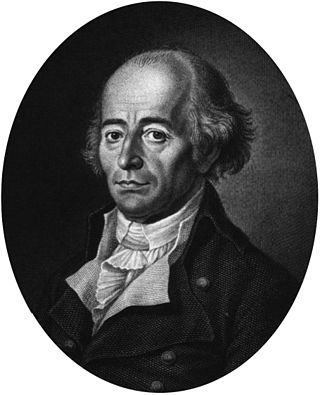 17
Johann Heinrich Jung, better known by his assumed name Heinrich Stilling, was a German author. He is often called by both surnames as "Jung-Stilling".
17
Johann Heinrich Jung, better known by his assumed name Heinrich Stilling, was a German author. He is often called by both surnames as "Jung-Stilling".
Heinrich Imig
 17
Heinrich Gottlieb Imig was a German trade unionist and politician.
17
Heinrich Gottlieb Imig was a German trade unionist and politician.
Emanuel Geibel
 17
Emanuel von Geibel was a German poet and playwright.
17
Emanuel von Geibel was a German poet and playwright.
Christian Rohlfs
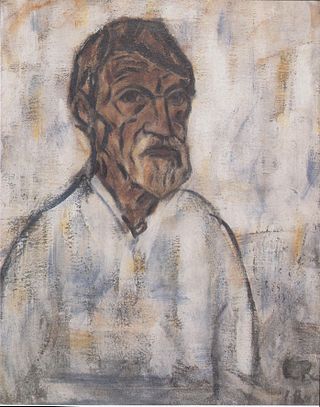 16
Christian Rohlfs was a German painter and printmaker, one of the important representatives of German expressionism.
16
Christian Rohlfs was a German painter and printmaker, one of the important representatives of German expressionism.
Hans Fallada
 16
Hans Fallada was a German writer of the first half of the 20th century. Some of his better known novels include Little Man, What Now? (1932) and Every Man Dies Alone (1947). His works belong...
16
Hans Fallada was a German writer of the first half of the 20th century. Some of his better known novels include Little Man, What Now? (1932) and Every Man Dies Alone (1947). His works belong...
Wilhelm Liebknecht
 16
Wilhelm Martin Philipp Christian Ludwig Liebknecht was a German socialist and one of the principal founders of the Social Democratic Party of Germany (SPD). His political career was a pioneering...
16
Wilhelm Martin Philipp Christian Ludwig Liebknecht was a German socialist and one of the principal founders of the Social Democratic Party of Germany (SPD). His political career was a pioneering...
L. L. Zamenhof
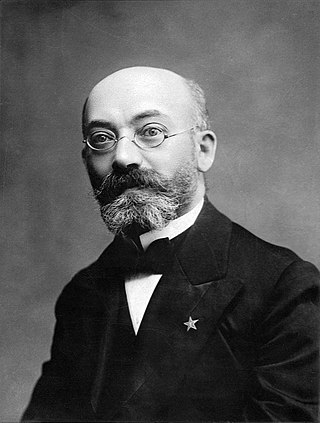 16
L. L. Zamenhof was the creator of Esperanto, the most widely used constructed international auxiliary language.
16
L. L. Zamenhof was the creator of Esperanto, the most widely used constructed international auxiliary language.
Abraham Lincoln
 16
Abraham Lincoln was an American lawyer, politician, and statesman, who served as the 16th president of the United States, from 1861 until his assassination in 1865. Lincoln led the United States...
16
Abraham Lincoln was an American lawyer, politician, and statesman, who served as the 16th president of the United States, from 1861 until his assassination in 1865. Lincoln led the United States...
Kurt Huber
 16
Kurt Huber was a German university professor and resistance fighter with the anti-Nazi group White Rose. For his involvement he was imprisoned and guillotined.
16
Kurt Huber was a German university professor and resistance fighter with the anti-Nazi group White Rose. For his involvement he was imprisoned and guillotined.
Heinrich Seidel
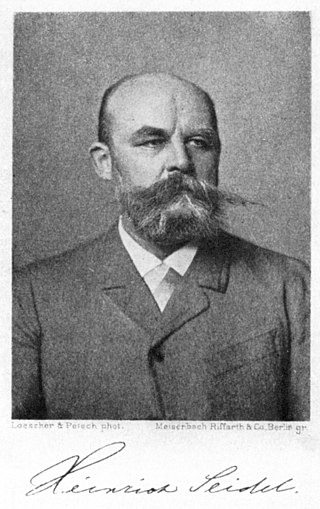 16
Heinrich Friedrich Wilhelm Seidel was a German engineer, poet and writer.
16
Heinrich Friedrich Wilhelm Seidel was a German engineer, poet and writer.
Georg Ohm
 16
Georg Simon Ohm was a German physicist and mathematician. As a school teacher, Ohm began his research with the new electrochemical cell, invented by Italian scientist Alessandro Volta. Using...
16
Georg Simon Ohm was a German physicist and mathematician. As a school teacher, Ohm began his research with the new electrochemical cell, invented by Italian scientist Alessandro Volta. Using...
Carl Linnaeus
 16
Carl Linnaeus, also known after ennoblement in 1761 as Carl von Linné, was a Swedish biologist and physician who formalised binomial nomenclature, the modern system of naming organisms. He is known...
16
Carl Linnaeus, also known after ennoblement in 1761 as Carl von Linné, was a Swedish biologist and physician who formalised binomial nomenclature, the modern system of naming organisms. He is known...
Frau Holle
 16
"Frau Holle" is a German fairy tale collected by the Brothers Grimm in Children's and Household Tales in 1812. It is of Aarne-Thompson type 480.
16
"Frau Holle" is a German fairy tale collected by the Brothers Grimm in Children's and Household Tales in 1812. It is of Aarne-Thompson type 480.
Ludwig Finckh
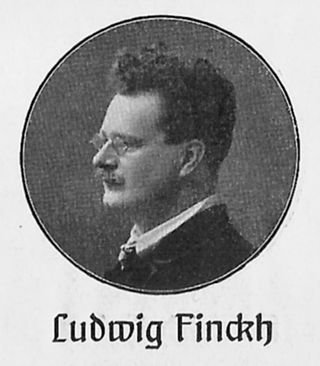 16
Ludwig Finckh war ein deutscher Schriftsteller und Arzt. Neben eigenen schriftstellerischen Erfolgen ist er bekannt durch seine Freundschaft mit Hermann Hesse, von der eine umfangreiche Korrespondenz...
16
Ludwig Finckh war ein deutscher Schriftsteller und Arzt. Neben eigenen schriftstellerischen Erfolgen ist er bekannt durch seine Freundschaft mit Hermann Hesse, von der eine umfangreiche Korrespondenz...
Hans Watzlik
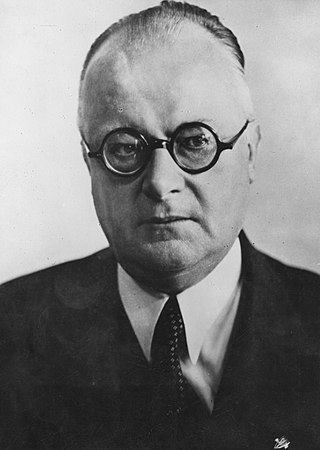 16
Hans Watzlik war ein deutsch-böhmischer Schriftsteller.
16
Hans Watzlik war ein deutsch-böhmischer Schriftsteller.
Karl Bröger
 16
Karl Bröger war ein deutscher Arbeiter- und Heimatdichter.
16
Karl Bröger war ein deutscher Arbeiter- und Heimatdichter.
Jakob Böhme
 16
Jakob Böhme was a German philosopher, Christian mystic, and Lutheran Protestant theologian. He was considered an original thinker by many of his contemporaries within the Lutheran tradition, and his...
16
Jakob Böhme was a German philosopher, Christian mystic, and Lutheran Protestant theologian. He was considered an original thinker by many of his contemporaries within the Lutheran tradition, and his...
Ludwig Quidde
 16
Ludwig Quidde was a German politician and pacifist who is mainly remembered today for his acerbic criticism of German Emperor Wilhelm II. Quidde's long career spanned four different eras of German...
16
Ludwig Quidde was a German politician and pacifist who is mainly remembered today for his acerbic criticism of German Emperor Wilhelm II. Quidde's long career spanned four different eras of German...
Carl Miele
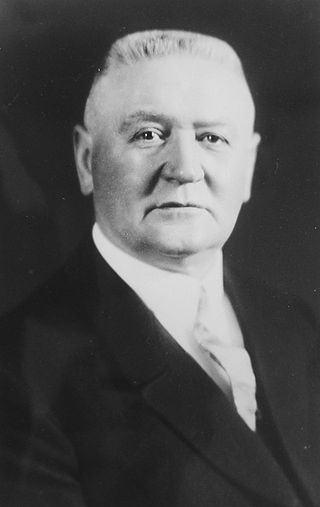 16
Carl Miele was a German businessman. He was a company co-founder of the German company Miele.
16
Carl Miele was a German businessman. He was a company co-founder of the German company Miele.
Rudolf Tarnow
 15
Rudolf Tarnow was a Low German writer.
15
Rudolf Tarnow was a Low German writer.
Theodor Litt
 15
Theodor Litt was a German culture and social philosopher as well as a pedagogue.
15
Theodor Litt was a German culture and social philosopher as well as a pedagogue.
Rudolf Friedrichs
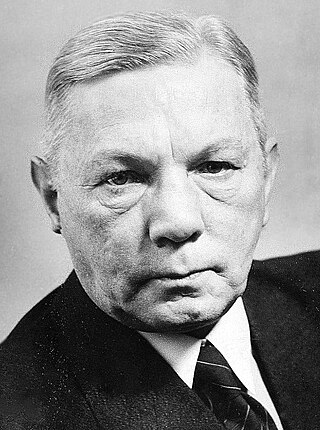 15
Rudolf Friedrichs was a German politician who served as the Minister-President of Saxony in the German Democratic Republic from 1945 to his death.
15
Rudolf Friedrichs was a German politician who served as the Minister-President of Saxony in the German Democratic Republic from 1945 to his death.
Oskar Maria Graf
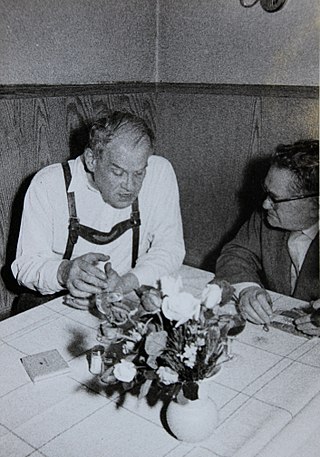 15
Oskar Maria Graf was a German-American writer who wrote several narratives about life in Bavaria, mostly autobiographical. In the beginning, Graf wrote under his real name Oskar Graf. After 1918, his...
15
Oskar Maria Graf was a German-American writer who wrote several narratives about life in Bavaria, mostly autobiographical. In the beginning, Graf wrote under his real name Oskar Graf. After 1918, his...
Henning von Tresckow
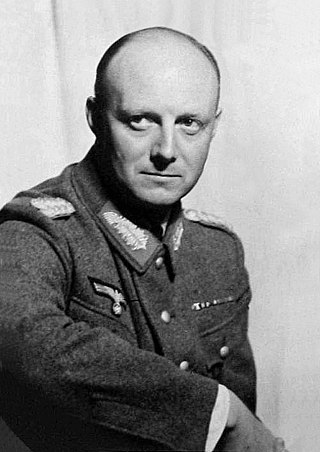 15
Henning Hermann Karl Robert von Tresckow was a German military officer with the rank of major general in the German Army who helped organize German resistance against Adolf Hitler. He attempted to...
15
Henning Hermann Karl Robert von Tresckow was a German military officer with the rank of major general in the German Army who helped organize German resistance against Adolf Hitler. He attempted to...
Ottilie Wildermuth
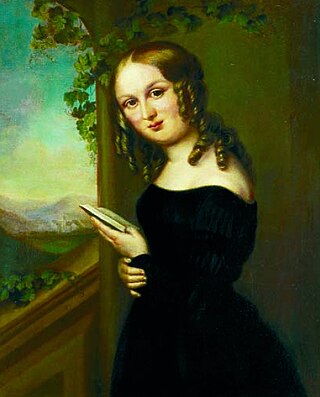 15
Ottilie Wildermuth was a German writer, particularly notable for her children's books.
15
Ottilie Wildermuth was a German writer, particularly notable for her children's books.
Mildred Harnack
 15
Mildred Elizabeth Harnack was an American literary historian, translator, and member of the German resistance against the Nazi regime. After marrying Arvid Harnack, she moved to Germany in 1929,...
15
Mildred Elizabeth Harnack was an American literary historian, translator, and member of the German resistance against the Nazi regime. After marrying Arvid Harnack, she moved to Germany in 1929,...
Niels Bohr
 15
Niels Henrik David Bohr was a Danish physicist who made foundational contributions to understanding atomic structure and quantum theory, for which he received the Nobel Prize in Physics in 1922. Bohr...
15
Niels Henrik David Bohr was a Danish physicist who made foundational contributions to understanding atomic structure and quantum theory, for which he received the Nobel Prize in Physics in 1922. Bohr...
Gerold, Prefect of Bavaria
 15
Gerold was a franconian nobleman who served the Frankish King, Charlemagne, as Margrave of the Avar March and Prefect of Bavaria in what is now South-Eastern Germany. Gerold played a significant role...
15
Gerold was a franconian nobleman who served the Frankish King, Charlemagne, as Margrave of the Avar March and Prefect of Bavaria in what is now South-Eastern Germany. Gerold played a significant role...
John Schehr
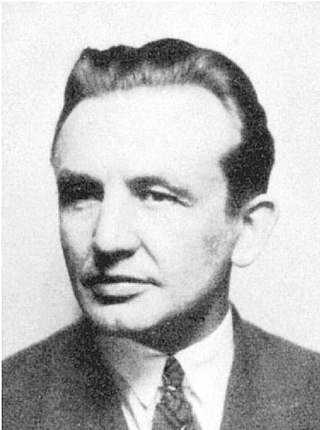 15
John Schehr was a German political activist who became a Communist Party politician and ultimately, chairman (leader) of the party, following the arrest on 3 March 1933 of Ernst Thälmann. By this...
15
John Schehr was a German political activist who became a Communist Party politician and ultimately, chairman (leader) of the party, following the arrest on 3 March 1933 of Ernst Thälmann. By this...
Hadrian
 15
Hadrian was Roman emperor from 117 to 138. Hadrian was born in Italica, close to modern Seville in Spain, an Italic settlement in Hispania Baetica; his branch of the Aelia gens, the Aeli Hadriani,...
15
Hadrian was Roman emperor from 117 to 138. Hadrian was born in Italica, close to modern Seville in Spain, an Italic settlement in Hispania Baetica; his branch of the Aelia gens, the Aeli Hadriani,...
Melli Beese
 15
Amelie Hedwig Boutard-Beese, besser bekannt unter ihrem Rufnamen Melli Beese, war eine deutsche Pilotin. Sie ging in die Geschichte ein als die erste Frau, die in Deutschland die Prüfung zum Erwerb...
15
Amelie Hedwig Boutard-Beese, besser bekannt unter ihrem Rufnamen Melli Beese, war eine deutsche Pilotin. Sie ging in die Geschichte ein als die erste Frau, die in Deutschland die Prüfung zum Erwerb...
Oskar Schlemmer
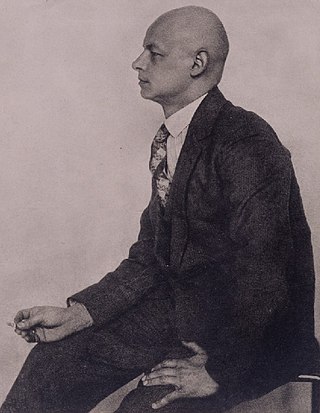 15
Oskar Schlemmer was a German painter, sculptor, designer and choreographer associated with the Bauhaus school.
15
Oskar Schlemmer was a German painter, sculptor, designer and choreographer associated with the Bauhaus school.
Peter Parler
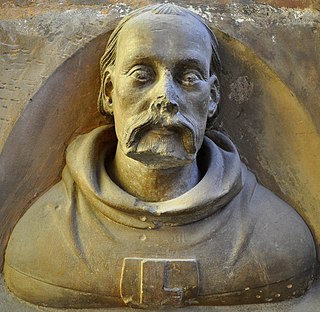 15
Peter Parler was a German-Bohemian architect and sculptor from the Parler family of master builders. Along with his father, Heinrich Parler, he is one of the most prominent and influential craftsmen...
15
Peter Parler was a German-Bohemian architect and sculptor from the Parler family of master builders. Along with his father, Heinrich Parler, he is one of the most prominent and influential craftsmen...
Diedrich Speckmann
 15
Diedrich Speckmann war ein deutscher Schriftsteller. Als Vertreter der Heimatkunst wurde er vor allem als „Heidedichter“ bekannt.
15
Diedrich Speckmann war ein deutscher Schriftsteller. Als Vertreter der Heimatkunst wurde er vor allem als „Heidedichter“ bekannt.
Marie-Elisabeth Lüders
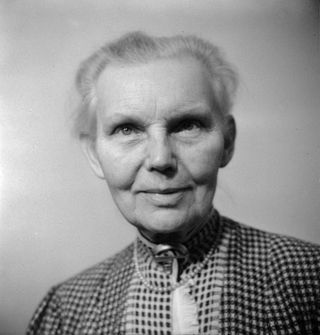 15
Marie-Elisabeth Lüders was a German politician and women's rights activist.
15
Marie-Elisabeth Lüders was a German politician and women's rights activist.
Saint Alban
 15
Saint Alban is venerated as the first-recorded British Christian martyr, for which reason he is considered to be the British protomartyr. Along with fellow Saints Julius and Aaron, Alban is one of...
15
Saint Alban is venerated as the first-recorded British Christian martyr, for which reason he is considered to be the British protomartyr. Along with fellow Saints Julius and Aaron, Alban is one of...
Luise Rinser
 15
Luise Rinser was a German writer, best known for her novels and short stories.
15
Luise Rinser was a German writer, best known for her novels and short stories.
Emmeram of Regensburg
 15
Saint Emmeram of Regensburg was a Christian bishop and a martyr born in Poitiers, Aquitaine. Having heard of idolatry in Bavaria, Emmeram travelled to Ratisbon (Regensburg) some time after the year...
15
Saint Emmeram of Regensburg was a Christian bishop and a martyr born in Poitiers, Aquitaine. Having heard of idolatry in Bavaria, Emmeram travelled to Ratisbon (Regensburg) some time after the year...
Helene Weigel
 14
Helene Weigel was a German actress and artistic director. She was the second wife of Bertolt Brecht and was married to him from 1930 until his death in 1956. Together they had two children.
14
Helene Weigel was a German actress and artistic director. She was the second wife of Bertolt Brecht and was married to him from 1930 until his death in 1956. Together they had two children.
Hermann Oberth
 14
Hermann Julius Oberth was an Austro-Hungarian-born German physicist and rocket pioneer of Transylvanian Saxon descent. He is considered one of the founding fathers of rocketry and astronautics, along...
14
Hermann Julius Oberth was an Austro-Hungarian-born German physicist and rocket pioneer of Transylvanian Saxon descent. He is considered one of the founding fathers of rocketry and astronautics, along...
Apollo
 14
Apollo is one of the Olympian deities in classical Greek and Roman religion and Greek and Roman mythology. Apollo has been recognized as a god of archery, music and dance, truth and prophecy, healing...
14
Apollo is one of the Olympian deities in classical Greek and Roman religion and Greek and Roman mythology. Apollo has been recognized as a god of archery, music and dance, truth and prophecy, healing...
Menno Simons
 14
Menno Simons was a Roman Catholic priest from the Friesland region of the Low Countries who was excommunicated from the Catholic Church and became an influential Anabaptist religious leader. Simons...
14
Menno Simons was a Roman Catholic priest from the Friesland region of the Low Countries who was excommunicated from the Catholic Church and became an influential Anabaptist religious leader. Simons...
Otto Mueller
 14
Otto Müller was a German painter and printmaker of the Die Brücke expressionist movement.
14
Otto Müller was a German painter and printmaker of the Die Brücke expressionist movement.
Fritz Heckert
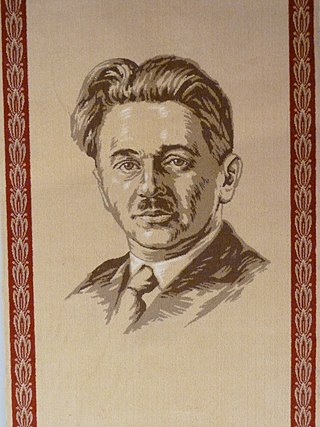 14
Friedrich (Fritz) Carl Heckert was a German politician, co-founder of the Spartacus League and the Communist Party of Germany and a leading member of the Communist International (Comintern). He also...
14
Friedrich (Fritz) Carl Heckert was a German politician, co-founder of the Spartacus League and the Communist Party of Germany and a leading member of the Communist International (Comintern). He also...
Friedrich Gerstäcker
 14
Friedrich Gerstäcker was a German traveler, novelist, and adventurer.
14
Friedrich Gerstäcker was a German traveler, novelist, and adventurer.
Olof Palme
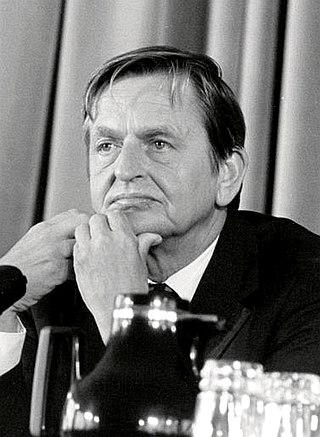 14
Sven Olof Joachim Palme was a Swedish politician and statesman who served as Prime Minister of Sweden from 1969 to 1976 and 1982 to 1986. Palme led the Swedish Social Democratic Party from 1969 until...
14
Sven Olof Joachim Palme was a Swedish politician and statesman who served as Prime Minister of Sweden from 1969 to 1976 and 1982 to 1986. Palme led the Swedish Social Democratic Party from 1969 until...
Hanns Martin Schleyer
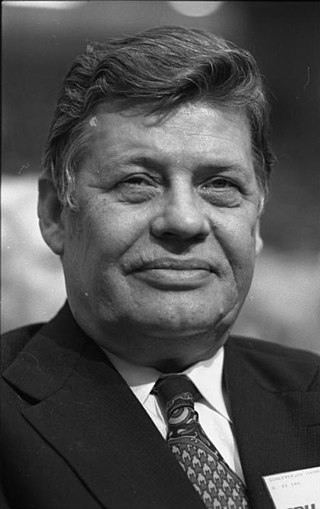 14
Hans "Hanns" Martin Schleyer was a German business executive, and employer and industry representative, and SS officer who served as president of two powerful commercial organizations, the...
14
Hans "Hanns" Martin Schleyer was a German business executive, and employer and industry representative, and SS officer who served as president of two powerful commercial organizations, the...
Leonhard Frank
 14
Leonhard Frank was a German expressionist writer. He studied painting and graphic art in Munich, and gained acclaim with his first novel The Robber Band. When a Berlin journalist celebrated in a...
14
Leonhard Frank was a German expressionist writer. He studied painting and graphic art in Munich, and gained acclaim with his first novel The Robber Band. When a Berlin journalist celebrated in a...
Christine Teusch
 14
Christine Teusch was a German politician of the Zentrumspartei and the Christian Democratic Union.
14
Christine Teusch was a German politician of the Zentrumspartei and the Christian Democratic Union.
Anton Aulke
 14
Anton Aulke war ein deutscher Gymnasiallehrer und als Schriftsteller ein bedeutender Vertreter mundartlicher Dichtung im Münsterland.
14
Anton Aulke war ein deutscher Gymnasiallehrer und als Schriftsteller ein bedeutender Vertreter mundartlicher Dichtung im Münsterland.
Nicholas of Cusa
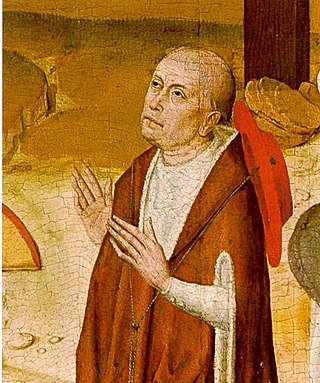 14
Nicholas of Cusa, also referred to as Nicholas of Kues and Nicolaus Cusanus, was a German Catholic cardinal and polymath active as a philosopher, theologian, jurist, mathematician and astronomer. One...
14
Nicholas of Cusa, also referred to as Nicholas of Kues and Nicolaus Cusanus, was a German Catholic cardinal and polymath active as a philosopher, theologian, jurist, mathematician and astronomer. One...
Baldr
 14
Baldr is a god in Germanic mythology. In Norse mythology, he is a son of the god Odin and the goddess Frigg, and has numerous brothers, such as Thor and Váli. In wider Germanic mythology, the god was...
14
Baldr is a god in Germanic mythology. In Norse mythology, he is a son of the god Odin and the goddess Frigg, and has numerous brothers, such as Thor and Váli. In wider Germanic mythology, the god was...
Johanna Kirchner
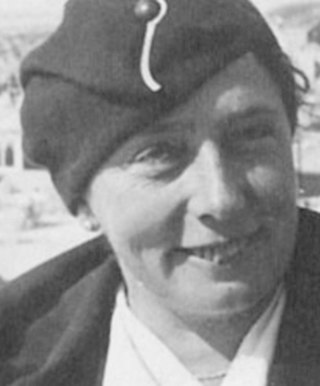 14
Johanna "Hanna" Kirchner was a German opponent of the Nazi régime.
14
Johanna "Hanna" Kirchner was a German opponent of the Nazi régime.
Peter Thumb
 14
Peter Thumb was an Austrian architect and master builder whose family came from Bezau, Vorarlberg, in the westernmost part of Austria. He was active in Baden, the Black Forest, Alsace, Upper Swabia,...
14
Peter Thumb was an Austrian architect and master builder whose family came from Bezau, Vorarlberg, in the westernmost part of Austria. He was active in Baden, the Black Forest, Alsace, Upper Swabia,...
Michael von Faulhaber
 14
Michael Ritter von Faulhaber was a German Catholic prelate who served as Archbishop of Munich for 35 years, from 1917 to his death in 1952. Created Cardinal in 1921, von Faulhaber remained an...
14
Michael Ritter von Faulhaber was a German Catholic prelate who served as Archbishop of Munich for 35 years, from 1917 to his death in 1952. Created Cardinal in 1921, von Faulhaber remained an...
Alexander Fleming
 14
Sir Alexander Fleming was a Scottish physician and microbiologist, best known for discovering the world's first broadly effective antibiotic substance, which he named penicillin. His discovery in...
14
Sir Alexander Fleming was a Scottish physician and microbiologist, best known for discovering the world's first broadly effective antibiotic substance, which he named penicillin. His discovery in...
Hanns Eisler
 14
Hanns Eisler was a German-Austrian composer. He is best known for composing the national anthem of East Germany, for his long artistic association with Bertolt Brecht, and for the scores he wrote for...
14
Hanns Eisler was a German-Austrian composer. He is best known for composing the national anthem of East Germany, for his long artistic association with Bertolt Brecht, and for the scores he wrote for...
Katharina Paulus
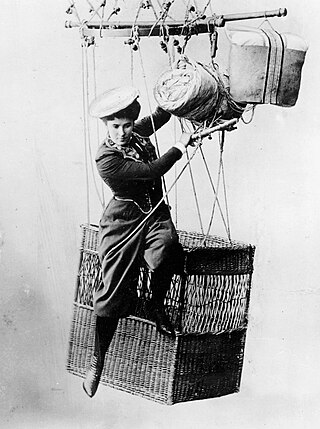 14
Katharina "Käthe" Paulus was a German exhibition parachute jumper and the inventor of the first collapsible parachute. At the time, 1910, the parachute was named "rescue apparatus for aeronauts". The...
14
Katharina "Käthe" Paulus was a German exhibition parachute jumper and the inventor of the first collapsible parachute. At the time, 1910, the parachute was named "rescue apparatus for aeronauts". The...
Frederick Augustus I of Saxony
 14
Frederick Augustus I was a member of the House of Wettin who reigned as the last Elector of Saxony from 1763 to 1806 and as the first King of Saxony from 1806 to 1827. He was also Duke of Warsaw from...
14
Frederick Augustus I was a member of the House of Wettin who reigned as the last Elector of Saxony from 1763 to 1806 and as the first King of Saxony from 1806 to 1827. He was also Duke of Warsaw from...
Otto Grotewohl
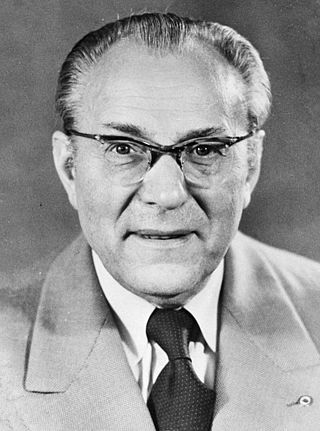 14
Otto Emil Franz Grotewohl was a German politician who served as the first prime minister of the German Democratic Republic from its foundation in October 1949 until his death in September 1964.
14
Otto Emil Franz Grotewohl was a German politician who served as the first prime minister of the German Democratic Republic from its foundation in October 1949 until his death in September 1964.
Alma Rogge
 14
Alma Rogge war eine deutsche Schriftstellerin.
14
Alma Rogge war eine deutsche Schriftstellerin.
Thusnelda
 14
Thusnelda was a Germanic Cheruscan noblewoman who was captured by the Roman general Germanicus during his invasion of Germania. She was the wife of Arminius. Tacitus and Strabo cite her capture as...
14
Thusnelda was a Germanic Cheruscan noblewoman who was captured by the Roman general Germanicus during his invasion of Germania. She was the wife of Arminius. Tacitus and Strabo cite her capture as...
Mother Teresa
 14
Mary Teresa Bojaxhiu MC, better known as Mother Teresa, was an Albanian-Indian Catholic nun and the founder of the Missionaries of Charity. Born in Skopje, then part of the Ottoman Empire, at the age...
14
Mary Teresa Bojaxhiu MC, better known as Mother Teresa, was an Albanian-Indian Catholic nun and the founder of the Missionaries of Charity. Born in Skopje, then part of the Ottoman Empire, at the age...
Johannes Rau
 14
Johannes Rau was a German politician (SPD). He was the president of Germany from 1 July 1999 until 30 June 2004 and the minister president of North Rhine-Westphalia from 20 September 1978 to 9 June...
14
Johannes Rau was a German politician (SPD). He was the president of Germany from 1 July 1999 until 30 June 2004 and the minister president of North Rhine-Westphalia from 20 September 1978 to 9 June...
Oskar Schindler
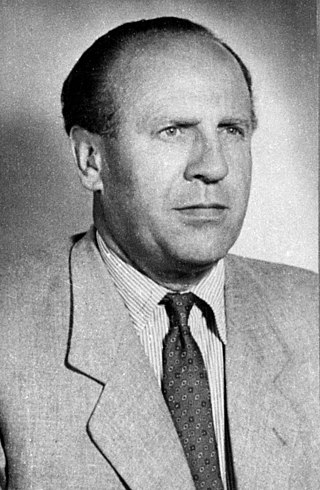 14
Oskar Schindler was a German industrialist, humanitarian, and member of the Nazi Party who is credited with saving the lives of 1,200 Jews during the Holocaust by employing them in his enamelware and...
14
Oskar Schindler was a German industrialist, humanitarian, and member of the Nazi Party who is credited with saving the lives of 1,200 Jews during the Holocaust by employing them in his enamelware and...
Mary Ward (nun)
 14
Mary Ward, IBVM CJ was an English Catholic religious sister whose activities led to the founding of the Congregation of Jesus and the Institute of the Blessed Virgin Mary, better known as the Sisters...
14
Mary Ward, IBVM CJ was an English Catholic religious sister whose activities led to the founding of the Congregation of Jesus and the Institute of the Blessed Virgin Mary, better known as the Sisters...
Gustav Ludwig Hertz
 14
Gustav Ludwig Hertz was a German experimental physicist and Nobel Prize winner for his work on inelastic electron collisions in gases, and a nephew of Heinrich Hertz.
14
Gustav Ludwig Hertz was a German experimental physicist and Nobel Prize winner for his work on inelastic electron collisions in gases, and a nephew of Heinrich Hertz.
Reinhold Schneider
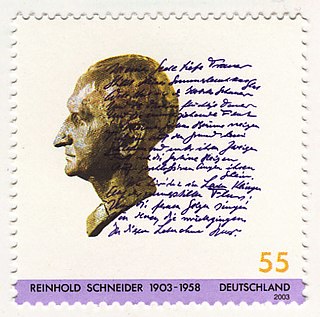 14
Reinhold Schneider was a German poet who also wrote novels. Initially his works were less religious, but later his poetry had a Christian and specifically Catholic influence. His first works included...
14
Reinhold Schneider was a German poet who also wrote novels. Initially his works were less religious, but later his poetry had a Christian and specifically Catholic influence. His first works included...
Thomas Dachser
 14
Thomas Dachser was a German businessman. In 1930, he founded the forwarding agency Dachser in Kempten in the Allgäu. Today the business, still owned by the family, is one of the largest logistics...
14
Thomas Dachser was a German businessman. In 1930, he founded the forwarding agency Dachser in Kempten in the Allgäu. Today the business, still owned by the family, is one of the largest logistics...
Victor Hugo
 14
Victor-Marie Hugo, vicomte Hugo, sometimes nicknamed the Ocean Man, was a French Romantic writer and politician. During a literary career that spanned more than sixty years, he wrote in a variety of...
14
Victor-Marie Hugo, vicomte Hugo, sometimes nicknamed the Ocean Man, was a French Romantic writer and politician. During a literary career that spanned more than sixty years, he wrote in a variety of...
Anton Saefkow
 13
Anton Emil Hermann Saefkow was a German Communist and a resistance fighter against the Nazi régime. He was arrested in July 1944 and executed on 18 September by guillotine.
13
Anton Emil Hermann Saefkow was a German Communist and a resistance fighter against the Nazi régime. He was arrested in July 1944 and executed on 18 September by guillotine.
Alfred Döblin
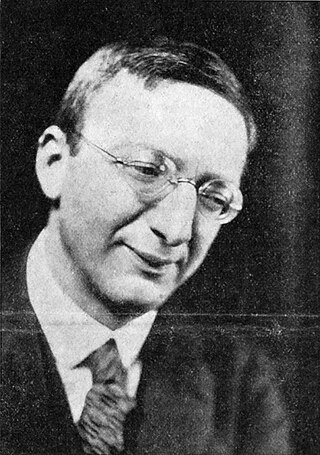 13
Bruno Alfred Döblin was a German novelist, essayist, and doctor, best known for his novel Berlin Alexanderplatz (1929). A prolific writer whose œuvre spans more than half a century and a wide variety...
13
Bruno Alfred Döblin was a German novelist, essayist, and doctor, best known for his novel Berlin Alexanderplatz (1929). A prolific writer whose œuvre spans more than half a century and a wide variety...
George Washington
 13
George Washington was an American Founding Father, military officer, and politician who served as the first president of the United States from 1789 to 1797. Appointed by the Second Continental...
13
George Washington was an American Founding Father, military officer, and politician who served as the first president of the United States from 1789 to 1797. Appointed by the Second Continental...
Charles I of Austria
 13
Charles I or Karl I was Emperor of Austria, King of Hungary, King of Croatia, King of Bohemia, and the last of the monarchs belonging to the House of Habsburg-Lorraine to rule over Austria-Hungary....
13
Charles I or Karl I was Emperor of Austria, King of Hungary, King of Croatia, King of Bohemia, and the last of the monarchs belonging to the House of Habsburg-Lorraine to rule over Austria-Hungary....
Johann Christoph Friedrich GutsMuths
 13
Johann Christoph Friedrich GutsMuths, also called Guts Muth or Gutsmuths, was a teacher and educator in Germany, and is especially known for his role in the development of physical education. He is...
13
Johann Christoph Friedrich GutsMuths, also called Guts Muth or Gutsmuths, was a teacher and educator in Germany, and is especially known for his role in the development of physical education. He is...
Martin Opitz
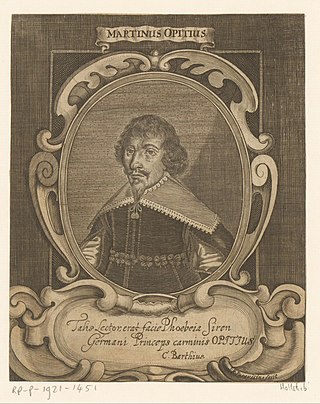 13
Martin Opitz von Boberfeld was a German poet, regarded as the greatest of that nation during his lifetime.
13
Martin Opitz von Boberfeld was a German poet, regarded as the greatest of that nation during his lifetime.
Anders Celsius
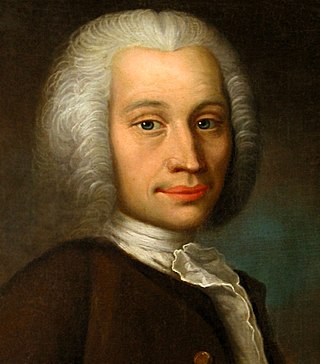 13
Anders Celsius was a Swedish astronomer, physicist and mathematician. He was professor of astronomy at Uppsala University from 1730 to 1744, but traveled from 1732 to 1735 visiting notable...
13
Anders Celsius was a Swedish astronomer, physicist and mathematician. He was professor of astronomy at Uppsala University from 1730 to 1744, but traveled from 1732 to 1735 visiting notable...
Kiem Pauli
 13
Kiem Pauli war ein Musikant und Volksliedsammler, der wesentlich zur Wiederbelebung der bayerischen Volksmusik in der ersten Hälfte des zwanzigsten Jahrhunderts beitrug.
13
Kiem Pauli war ein Musikant und Volksliedsammler, der wesentlich zur Wiederbelebung der bayerischen Volksmusik in der ersten Hälfte des zwanzigsten Jahrhunderts beitrug.
Gebhard of Constance
 13
Gebhard of Constance was a bishop of Constance from 979 until 995. He founded the Benedictine abbey of Petershausen in 983. Regarded as a Christian saint, his feast day is 27 August.
13
Gebhard of Constance was a bishop of Constance from 979 until 995. He founded the Benedictine abbey of Petershausen in 983. Regarded as a Christian saint, his feast day is 27 August.
Ernst Bloch
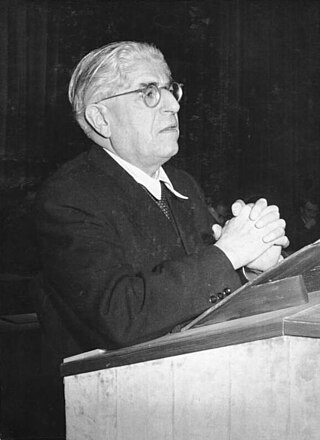 13
Ernst Simon Bloch was a German Marxist philosopher. Bloch was influenced by Georg Wilhelm Friedrich Hegel and Karl Marx, as well as by apocalyptic and religious thinkers such as Thomas Müntzer,...
13
Ernst Simon Bloch was a German Marxist philosopher. Bloch was influenced by Georg Wilhelm Friedrich Hegel and Karl Marx, as well as by apocalyptic and religious thinkers such as Thomas Müntzer,...
Elisabeth Langgässer
 13
Elisabeth Langgässer was a German author and teacher. She is known for lyrical poetry and novels. Her short story Saisonbeginn, for example, provides a graphically human portrayal of a 1930s German...
13
Elisabeth Langgässer was a German author and teacher. She is known for lyrical poetry and novels. Her short story Saisonbeginn, for example, provides a graphically human portrayal of a 1930s German...
Kurt Weill
 13
Kurt Julian Weill was a German-born American composer active from the 1920s in his native country, and in his later years in the United States. He was a leading composer for the stage who was best...
13
Kurt Julian Weill was a German-born American composer active from the 1920s in his native country, and in his later years in the United States. He was a leading composer for the stage who was best...
Heinrich Brauns
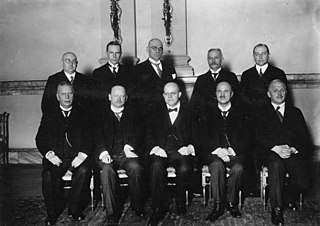 13
Heinrich Brauns was a German politician and Roman Catholic theologian, who for the German Center Party was a long-serving Minister of Labour of the Weimar Republic from 1920 to 1928. Serving in a...
13
Heinrich Brauns was a German politician and Roman Catholic theologian, who for the German Center Party was a long-serving Minister of Labour of the Weimar Republic from 1920 to 1928. Serving in a...
Ferdinand von Schill
 13
Ferdinand Baptista von Schill was a Prussian major who revolted unsuccessfully against French domination of Prussia in May 1809.
13
Ferdinand Baptista von Schill was a Prussian major who revolted unsuccessfully against French domination of Prussia in May 1809.
Bernd Rosemeyer
 13
Bernd Rosemeyer was a German racing driver and speed record holder. He is often considered one of the greatest racing drivers of his era.
13
Bernd Rosemeyer was a German racing driver and speed record holder. He is often considered one of the greatest racing drivers of his era.
Hedwig Dohm
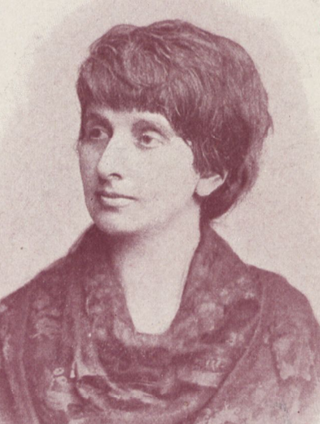 13
Marianne Adelaide Hedwig Dohm was a German feminist and writer.
13
Marianne Adelaide Hedwig Dohm was a German feminist and writer.
Theodor Hürth
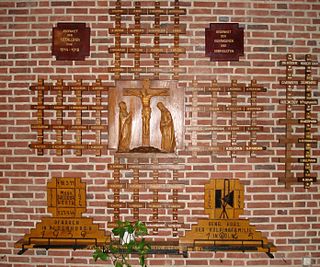 13
Theodor Hürth war katholischer Geistlicher und als langjähriger Generalpräses des Katholischen Gesellenvereins und späteren Internationalen Kolpingwerkes dritter Nachfolger des Seligen Adolph Kolping.
13
Theodor Hürth war katholischer Geistlicher und als langjähriger Generalpräses des Katholischen Gesellenvereins und späteren Internationalen Kolpingwerkes dritter Nachfolger des Seligen Adolph Kolping.
Frans Hals
 13
Frans Hals the Elder was a Dutch Golden Age painter, chiefly of individual and group portraits and of tronies, who lived and worked in Haarlem.
13
Frans Hals the Elder was a Dutch Golden Age painter, chiefly of individual and group portraits and of tronies, who lived and worked in Haarlem.
Guglielmo Marconi
 13
Guglielmo Giovanni Maria Marconi, 1st Marquis of Marconi was an Italian inventor and electrical engineer, known for his creation of a practical radio wave–based wireless telegraph system. This led to...
13
Guglielmo Giovanni Maria Marconi, 1st Marquis of Marconi was an Italian inventor and electrical engineer, known for his creation of a practical radio wave–based wireless telegraph system. This led to...
Hedwig Dransfeld
 13
Hedwig Dransfeld was a German Catholic feminist, writer and member of parliament.
13
Hedwig Dransfeld was a German Catholic feminist, writer and member of parliament.
Otto Engert
 13
Otto Engert war ein deutscher kommunistischer Politiker. Er war von 1929 bis 1933 Bürgermeister von Neuhaus am Rennweg.
13
Otto Engert war ein deutscher kommunistischer Politiker. Er war von 1929 bis 1933 Bürgermeister von Neuhaus am Rennweg.
Ludwig Wolker
 13
Ludwig Wolker war ein deutscher römisch-katholischer Priester und eine führende Gestalt in der katholischen Jugendbewegung sowie Mitbegründer des Bundes der Deutschen Katholischen Jugend (BDKJ).
13
Ludwig Wolker war ein deutscher römisch-katholischer Priester und eine führende Gestalt in der katholischen Jugendbewegung sowie Mitbegründer des Bundes der Deutschen Katholischen Jugend (BDKJ).
Aristide Briand
 13
Aristide Pierre Henri Briand was a French statesman who served eleven terms as Prime Minister of France during the French Third Republic. He is mainly remembered for his focus on international issues...
13
Aristide Pierre Henri Briand was a French statesman who served eleven terms as Prime Minister of France during the French Third Republic. He is mainly remembered for his focus on international issues...
Karl Valentin
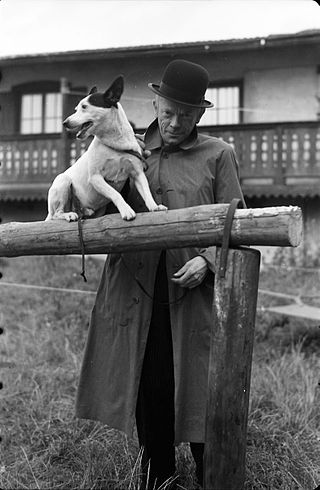 13
Karl Valentin was a Bavarian comedian. He had significant influence on German Weimar culture. Valentin starred in many silent films in the 1920s, and was sometimes called the "Charlie Chaplin of...
13
Karl Valentin was a Bavarian comedian. He had significant influence on German Weimar culture. Valentin starred in many silent films in the 1920s, and was sometimes called the "Charlie Chaplin of...
Emil Fischer
 13
Hermann Emil Louis Fischer was a German chemist and 1902 recipient of the Nobel Prize in Chemistry. He discovered the Fischer esterification. He also developed the Fischer projection, a symbolic way...
13
Hermann Emil Louis Fischer was a German chemist and 1902 recipient of the Nobel Prize in Chemistry. He discovered the Fischer esterification. He also developed the Fischer projection, a symbolic way...
Michael Praetorius
 13
Michael Praetorius was a German composer, organist, and music theorist. He was one of the most versatile composers of his age, being particularly significant in the development of musical forms based...
13
Michael Praetorius was a German composer, organist, and music theorist. He was one of the most versatile composers of his age, being particularly significant in the development of musical forms based...
Gottfried Benn
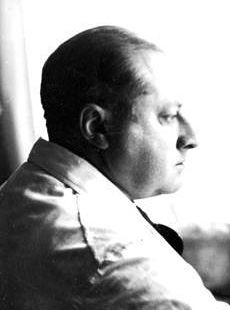 13
Gottfried Benn was a German poet, essayist, and physician. He was nominated for the Nobel Prize in Literature five times. He was awarded the Georg Büchner Prize in 1951.
13
Gottfried Benn was a German poet, essayist, and physician. He was nominated for the Nobel Prize in Literature five times. He was awarded the Georg Büchner Prize in 1951.
Gottlieb Graf von Haeseler
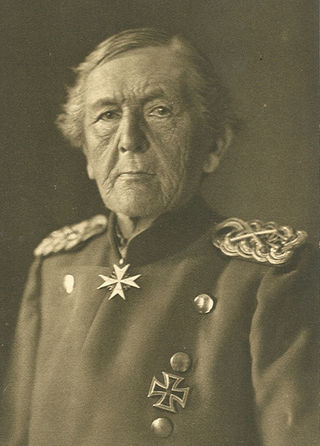 12
Gottlieb Ferdinand Albert Alexis Graf von Haeseler was a German military officer of the Imperial Wilhelmine period, with final rank of Generalfeldmarschall.
12
Gottlieb Ferdinand Albert Alexis Graf von Haeseler was a German military officer of the Imperial Wilhelmine period, with final rank of Generalfeldmarschall.
August Halm
 12
August Otto Halm was a German music theorist, music educationist and composer.
12
August Otto Halm was a German music theorist, music educationist and composer.
Jörg Syrlin the Elder
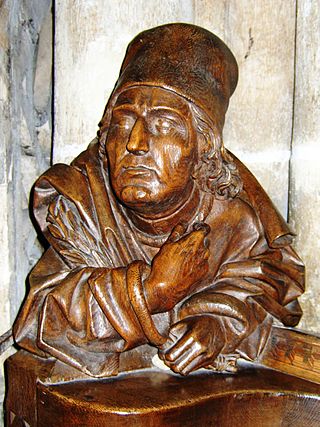 12
Jörg Syrlin the Elder was a German sculptor who is considered part of the Ulm school. After his death his son Jörg Syrlin the Younger took over command of his workshop. His best known works are the...
12
Jörg Syrlin the Elder was a German sculptor who is considered part of the Ulm school. After his death his son Jörg Syrlin the Younger took over command of his workshop. His best known works are the...
Nikolaus Fey
 12
Nikolaus Fey war ein deutscher Mundartdichter in Franken und bedeutender Vertreter der (ost)fränkischen Mundart.
12
Nikolaus Fey war ein deutscher Mundartdichter in Franken und bedeutender Vertreter der (ost)fränkischen Mundart.
Otto Modersohn
 12
Friedrich Wilhelm Otto Modersohn was a German landscape painter. He was a co-founder of the Art Colony at Worpswede.
12
Friedrich Wilhelm Otto Modersohn was a German landscape painter. He was a co-founder of the Art Colony at Worpswede.
Janusz Korczak
Reinhold Maier
Carl Duisberg
 12
Friedrich Carl Duisberg was a German chemist and industrialist.
12
Friedrich Carl Duisberg was a German chemist and industrialist.
Louis III, Duke of Württemberg
 12
Louis III, Duke of Württemberg, was a German nobleman. He was the Duke of Württemberg, from 1568 until his death.
12
Louis III, Duke of Württemberg, was a German nobleman. He was the Duke of Württemberg, from 1568 until his death.
Edgar André (politician)
 12
Edgar Josef André, or Etkar Josef André was a politician in the Communist Party of Germany (KPD) and an antifascist.
12
Edgar Josef André, or Etkar Josef André was a politician in the Communist Party of Germany (KPD) and an antifascist.
Joannes Baptista Sproll
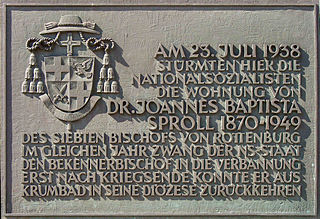 12
Joannes Baptista Sproll was a German bishop and prominent opponent of the Nazi regime.
12
Joannes Baptista Sproll was a German bishop and prominent opponent of the Nazi regime.
Paul Heyse
 12
Paul Johann Ludwig von Heyse was a distinguished German writer and translator. A member of two important literary societies, the Tunnel über der Spree in Berlin and Die Krokodile in Munich, he wrote...
12
Paul Johann Ludwig von Heyse was a distinguished German writer and translator. A member of two important literary societies, the Tunnel über der Spree in Berlin and Die Krokodile in Munich, he wrote...
Mildred Scheel
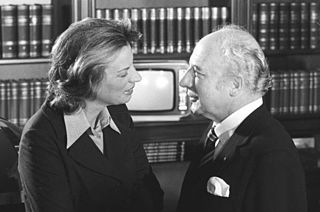 12
Mildred Scheel was a German physician, the second wife of the President of the Federal Republic Walter Scheel and the founder of the German Cancer Aid.
12
Mildred Scheel was a German physician, the second wife of the President of the Federal Republic Walter Scheel and the founder of the German Cancer Aid.
Helmut Just
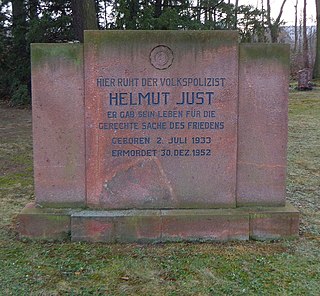 12
Helmut Just war ein deutscher Angehöriger der Ost-Berliner Volkspolizei (VP), der im Dienst an der Sektorengrenze zu West-Berlin erschossen wurde. Weder die Täter noch ihr Motiv konnten ermittelt...
12
Helmut Just war ein deutscher Angehöriger der Ost-Berliner Volkspolizei (VP), der im Dienst an der Sektorengrenze zu West-Berlin erschossen wurde. Weder die Täter noch ihr Motiv konnten ermittelt...
Heinrich von Gagern
 12
Heinrich Wilhelm August Freiherr von Gagern was a statesman who argued for the unification of Germany.
12
Heinrich Wilhelm August Freiherr von Gagern was a statesman who argued for the unification of Germany.
Maurice Ravel
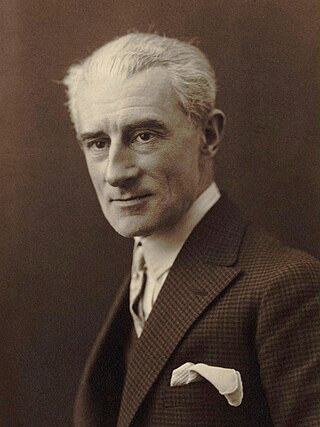 12
Joseph Maurice Ravel was a French composer, pianist and conductor. He is often associated with Impressionism along with his elder contemporary Claude Debussy, although both composers rejected the...
12
Joseph Maurice Ravel was a French composer, pianist and conductor. He is often associated with Impressionism along with his elder contemporary Claude Debussy, although both composers rejected the...
Thaddäus Troll
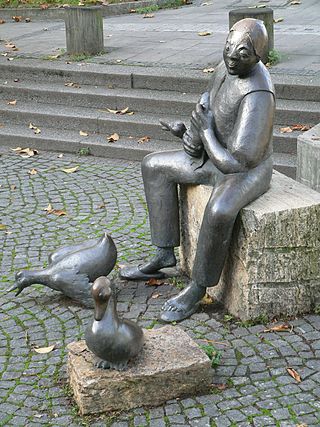 12
Hans Bayer, known by the pseudonym Thaddäus Troll, was a German journalist and writer and one of the most prominent modern poets in the Swabian German dialect. In his later years, he was also an...
12
Hans Bayer, known by the pseudonym Thaddäus Troll, was a German journalist and writer and one of the most prominent modern poets in the Swabian German dialect. In his later years, he was also an...
Bernhard Lichtenberg
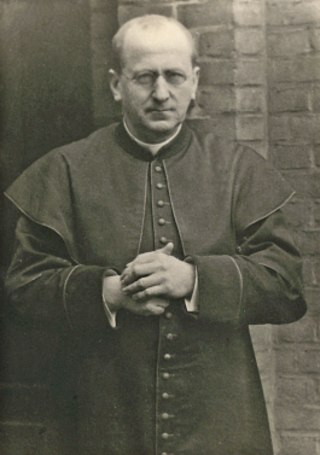 12
Bernhard Lichtenberg was a German Catholic priest who became known for repeatedly speaking out, after the rise of Adolf Hitler and during the Holocaust, against the persecution and deportation of the...
12
Bernhard Lichtenberg was a German Catholic priest who became known for repeatedly speaking out, after the rise of Adolf Hitler and during the Holocaust, against the persecution and deportation of the...
Hugo Distler
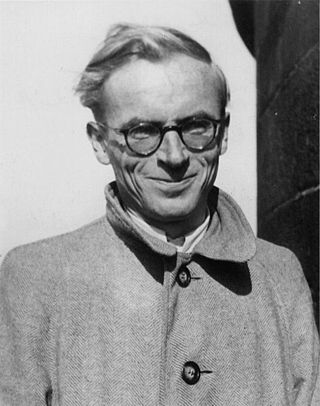 12
August Hugo Distler was a German organist, choral conductor, teacher and composer.
12
August Hugo Distler was a German organist, choral conductor, teacher and composer.
Marion Dönhoff
 12
Marion Hedda Ilse Gräfin von Dönhoff was a German journalist and publisher who participated in the resistance against Nazism, along with Helmuth James Graf von Moltke, Peter Yorck von Wartenburg, and...
12
Marion Hedda Ilse Gräfin von Dönhoff was a German journalist and publisher who participated in the resistance against Nazism, along with Helmuth James Graf von Moltke, Peter Yorck von Wartenburg, and...
Emil Rittershaus
 12
Friedrich Emil Rittershaus was a German poet.
12
Friedrich Emil Rittershaus was a German poet.
Clara Immerwahr
 12
Clara Helene Immerwahr was a German chemist. She was the first German woman to be awarded a doctorate in chemistry from the University of Breslau, and is credited with being a pacifist as well as a...
12
Clara Helene Immerwahr was a German chemist. She was the first German woman to be awarded a doctorate in chemistry from the University of Breslau, and is credited with being a pacifist as well as a...
Oskar Kokoschka
 12
Oskar Kokoschka was an Austrian artist, poet, playwright, and teacher best known for his intense expressionistic portraits and landscapes, as well as his theories on vision that influenced the...
12
Oskar Kokoschka was an Austrian artist, poet, playwright, and teacher best known for his intense expressionistic portraits and landscapes, as well as his theories on vision that influenced the...
Henry II, Holy Roman Emperor
 12
Henry II, also known as Saint Henry, Obl. S. B., was Holy Roman Emperor from 1014. He died without an heir in 1024, and was the last ruler of the Ottonian line. As Duke of Bavaria, appointed in 995,...
12
Henry II, also known as Saint Henry, Obl. S. B., was Holy Roman Emperor from 1014. He died without an heir in 1024, and was the last ruler of the Ottonian line. As Duke of Bavaria, appointed in 995,...
Johann Baptist Huber
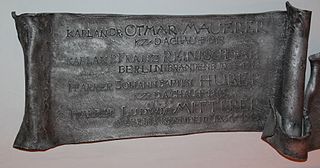 12
Johann Baptist Huber war ein deutscher katholischer Geistlicher und Widerstandskämpfer.
12
Johann Baptist Huber war ein deutscher katholischer Geistlicher und Widerstandskämpfer.
Jakob Bleyer
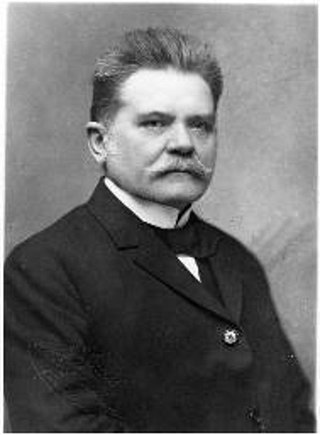 12
Jakob Bleyer was a Hungarian German studies scholar, literary scholar, MP of Hungarian-German origin, and the Hungarian Minister for National Minorities from 1919 to 1920.
12
Jakob Bleyer was a Hungarian German studies scholar, literary scholar, MP of Hungarian-German origin, and the Hungarian Minister for National Minorities from 1919 to 1920.
Karl Wagenfeld
 12
Karl Wagenfeld war ein deutscher Heimatpropagandist, -forscher und -dichter vornehmlich niederdeutscher Sprache und regionaler Vordenker der NS-Rassenideologie.
12
Karl Wagenfeld war ein deutscher Heimatpropagandist, -forscher und -dichter vornehmlich niederdeutscher Sprache und regionaler Vordenker der NS-Rassenideologie.
Alexander Schmorell
 12
Alexander Schmorell was a Russian-German student at Munich University who, with five others, formed a resistance group known as White Rose which was active against the Nazi German regime from June...
12
Alexander Schmorell was a Russian-German student at Munich University who, with five others, formed a resistance group known as White Rose which was active against the Nazi German regime from June...
Hans Kudlich
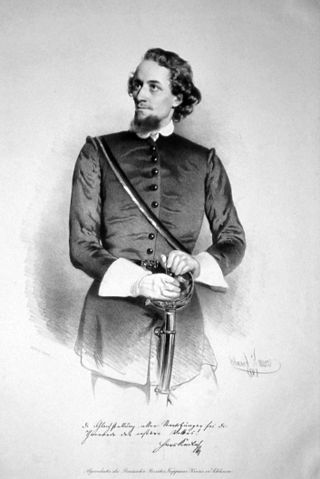 12
Johann "Hans" Kudlich was an Austrian political activist, Austrian legislator, American immigrant, writer, and physician.
12
Johann "Hans" Kudlich was an Austrian political activist, Austrian legislator, American immigrant, writer, and physician.
Michel Buck
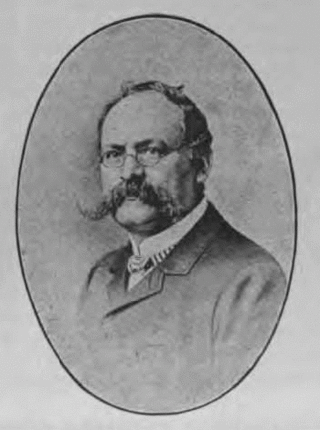 12
Michael Richard „Michel“ Buck war ein deutscher Mediziner, Kulturhistoriker und schwäbischer Dialektdichter.
12
Michael Richard „Michel“ Buck war ein deutscher Mediziner, Kulturhistoriker und schwäbischer Dialektdichter.
Marie Luise Kaschnitz
 12
Marie Luise Kaschnitz was a German short story writer, novelist, essayist and poet. She is considered to be one of the leading post-war German poets.
12
Marie Luise Kaschnitz was a German short story writer, novelist, essayist and poet. She is considered to be one of the leading post-war German poets.
Johannes Brenz
 12
Johann (Johannes) Brenz was a German Lutheran theologian and the Protestant Reformer of the Duchy of Württemberg.
12
Johann (Johannes) Brenz was a German Lutheran theologian and the Protestant Reformer of the Duchy of Württemberg.
Eberhard I, Duke of Württemberg
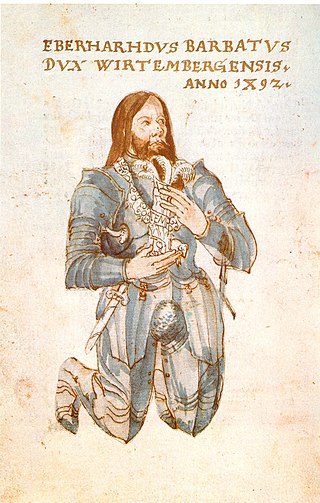 12
Eberhard I of Württemberg was known as Count Eberhard V from 1459 to 1495, and from July 1495 he was the first Duke of Württemberg. He is also known as Eberhard im Bart.
12
Eberhard I of Württemberg was known as Count Eberhard V from 1459 to 1495, and from July 1495 he was the first Duke of Württemberg. He is also known as Eberhard im Bart.
Georg Ignaz Komp
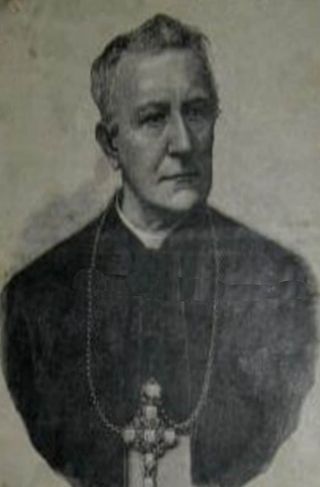 12
Georg Ignaz Komp was a Roman Catholic clergyman who was Bishop of Fulda. He was appointed Archbishop of Freiburg but died en route to his enthronement.
12
Georg Ignaz Komp was a Roman Catholic clergyman who was Bishop of Fulda. He was appointed Archbishop of Freiburg but died en route to his enthronement.
Rudolf Steiner
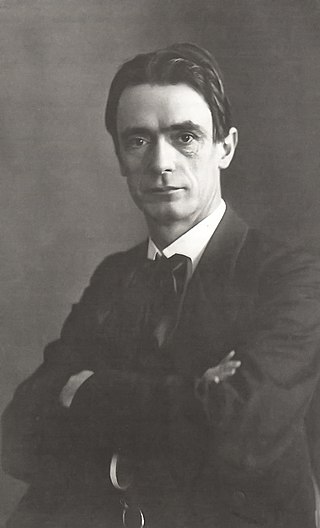 12
Rudolf Joseph Lorenz Steiner was an Austrian occultist, social reformer, architect, esotericist, and claimed clairvoyant. Steiner gained initial recognition at the end of the nineteenth century as a...
12
Rudolf Joseph Lorenz Steiner was an Austrian occultist, social reformer, architect, esotericist, and claimed clairvoyant. Steiner gained initial recognition at the end of the nineteenth century as a...
Dominikus Zimmermann
 12
Dominikus Zimmermann was a German Rococo architect and stuccoist.
12
Dominikus Zimmermann was a German Rococo architect and stuccoist.
August Becker
 12
August Becker was a mid-ranking functionary in the SS of Nazi Germany and chemist in the Reich Security Main Office (RSHA). He helped design the vans with a gas chamber built into the back...
12
August Becker was a mid-ranking functionary in the SS of Nazi Germany and chemist in the Reich Security Main Office (RSHA). He helped design the vans with a gas chamber built into the back...
George II, Duke of Saxe-Meiningen
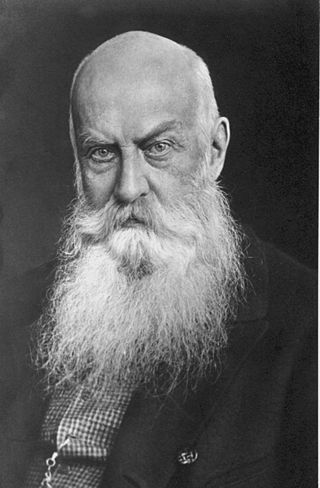 11
George II, Duke of Saxe-Meiningen, was the penultimate Duke of Saxe-Meiningen, reigning from 1866 to 1914. For his support for his successful court theatre he was also known as the Theaterherzog.
11
George II, Duke of Saxe-Meiningen, was the penultimate Duke of Saxe-Meiningen, reigning from 1866 to 1914. For his support for his successful court theatre he was also known as the Theaterherzog.
Wolfgang Pauli
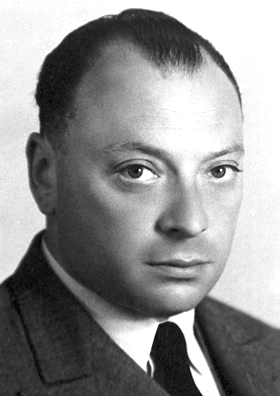 11
Wolfgang Ernst Pauli was an Austrian theoretical physicist and one of the pioneers of quantum physics. In 1945, after having been nominated by Albert Einstein, Pauli received the Nobel Prize in...
11
Wolfgang Ernst Pauli was an Austrian theoretical physicist and one of the pioneers of quantum physics. In 1945, after having been nominated by Albert Einstein, Pauli received the Nobel Prize in...
Lamprecht
 11
Lamprecht, called der Pfaffe, was a German poet of the twelfth century. He is the author of the Alexanderlied, the first German epic composed on a French model.
11
Lamprecht, called der Pfaffe, was a German poet of the twelfth century. He is the author of the Alexanderlied, the first German epic composed on a French model.
Robert Havemann
 11
Robert Havemann was an East German chemist and dissident.
11
Robert Havemann was an East German chemist and dissident.
Christoph Probst
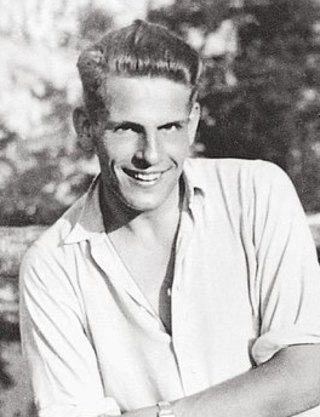 11
Christoph Ananda Probst was a German student of medicine and member of the White Rose resistance group.
11
Christoph Ananda Probst was a German student of medicine and member of the White Rose resistance group.
Felix von Luckner
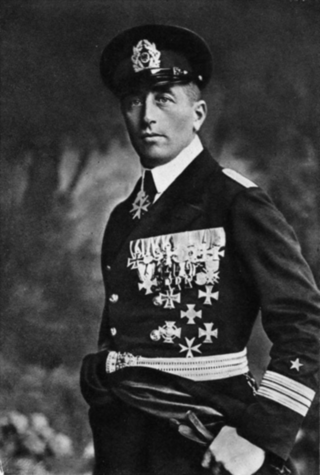 11
Felix Nikolaus Alexander Georg Graf von Luckner, sometimes called Count Luckner in English, was a German nobleman, naval officer, author, and sailor who earned the epithet Der Seeteufel, and his crew...
11
Felix Nikolaus Alexander Georg Graf von Luckner, sometimes called Count Luckner in English, was a German nobleman, naval officer, author, and sailor who earned the epithet Der Seeteufel, and his crew...
Leonardo da Vinci
 11
Leonardo di ser Piero da Vinci was an Italian polymath of the High Renaissance who was active as a painter, draughtsman, engineer, scientist, theorist, sculptor, and architect. While his fame...
11
Leonardo di ser Piero da Vinci was an Italian polymath of the High Renaissance who was active as a painter, draughtsman, engineer, scientist, theorist, sculptor, and architect. While his fame...
Thomas More
 11
Sir Thomas More, venerated in the Catholic Church as Saint Thomas More, was an English lawyer, judge, social philosopher, author, statesman, amateur theologian, and noted Renaissance humanist. He...
11
Sir Thomas More, venerated in the Catholic Church as Saint Thomas More, was an English lawyer, judge, social philosopher, author, statesman, amateur theologian, and noted Renaissance humanist. He...
Sigmund Freud
 11
Sigmund Freud was an Austrian neurologist and the founder of psychoanalysis, a clinical method for evaluating and treating pathologies seen as originating from conflicts in the psyche, through...
11
Sigmund Freud was an Austrian neurologist and the founder of psychoanalysis, a clinical method for evaluating and treating pathologies seen as originating from conflicts in the psyche, through...
Otto Nagel
 11
Otto Nagel was a German painter, graphic designer and long-time head of the Berlin Academy of Arts who was one of the most prolific artists of East Germany.
11
Otto Nagel was a German painter, graphic designer and long-time head of the Berlin Academy of Arts who was one of the most prolific artists of East Germany.
Peter Hille
 11
Peter Hille war ein deutscher spätromantischer und naturalistischer Schriftsteller.
11
Peter Hille war ein deutscher spätromantischer und naturalistischer Schriftsteller.
Willi Bredel
 11
Willi Bredel was a German writer and president of the East German Academy of Arts, Berlin. Born in Hamburg, he was a pioneer of socialist realist literature.
11
Willi Bredel was a German writer and president of the East German Academy of Arts, Berlin. Born in Hamburg, he was a pioneer of socialist realist literature.
Johann Georg Fischer
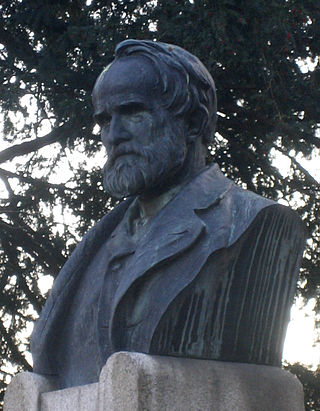 11
Johann Georg Fischer was a German poet and playwright.
11
Johann Georg Fischer was a German poet and playwright.
Enno Wilhelm Hektor
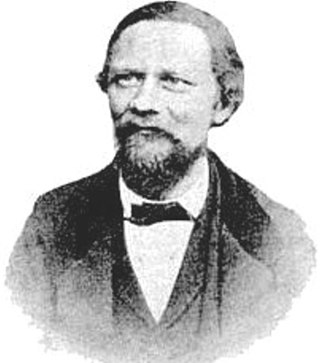 11
Enno Wilhelm Hektor war ein deutscher Schriftsteller. Er schrieb sozialkritische Bücher, Gedichte und Theaterstücke und veröffentlichte auch in plattdeutscher Sprache. Sein bekanntestes Werk ist das...
11
Enno Wilhelm Hektor war ein deutscher Schriftsteller. Er schrieb sozialkritische Bücher, Gedichte und Theaterstücke und veröffentlichte auch in plattdeutscher Sprache. Sein bekanntestes Werk ist das...
Trajan
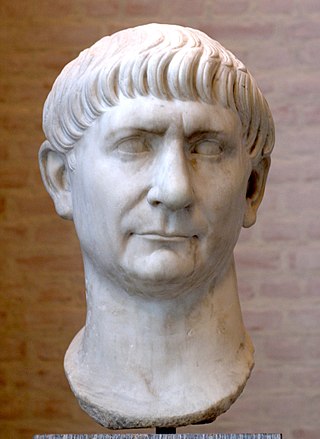 11
Trajan was a Roman emperor from AD 98 to 117, the second of the Five Good Emperors of the Nerva–Antonine dynasty. He was a philanthropic ruler and a successful soldier-emperor who led the Roman...
11
Trajan was a Roman emperor from AD 98 to 117, the second of the Five Good Emperors of the Nerva–Antonine dynasty. He was a philanthropic ruler and a successful soldier-emperor who led the Roman...
Erwin von Witzleben
 11
Job Wilhelm Georg Erdmann Erwin von Witzleben was a German Generalfeldmarschall in the Wehrmacht during the Second World War. A leading conspirator in the 20 July plot to assassinate Adolf Hitler, he...
11
Job Wilhelm Georg Erdmann Erwin von Witzleben was a German Generalfeldmarschall in the Wehrmacht during the Second World War. A leading conspirator in the 20 July plot to assassinate Adolf Hitler, he...
Hugo Preuß
 11
Hugo Preuß (Preuss) was a German lawyer and liberal politician. He was the author of the draft version of the constitution that was passed by the Weimar National Assembly and came into force in...
11
Hugo Preuß (Preuss) was a German lawyer and liberal politician. He was the author of the draft version of the constitution that was passed by the Weimar National Assembly and came into force in...
Eugen Richter
 11
Eugen Richter was a German politician and journalist in Imperial Germany. He was one of the leading Old Liberals in the Prussian Landtag and the German Reichstag.
11
Eugen Richter was a German politician and journalist in Imperial Germany. He was one of the leading Old Liberals in the Prussian Landtag and the German Reichstag.
Katharina von Bora
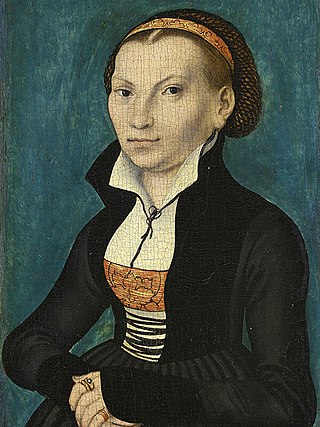 11
Katharina von Bora, after her wedding Katharina Luther, also referred to as "die Lutherin", was the wife of the German reformer Martin Luther and a seminal figure of the Protestant Reformation....
11
Katharina von Bora, after her wedding Katharina Luther, also referred to as "die Lutherin", was the wife of the German reformer Martin Luther and a seminal figure of the Protestant Reformation....
Helen Keller
 11
Helen Adams Keller was an American author, disability rights advocate, political activist and lecturer. Born in West Tuscumbia, Alabama, she lost her sight and her hearing after a bout of illness...
11
Helen Adams Keller was an American author, disability rights advocate, political activist and lecturer. Born in West Tuscumbia, Alabama, she lost her sight and her hearing after a bout of illness...
Paul Reuter
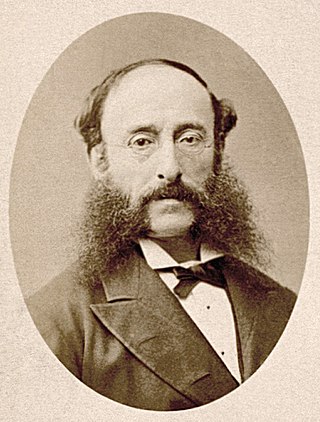 11
Paul Julius Reuter, later ennobled as Freiherr von Reuter, was a German-born British entrepreneur who was a pioneer of telegraphy and news reporting. He was a reporter, media owner, and the founder...
11
Paul Julius Reuter, later ennobled as Freiherr von Reuter, was a German-born British entrepreneur who was a pioneer of telegraphy and news reporting. He was a reporter, media owner, and the founder...
Hermann Kurz
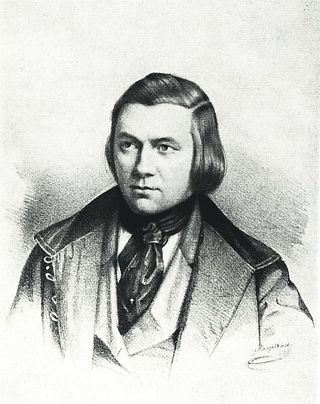 11
Hermann Kurz was a German poet and novelist.
11
Hermann Kurz was a German poet and novelist.
Raphael
 11
Raffaello Sanzio da Urbino, now generally known in English as Raphael, was an Italian painter and architect of the High Renaissance. His work is admired for its clarity of form, ease of composition,...
11
Raffaello Sanzio da Urbino, now generally known in English as Raphael, was an Italian painter and architect of the High Renaissance. His work is admired for its clarity of form, ease of composition,...
Elisabeth von Thadden
 11
Elisabeth Adelheid Hildegard von Thadden was a German progressive educator and a resistance fighter against the Nazi régime as a member of the Solf Circle. She was sentenced to death for conspiring...
11
Elisabeth Adelheid Hildegard von Thadden was a German progressive educator and a resistance fighter against the Nazi régime as a member of the Solf Circle. She was sentenced to death for conspiring...
Werner Bergengruen
 11
Werner Bergengruen was a Baltic German novelist and poet. He was nominated for the Nobel Prize in Literature.
11
Werner Bergengruen was a Baltic German novelist and poet. He was nominated for the Nobel Prize in Literature.
Hans Purrmann
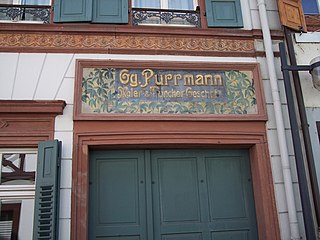 11
Hans Marsilius Purrmann was a German artist. He was born in Speyer where he also grew up. He completed an apprenticeship as a scene painter and interior decorator, and subsequently studied in...
11
Hans Marsilius Purrmann was a German artist. He was born in Speyer where he also grew up. He completed an apprenticeship as a scene painter and interior decorator, and subsequently studied in...
Max Peinkofer
 11
Max Peinkofer war ein deutscher Schriftsteller und Heimatforscher.
11
Max Peinkofer war ein deutscher Schriftsteller und Heimatforscher.
Otto Herzog
 10
Otto Friedrich Herzog was a German Nazi Party politician and SA-Obergruppenführer. During the closing months of the Second World War, he commanded the Volkssturm forces during the siege of Breslau...
10
Otto Friedrich Herzog was a German Nazi Party politician and SA-Obergruppenführer. During the closing months of the Second World War, he commanded the Volkssturm forces during the siege of Breslau...
Christine Brückner
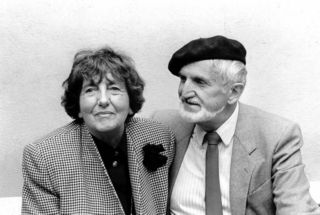 10
Christine Brückner was a German writer.
10
Christine Brückner was a German writer.
Arnold Janssen
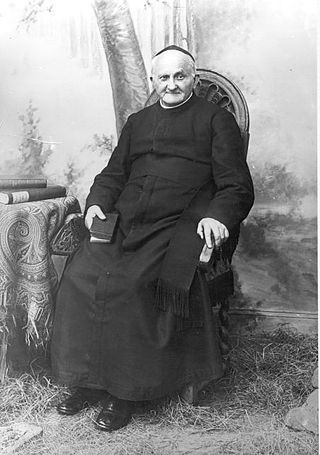 10
Arnold Janssen, was a German-Dutch Catholic priest and missionary who is venerated as a saint. He founded the Society of the Divine Word, a Catholic missionary religious congregation, also known as...
10
Arnold Janssen, was a German-Dutch Catholic priest and missionary who is venerated as a saint. He founded the Society of the Divine Word, a Catholic missionary religious congregation, also known as...
Heinrich Nordhoff
 10
Heinz Heinrich Nordhoff was a German engineer who led the rebuilding of Volkswagen (VW) after World War II. He was featured on the cover of Time magazine on Feb. 15, 1954.
10
Heinz Heinrich Nordhoff was a German engineer who led the rebuilding of Volkswagen (VW) after World War II. He was featured on the cover of Time magazine on Feb. 15, 1954.
Henry the Fowler
Arnold von Harff
 10
Arnold von Harff was a 15th-century German traveler from Köln. He went on pilgrimage to many countries, collecting both languages and cultural information. He wrote about a number of languages during...
10
Arnold von Harff was a 15th-century German traveler from Köln. He went on pilgrimage to many countries, collecting both languages and cultural information. He wrote about a number of languages during...
Carl Ulrich
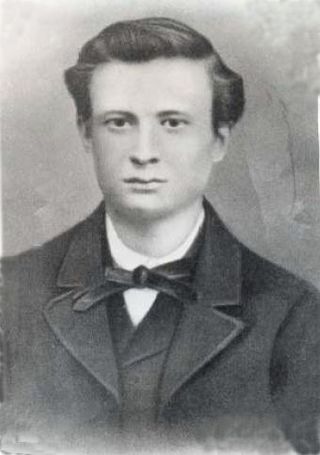 10
Carl Theodor Johann Ulrich was a German politician of the Social Democratic Party (SPD) who served as the first State-President of the People's State of Hesse from 1918 to 1928. He was a member of...
10
Carl Theodor Johann Ulrich was a German politician of the Social Democratic Party (SPD) who served as the first State-President of the People's State of Hesse from 1918 to 1928. He was a member of...
Hermann Gmeiner
 10
Hermann Gmeiner was an Austrian philanthropist and the founder of SOS Children's Villages.
10
Hermann Gmeiner was an Austrian philanthropist and the founder of SOS Children's Villages.
Philip I, Landgrave of Hesse
 10
Philip I, Landgrave of Hesse, nicknamed der Großmütige, was a German nobleman and champion of the Protestant Reformation, notable for being one of the most important of the early Protestant rulers in...
10
Philip I, Landgrave of Hesse, nicknamed der Großmütige, was a German nobleman and champion of the Protestant Reformation, notable for being one of the most important of the early Protestant rulers in...
Johann Michael Sailer
 10
Johann Michael Sailer was a German Jesuit theologian and philosopher, and Bishop of Regensburg. Sailer was a major contributor to the Catholic Enlightenment.
10
Johann Michael Sailer was a German Jesuit theologian and philosopher, and Bishop of Regensburg. Sailer was a major contributor to the Catholic Enlightenment.
Dag Hammarskjöld
 10
Dag Hjalmar Agne Carl Hammarskjöld was a Swedish economist and diplomat who served as the second Secretary-General of the United Nations from April 1953 until his death in a plane crash in September...
10
Dag Hjalmar Agne Carl Hammarskjöld was a Swedish economist and diplomat who served as the second Secretary-General of the United Nations from April 1953 until his death in a plane crash in September...
Theodor Zink
 10
Theodor Zink war ein Lehrer, Sammler, Heimatforscher und Konservator der Landesgewerbeanstalt in Kaiserslautern sowie Gründer des Theodor-Zink-Museums.
10
Theodor Zink war ein Lehrer, Sammler, Heimatforscher und Konservator der Landesgewerbeanstalt in Kaiserslautern sowie Gründer des Theodor-Zink-Museums.
Ludwig Mies van der Rohe
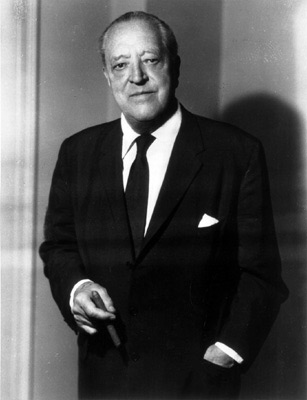 10
Ludwig Mies van der Rohe was a German-American architect, academic, and interior designer. He was commonly referred to as Mies, his surname. He is regarded as one of the pioneers of modern...
10
Ludwig Mies van der Rohe was a German-American architect, academic, and interior designer. He was commonly referred to as Mies, his surname. He is regarded as one of the pioneers of modern...
Hermann Wissmann
 10
Hermann Wilhelm Leopold Ludwig Wissmann, after 1890 Hermann von Wissmann, was a German explorer and administrator in Africa.
10
Hermann Wilhelm Leopold Ludwig Wissmann, after 1890 Hermann von Wissmann, was a German explorer and administrator in Africa.
Karl Schiller
 10
Karl August Fritz Schiller was a German economist and politician of the Social Democratic Party (SPD). From 1966 to 1972, he was Federal Minister of Economic Affairs and from 1971 to 1972 Federal...
10
Karl August Fritz Schiller was a German economist and politician of the Social Democratic Party (SPD). From 1966 to 1972, he was Federal Minister of Economic Affairs and from 1971 to 1972 Federal...
Erich Klabunde
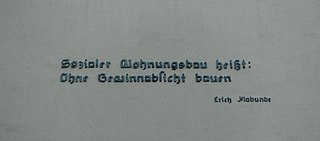 10
Erich Klabunde war ein deutscher Journalist und Politiker der SPD, der die Gründung des Nordwestdeutschen Rundfunks und die Grundlegung eines sozialen Wohnungsbaus im Nachkriegsdeutschland vorantrieb.
10
Erich Klabunde war ein deutscher Journalist und Politiker der SPD, der die Gründung des Nordwestdeutschen Rundfunks und die Grundlegung eines sozialen Wohnungsbaus im Nachkriegsdeutschland vorantrieb.
Knud Rasmussen
 10
Knud Johan Victor Rasmussen was a Greenlandic-Danish polar explorer and anthropologist. He has been called the "father of Eskimology" and was the first European to cross the Northwest Passage via dog...
10
Knud Johan Victor Rasmussen was a Greenlandic-Danish polar explorer and anthropologist. He has been called the "father of Eskimology" and was the first European to cross the Northwest Passage via dog...
Fanny Lewald
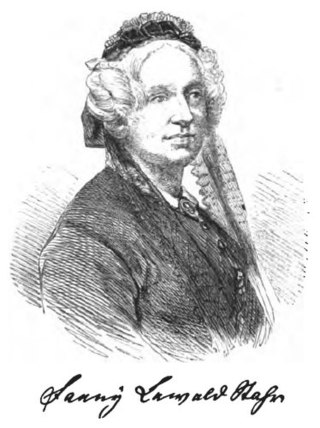 10
Fanny Lewald was a German novelist and essayist and a women's rights activist.
10
Fanny Lewald was a German novelist and essayist and a women's rights activist.
Julius Döpfner
 10
Julius August Döpfner was a German Cardinal of the Roman Catholic Church who served as Archbishop of Munich and Freising from 1961 until his death, and was elevated to the cardinalate in 1958.
10
Julius August Döpfner was a German Cardinal of the Roman Catholic Church who served as Archbishop of Munich and Freising from 1961 until his death, and was elevated to the cardinalate in 1958.
Michael Buchberger
 10
Michael Buchberger was a Roman Catholic priest, notable as the seventy-fourth bishop of Regensburg since the diocese's foundation in 739.
10
Michael Buchberger was a Roman Catholic priest, notable as the seventy-fourth bishop of Regensburg since the diocese's foundation in 739.
Georg Queri
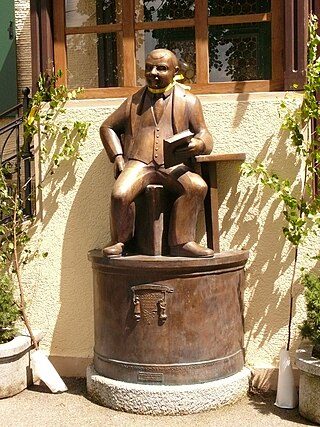 10
Georg Queri war ein bayerischer Heimatdichter und Schriftsteller.
10
Georg Queri war ein bayerischer Heimatdichter und Schriftsteller.
Anton Heinen
 10
Anton Heinen war ein deutscher katholischer Priester und Erwachsenenpädagoge.
10
Anton Heinen war ein deutscher katholischer Priester und Erwachsenenpädagoge.
Marie von Ebner-Eschenbach
 10
Countess Marie von Ebner-Eschenbach was an Austrian writer. Noted for her psychological novels, she is regarded as one of the most important German-language writers of the latter portion of the 19th...
10
Countess Marie von Ebner-Eschenbach was an Austrian writer. Noted for her psychological novels, she is regarded as one of the most important German-language writers of the latter portion of the 19th...
Lily Braun
 10
Lily Braun, born Amalie von Kretschmann, was a German feminist writer and politician of the Social Democratic Party (SPD).
10
Lily Braun, born Amalie von Kretschmann, was a German feminist writer and politician of the Social Democratic Party (SPD).
Carl Peters
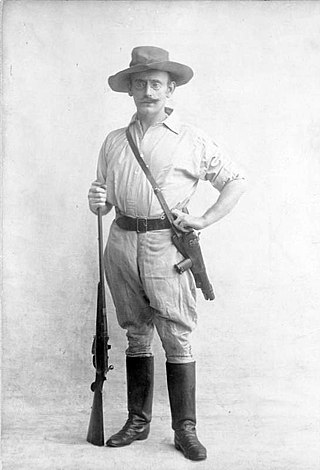 10
Carl Peters was a German explorer and colonial administrator. He was a major promoter of the establishment of the German colony of East Africa and one of the founders of the German East Africa...
10
Carl Peters was a German explorer and colonial administrator. He was a major promoter of the establishment of the German colony of East Africa and one of the founders of the German East Africa...
Sebastian Sailer
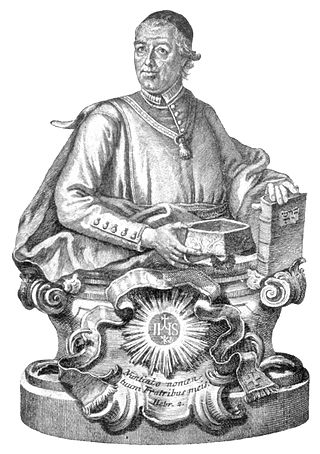 10
Sebastian Sailer, born Johann Valentin Sailer, was a German Premonstratensian Baroque preacher and writer. He is especially known for his comedies written in Swabian German.
10
Sebastian Sailer, born Johann Valentin Sailer, was a German Premonstratensian Baroque preacher and writer. He is especially known for his comedies written in Swabian German.
Fritz Bauer
 10
Fritz Bauer was a German Jewish judge and prosecutor. He played an instrumental role in the post-war capture of former Holocaust planner Adolf Eichmann and the beginning of the Frankfurt Auschwitz...
10
Fritz Bauer was a German Jewish judge and prosecutor. He played an instrumental role in the post-war capture of former Holocaust planner Adolf Eichmann and the beginning of the Frankfurt Auschwitz...
Alfred Kubin
 10
Alfred Leopold Isidor Kubin was an Austrian printmaker, illustrator, and occasional writer. Kubin is considered an important representative of Symbolism and Expressionism.
10
Alfred Leopold Isidor Kubin was an Austrian printmaker, illustrator, and occasional writer. Kubin is considered an important representative of Symbolism and Expressionism.
Wilhelm Ostwald
 10
Friedrich Wilhelm Ostwald was a Baltic German chemist and philosopher. Ostwald is credited with being one of the founders of the field of physical chemistry, with Jacobus Henricus van 't Hoff,...
10
Friedrich Wilhelm Ostwald was a Baltic German chemist and philosopher. Ostwald is credited with being one of the founders of the field of physical chemistry, with Jacobus Henricus van 't Hoff,...
Agatha of Sicily
 10
Agatha of Sicily is a Christian saint. Her feast is on 5 February. Agatha was born in Catania, part of the Roman Province of Sicily, and was martyred c. 251. She is one of several virgin martyrs who...
10
Agatha of Sicily is a Christian saint. Her feast is on 5 February. Agatha was born in Catania, part of the Roman Province of Sicily, and was martyred c. 251. She is one of several virgin martyrs who...
Walter Kolb
 10
Walter Eugen Kolb was a German politician of the Social Democratic Party (SPD) who served as Mayor of Frankfurt from 1946 until his death in 1956. He was the first Mayor of Frankfurt to be elected...
10
Walter Eugen Kolb was a German politician of the Social Democratic Party (SPD) who served as Mayor of Frankfurt from 1946 until his death in 1956. He was the first Mayor of Frankfurt to be elected...
Helmut Schmidt
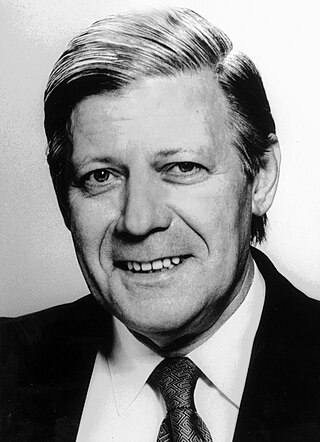 10
Helmut Heinrich Waldemar Schmidt was a German politician and member of the Social Democratic Party of Germany (SPD), who served as the chancellor of West Germany from 1974 to 1982.
10
Helmut Heinrich Waldemar Schmidt was a German politician and member of the Social Democratic Party of Germany (SPD), who served as the chancellor of West Germany from 1974 to 1982.
Heinrich Imbusch
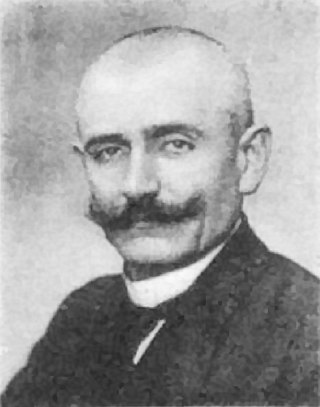 10
Heinrich Imbusch war ein deutscher Gewerkschaftsführer und Politiker der Zentrumspartei.
10
Heinrich Imbusch war ein deutscher Gewerkschaftsführer und Politiker der Zentrumspartei.
Josef Wirmer
 10
Josef Wirmer was a German jurist and resistance fighter against the Nazi regime.
10
Josef Wirmer was a German jurist and resistance fighter against the Nazi regime.
Ludwig Dürr
 10
Ludwig Dürr was a German airship designer.
10
Ludwig Dürr was a German airship designer.
Anselm Feuerbach
 10
Anselm Feuerbach was a German painter. He was the leading neoclassical painter of the German 19th-century school.
10
Anselm Feuerbach was a German painter. He was the leading neoclassical painter of the German 19th-century school.
Gottfried Kinkel
 10
Johann Gottfried Kinkel was a German poet also noted for his revolutionary activities and his escape from a Prussian prison in Spandau with the help of his friend Carl Schurz.
10
Johann Gottfried Kinkel was a German poet also noted for his revolutionary activities and his escape from a Prussian prison in Spandau with the help of his friend Carl Schurz.
Franz Stock
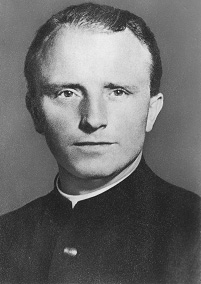 10
Franz Stock was a German Roman Catholic priest. He is known for ministering to prisoners in France during World War II, and to German prisoners of war in the years following. The cause for his...
10
Franz Stock was a German Roman Catholic priest. He is known for ministering to prisoners in France during World War II, and to German prisoners of war in the years following. The cause for his...
Heinrich Vogeler
 10
Johann Heinrich Vogeler was a German painter, designer, and architect, associated with the Düsseldorf school of painting.
10
Johann Heinrich Vogeler was a German painter, designer, and architect, associated with the Düsseldorf school of painting.
Kurt Georg Kiesinger
 10
Kurt Georg Kiesinger was a German politician who served as the chancellor of West Germany from 1 December 1966 to 21 October 1969. Before he became Chancellor he served as Minister–President of...
10
Kurt Georg Kiesinger was a German politician who served as the chancellor of West Germany from 1 December 1966 to 21 October 1969. Before he became Chancellor he served as Minister–President of...
Otto Suhr
 9
Otto Ernst Heinrich Hermann Suhr was a German politician as a member of the Social Democratic Party of Germany (SPD). He served as the Governing Mayor of Berlin from 1955 until his death.
9
Otto Ernst Heinrich Hermann Suhr was a German politician as a member of the Social Democratic Party of Germany (SPD). He served as the Governing Mayor of Berlin from 1955 until his death.
Rudolf Christoph Eucken
 9
Rudolf Christoph Eucken was a German philosopher. He received the 1908 Nobel Prize in Literature "in recognition of his earnest search for truth, his penetrating power of thought, his wide range of...
9
Rudolf Christoph Eucken was a German philosopher. He received the 1908 Nobel Prize in Literature "in recognition of his earnest search for truth, his penetrating power of thought, his wide range of...
Ernst Sachs (Unternehmer)
 9
Ernst Sachs war ein deutscher Industrieller, Geheimer Kommerzienrat, Dr.-Ing. h. c., Ehrenbürger von Schweinfurt und Innovator der Freilaufnabe mit Rücktrittbremse am Fahrrad.
9
Ernst Sachs war ein deutscher Industrieller, Geheimer Kommerzienrat, Dr.-Ing. h. c., Ehrenbürger von Schweinfurt und Innovator der Freilaufnabe mit Rücktrittbremse am Fahrrad.
Caspar David Friedrich
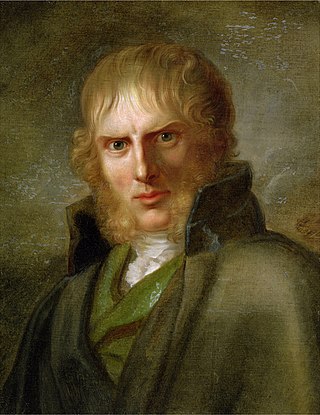 9
Caspar David Friedrich was a German Romantic landscape painter, generally considered the most important German artist of his generation. He is best known for his allegorical landscapes, which...
9
Caspar David Friedrich was a German Romantic landscape painter, generally considered the most important German artist of his generation. He is best known for his allegorical landscapes, which...
Ubbo Emmius
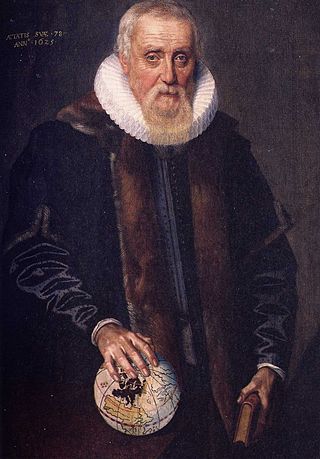 9
Ubbo Emmius was a German historian and geographer.
9
Ubbo Emmius was a German historian and geographer.
Ottilie Baader
 9
Ottilie Baader was a German women's rights activist and socialist. In 1900–1908, she was a central agent of the comrades of Germany. Baader was one of the founders of the first trade union...
9
Ottilie Baader was a German women's rights activist and socialist. In 1900–1908, she was a central agent of the comrades of Germany. Baader was one of the founders of the first trade union...
Franz Josef Strauss
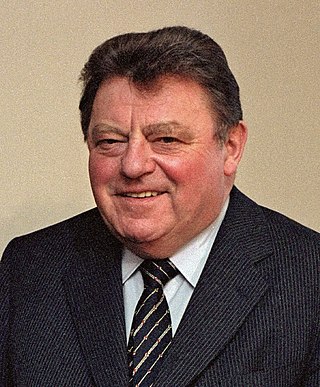 9
Franz Josef Strauss was a German politician. He was the long-time chairman of the Christian Social Union in Bavaria (CSU) from 1961 until 1988, member of the federal cabinet in different positions...
9
Franz Josef Strauss was a German politician. He was the long-time chairman of the Christian Social Union in Bavaria (CSU) from 1961 until 1988, member of the federal cabinet in different positions...
Engelbert III of the Mark
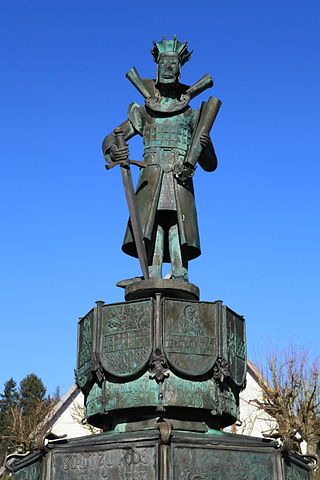 9
Engelbert III of the Mark (1333–1391) was the Count of Mark from 1347 until 1391.
9
Engelbert III of the Mark (1333–1391) was the Count of Mark from 1347 until 1391.
Egon Kisch
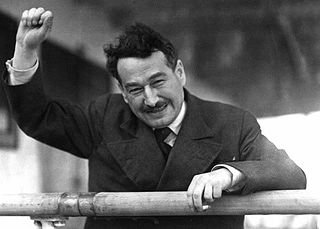 9
Egon Erwin Kisch was an Austrian and Czechoslovak writer and journalist, who wrote in German. He styled himself Der Rasende Reporter for his countless travels to the far corners of the globe and his...
9
Egon Erwin Kisch was an Austrian and Czechoslovak writer and journalist, who wrote in German. He styled himself Der Rasende Reporter for his countless travels to the far corners of the globe and his...
Hinrich Wilhelm Kopf
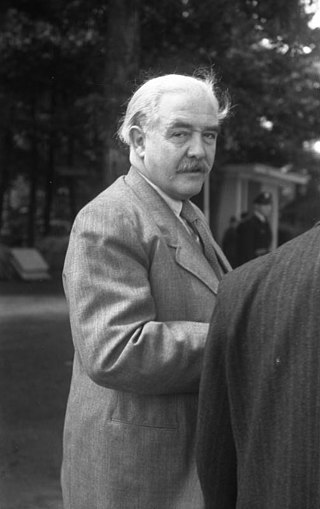 9
Hinrich Wilhelm Kopf was a German politician (SPD). He joined the SPD in 1919. Kopf worked from 1939 to 1943 on behalf of the Nazi government as an asset manager in occupied Poland, initially with...
9
Hinrich Wilhelm Kopf was a German politician (SPD). He joined the SPD in 1919. Kopf worked from 1939 to 1943 on behalf of the Nazi government as an asset manager in occupied Poland, initially with...
André-Marie Ampère
 9
André-Marie Ampère was a French physicist and mathematician who was one of the founders of the science of classical electromagnetism, which he referred to as "electrodynamics". He is also the...
9
André-Marie Ampère was a French physicist and mathematician who was one of the founders of the science of classical electromagnetism, which he referred to as "electrodynamics". He is also the...
Alice Salomon
 9
Alice Salomon was a German social reformer and pioneer of social work as an academic discipline. Her role was so important to German social work that the Deutsche Bundespost issued a commemorative...
9
Alice Salomon was a German social reformer and pioneer of social work as an academic discipline. Her role was so important to German social work that the Deutsche Bundespost issued a commemorative...
Stefan George
 9
Stefan Anton George was a German symbolist poet and a translator of Dante Alighieri, William Shakespeare, Hesiod, and Charles Baudelaire. He is also known for his role as leader of the highly...
9
Stefan Anton George was a German symbolist poet and a translator of Dante Alighieri, William Shakespeare, Hesiod, and Charles Baudelaire. He is also known for his role as leader of the highly...
Charles de Gaulle
 9
Charles André Joseph Marie de Gaulle was a French army officer and statesman who led the Free French Forces against Nazi Germany in World War II and chaired the Provisional Government of the French...
9
Charles André Joseph Marie de Gaulle was a French army officer and statesman who led the Free French Forces against Nazi Germany in World War II and chaired the Provisional Government of the French...
Werner Hilpert
 9
Werner Johannes Hilpert was a German politician of the Centre Party and CDU, and is largely considered one of the founding fathers of the Federal Republic of Germany.
9
Werner Johannes Hilpert was a German politician of the Centre Party and CDU, and is largely considered one of the founding fathers of the Federal Republic of Germany.
Sven Hedin
 9
Sven Anders Hedin, KNO1kl RVO, was a Swedish geographer, topographer, explorer, photographer, travel writer and illustrator of his own works. During four expeditions to Central Asia, he made the...
9
Sven Anders Hedin, KNO1kl RVO, was a Swedish geographer, topographer, explorer, photographer, travel writer and illustrator of his own works. During four expeditions to Central Asia, he made the...
Christoph von Schmid
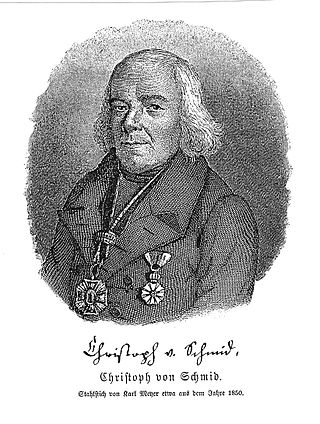 9
Christoph von Schmid was a writer of children's stories and an educator. His stories were very popular and translated into many languages. His best known work in the English-speaking world is The...
9
Christoph von Schmid was a writer of children's stories and an educator. His stories were very popular and translated into many languages. His best known work in the English-speaking world is The...
Hilde Coppi
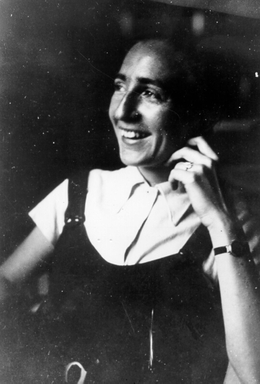 9
Betti Gertrud Käthe Hilda Coppi, known as Hilde Coppi, was a German communist and resistance fighter against the Nazi regime. She was a member of the anti-fascist resistance group that was later...
9
Betti Gertrud Käthe Hilda Coppi, known as Hilde Coppi, was a German communist and resistance fighter against the Nazi regime. She was a member of the anti-fascist resistance group that was later...
Otto Dill
 9
Otto Dill was a German painter. His work was part of the art competitions at the 1928 Summer Olympics and the 1932 Summer Olympics.
9
Otto Dill was a German painter. His work was part of the art competitions at the 1928 Summer Olympics and the 1932 Summer Olympics.
Rudolf Dietz (Autor)
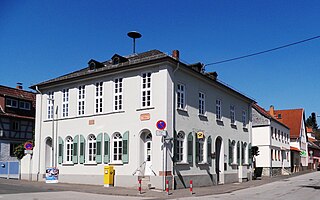 9
Georg Christian Conrad Theodor Hermann Rudolf Otto Dietz war ein deutscher Lehrer, Schulbuchautor und Heimatdichter, der in nassauischer Mundart schrieb.
9
Georg Christian Conrad Theodor Hermann Rudolf Otto Dietz war ein deutscher Lehrer, Schulbuchautor und Heimatdichter, der in nassauischer Mundart schrieb.
Fritz Schäffer
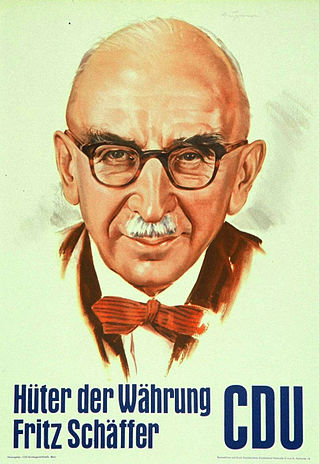 9
Fritz Schäffer was a German politician of the Bavarian People's Party (BVP) and the Christian Social Union (CSU). He was the Bavarian Minister of Finance from 1931 to 1933, when the Nazis came to...
9
Fritz Schäffer was a German politician of the Bavarian People's Party (BVP) and the Christian Social Union (CSU). He was the Bavarian Minister of Finance from 1931 to 1933, when the Nazis came to...
Hennes Weisweiler
 9
Hans "Hennes" Weisweiler was a German professional football player and coach. As a coach, he won major titles with Bundesliga clubs Borussia Mönchengladbach and 1. FC Köln in the 1970s.
9
Hans "Hennes" Weisweiler was a German professional football player and coach. As a coach, he won major titles with Bundesliga clubs Borussia Mönchengladbach and 1. FC Köln in the 1970s.
Georg Weerth
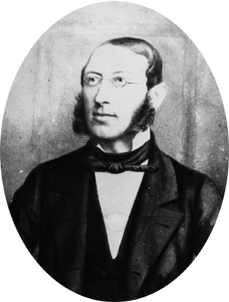 9
Georg Ludwig Weerth was a German writer and poet. Weerth's poems celebrated the solidarity of the working class in its fight for liberation from exploitation and oppression. He was a friend and...
9
Georg Ludwig Weerth was a German writer and poet. Weerth's poems celebrated the solidarity of the working class in its fight for liberation from exploitation and oppression. He was a friend and...
Fritz Müller
 9
Johann Friedrich Theodor Müller, better known as Fritz Müller, and also as Müller-Desterro, was a German biologist who emigrated to southern Brazil, where he lived in and near the city of Blumenau,...
9
Johann Friedrich Theodor Müller, better known as Fritz Müller, and also as Müller-Desterro, was a German biologist who emigrated to southern Brazil, where he lived in and near the city of Blumenau,...
Artur Becker
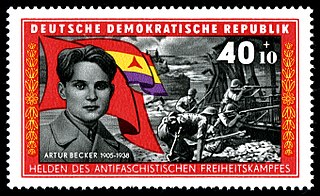 9
Artur Becker was a German communist and functionary of the Young Communist League of Germany (KJVD), as well as a participant in the Spanish Civil War.
9
Artur Becker was a German communist and functionary of the Young Communist League of Germany (KJVD), as well as a participant in the Spanish Civil War.
Walther Bothe
 9
Walther Wilhelm Georg Bothe was a German nuclear physicist know for the development of coincidence methods to study particle physics.
9
Walther Wilhelm Georg Bothe was a German nuclear physicist know for the development of coincidence methods to study particle physics.
Franz Schnabel
 9
Franz Schnabel was a German historian. He wrote about German history, particularly the "cultural crisis" of the 19th century in Germany as well as humanism after the end of the Third Reich. He...
9
Franz Schnabel was a German historian. He wrote about German history, particularly the "cultural crisis" of the 19th century in Germany as well as humanism after the end of the Third Reich. He...
Adam Kraft
 9
Adam Kraft was a German stone sculptor and master builder of the late Gothic period, based in Nuremberg and with a documented career there from 1490.
9
Adam Kraft was a German stone sculptor and master builder of the late Gothic period, based in Nuremberg and with a documented career there from 1490.
Wilhelm Wisser
 9
Wilhelm Wisser was a German teacher and dialectologist. He is remembered as a collector of Low German legends and fairy tales.
9
Wilhelm Wisser was a German teacher and dialectologist. He is remembered as a collector of Low German legends and fairy tales.
Uncle Bräsig
 9
Uncle Bräsig is a 1936 German historical comedy film directed by Erich Waschneck and starring Otto Wernicke, Heinrich Schroth and Harry Hardt. It marked the film debut of the Swedish actress Kristina...
9
Uncle Bräsig is a 1936 German historical comedy film directed by Erich Waschneck and starring Otto Wernicke, Heinrich Schroth and Harry Hardt. It marked the film debut of the Swedish actress Kristina...
Gabriel
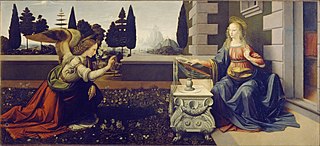 9
In the Abrahamic religions, Gabriel is an archangel with the power to announce God's will to mankind. He is mentioned in the Hebrew Bible, the New Testament, the Quran and the Kitáb-i-Aqdas. Many...
9
In the Abrahamic religions, Gabriel is an archangel with the power to announce God's will to mankind. He is mentioned in the Hebrew Bible, the New Testament, the Quran and the Kitáb-i-Aqdas. Many...
Wilhelm Münker
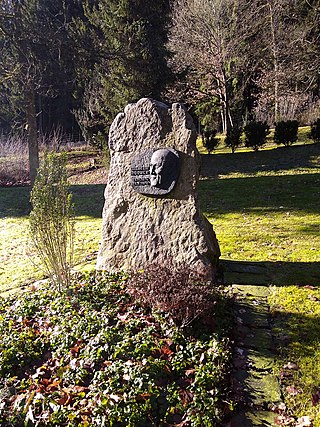 9
Wilhelm Münker war Mitbegründer des Deutschen Jugendherbergswerks und aktiver Naturschützer.
9
Wilhelm Münker war Mitbegründer des Deutschen Jugendherbergswerks und aktiver Naturschützer.
Reinhard Scheer
 9
Carl Friedrich Heinrich Reinhard Scheer was an Admiral in the Imperial German Navy. Scheer joined the navy in 1879 as an officer cadet and progressed through the ranks, commanding cruisers and...
9
Carl Friedrich Heinrich Reinhard Scheer was an Admiral in the Imperial German Navy. Scheer joined the navy in 1879 as an officer cadet and progressed through the ranks, commanding cruisers and...
August Euler
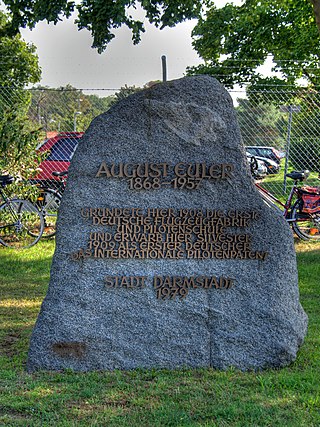 9
August Euler was a pioneer German aviator, aircraft constructor and the holder of the first German pilot's license, issued in 1909. After the First World War, he became German Secretary of State for...
9
August Euler was a pioneer German aviator, aircraft constructor and the holder of the first German pilot's license, issued in 1909. After the First World War, he became German Secretary of State for...
Max Schmeling
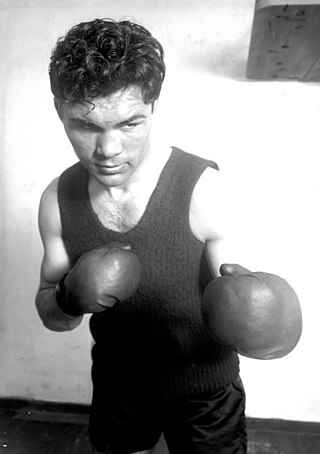 9
Maximilian Adolph Otto Siegfried Schmeling was a German boxer who was heavyweight champion of the world between 1930 and 1932. His two fights with Joe Louis in 1936 and 1938 were worldwide cultural...
9
Maximilian Adolph Otto Siegfried Schmeling was a German boxer who was heavyweight champion of the world between 1930 and 1932. His two fights with Joe Louis in 1936 and 1938 were worldwide cultural...
Elisabeth Schwarzhaupt
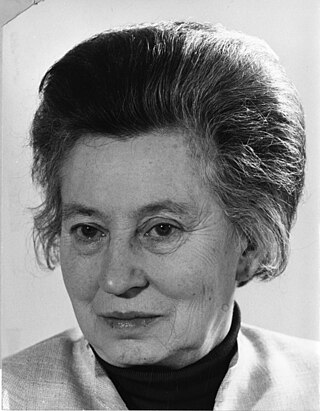 9
Elisabeth Schwarzhaupt was a German politician of the Christian Democratic Union (CDU). She was Federal Minister of Health in the German Cabinet from 1961 to 1966, the first woman to hold a...
9
Elisabeth Schwarzhaupt was a German politician of the Christian Democratic Union (CDU). She was Federal Minister of Health in the German Cabinet from 1961 to 1966, the first woman to hold a...
Christian Morgenstern
 9
Christian Otto Josef Wolfgang Morgenstern was a German writer and poet from Munich. Morgenstern married Margareta Gosebruch von Liechtenstern on 7 March 1910. He worked for a while as a journalist in...
9
Christian Otto Josef Wolfgang Morgenstern was a German writer and poet from Munich. Morgenstern married Margareta Gosebruch von Liechtenstern on 7 March 1910. He worked for a while as a journalist in...
Amandus
 9
Amandus, commonly called Saint Amand, was a bishop of Tongeren-Maastricht and one of the catholic missionaries of Flanders. He is venerated as a saint, particularly in France and Belgium.
9
Amandus, commonly called Saint Amand, was a bishop of Tongeren-Maastricht and one of the catholic missionaries of Flanders. He is venerated as a saint, particularly in France and Belgium.
Claude Monet
 9
Oscar-Claude Monet was a French painter and founder of impressionist painting who is seen as a key precursor to modernism, especially in his attempts to paint nature as he perceived it. During his...
9
Oscar-Claude Monet was a French painter and founder of impressionist painting who is seen as a key precursor to modernism, especially in his attempts to paint nature as he perceived it. During his...
Marc Chagall
 9
Marc Chagall was a Russian-French artist. An early modernist, he was associated with the École de Paris as well as several major artistic styles and created works in a wide range of artistic formats,...
9
Marc Chagall was a Russian-French artist. An early modernist, he was associated with the École de Paris as well as several major artistic styles and created works in a wide range of artistic formats,...
Gottfried Könzgen
 9
Gottfried Könzgen war ein deutscher Arbeitersekretär, Politiker (Zentrum) und Märtyrer.
9
Gottfried Könzgen war ein deutscher Arbeitersekretär, Politiker (Zentrum) und Märtyrer.
Frida Kahlo
 9
Magdalena Carmen Frida Kahlo y Calderón was a Mexican painter known for her many portraits, self-portraits, and works inspired by the nature and artifacts of Mexico. Inspired by the country's popular...
9
Magdalena Carmen Frida Kahlo y Calderón was a Mexican painter known for her many portraits, self-portraits, and works inspired by the nature and artifacts of Mexico. Inspired by the country's popular...
Marlene Dietrich
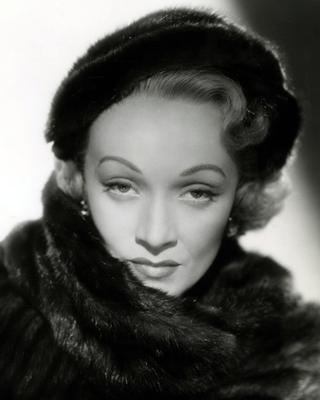 8
Marie Magdalene "Marlene" Dietrich was a German and American actress and singer whose career spanned from the 1910s to the 1980s.
8
Marie Magdalene "Marlene" Dietrich was a German and American actress and singer whose career spanned from the 1910s to the 1980s.
Marco Polo
 8
Marco Polo was a Venetian merchant, explorer and writer who travelled through Asia along the Silk Road between 1271 and 1295. His travels are recorded in The Travels of Marco Polo, a book that...
8
Marco Polo was a Venetian merchant, explorer and writer who travelled through Asia along the Silk Road between 1271 and 1295. His travels are recorded in The Travels of Marco Polo, a book that...
Max Delbrück
 8
Max Ludwig Henning Delbrück was a German–American biophysicist who participated in launching the molecular biology research program in the late 1930s. He stimulated physical scientists' interest into...
8
Max Ludwig Henning Delbrück was a German–American biophysicist who participated in launching the molecular biology research program in the late 1930s. He stimulated physical scientists' interest into...
Maximilian I Joseph of Bavaria
 8
Maximilian I Joseph was Duke of Zweibrücken from 1795 to 1799, prince-elector of Bavaria from 1799 to 1806, then King of Bavaria from 1806 to 1825. He was a member of the House of...
8
Maximilian I Joseph was Duke of Zweibrücken from 1795 to 1799, prince-elector of Bavaria from 1799 to 1806, then King of Bavaria from 1806 to 1825. He was a member of the House of...
Georg Gottfried Gervinus
 8
Georg Gottfried Gervinus was a German literary and political historian.
8
Georg Gottfried Gervinus was a German literary and political historian.
Albert Kuntz
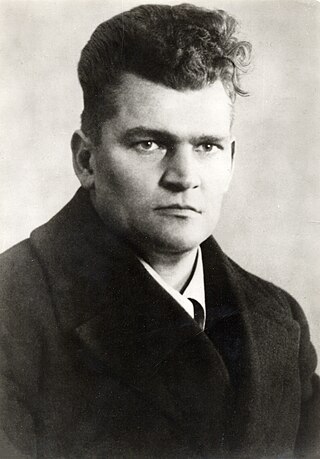 8
Albert Kuntz was a German goldsmith, soldier, communist and concentration camp victim. A soldier in the First World War, Kuntz rose to become an elected representative of the German Communist Party...
8
Albert Kuntz was a German goldsmith, soldier, communist and concentration camp victim. A soldier in the First World War, Kuntz rose to become an elected representative of the German Communist Party...
Matthäus Daniel Pöppelmann
 8
Matthäus Daniel Pöppelmann (1662–1736) was a German master builder and architect who helped to rebuild Dresden after the fire of 1685. His most famous work is the Zwinger Palace.
8
Matthäus Daniel Pöppelmann (1662–1736) was a German master builder and architect who helped to rebuild Dresden after the fire of 1685. His most famous work is the Zwinger Palace.
Nicolas Steno
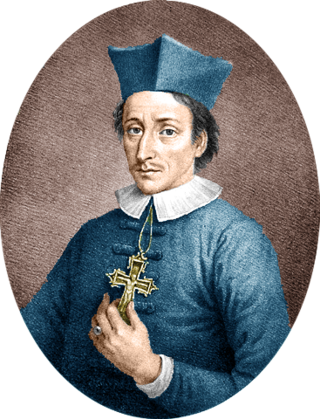 8
Niels Steensen ; 1 January 1638 – 25 November 1686 [NS: 11 January 1638 – 5 December 1686]) was a Danish scientist, a pioneer in both anatomy and geology who became a Catholic bishop in his later...
8
Niels Steensen ; 1 January 1638 – 25 November 1686 [NS: 11 January 1638 – 5 December 1686]) was a Danish scientist, a pioneer in both anatomy and geology who became a Catholic bishop in his later...
Ernst Robert Curtius
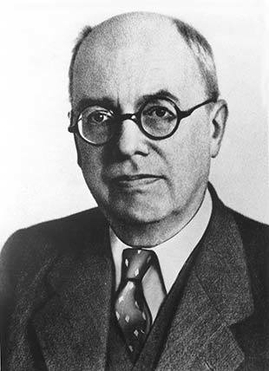 8
Ernst Robert Curtius was a German literary scholar, philologist, and Romance languages literary critic, best known for his 1948 study Europäische Literatur und Lateinisches Mittelalter, translated in...
8
Ernst Robert Curtius was a German literary scholar, philologist, and Romance languages literary critic, best known for his 1948 study Europäische Literatur und Lateinisches Mittelalter, translated in...
Georg Pictorius
 8
Georg Pictorius of Villingen was a physician and an author of the German Renaissance.
8
Georg Pictorius of Villingen was a physician and an author of the German Renaissance.
Alberich Rabensteiner
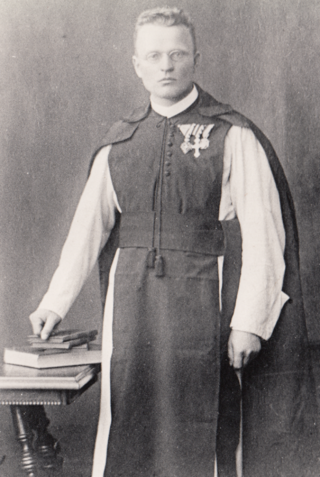 8
Alberich Rabensteiner was a Cistercian monk who practiced at Heiligenkreuz Abbey. He was also prior and pastor at Neukloster Priory, Wiener Neustadt, Austria.
8
Alberich Rabensteiner was a Cistercian monk who practiced at Heiligenkreuz Abbey. He was also prior and pastor at Neukloster Priory, Wiener Neustadt, Austria.
Wilhelm Müller
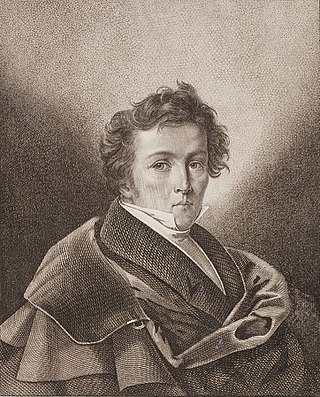 8
Johann Ludwig Wilhelm Müller was a German lyric poet, best known as the author of Die schöne Müllerin (1823) and Winterreise (1828). These would later be the source of inspiration for two song cycles...
8
Johann Ludwig Wilhelm Müller was a German lyric poet, best known as the author of Die schöne Müllerin (1823) and Winterreise (1828). These would later be the source of inspiration for two song cycles...
Otto Graf zu Stolberg-Wernigerode
 8
Otto Graf zu Stolberg-Wernigerode was an Imperial German officer, diplomat and politician who served as the first vice-chancellor of the German Empire under Otto Von Bismarck between 1878 and 1881.
8
Otto Graf zu Stolberg-Wernigerode was an Imperial German officer, diplomat and politician who served as the first vice-chancellor of the German Empire under Otto Von Bismarck between 1878 and 1881.
Kurt Eisner
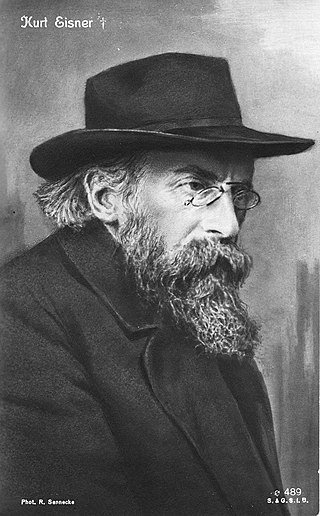 8
Kurt Eisner was a German politician, revolutionary, journalist, and theatre critic. As a socialist journalist, he organized the socialist revolution that overthrew the Wittelsbach monarchy in Bavaria...
8
Kurt Eisner was a German politician, revolutionary, journalist, and theatre critic. As a socialist journalist, he organized the socialist revolution that overthrew the Wittelsbach monarchy in Bavaria...
Jerg Ratgeb
 8
Jerg Ratgeb, also Jörg Ratgeb, was a German painter during the Renaissance, and a contemporary of Albrecht Dürer.
8
Jerg Ratgeb, also Jörg Ratgeb, was a German painter during the Renaissance, and a contemporary of Albrecht Dürer.
Jean Baptist, Comte d'Arco
 8
Jean Baptist, Comte d'Arco was a diplomat and Generalfeldmarschall in the service of the Electorate of Bavaria during the Great Turkish War and the War of the Spanish Succession. He should not be...
8
Jean Baptist, Comte d'Arco was a diplomat and Generalfeldmarschall in the service of the Electorate of Bavaria during the Great Turkish War and the War of the Spanish Succession. He should not be...
Fritz Lau
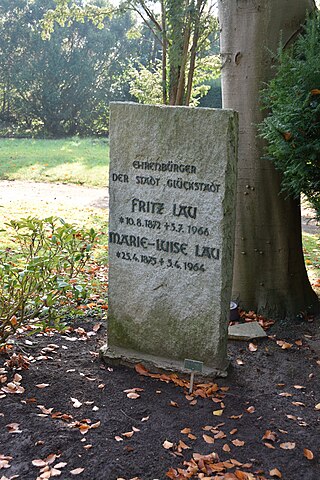 8
Fritz Lau (1872–1966) was Low German writer, playwright and lyricist.
8
Fritz Lau (1872–1966) was Low German writer, playwright and lyricist.
Pablo Neruda
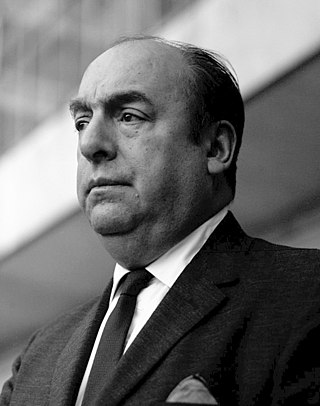 8
Pablo Neruda was a Chilean poet-diplomat and politician who won the 1971 Nobel Prize in Literature. Neruda became known as a poet when he was 13 years old and wrote in a variety of styles, including...
8
Pablo Neruda was a Chilean poet-diplomat and politician who won the 1971 Nobel Prize in Literature. Neruda became known as a poet when he was 13 years old and wrote in a variety of styles, including...
Luise Büchner
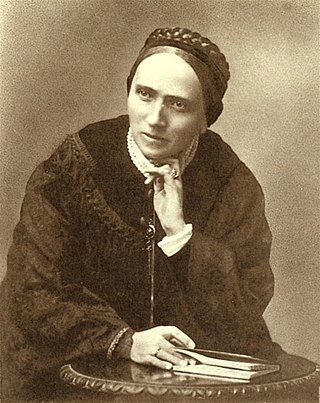 8
Elisabeth Emma Louise "Luise" Büchner was a German women's rights activist and writer of essays, novels, travelogues and poetry.
8
Elisabeth Emma Louise "Luise" Büchner was a German women's rights activist and writer of essays, novels, travelogues and poetry.
Not found.
 8
8
Joseph Beuys
 8
Joseph Heinrich Beuys was a German artist, teacher, performance artist, and art theorist whose work reflected concepts of humanism, sociology, and, with Heinrich Böll, Johannes Stüttgen, Caroline...
8
Joseph Heinrich Beuys was a German artist, teacher, performance artist, and art theorist whose work reflected concepts of humanism, sociology, and, with Heinrich Böll, Johannes Stüttgen, Caroline...
Emil Gött
 8
Emil Gött war ein deutscher Schriftsteller.
8
Emil Gött war ein deutscher Schriftsteller.
Josef Seliger
 8
Josef Seliger war Textilarbeiter und Mitglied des Abgeordnetenhauses des österreichischen Reichsrats.
8
Josef Seliger war Textilarbeiter und Mitglied des Abgeordnetenhauses des österreichischen Reichsrats.
Elias Holl
 8
Elias Holl
was the most important architect of late German Renaissance architecture.
8
Elias Holl
was the most important architect of late German Renaissance architecture.
Thurn und Taxis
 8
The Princely House of Thurn and Taxis is a family of German nobility that is part of the Briefadel. It was a key player in the postal services in Europe during the 16th century, until the end of the...
8
The Princely House of Thurn and Taxis is a family of German nobility that is part of the Briefadel. It was a key player in the postal services in Europe during the 16th century, until the end of the...
Otto Gessler
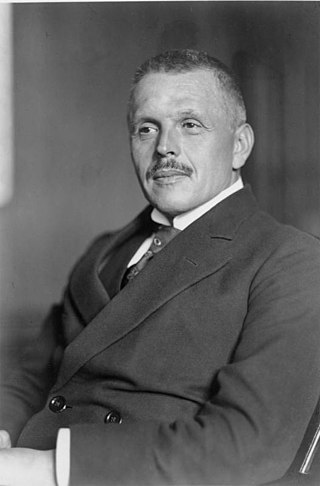 8
Otto Karl Gessler was a liberal German politician during the Weimar Republic. From 1910 until 1914, he was mayor of Regensburg and from 1913 to 1919 mayor of Nuremberg. He served in numerous Weimar...
8
Otto Karl Gessler was a liberal German politician during the Weimar Republic. From 1910 until 1914, he was mayor of Regensburg and from 1913 to 1919 mayor of Nuremberg. He served in numerous Weimar...
Ernst Leitz II
 8
Ernst Leitz II was a German business person and humanitarian. He was the second head of the optics company now known as Leica Camera and organized the Leica Freedom Train to allow people, most of...
8
Ernst Leitz II was a German business person and humanitarian. He was the second head of the optics company now known as Leica Camera and organized the Leica Freedom Train to allow people, most of...
Joseph Haas
 8
Joseph Haas was a German late romantic composer and music teacher.
8
Joseph Haas was a German late romantic composer and music teacher.
Karl Bunje
 8
Karl Bunje war ein niederdeutscher Autor.
8
Karl Bunje war ein niederdeutscher Autor.
Kurt W. Fischer
 8
Kurt W. Fischer was an educator, author, and researcher in the field of neuroscience and education. Until his retirement in 2015, he was the Charles Bigelow Professor of Education and Director of the...
8
Kurt W. Fischer was an educator, author, and researcher in the field of neuroscience and education. Until his retirement in 2015, he was the Charles Bigelow Professor of Education and Director of the...
Walter Kollo
 8
Walter Kollo was a German composer of operettas, Possen mit Gesang, and Singspiele as well as popular songs. He was also a conductor and a music publisher.
8
Walter Kollo was a German composer of operettas, Possen mit Gesang, and Singspiele as well as popular songs. He was also a conductor and a music publisher.
Max Klinger
 8
Max Klinger was a German artist who produced significant work in painting, sculpture, prints and graphics, as well as writing a treatise articulating his ideas on art and the role of graphic arts and...
8
Max Klinger was a German artist who produced significant work in painting, sculpture, prints and graphics, as well as writing a treatise articulating his ideas on art and the role of graphic arts and...
Cäsar Flaischlen
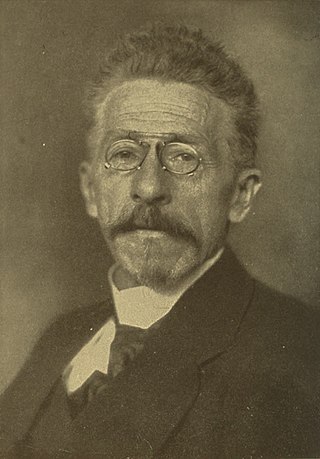 8
Cäsar Flaischlen was a German poet. He is best known as the author of "Hab' Sonne im Herzen", which has been translated into various languages. Composers such as Pauline Volkstein have set...
8
Cäsar Flaischlen was a German poet. He is best known as the author of "Hab' Sonne im Herzen", which has been translated into various languages. Composers such as Pauline Volkstein have set...
Jean Monnet
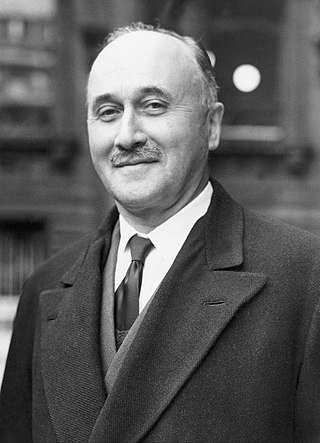 8
Jean Omer Marie Gabriel Monnet was a French civil servant, entrepreneur, diplomat, financier, administrator, and political visionary. An influential supporter of European unity, he is considered one...
8
Jean Omer Marie Gabriel Monnet was a French civil servant, entrepreneur, diplomat, financier, administrator, and political visionary. An influential supporter of European unity, he is considered one...
Arno Holz
 8
Arno Hermann Oscar Alfred Holz was a German naturalist poet and dramatist. He is best known for his poetry collection Phantasus (1898). He was nominated for a Nobel prize in literature nine times.
8
Arno Hermann Oscar Alfred Holz was a German naturalist poet and dramatist. He is best known for his poetry collection Phantasus (1898). He was nominated for a Nobel prize in literature nine times.
Arp Schnitger
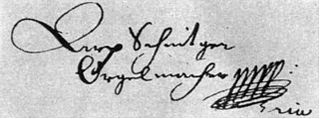 8
Arp Schnitger was an influential Northern German organ builder. Considered the paramount manufacturer of his time, Schnitger built or rebuilt over 150 organs. He was primarily active in Northern...
8
Arp Schnitger was an influential Northern German organ builder. Considered the paramount manufacturer of his time, Schnitger built or rebuilt over 150 organs. He was primarily active in Northern...
Louise Otto-Peters
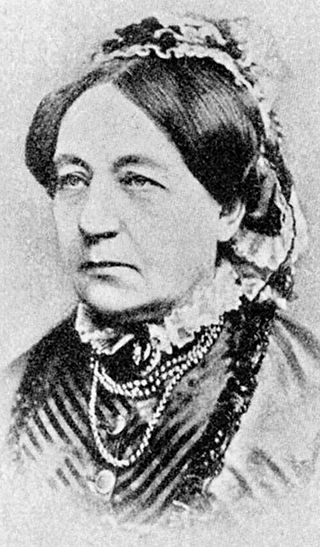 8
Louise Otto-Peters was a German suffragist and women's rights movement activist who wrote novels, poetry, essays, and libretti. She wrote for Der Wandelstern [The Wandering Star] and Sächsische...
8
Louise Otto-Peters was a German suffragist and women's rights movement activist who wrote novels, poetry, essays, and libretti. She wrote for Der Wandelstern [The Wandering Star] and Sächsische...
Norbert of Xanten
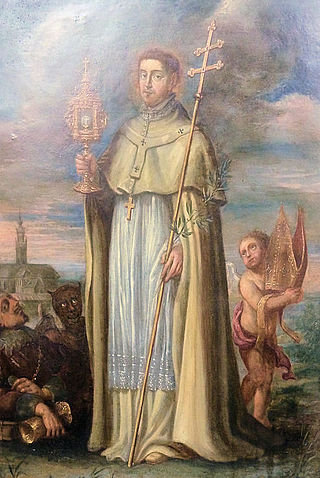 8
Norbert of Xanten, O. Praem (Xanten-Magdeburg), also known as Norbert Gennep, was a bishop of the Catholic Church, founder of the Premonstratensian order of canons regular, and is venerated as a...
8
Norbert of Xanten, O. Praem (Xanten-Magdeburg), also known as Norbert Gennep, was a bishop of the Catholic Church, founder of the Premonstratensian order of canons regular, and is venerated as a...
Wilhelm Blos
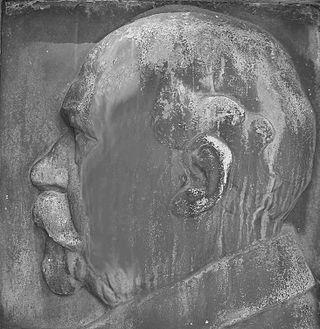 8
Wilhelm Josef Blos was a German journalist, historian, novelist, dramatist and politician (SPD). He served as a member of the imperial parliament (Reichstag) between 1877 and 1918, albeit with one...
8
Wilhelm Josef Blos was a German journalist, historian, novelist, dramatist and politician (SPD). He served as a member of the imperial parliament (Reichstag) between 1877 and 1918, albeit with one...
Friedrich Krupp
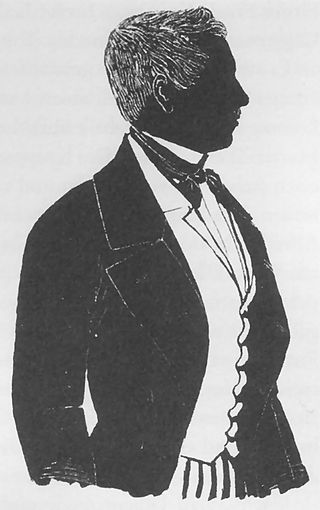 8
Friedrich Carl Krupp was a German steel manufacturer and founder of the Krupp family commercial empire that is now subsumed into ThyssenKrupp AG.
8
Friedrich Carl Krupp was a German steel manufacturer and founder of the Krupp family commercial empire that is now subsumed into ThyssenKrupp AG.
Johanna Spyri
 8
Johanna Louise Spyri was a Swiss author of novels, notably children's stories. She wrote the popular book Heidi. Born in Hirzel, a rural area in the canton of Zürich, as a child she spent several...
8
Johanna Louise Spyri was a Swiss author of novels, notably children's stories. She wrote the popular book Heidi. Born in Hirzel, a rural area in the canton of Zürich, as a child she spent several...
Januarius Zick
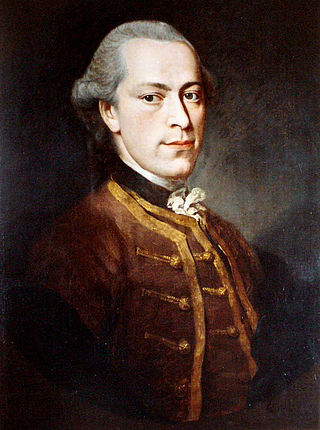 8
Johann Rasso Januarius Zick was a German painter and architect. He is considered to be one of the main masters of the Late-Baroque.
8
Johann Rasso Januarius Zick was a German painter and architect. He is considered to be one of the main masters of the Late-Baroque.
Wilhelm von Polenz
 8
Wilhelm Christoph Wolf von Polenz war ein deutscher Heimatschriftsteller, Romancier und Novellist.
8
Wilhelm Christoph Wolf von Polenz war ein deutscher Heimatschriftsteller, Romancier und Novellist.
Hermann Burte
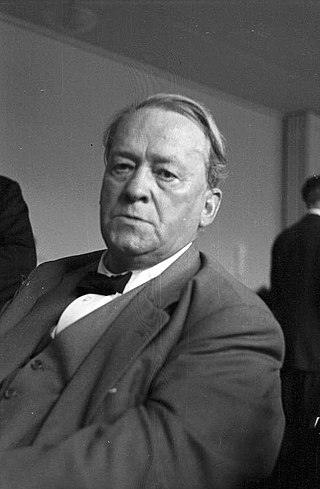 8
Hermann Burte war ein deutscher Dichter, Schriftsteller und Maler. Zu seinen bekanntesten literarischen Werken zählen der 1912 veröffentlichte Roman Wiltfeber, der ewige Deutsche und die 1914...
8
Hermann Burte war ein deutscher Dichter, Schriftsteller und Maler. Zu seinen bekanntesten literarischen Werken zählen der 1912 veröffentlichte Roman Wiltfeber, der ewige Deutsche und die 1914...
Gustav Schönleber
 8
Gustav Schönleber was a German landscape painter.
8
Gustav Schönleber was a German landscape painter.
Johann Michael Fischer
 8
Johann Michael Fischer was a German architect in the late Baroque period.
8
Johann Michael Fischer was a German architect in the late Baroque period.
Focko Ukena
 8
Focko Ukena was an East Frisian chieftain (hovetling) who played an important part in the struggle between the Vetkopers and Schieringers in the provinces of Groningen and Friesland. Aside from this...
8
Focko Ukena was an East Frisian chieftain (hovetling) who played an important part in the struggle between the Vetkopers and Schieringers in the provinces of Groningen and Friesland. Aside from this...
Hans Scholl
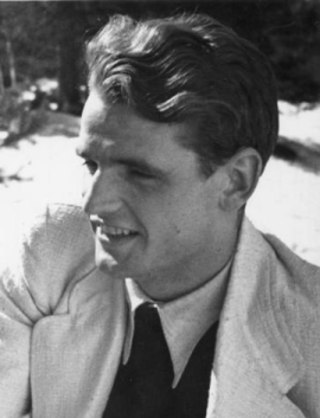 8
Hans Fritz Scholl was, along with Alexander Schmorell, one of the two founding members of the White Rose resistance movement in Nazi Germany. The principal author of the resistance movement's...
8
Hans Fritz Scholl was, along with Alexander Schmorell, one of the two founding members of the White Rose resistance movement in Nazi Germany. The principal author of the resistance movement's...
Werner Egk
 8
Werner Egk, born Werner Joseph Mayer, was a German composer.
8
Werner Egk, born Werner Joseph Mayer, was a German composer.
Peter Wust
 8
Peter Wust was a German existentialist philosopher who is unknown in the English realm, for his works has never been translated into English to this day.
8
Peter Wust was a German existentialist philosopher who is unknown in the English realm, for his works has never been translated into English to this day.
Leo Wohleb
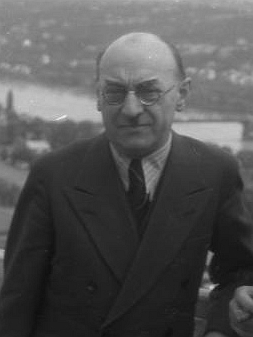 7
Leo Joseph Wohleb war ein deutscher Philologe, Lehrer und Politiker. Von 1947 bis 1952 war er Staatspräsident des Landes Baden.
7
Leo Joseph Wohleb war ein deutscher Philologe, Lehrer und Politiker. Von 1947 bis 1952 war er Staatspräsident des Landes Baden.
Therese Giehse
 7
Therese Giehse, born Therese Gift, was a German actress. Born in Munich to German-Jewish parents, she first appeared on the stage in 1920. She became a major star on stage, in films, and in political...
7
Therese Giehse, born Therese Gift, was a German actress. Born in Munich to German-Jewish parents, she first appeared on the stage in 1920. She became a major star on stage, in films, and in political...
Wulf Isebrand
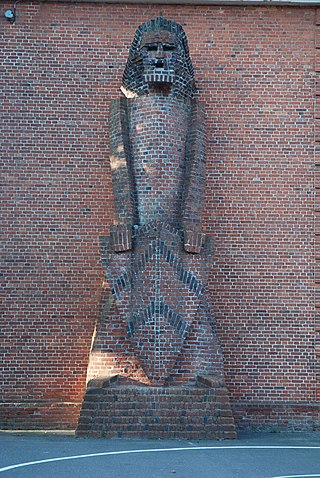 7
Wulf Isebrand kämpfte 1500 in der Schlacht bei Hemmingstedt, wo die Dithmarscher ein dänisch-holsteinisches Heer besiegten. Während der Schlacht übernahm er die Führung einer Abteilung und hatte...
7
Wulf Isebrand kämpfte 1500 in der Schlacht bei Hemmingstedt, wo die Dithmarscher ein dänisch-holsteinisches Heer besiegten. Während der Schlacht übernahm er die Führung einer Abteilung und hatte...
Karl Barth
 7
Karl Barth was a Swiss Reformed theologian. Barth is best known for his commentary The Epistle to the Romans, his involvement in the Confessing Church, including his authorship of the Barmen...
7
Karl Barth was a Swiss Reformed theologian. Barth is best known for his commentary The Epistle to the Romans, his involvement in the Confessing Church, including his authorship of the Barmen...
Anton Pilgram
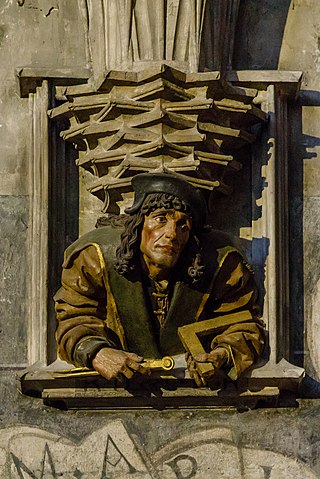 7
Anton Pilgram was a late medieval Moravian and subsequently Austrian architect and sculptor active in the area of today's Czech Republic (Moravia), Austria and western (Germany) Swabia. Pilgram is...
7
Anton Pilgram was a late medieval Moravian and subsequently Austrian architect and sculptor active in the area of today's Czech Republic (Moravia), Austria and western (Germany) Swabia. Pilgram is...
Hans Marchwitza
 7
Hans Marchwitza was a German writer, proletarian poet, and communist.
7
Hans Marchwitza was a German writer, proletarian poet, and communist.
William I, German Emperor
 7
William I, or Wilhelm I, was King of Prussia from 1861 and German Emperor from 1871 until his death in 1888. A member of the House of Hohenzollern, he was the first head of state of a united Germany....
7
William I, or Wilhelm I, was King of Prussia from 1861 and German Emperor from 1871 until his death in 1888. A member of the House of Hohenzollern, he was the first head of state of a united Germany....
Ludwig Bölkow
 7
Ludwig Bölkow was one of the aeronautical pioneers of Germany.
7
Ludwig Bölkow was one of the aeronautical pioneers of Germany.
Julian Marchlewski
 7
Julian Baltazar Józef Marchlewski was a Polish communist politician, revolutionary activist and publicist who served as chairman of the Provisional Polish Revolutionary Committee. He was also known...
7
Julian Baltazar Józef Marchlewski was a Polish communist politician, revolutionary activist and publicist who served as chairman of the Provisional Polish Revolutionary Committee. He was also known...
Baruch Spinoza
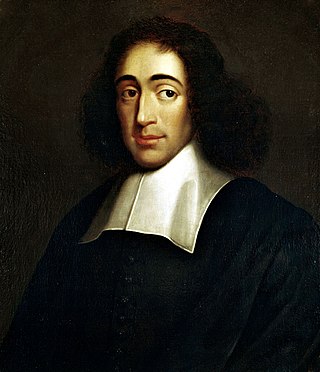 7
Baruch (de) Spinoza, also known under his Latinized pen name Benedictus de Spinoza, was a philosopher of Portuguese-Jewish origin. As a forerunner of the Age of Reason, Spinoza significantly...
7
Baruch (de) Spinoza, also known under his Latinized pen name Benedictus de Spinoza, was a philosopher of Portuguese-Jewish origin. As a forerunner of the Age of Reason, Spinoza significantly...
Archduke Karl Ludwig of Austria
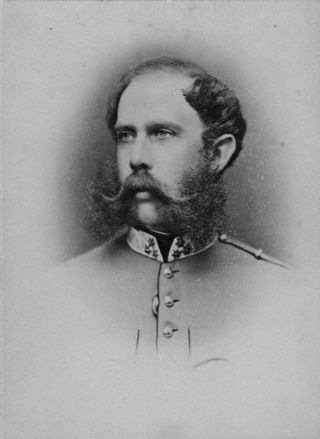 7
Archduke Karl Ludwig Josef Maria of Austria was the younger brother of both Franz Joseph I of Austria and Maximilian I of Mexico, and the father of Archduke Franz Ferdinand of Austria (1863–1914),...
7
Archduke Karl Ludwig Josef Maria of Austria was the younger brother of both Franz Joseph I of Austria and Maximilian I of Mexico, and the father of Archduke Franz Ferdinand of Austria (1863–1914),...
Fyodor Dostoevsky
 7
Fyodor Mikhailovich Dostoevsky, sometimes transliterated as Dostoyevsky, was a Russian novelist, short story writer, essayist and journalist. Numerous literary critics regard him as one of the...
7
Fyodor Mikhailovich Dostoevsky, sometimes transliterated as Dostoyevsky, was a Russian novelist, short story writer, essayist and journalist. Numerous literary critics regard him as one of the...
Ferdinand Magellan
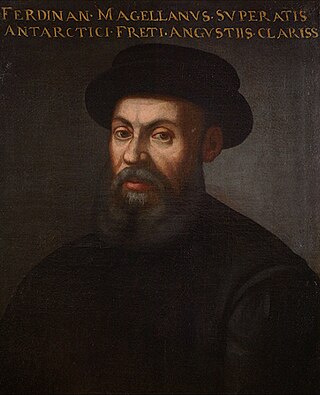 7
Ferdinand Magellan was a Portuguese explorer best known for having planned and led the 1519 Spanish expedition to the East Indies across the Pacific Ocean to open a maritime trade route, during which...
7
Ferdinand Magellan was a Portuguese explorer best known for having planned and led the 1519 Spanish expedition to the East Indies across the Pacific Ocean to open a maritime trade route, during which...
Egid Quirin Asam
 7
Egid Quirin Asam was a German plasterer, sculptor, architect, and painter. He was active during the Late Baroque and Rococo periods.
7
Egid Quirin Asam was a German plasterer, sculptor, architect, and painter. He was active during the Late Baroque and Rococo periods.
Karl-Hermann Flach
 7
Karl-Hermann Flach was a German journalist of the Frankfurter Rundschau and a politician of the liberal Free Democrats (FDP).
7
Karl-Hermann Flach was a German journalist of the Frankfurter Rundschau and a politician of the liberal Free Democrats (FDP).
Béla Bartók
 7
Béla Viktor János Bartók was a Hungarian composer, pianist and ethnomusicologist. He is considered one of the most important composers of the 20th century; he and Franz Liszt are regarded as...
7
Béla Viktor János Bartók was a Hungarian composer, pianist and ethnomusicologist. He is considered one of the most important composers of the 20th century; he and Franz Liszt are regarded as...
Ignaz Günther
 7
Ignaz Günther was a German sculptor and woodcarver working in the Bavarian Rococo tradition.
7
Ignaz Günther was a German sculptor and woodcarver working in the Bavarian Rococo tradition.
Hans-Dietrich Genscher
 7
Hans-Dietrich Genscher was a German statesman and a member of the liberal Free Democratic Party (FDP), who served as Federal Minister of the Interior from 1969 to 1974, and as Federal Minister for...
7
Hans-Dietrich Genscher was a German statesman and a member of the liberal Free Democratic Party (FDP), who served as Federal Minister of the Interior from 1969 to 1974, and as Federal Minister for...
William Shakespeare
 7
William Shakespeare was an English playwright, poet, and actor. He is widely regarded as the greatest writer in the English language and the world's pre-eminent dramatist. He is often called...
7
William Shakespeare was an English playwright, poet, and actor. He is widely regarded as the greatest writer in the English language and the world's pre-eminent dramatist. He is often called...
Alban Stolz
 7
Alban Isidor Stolz was a German Roman Catholic theologian and popular author.
7
Alban Isidor Stolz was a German Roman Catholic theologian and popular author.
Friedrich Ebert Jr.
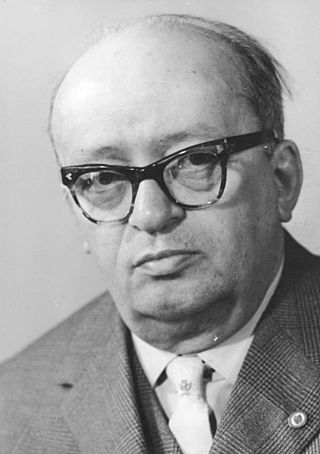 7
Friedrich "Fritz" Ebert Jr. was a German socialist and later Communist politician, the son of Germany's first president Friedrich Ebert.
7
Friedrich "Fritz" Ebert Jr. was a German socialist and later Communist politician, the son of Germany's first president Friedrich Ebert.
Albert Schmidt (monk)
 7
Albert Schmidt OSB is a German Benedictine monk and presiding abbot of the Beuronese Congregation, an association of eighteen mostly German or German-speaking Benedictine monasteries and convents,...
7
Albert Schmidt OSB is a German Benedictine monk and presiding abbot of the Beuronese Congregation, an association of eighteen mostly German or German-speaking Benedictine monasteries and convents,...
Heinrich Kämpchen
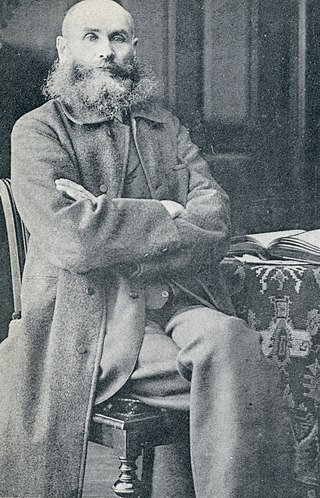 7
Heinrich Wilhelm Kämpchen war ein deutscher Bergmann und Arbeiterdichter.
7
Heinrich Wilhelm Kämpchen war ein deutscher Bergmann und Arbeiterdichter.
Joseph Wendel
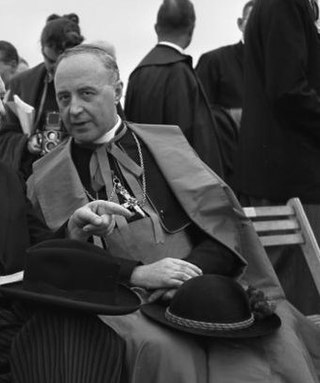 7
Joseph Wendel was a German Cardinal of the Roman Catholic Church who served as Archbishop of Munich and Freising from 1952 until his death, and was elevated to the cardinalate in 1953 by Pope Pius...
7
Joseph Wendel was a German Cardinal of the Roman Catholic Church who served as Archbishop of Munich and Freising from 1952 until his death, and was elevated to the cardinalate in 1953 by Pope Pius...
Wilhelm Hoegner
 7
Wilhelm Johann Harald Hoegner was the second Bavarian minister-president after World War II, and the father of the Bavarian constitution. He has been the only Social Democrat to hold this office...
7
Wilhelm Johann Harald Hoegner was the second Bavarian minister-president after World War II, and the father of the Bavarian constitution. He has been the only Social Democrat to hold this office...
Voltaire
 7
François-Marie Arouet, known by his nom de plume M. de Voltaire, was a French Enlightenment writer, philosopher (philosophe), satirist, and historian. Famous for his wit and his criticism of...
7
François-Marie Arouet, known by his nom de plume M. de Voltaire, was a French Enlightenment writer, philosopher (philosophe), satirist, and historian. Famous for his wit and his criticism of...
Petra Kelly
 7
Petra Karin Kelly was a German Green politician and ecofeminist activist. She was a founding member of the German Green Party, the first Green party to rise to prominence both nationally in Germany...
7
Petra Karin Kelly was a German Green politician and ecofeminist activist. She was a founding member of the German Green Party, the first Green party to rise to prominence both nationally in Germany...
Erna Scheffler
 7
Erna Scheffler, born Friedental and later Haßlacher was a German senior judge.
7
Erna Scheffler, born Friedental and later Haßlacher was a German senior judge.
Franz Joseph I of Austria
 7
Franz Joseph I or Francis Joseph I was Emperor of Austria, King of Hungary, and the ruler of the other states of the Habsburg monarchy from 2 December 1848 until his death in 1916. In the early part...
7
Franz Joseph I or Francis Joseph I was Emperor of Austria, King of Hungary, and the ruler of the other states of the Habsburg monarchy from 2 December 1848 until his death in 1916. In the early part...
Gerhard Marcks
 7
Gerhard Marcks was a German artist, known primarily as a sculptor, but who is also known for his drawings, woodcuts, lithographs and ceramics.
7
Gerhard Marcks was a German artist, known primarily as a sculptor, but who is also known for his drawings, woodcuts, lithographs and ceramics.
Adolf, Duke of Holstein-Gottorp
 7
Adolf of Denmark or Adolf of Holstein-Gottorp was the first Duke of Holstein-Gottorp from the line of Holstein-Gottorp of the House of Oldenburg.
7
Adolf of Denmark or Adolf of Holstein-Gottorp was the first Duke of Holstein-Gottorp from the line of Holstein-Gottorp of the House of Oldenburg.
Henry Ford
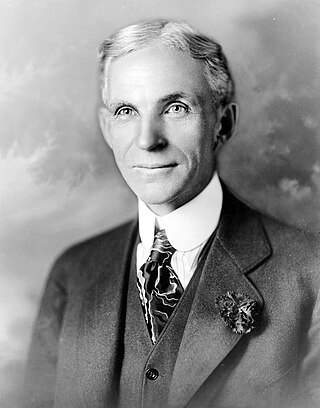 7
Henry Ford was an American industrialist and business magnate. As the founder of the Ford Motor Company he is credited as a pioneer in making automobiles affordable for middle-class Americans through...
7
Henry Ford was an American industrialist and business magnate. As the founder of the Ford Motor Company he is credited as a pioneer in making automobiles affordable for middle-class Americans through...
Otto Buchwitz
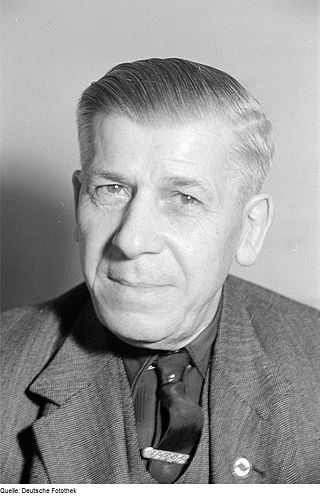 7
Otto Buchwitz war ein deutscher Politiker (SPD/SED).
7
Otto Buchwitz war ein deutscher Politiker (SPD/SED).
Friedrich Friesen
 7
Karl Friedrich Friesen was a German gymnast and soldier, one of the principal promoters of gymnastics in Germany.
7
Karl Friedrich Friesen was a German gymnast and soldier, one of the principal promoters of gymnastics in Germany.
René Schickele
 7
René Schickele was a German-French writer, essayist and translator.
7
René Schickele was a German-French writer, essayist and translator.
Fritz Husemann
 7
Friedrich Ernst Husemann was a German trade union leader and politician.
7
Friedrich Ernst Husemann was a German trade union leader and politician.
Otfried Preußler
 7
Otfried Preußler was a German children's books author. More than 50 million copies of his books have been sold worldwide and they have been translated into 55 languages. His best-known works are The...
7
Otfried Preußler was a German children's books author. More than 50 million copies of his books have been sold worldwide and they have been translated into 55 languages. His best-known works are The...
Paul Bonatz
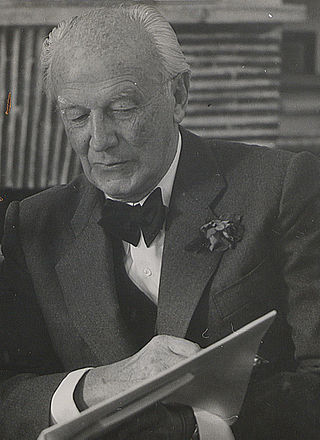 7
Paul Bonatz was a German architect, member of the Stuttgart School and professor at the technical university in that city during part of World War II, and from 1954 until his death. He worked in many...
7
Paul Bonatz was a German architect, member of the Stuttgart School and professor at the technical university in that city during part of World War II, and from 1954 until his death. He worked in many...
Vincent Pallotti
 7
Vincent Pallotti was an Italian cleric and a saint. Born in Rome, he was the founder of the Society of the Catholic Apostolate later to be known as the "Pious Society of Missions". The original name...
7
Vincent Pallotti was an Italian cleric and a saint. Born in Rome, he was the founder of the Society of the Catholic Apostolate later to be known as the "Pious Society of Missions". The original name...
Neil Armstrong
 7
Neil Alden Armstrong was an American astronaut and aeronautical engineer who in 1969 became the first person to walk on the Moon. He was also a naval aviator, test pilot, and university professor.
7
Neil Alden Armstrong was an American astronaut and aeronautical engineer who in 1969 became the first person to walk on the Moon. He was also a naval aviator, test pilot, and university professor.
Johann Albrecht Bengel
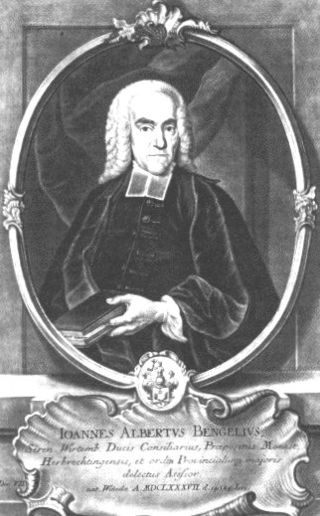 7
Johann Albrecht Bengel, also known as Bengelius, was a Lutheran pietist clergyman and Greek-language scholar known for his edition of the Greek New Testament and his commentaries on it.
7
Johann Albrecht Bengel, also known as Bengelius, was a Lutheran pietist clergyman and Greek-language scholar known for his edition of the Greek New Testament and his commentaries on it.
Édouard Theis
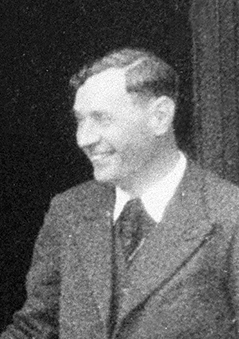 7
Édouard Theis est un pasteur protestant français, qui durant la Seconde Guerre mondiale fut actif dans la Résistance au Chambon-sur-Lignon, où il sauve de nombreux Juifs. Il reçoit en 1981 la...
7
Édouard Theis est un pasteur protestant français, qui durant la Seconde Guerre mondiale fut actif dans la Résistance au Chambon-sur-Lignon, où il sauve de nombreux Juifs. Il reçoit en 1981 la...
Christian Mali
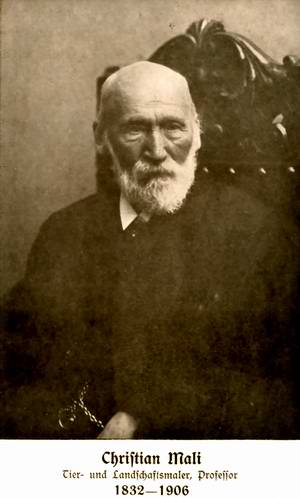 7
Christian Friedrich Mali was a German painter and art professor. His older brother, Johannes Cornelis Jacobus Mali (1828–1865) was also a painter.
7
Christian Friedrich Mali was a German painter and art professor. His older brother, Johannes Cornelis Jacobus Mali (1828–1865) was also a painter.
Heinrich Hoffmann (photographer)
 7
Heinrich Hoffmann was Adolf Hitler's official photographer, and a Nazi politician and publisher, who was a member of Hitler's intimate circle. Hoffmann's photographs were a significant part of...
7
Heinrich Hoffmann was Adolf Hitler's official photographer, and a Nazi politician and publisher, who was a member of Hitler's intimate circle. Hoffmann's photographs were a significant part of...
Ida Kerkovius
 7
Ida Kerkovius (1879–1970) was a Baltic German painter and weaver from Latvia.
7
Ida Kerkovius (1879–1970) was a Baltic German painter and weaver from Latvia.
Karl Herxheimer
 7
Karl Herxheimer was a German-Jewish dermatologist who was a native of Wiesbaden.
7
Karl Herxheimer was a German-Jewish dermatologist who was a native of Wiesbaden.
Theophil Wurm
 7
Theophil Heinrich Wurm was the son of a pastor and was a leader in the German Protestant Church in the early twentieth century.
7
Theophil Heinrich Wurm was the son of a pastor and was a leader in the German Protestant Church in the early twentieth century.
Willi Baumeister
 7
Willi Baumeister was a German painter, scenic designer, art professor, and typographer. His work was part of the art competitions at the 1928 Summer Olympics and the 1932 Summer Olympics.
7
Willi Baumeister was a German painter, scenic designer, art professor, and typographer. His work was part of the art competitions at the 1928 Summer Olympics and the 1932 Summer Olympics.
Carl Vinnen
 6
Carl Vinnen was a German landscape painter. He was also a writer, on various topics of local interest, under the pseudonym "Johann Heinrich Fischbeck".
6
Carl Vinnen was a German landscape painter. He was also a writer, on various topics of local interest, under the pseudonym "Johann Heinrich Fischbeck".
Simon Dach
 6
Simon Dach was a German lyrical poet and hymnwriter, born in Memel, Duchy of Prussia.
6
Simon Dach was a German lyrical poet and hymnwriter, born in Memel, Duchy of Prussia.
Andreas von Schubert
 6
Andreas Friedrich Hans von Schubert ist ein deutscher Maschinenbauingenieur und Wirtschaftswissenschaftler.
6
Andreas Friedrich Hans von Schubert ist ein deutscher Maschinenbauingenieur und Wirtschaftswissenschaftler.
Alfons Goppel
 6
Alfons Goppel was a German politician of the CSU party and Prime Minister of Bavaria (1962–1978).
6
Alfons Goppel was a German politician of the CSU party and Prime Minister of Bavaria (1962–1978).
Amalie Dietrich
 6
Koncordie Amalie Dietrich was a German naturalist who was best known for her work in Australia from 1863 to 1872, collecting specimens for the Museum Godeffroy in Hamburg.
6
Koncordie Amalie Dietrich was a German naturalist who was best known for her work in Australia from 1863 to 1872, collecting specimens for the Museum Godeffroy in Hamburg.
Nikola Tesla
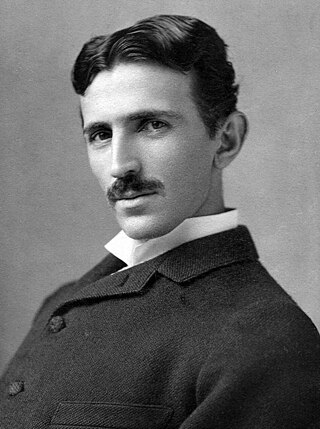 6
Nikola Tesla was a Serbian-American inventor, electrical engineer, mechanical engineer, and futurist. He is known for his contributions to the design of the modern alternating current (AC)...
6
Nikola Tesla was a Serbian-American inventor, electrical engineer, mechanical engineer, and futurist. He is known for his contributions to the design of the modern alternating current (AC)...
Theodor Fischer
 6
Theodor Fischer was a German architect and teacher.
6
Theodor Fischer was a German architect and teacher.
Edo Wiemken der Jüngere
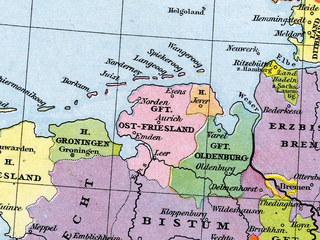 6
Edo Wiemken der Jüngere war ein Ostfriesischer Häuptling und der letzte männliche Regent der Herrschaft Jever aus dem Häuptlingsgeschlecht der Wiemkens. Er wurde rund 50 Jahre nach seinem Tod von...
6
Edo Wiemken der Jüngere war ein Ostfriesischer Häuptling und der letzte männliche Regent der Herrschaft Jever aus dem Häuptlingsgeschlecht der Wiemkens. Er wurde rund 50 Jahre nach seinem Tod von...
Gustav Meyer
 6
Gustav Meyer was a German linguist and Indo-European scholar, considered to be one of the most important Albanologists of his time, most importantly by proving that the Albanian language belongs to...
6
Gustav Meyer was a German linguist and Indo-European scholar, considered to be one of the most important Albanologists of his time, most importantly by proving that the Albanian language belongs to...
Martha Brautzsch
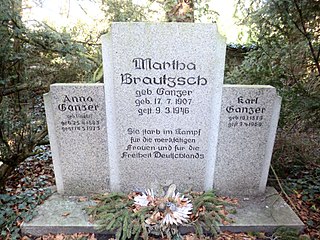 6
Martha Brautzsch, geborene Ganzer war eine Funktionärin der KPD in der sowjetischen Besatzungszone. Sie wurde von einem marodierenden sowjetischen Soldaten ermordet.
6
Martha Brautzsch, geborene Ganzer war eine Funktionärin der KPD in der sowjetischen Besatzungszone. Sie wurde von einem marodierenden sowjetischen Soldaten ermordet.
Max Reimann
 6
Max Reimann was a German communist politician and member of the Bundestag.
6
Max Reimann was a German communist politician and member of the Bundestag.
Korl Biegemann
 6
Korl Biegemann, eigentlich Karl Ulrich Volkhausen, war ein lippischer Arzt und Mundartdichter.
6
Korl Biegemann, eigentlich Karl Ulrich Volkhausen, war ein lippischer Arzt und Mundartdichter.
Franz Jakob Freystädtler
 6
Franz Jakob Freystädtler, auch Freystädter oder Freystadler war ein österreichischer Komponist und Klavierpädagoge. Er war ein Schüler Wolfgang Amadeus Mozarts.
6
Franz Jakob Freystädtler, auch Freystädter oder Freystadler war ein österreichischer Komponist und Klavierpädagoge. Er war ein Schüler Wolfgang Amadeus Mozarts.
Lilly Reich
 6
Lilly Reich was a German designer of textiles, furniture, interiors, and exhibition spaces. She was a close collaborator with Ludwig Mies van der Rohe for more than ten years during the Weimar period...
6
Lilly Reich was a German designer of textiles, furniture, interiors, and exhibition spaces. She was a close collaborator with Ludwig Mies van der Rohe for more than ten years during the Weimar period...
Ferdinand Dirichs
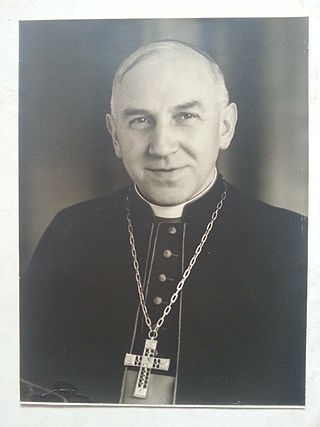 6
Ferdinand Dirichs was a German Roman Catholic bishop.
6
Ferdinand Dirichs was a German Roman Catholic bishop.
Saint Cecilia
 6
Saint Cecilia, also spelled Cecelia, was a Roman virgin martyr and is venerated in Catholic, Orthodox, Anglican, and some Lutheran churches, such as the Church of Sweden. She became the patroness of...
6
Saint Cecilia, also spelled Cecelia, was a Roman virgin martyr and is venerated in Catholic, Orthodox, Anglican, and some Lutheran churches, such as the Church of Sweden. She became the patroness of...
Arnold Zweig
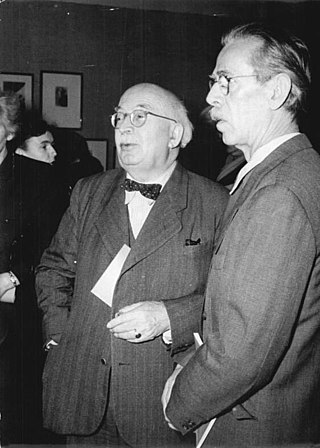 6
Arnold Zweig was a German Jewish writer, pacifist and socialist.
He is best known for his six-part cycle on World War I.
6
Arnold Zweig was a German Jewish writer, pacifist and socialist.
He is best known for his six-part cycle on World War I.
Max Reichpietsch
 6
Max Reichpietsch was a German sailor executed in 1917 for socialist agitation in the Imperial German Navy.
6
Max Reichpietsch was a German sailor executed in 1917 for socialist agitation in the Imperial German Navy.
Jann Berghaus
 6
Jann Janssen Berghaus war ein liberaler ostfriesischer Politiker. Er war von 1922 bis 1932 Regierungspräsident des preußischen Regierungsbezirks Aurich und nach dem Zweiten Weltkrieg Präsident der...
6
Jann Janssen Berghaus war ein liberaler ostfriesischer Politiker. Er war von 1922 bis 1932 Regierungspräsident des preußischen Regierungsbezirks Aurich und nach dem Zweiten Weltkrieg Präsident der...
Karl Kaufmann
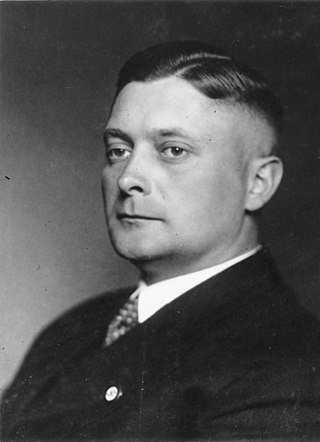 6
Karl Kaufmann was a German politician who served as a Nazi Party Gauleiter from 1925 to 1945 and as the Reichsstatthalter of Hamburg from 1933 to 1945.
6
Karl Kaufmann was a German politician who served as a Nazi Party Gauleiter from 1925 to 1945 and as the Reichsstatthalter of Hamburg from 1933 to 1945.
Konrad Beste
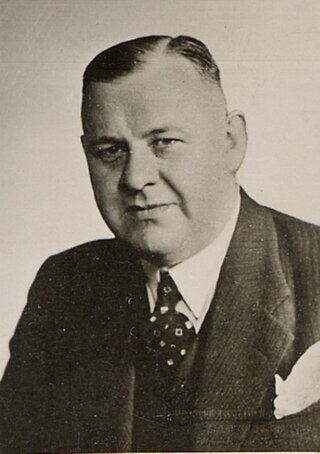 6
Konrad Beste war ein deutscher Schriftsteller, der neben Lyrik, Erzählungen und Hörspielen vor allem Romane schrieb.
6
Konrad Beste war ein deutscher Schriftsteller, der neben Lyrik, Erzählungen und Hörspielen vor allem Romane schrieb.
Albert Funk (Politiker)
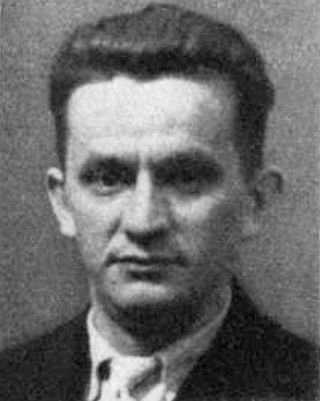 6
Albert Albin Funk war ein deutscher Politiker und Widerstandskämpfer.
6
Albert Albin Funk war ein deutscher Politiker und Widerstandskämpfer.
Anna Siemsen
 6
Anna Marie Siemsen war eine deutsche Pädagogin, Politikerin, Autorin und Pazifistin. Sie war von 1928 bis 1930 Mitglied des Reichstages.
6
Anna Marie Siemsen war eine deutsche Pädagogin, Politikerin, Autorin und Pazifistin. Sie war von 1928 bis 1930 Mitglied des Reichstages.
Friedrich Fischer
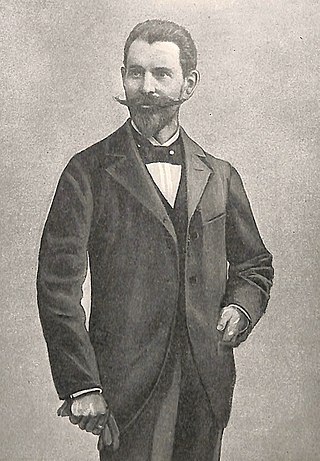 6
Friedrich Fischer from Schweinfurt, Germany is considered the father of the modern ball bearing, having invented the process for milling standard bearings in 1883.
6
Friedrich Fischer from Schweinfurt, Germany is considered the father of the modern ball bearing, having invented the process for milling standard bearings in 1883.
Ulrich von Hassell
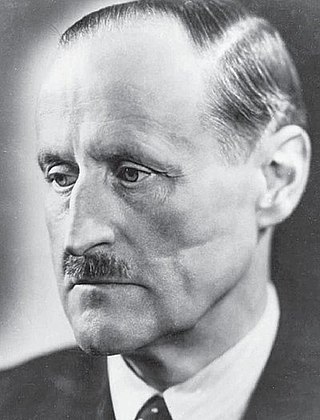 6
Christian August Ulrich von Hassell was a German diplomat during World War II. A member of the German Resistance against German dictator Adolf Hitler, Hassell unsuccessfully proposed to the British...
6
Christian August Ulrich von Hassell was a German diplomat during World War II. A member of the German Resistance against German dictator Adolf Hitler, Hassell unsuccessfully proposed to the British...
Armin Knab
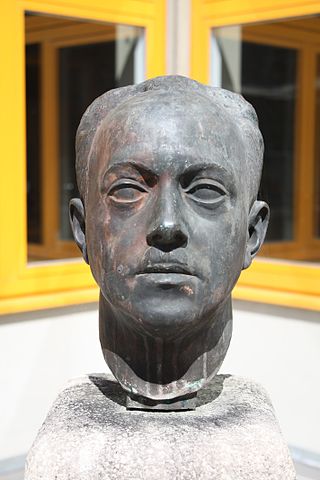 6
Armin Knab was a German composer and musical writer.
6
Armin Knab was a German composer and musical writer.
Josef Gockeln
 6
Josef Gockeln was a German politician of the Christian Democratic Union (CDU) and former member of the German Bundestag.
6
Josef Gockeln was a German politician of the Christian Democratic Union (CDU) and former member of the German Bundestag.
Gustave Whitehead
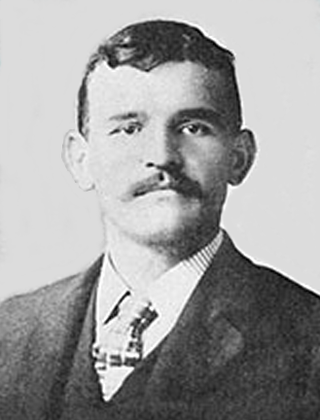 6
Gustave Albin Whitehead was an aviation pioneer who emigrated from Germany to the United States where he designed and built gliders, flying machines, and engines between 1897 and 1915. Controversy...
6
Gustave Albin Whitehead was an aviation pioneer who emigrated from Germany to the United States where he designed and built gliders, flying machines, and engines between 1897 and 1915. Controversy...
Karl Jatho
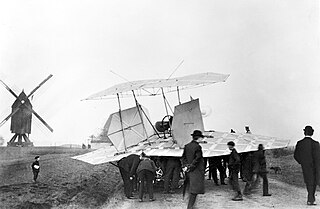 6
Karl Jatho was a German inventor and aviation pioneer, performer and public servant of the city of Hanover.
6
Karl Jatho was a German inventor and aviation pioneer, performer and public servant of the city of Hanover.
Anni Albers
 6
Anni Albers was a German textile artist and printmaker credited with blurring the lines between traditional craft and art.Besides surface qualities, such as rough and smooth, dull and shiny, hard and...
6
Anni Albers was a German textile artist and printmaker credited with blurring the lines between traditional craft and art.Besides surface qualities, such as rough and smooth, dull and shiny, hard and...
Magnus of Füssen
 6
Magnus of Füssen, otherwise Magnoald or Mang, was a missionary saint in southern Germany, also known as the Apostle of the Allgäu. He is believed to have been a contemporary either of Gall or of...
6
Magnus of Füssen, otherwise Magnoald or Mang, was a missionary saint in southern Germany, also known as the Apostle of the Allgäu. He is believed to have been a contemporary either of Gall or of...
Karl Ernst
 6
Karl Ernst was an SA-Gruppenführer who, from March 1933, was the SA Commander in Berlin. Prior to joining the Nazi Party, he had been a hotel bellhop and a bouncer at gay nightclubs. He was one of...
6
Karl Ernst was an SA-Gruppenführer who, from March 1933, was the SA Commander in Berlin. Prior to joining the Nazi Party, he had been a hotel bellhop and a bouncer at gay nightclubs. He was one of...
Karl Böhm
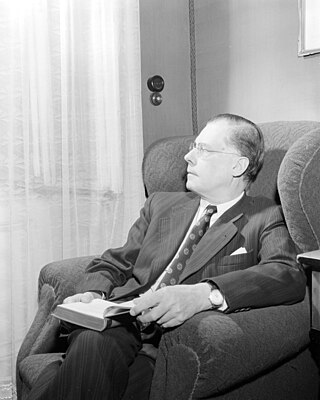 6
Karl August Leopold Böhm was an Austrian conductor. He was best known for his performances of the music of Mozart, Wagner, and Richard Strauss.
6
Karl August Leopold Böhm was an Austrian conductor. He was best known for his performances of the music of Mozart, Wagner, and Richard Strauss.
Ludwig Pfau
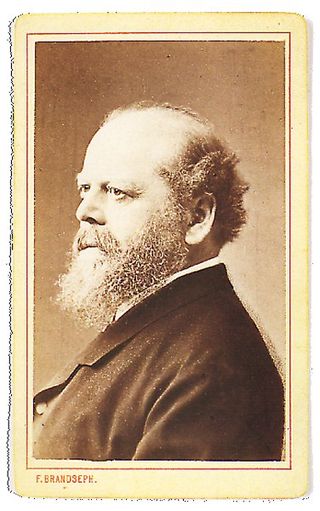 6
Karl Ludwig Pfau was a German poet, journalist, and revolutionary. He was born in Heilbronn and died, aged 72, in Stuttgart.
6
Karl Ludwig Pfau was a German poet, journalist, and revolutionary. He was born in Heilbronn and died, aged 72, in Stuttgart.
Henri Arnaud (pastor)
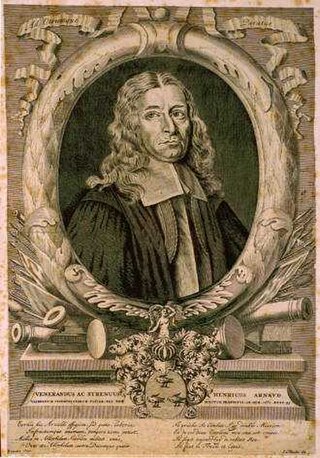 6
Henri Arnaud was a pastor of the Waldensians in Piedmont, who turned soldier in order to protect his co-religionists from persecution at the hands of Victor Amadeus II the Duke of Savoy. When the...
6
Henri Arnaud was a pastor of the Waldensians in Piedmont, who turned soldier in order to protect his co-religionists from persecution at the hands of Victor Amadeus II the Duke of Savoy. When the...
Anna of Oldenburg
 6
Anna of Oldenburg was a Countess consort of East Frisia as the spouse of Count Enno II of East Frisia. She was the Regent of East Frisia in 1542–1561 as the guardian for her minor sons, Johan II and...
6
Anna of Oldenburg was a Countess consort of East Frisia as the spouse of Count Enno II of East Frisia. She was the Regent of East Frisia in 1542–1561 as the guardian for her minor sons, Johan II and...
Gottfried Schenker
 6
Gottfried Schenker was the founder of Schenker AG.
6
Gottfried Schenker was the founder of Schenker AG.
Friedrich Wilhelm Prinz von Hohenzollern
 6
Friedrich Wilhelm Ferdinand Joseph Maria Manuel Georg Meinrad Fidelis Benedikt Michael Hubert Fürst von Hohenzollern was the head of the House of Hohenzollern for over 45 years.
6
Friedrich Wilhelm Ferdinand Joseph Maria Manuel Georg Meinrad Fidelis Benedikt Michael Hubert Fürst von Hohenzollern was the head of the House of Hohenzollern for over 45 years.
Franz Sigel
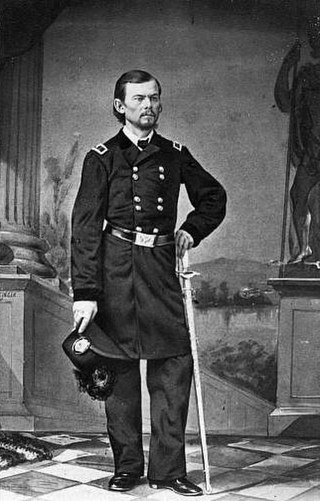 6
Franz Sigel was a German American military officer, revolutionary and immigrant to the United States who was a teacher, newspaperman, politician, and served as a Union major general in the American...
6
Franz Sigel was a German American military officer, revolutionary and immigrant to the United States who was a teacher, newspaperman, politician, and served as a Union major general in the American...
Saint Eligius
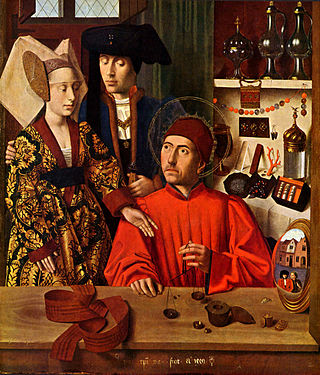 6
Eligius, venerated as Saint Eligius, was a Frankish goldsmith, courtier, and bishop who was chief counsellor to Dagobert I and later Bishop of Noyon–Tournai. His deeds were recorded in Vita Sancti...
6
Eligius, venerated as Saint Eligius, was a Frankish goldsmith, courtier, and bishop who was chief counsellor to Dagobert I and later Bishop of Noyon–Tournai. His deeds were recorded in Vita Sancti...
Peter Strasser
 6
Peter Strasser was chief commander of German Imperial Navy Zeppelins during World War I, the main force operating bombing campaigns from 1915 to 1917. He was killed when flying the German Empire's...
6
Peter Strasser was chief commander of German Imperial Navy Zeppelins during World War I, the main force operating bombing campaigns from 1915 to 1917. He was killed when flying the German Empire's...
Jean-Jacques Rousseau
 6
Jean-Jacques Rousseau was a Genevan philosopher (philosophe), writer, and composer. His political philosophy influenced the progress of the Age of Enlightenment throughout Europe, as well as aspects...
6
Jean-Jacques Rousseau was a Genevan philosopher (philosophe), writer, and composer. His political philosophy influenced the progress of the Age of Enlightenment throughout Europe, as well as aspects...
Johannes Dürrner
 6
Johannes Dürrner, eigentlich Johann Rupprecht Dürrner, war ein deutscher Komponist und Musikdirektor.
6
Johannes Dürrner, eigentlich Johann Rupprecht Dürrner, war ein deutscher Komponist und Musikdirektor.
Agathius
 6
Saint Acacius, also known as Agathius of Byzantium, Achatius, or Agathonas to Christian tradition, was a Cappadocian Greek centurion of the imperial army, martyred around 304. A church existed in...
6
Saint Acacius, also known as Agathius of Byzantium, Achatius, or Agathonas to Christian tradition, was a Cappadocian Greek centurion of the imperial army, martyred around 304. A church existed in...
Pliny the Elder
 6
Gaius Plinius Secundus, called Pliny the Elder, was a Roman author, naturalist, natural philosopher, naval and army commander of the early Roman Empire, and a friend of the emperor Vespasian. He...
6
Gaius Plinius Secundus, called Pliny the Elder, was a Roman author, naturalist, natural philosopher, naval and army commander of the early Roman Empire, and a friend of the emperor Vespasian. He...
Käthe Niederkirchner
 6
Käthe Niederkirchner was a German Communist resistance activist who was fatally shot by Nazi paramilitaries on the night of 27/28 September 1944 at Ravensbrück concentration camp.
6
Käthe Niederkirchner was a German Communist resistance activist who was fatally shot by Nazi paramilitaries on the night of 27/28 September 1944 at Ravensbrück concentration camp.
Friedrich Spee
 6
Friedrich Spee was a German Jesuit priest, professor, and poet, most well known as a forceful opponent of witch trials and one who was an insider writing from the epicenter of the European...
6
Friedrich Spee was a German Jesuit priest, professor, and poet, most well known as a forceful opponent of witch trials and one who was an insider writing from the epicenter of the European...
Wilhelmine Siefkes
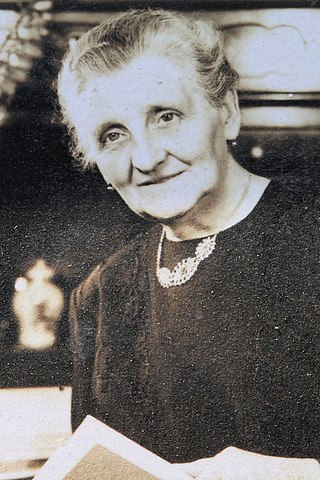 6
Wilhelmine Siefkes, Pseudonym Wilmke Anners, war eine deutsche Schriftstellerin vornehmlich niederdeutscher Sprache und galt als christliche soziale Demokratin aus Ostfriesland. Sie war zudem...
6
Wilhelmine Siefkes, Pseudonym Wilmke Anners, war eine deutsche Schriftstellerin vornehmlich niederdeutscher Sprache und galt als christliche soziale Demokratin aus Ostfriesland. Sie war zudem...
Rudolf Clausius
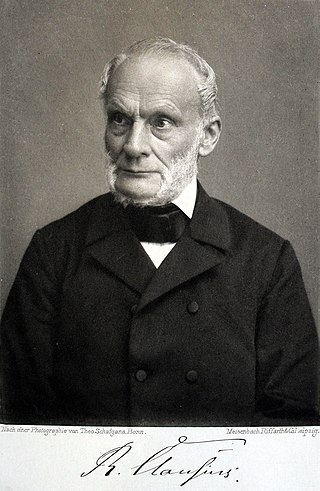 6
Rudolf Julius Emanuel Clausius was a German physicist and mathematician and is considered one of the central founding fathers of the science of thermodynamics. By his restatement of Sadi Carnot's...
6
Rudolf Julius Emanuel Clausius was a German physicist and mathematician and is considered one of the central founding fathers of the science of thermodynamics. By his restatement of Sadi Carnot's...
Margarete von Wrangell
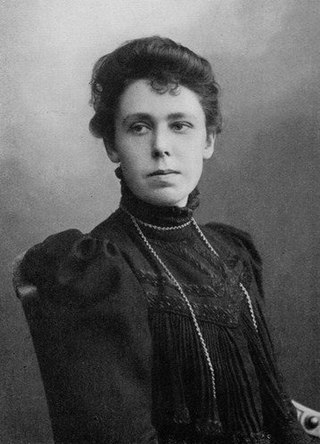 6
Margarethe Mathilde von Wrangell, after 1928 Princess Andronikow, née Baroness von Wrangell was a Baltic German agricultural chemist and the first female full professor at a German university.
6
Margarethe Mathilde von Wrangell, after 1928 Princess Andronikow, née Baroness von Wrangell was a Baltic German agricultural chemist and the first female full professor at a German university.
Paul von Lettow-Vorbeck
 6
Paul Emil von Lettow-Vorbeck, popularly known as the Lion of Africa, was a general in the Imperial German Army and the commander of its forces in the German East Africa campaign. For four years, with...
6
Paul Emil von Lettow-Vorbeck, popularly known as the Lion of Africa, was a general in the Imperial German Army and the commander of its forces in the German East Africa campaign. For four years, with...
Lina Sommer
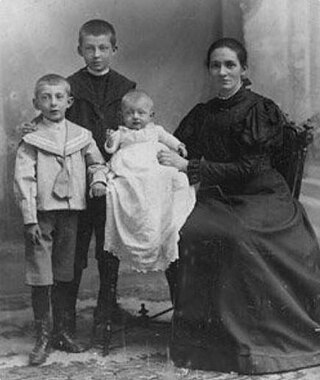 6
Karolina „Lina“ Sommer war eine pfälzische Kinderbuchautorin und Mundartdichterin. Zu ihren Lebzeiten war sie eine bekannte Autorin in ganz Deutschland und im deutschsprachigen Ausland.
6
Karolina „Lina“ Sommer war eine pfälzische Kinderbuchautorin und Mundartdichterin. Zu ihren Lebzeiten war sie eine bekannte Autorin in ganz Deutschland und im deutschsprachigen Ausland.
Freda Wuesthoff
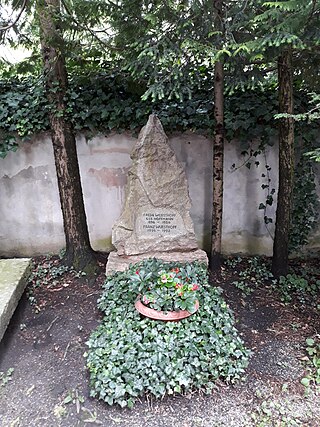 6
Freda Wuesthoff war eine deutsche Patentanwältin und Pazifistin. Sie war eine der Mitbegründerinnen der organisierten Friedensbewegung in Deutschland.
6
Freda Wuesthoff war eine deutsche Patentanwältin und Pazifistin. Sie war eine der Mitbegründerinnen der organisierten Friedensbewegung in Deutschland.
Alcide De Gasperi
 6
Alcide Amedeo Francesco De Gasperi was an Italian politician who founded the Christian Democracy party and served as prime minister of Italy in eight successive coalition governments from 1945 to...
6
Alcide Amedeo Francesco De Gasperi was an Italian politician who founded the Christian Democracy party and served as prime minister of Italy in eight successive coalition governments from 1945 to...
Mark the Evangelist
 6
Mark the Evangelist also known as John Mark or Saint Mark, is the person who is traditionally ascribed to be the author of the Gospel of Mark. Modern Bible scholars have concluded that the Gospel of...
6
Mark the Evangelist also known as John Mark or Saint Mark, is the person who is traditionally ascribed to be the author of the Gospel of Mark. Modern Bible scholars have concluded that the Gospel of...
Paul Fleming (poet)
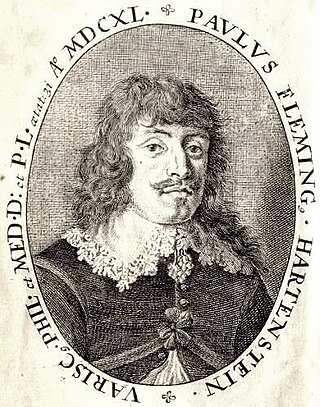 6
Paul Fleming was a German physician and poet.
6
Paul Fleming was a German physician and poet.
Agnes Pockels
 6
Agnes Luise Wilhelmine Pockels was a German chemist whose research was fundamental in establishing the modern discipline known as surface science, which describes the properties of liquid and solid...
6
Agnes Luise Wilhelmine Pockels was a German chemist whose research was fundamental in establishing the modern discipline known as surface science, which describes the properties of liquid and solid...
Lord Kelvin
 6
William Thomson, 1st Baron Kelvin, was a British mathematician, mathematical physicist and engineer born in Belfast. He was the professor of Natural Philosophy at the University of Glasgow for 53...
6
William Thomson, 1st Baron Kelvin, was a British mathematician, mathematical physicist and engineer born in Belfast. He was the professor of Natural Philosophy at the University of Glasgow for 53...
August Brust
 6
August Brust war Gründer und Vorsitzender des christlichen Bergarbeiterverbandes.
6
August Brust war Gründer und Vorsitzender des christlichen Bergarbeiterverbandes.
Karl Drais
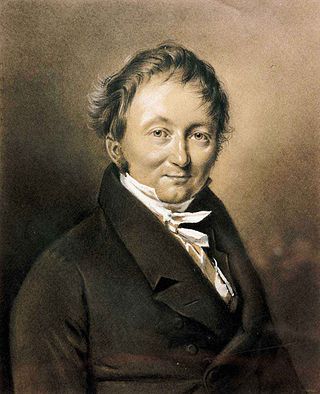 6
Karl Freiherr von Drais was a noble German forest official and significant inventor in the Biedermeier period. He was born and died in Karlsruhe. He is seen as "the father of the bicycle".
6
Karl Freiherr von Drais was a noble German forest official and significant inventor in the Biedermeier period. He was born and died in Karlsruhe. He is seen as "the father of the bicycle".
Archimedes
 6
Archimedes of Syracuse was an Ancient Greek mathematician, physicist, engineer, astronomer, and inventor from the ancient city of Syracuse in Sicily. Although few details of his life are known, he is...
6
Archimedes of Syracuse was an Ancient Greek mathematician, physicist, engineer, astronomer, and inventor from the ancient city of Syracuse in Sicily. Although few details of his life are known, he is...
Annemarie Renger
 6
Annemarie Renger was a German politician for the Social Democratic Party of Germany (SPD).
6
Annemarie Renger was a German politician for the Social Democratic Party of Germany (SPD).
Otto Schmidt
 6
Otto Yulyevich Shmidt, better known as Otto Schmidt, was a Soviet scientist, mathematician, astronomer, geophysicist, statesman, and academician.
6
Otto Yulyevich Shmidt, better known as Otto Schmidt, was a Soviet scientist, mathematician, astronomer, geophysicist, statesman, and academician.
Charles Martel
 6
Charles Martel, Martel being a sobriquet in Old French for "The Hammer", was a Frankish political and military leader who, as Duke and Prince of the Franks and Mayor of the Palace, was the de facto...
6
Charles Martel, Martel being a sobriquet in Old French for "The Hammer", was a Frankish political and military leader who, as Duke and Prince of the Franks and Mayor of the Palace, was the de facto...
Franz Joseph Emil Fischer
 6
Franz Joseph Emil Fischer was a German chemist. He was the founder and first director of the Kaiser Wilhelm Institute for Coal Research. He is known for the discovery of the Fischer–Tropsch process.
6
Franz Joseph Emil Fischer was a German chemist. He was the founder and first director of the Kaiser Wilhelm Institute for Coal Research. He is known for the discovery of the Fischer–Tropsch process.
Franz Beer
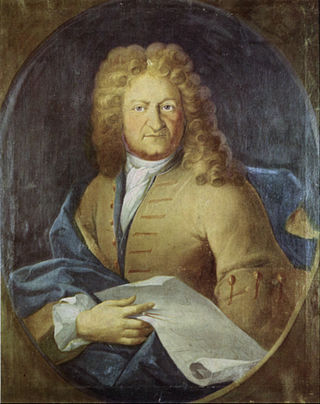 6
Franz Beer, also known as Franz Beer von Blaichten, was an Austrian architect during the Baroque period, mainly working on church buildings at monasteries in southern Germany, chiefly in Upper...
6
Franz Beer, also known as Franz Beer von Blaichten, was an Austrian architect during the Baroque period, mainly working on church buildings at monasteries in southern Germany, chiefly in Upper...
Maria von Linden
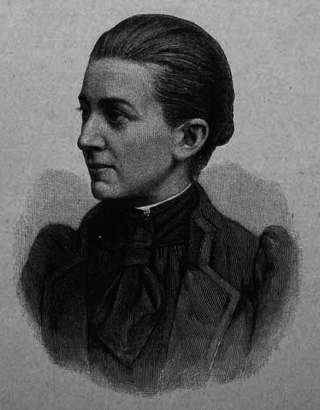 6
Maria von Linden was a German bacteriologist and zoologist.
6
Maria von Linden was a German bacteriologist and zoologist.
Fritz Schupp
 6
Fritz Schupp was a German architect.
He was educated from 1914 to 1917 at the Universities of Karlsruhe, München and Stuttgart. Despite mostly working alone, he formed a partnership based in Essen...
6
Fritz Schupp was a German architect.
He was educated from 1914 to 1917 at the Universities of Karlsruhe, München and Stuttgart. Despite mostly working alone, he formed a partnership based in Essen...
Leo Fall
 6
Leopold Fall was an Austrian Kapellmeister and composer of operettas.
6
Leopold Fall was an Austrian Kapellmeister and composer of operettas.
Matthäus Günther
 6
Matthäus Günther was an important German painter and artist of the Baroque and Rococo era.
6
Matthäus Günther was an important German painter and artist of the Baroque and Rococo era.
Wilhelm Ludwig
 5
Wilhelm Ludwig was a German zoologist and geneticist.
5
Wilhelm Ludwig was a German zoologist and geneticist.
Heinrich Plett
 5
Heinrich Plett war ein deutscher Manager und Vorstandsvorsitzender des Wohnungsunternehmens Neue Heimat.
5
Heinrich Plett war ein deutscher Manager und Vorstandsvorsitzender des Wohnungsunternehmens Neue Heimat.
Princess Victoria Louise of Prussia
 5
Princess Victoria Louise of Prussia was the only daughter and the last child of Wilhelm II, German Emperor, and Augusta Victoria of Schleswig-Holstein. Through her father, Victoria Louise was a...
5
Princess Victoria Louise of Prussia was the only daughter and the last child of Wilhelm II, German Emperor, and Augusta Victoria of Schleswig-Holstein. Through her father, Victoria Louise was a...
Friedrich Franz
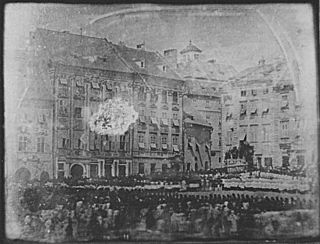 5
Friedrich Franz was a German Bohemian physicist. He was a professor of physics and applied mathematics at the Faculty of Philosophy of University of Olomouc, where he greatly influenced his student...
5
Friedrich Franz was a German Bohemian physicist. He was a professor of physics and applied mathematics at the Faculty of Philosophy of University of Olomouc, where he greatly influenced his student...
Max Müller
 5
Friedrich Max Müller was a British philologist and Orientalist of German origin. He was one of the founders of the Western academic disciplines of Indian studies and religious studies. Müller wrote...
5
Friedrich Max Müller was a British philologist and Orientalist of German origin. He was one of the founders of the Western academic disciplines of Indian studies and religious studies. Müller wrote...
Wilhelm Schussen
 5
Wilhelm Schussen, eigentlich Wilhelm Frick, war ein deutscher Schriftsteller.
5
Wilhelm Schussen, eigentlich Wilhelm Frick, war ein deutscher Schriftsteller.
Fritz Walter
Melitta Bentz
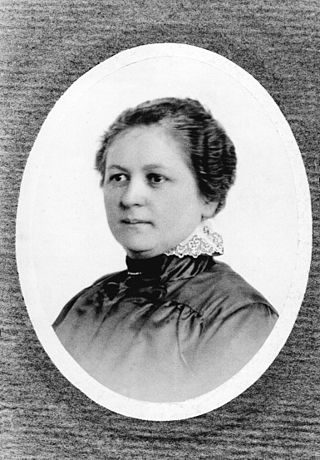 5
Amalie Auguste Melitta Bentz, born Amalie Auguste Melitta Liebscher, was a German entrepreneur who invented the paper coffee filter in 1908. She founded the company Melitta, which still operates...
5
Amalie Auguste Melitta Bentz, born Amalie Auguste Melitta Liebscher, was a German entrepreneur who invented the paper coffee filter in 1908. She founded the company Melitta, which still operates...
Maria Grollmuß
 5
Maria Karoline Elisabeth Grollmuß was a Catholic Sorbian publicist and a socialist resistance member against the Nazi government.
5
Maria Karoline Elisabeth Grollmuß was a Catholic Sorbian publicist and a socialist resistance member against the Nazi government.
Giovanni Gabrieli
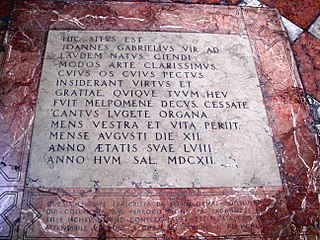 5
Giovanni Gabrieli was an Italian composer and organist. He was one of the most influential musicians of his time, and represents the culmination of the style of the Venetian School, at the time of...
5
Giovanni Gabrieli was an Italian composer and organist. He was one of the most influential musicians of his time, and represents the culmination of the style of the Venetian School, at the time of...
Peter Henrici (mathematician)
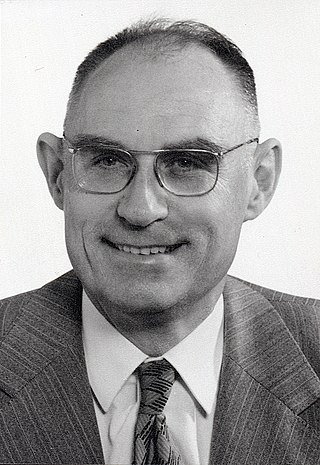 5
Peter Karl Henrici was a Swiss mathematician best known for his contributions to the field of numerical analysis.
5
Peter Karl Henrici was a Swiss mathematician best known for his contributions to the field of numerical analysis.
Helmut Kohl
 5
Helmut Josef Michael Kohl was a German politician who served as Chancellor of Germany from 1982 to 1998 and Leader of the Christian Democratic Union (CDU) from 1973 to 1998. Kohl's 16-year tenure is...
5
Helmut Josef Michael Kohl was a German politician who served as Chancellor of Germany from 1982 to 1998 and Leader of the Christian Democratic Union (CDU) from 1973 to 1998. Kohl's 16-year tenure is...
Paolo Ruffini
 5
Paolo Ruffini was an Italian mathematician and philosopher.
5
Paolo Ruffini was an Italian mathematician and philosopher.
Thomasius
 5
Thomasius is a surname, and may refer to:Jakob Thomasius (1622–1684), German philosopher
Christian Thomasius (1655–1728), German jurist and philosopher
Gottfried Thomasius (1802–1875), German...
5
Thomasius is a surname, and may refer to:Jakob Thomasius (1622–1684), German philosopher
Christian Thomasius (1655–1728), German jurist and philosopher
Gottfried Thomasius (1802–1875), German...
Charles Alexander, Grand Duke of Saxe-Weimar-Eisenach
 5
Charles Alexander was the ruler of Saxe-Weimar-Eisenach as its grand duke from 1853 until his death.
5
Charles Alexander was the ruler of Saxe-Weimar-Eisenach as its grand duke from 1853 until his death.
Rudolf Renner
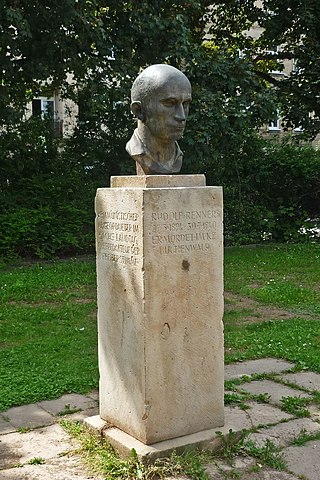 5
Rudolf Renner war ein deutscher Politiker (KPD).
5
Rudolf Renner war ein deutscher Politiker (KPD).
Agnes Bernauer
 5
Agnes Bernauer was the mistress and perhaps also the first wife of Albert, later Albert III, Duke of Bavaria. Because his father, Ernest, ruling Duke of Bavaria at the time, considered this liaison...
5
Agnes Bernauer was the mistress and perhaps also the first wife of Albert, later Albert III, Duke of Bavaria. Because his father, Ernest, ruling Duke of Bavaria at the time, considered this liaison...
Ida Ehre
 5
Ida Ehre was an Austrian-German actor, theatre director, and manager.
5
Ida Ehre was an Austrian-German actor, theatre director, and manager.
Hans Grundig
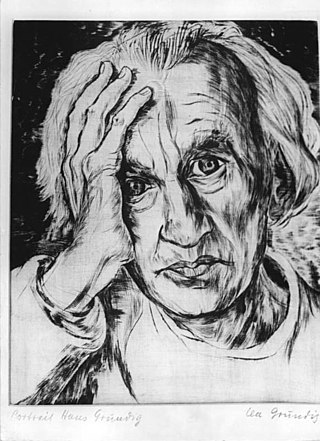 5
Hans Grundig was a German painter and graphic artist associated with the New Objectivity movement.
5
Hans Grundig was a German painter and graphic artist associated with the New Objectivity movement.
Karl Ziegler
 5
Karl Waldemar Ziegler was a German chemist who won the Nobel Prize in Chemistry in 1963, with Giulio Natta, for work on polymers. The Nobel Committee recognized his "excellent work on organometallic...
5
Karl Waldemar Ziegler was a German chemist who won the Nobel Prize in Chemistry in 1963, with Giulio Natta, for work on polymers. The Nobel Committee recognized his "excellent work on organometallic...
Frederick II, Landgrave of Hesse-Kassel
 5
Frederick II was Landgrave of Hesse-Kassel from 1760 to 1785. He ruled as an enlightened despot, and raised money by renting soldiers to Great Britain to help fight the American Revolutionary War. He...
5
Frederick II was Landgrave of Hesse-Kassel from 1760 to 1785. He ruled as an enlightened despot, and raised money by renting soldiers to Great Britain to help fight the American Revolutionary War. He...
Homer
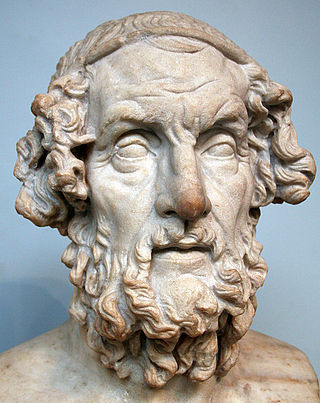 5
Homer was a Greek poet who is credited as the author of the Iliad and the Odyssey, two epic poems that are foundational works of ancient Greek literature. Homer is considered one of the most revered...
5
Homer was a Greek poet who is credited as the author of the Iliad and the Odyssey, two epic poems that are foundational works of ancient Greek literature. Homer is considered one of the most revered...
Émile Zola
 5
Émile Édouard Charles Antoine Zola was a French novelist, journalist, playwright, the best-known practitioner of the literary school of naturalism, and an important contributor to the development of...
5
Émile Édouard Charles Antoine Zola was a French novelist, journalist, playwright, the best-known practitioner of the literary school of naturalism, and an important contributor to the development of...
Hermann Lange
 5
Hermann Lange was a Roman Catholic priest and martyr of the Nazi period in Germany. He was guillotined in a Hamburg prison by the Nazi authorities in November 1943, along with the three other Lübeck...
5
Hermann Lange was a Roman Catholic priest and martyr of the Nazi period in Germany. He was guillotined in a Hamburg prison by the Nazi authorities in November 1943, along with the three other Lübeck...
Simón Bolívar
 5
Simón José Antonio de la Santísima Trinidad Bolívar Palacios Ponte y Blanco was a Venezuelan military and political leader who led what are currently the countries of Colombia, Venezuela, Ecuador,...
5
Simón José Antonio de la Santísima Trinidad Bolívar Palacios Ponte y Blanco was a Venezuelan military and political leader who led what are currently the countries of Colombia, Venezuela, Ecuador,...
Fritz Winter
 5
Fritz Winter was a German painter of the postwar period best known for his abstract works in the Art Informel style.
5
Fritz Winter was a German painter of the postwar period best known for his abstract works in the Art Informel style.
Nicholas of Flüe
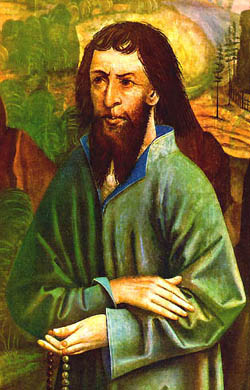 5
Nicholas of Flüe was a Swiss hermit and ascetic who is the patron saint of Switzerland. He is sometimes invoked as Brother Klaus. A farmer, military leader, member of the assembly, councillor, judge...
5
Nicholas of Flüe was a Swiss hermit and ascetic who is the patron saint of Switzerland. He is sometimes invoked as Brother Klaus. A farmer, military leader, member of the assembly, councillor, judge...
James Cook
 5
Captain James Cook was a British explorer, cartographer and naval officer famous for his three voyages between 1768 and 1779 in the Pacific Ocean and to New Zealand and Australia in particular. He...
5
Captain James Cook was a British explorer, cartographer and naval officer famous for his three voyages between 1768 and 1779 in the Pacific Ocean and to New Zealand and Australia in particular. He...
Vincent de Paul
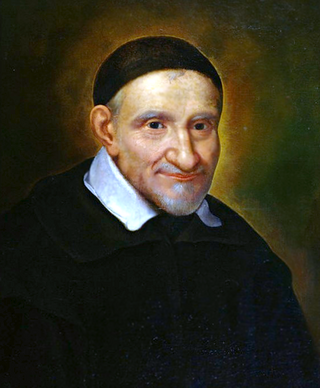 5
Vincent de Paul, CM, commonly known as Saint Vincent de Paul, was an Occitan French Catholic priest who dedicated himself to serving the poor.
5
Vincent de Paul, CM, commonly known as Saint Vincent de Paul, was an Occitan French Catholic priest who dedicated himself to serving the poor.
Anita Augspurg
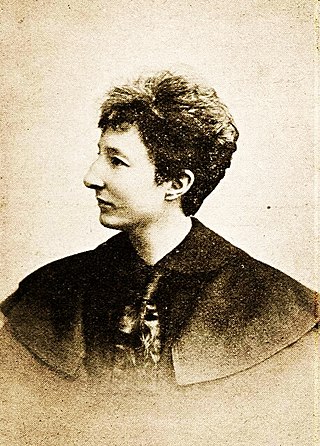 5
Anita Theodora Johanna Sophie Augspurg was a German jurist, actress, writer, activist of the radical feminist movement and a pacifist.
5
Anita Theodora Johanna Sophie Augspurg was a German jurist, actress, writer, activist of the radical feminist movement and a pacifist.
Wenzel Jaksch
 5
Wenzel Jaksch was a Sudeten German Social Democrat politician and the president of the Federation of Expellees in 1964 to 1966.
5
Wenzel Jaksch was a Sudeten German Social Democrat politician and the president of the Federation of Expellees in 1964 to 1966.
Tadeusz Kościuszko
 5
Andrzej Tadeusz Bonawentura Kościuszko was a Polish military engineer, statesman, and military leader who then became a national hero in Poland, the United States, and Belarus. He fought in the...
5
Andrzej Tadeusz Bonawentura Kościuszko was a Polish military engineer, statesman, and military leader who then became a national hero in Poland, the United States, and Belarus. He fought in the...
Claire Waldoff
 5
Claire Waldoff, born Clara Wortmann, was a German singer. She was a famous kabarett singer and entertainer in Berlin during the 1910s to the 1930s, chiefly known for performing ironic songs in the...
5
Claire Waldoff, born Clara Wortmann, was a German singer. She was a famous kabarett singer and entertainer in Berlin during the 1910s to the 1930s, chiefly known for performing ironic songs in the...
Matthäus Merian the Elder
 5
Matthäus Merian der Ältere was a Swiss-born engraver who worked in Frankfurt, Germany for most of his career, where he also ran a publishing house. He was a member of the patrician Basel Merian...
5
Matthäus Merian der Ältere was a Swiss-born engraver who worked in Frankfurt, Germany for most of his career, where he also ran a publishing house. He was a member of the patrician Basel Merian...
Albrecht Achilles
 5
Albrecht Achilles may refer to:Albrecht III Achilles, Elector of Brandenburg (1414–1486)
Albrecht Achilles (Korvettenkapitän) (1914–1943), U-boat commander
5
Albrecht Achilles may refer to:Albrecht III Achilles, Elector of Brandenburg (1414–1486)
Albrecht Achilles (Korvettenkapitän) (1914–1943), U-boat commander
Charles Dickens
 5
Charles John Huffam Dickens was an English novelist and social critic who created some of the world's best-known fictional characters, and is regarded by many as the greatest novelist of the...
5
Charles John Huffam Dickens was an English novelist and social critic who created some of the world's best-known fictional characters, and is regarded by many as the greatest novelist of the...
Rudi Arndt
 5
Rudi Arndt was a German politician of the Social Democratic Party of Germany (SPD). He served in several positions in the Hesse state government, and as the Mayor of Frankfurt between 1972 and 1977....
5
Rudi Arndt was a German politician of the Social Democratic Party of Germany (SPD). He served in several positions in the Hesse state government, and as the Mayor of Frankfurt between 1972 and 1977....
Agnes Karll
 5
Agnes Caroline Pauline Karll was a German nurse and a nursing reformer. She served as the third president of the International Council of Nurses from 1909 to 1912, and was an honorary member of the...
5
Agnes Caroline Pauline Karll was a German nurse and a nursing reformer. She served as the third president of the International Council of Nurses from 1909 to 1912, and was an honorary member of the...
Arnold III, Count of Bentheim-Steinfurt-Tecklenburg-Limburg
 5
Arnold III of Bentheim-Tecklenburg-Steinfurt-Limburg was a German nobleman. He was Count of Bentheim, Tecklenburg and Steinfurt, and jure uxoris Count of Limburg. He ruled as Arnold IV in Bentheim...
5
Arnold III of Bentheim-Tecklenburg-Steinfurt-Limburg was a German nobleman. He was Count of Bentheim, Tecklenburg and Steinfurt, and jure uxoris Count of Limburg. He ruled as Arnold IV in Bentheim...
Ludwig Frank
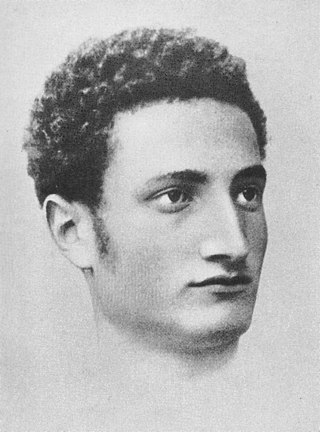 5
Ludwig Frank was a German lawyer and politician (SPD). He represented his party in the Baden Ständeversammlung in Karlsruhe between 1905 and 1914, as well as in the Imperial Parliament (Reichstag)...
5
Ludwig Frank was a German lawyer and politician (SPD). He represented his party in the Baden Ständeversammlung in Karlsruhe between 1905 and 1914, as well as in the Imperial Parliament (Reichstag)...
Theodor von Cramer-Klett
 5
Theodor Freiherr von Cramer-Klett was a German entrepreneur and banker.
5
Theodor Freiherr von Cramer-Klett was a German entrepreneur and banker.
Julius Theodor Schmidt
 5
Julius Theodor Schmidt war ein deutscher Politiker, Mitglied der Frankfurter Nationalversammlung sowie Bürgermeister von Wurzen.
5
Julius Theodor Schmidt war ein deutscher Politiker, Mitglied der Frankfurter Nationalversammlung sowie Bürgermeister von Wurzen.
Gustav Radbruch
 5
Gustav Radbruch was a German legal scholar and politician. He served as Minister of Justice of Germany during the early Weimar period. Radbruch is also regarded as one of the most influential legal...
5
Gustav Radbruch was a German legal scholar and politician. He served as Minister of Justice of Germany during the early Weimar period. Radbruch is also regarded as one of the most influential legal...
Bernhard Winter
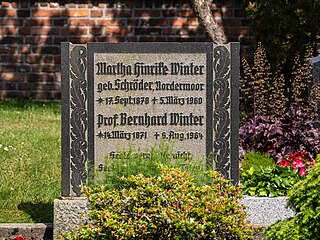 5
Bernhard Winter war ein deutscher Maler, Graphiker und Fotograf, der vor allem für den Raum Oldenburg bedeutend ist.
5
Bernhard Winter war ein deutscher Maler, Graphiker und Fotograf, der vor allem für den Raum Oldenburg bedeutend ist.
Maria Terwiel
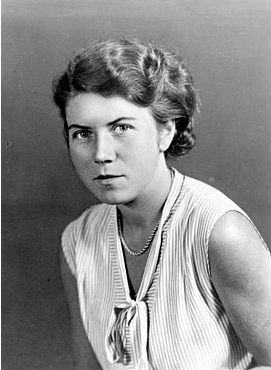 5
Maria "Mimi" Terwiel was a German resistance fighter against the Nazi regime. She was active in a group in Berlin that wrote and distributed anti-Nazi and anti-war appeals. As part of what they...
5
Maria "Mimi" Terwiel was a German resistance fighter against the Nazi regime. She was active in a group in Berlin that wrote and distributed anti-Nazi and anti-war appeals. As part of what they...
Ulrich II (bishop of Passau)
 5
Ulrich II was the 34th Bishop of Passau from 1215 and the first prince-bishop from 1217. The Bischof-Ulrich-Straße in Passau is named after him.
5
Ulrich II was the 34th Bishop of Passau from 1215 and the first prince-bishop from 1217. The Bischof-Ulrich-Straße in Passau is named after him.
Julius Fučík (journalist)
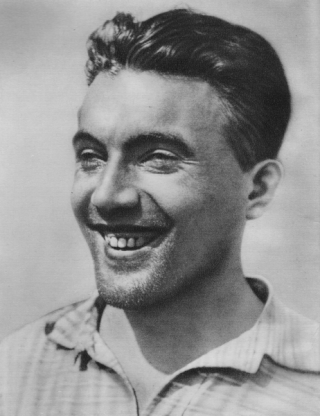 5
Julius Fučík was a Czech journalist, critic, writer, and active member of Communist Party of Czechoslovakia. For his part at the forefront of the anti-Nazi resistance during the Second World War, he...
5
Julius Fučík was a Czech journalist, critic, writer, and active member of Communist Party of Czechoslovakia. For his part at the forefront of the anti-Nazi resistance during the Second World War, he...
Heinrich Rau
 5
Heinrich Gottlob "Heiner" Rau was a German communist politician during the time of the Weimar Republic; subsequently, during the Spanish Civil War, he was a leading member of the International...
5
Heinrich Gottlob "Heiner" Rau was a German communist politician during the time of the Weimar Republic; subsequently, during the Spanish Civil War, he was a leading member of the International...
Ernst Alban
 5
Johann Ernst Heinrich Alban war ein deutscher Chirurg und Augenarzt. Berühmt wurde er als Pionier des Dampfmaschinenbaus.
5
Johann Ernst Heinrich Alban war ein deutscher Chirurg und Augenarzt. Berühmt wurde er als Pionier des Dampfmaschinenbaus.
Victor Gollancz
 5
Sir Victor Gollancz was a British publisher and humanitarian. Gollancz was known as a supporter of left-wing politics. His loyalties shifted between liberalism and communism; he defined himself as a...
5
Sir Victor Gollancz was a British publisher and humanitarian. Gollancz was known as a supporter of left-wing politics. His loyalties shifted between liberalism and communism; he defined himself as a...
Elly Ney
 5
Elly Ney was a German romantic pianist who specialized in Beethoven, and was especially popular in Germany.
5
Elly Ney was a German romantic pianist who specialized in Beethoven, and was especially popular in Germany.
Eugen Kaiser
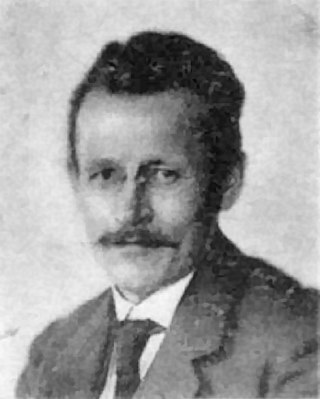 5
Eugen Kaiser war ein deutscher Politiker (SPD).
5
Eugen Kaiser war ein deutscher Politiker (SPD).
Jenny von Westphalen
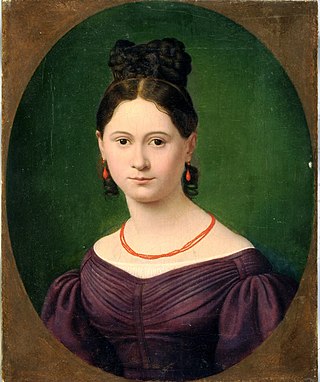 5
Johanna Bertha Julie Jenny Edle von Westphalen was a German theatre critic and political activist. She married the philosopher and political economist Karl Marx in 1843.
5
Johanna Bertha Julie Jenny Edle von Westphalen was a German theatre critic and political activist. She married the philosopher and political economist Karl Marx in 1843.
Heinrich Spoerl
 5
Heinrich Christian Johann Spoerl was a German author.
5
Heinrich Christian Johann Spoerl was a German author.
Franz Weiß (Pfarrer)
 5
Franz Weiß war ein katholischer Pfarrer und Widerstandskämpfer gegen den Nationalsozialismus.
5
Franz Weiß war ein katholischer Pfarrer und Widerstandskämpfer gegen den Nationalsozialismus.
Faber-Castell family
 5
The House of Faber-Castell, originating from Stein near Nuremberg, Germany, is the name of an entrepreneurial noble family, morganatic branch of the House of Castell-Rüdenhausen, which founded the...
5
The House of Faber-Castell, originating from Stein near Nuremberg, Germany, is the name of an entrepreneurial noble family, morganatic branch of the House of Castell-Rüdenhausen, which founded the...
Otto Bartning
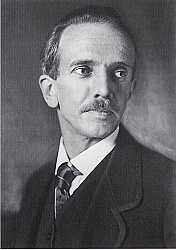 5
Otto Bartning was a Modernist German architect, architectural theorist and teacher. In his early career he developed plans with Walter Gropius for the establishment of the Bauhaus. He was a member of...
5
Otto Bartning was a Modernist German architect, architectural theorist and teacher. In his early career he developed plans with Walter Gropius for the establishment of the Bauhaus. He was a member of...
Elsa Neumann
 5
Elsa Neumann was a German physicist. She was the first woman to receive a PhD in physics from the University of Berlin, in 1899.
5
Elsa Neumann was a German physicist. She was the first woman to receive a PhD in physics from the University of Berlin, in 1899.
Nelson Mandela
 5
Nelson Rolihlahla Mandela was a South African anti-apartheid activist, politician, and statesman who served as the first president of South Africa from 1994 to 1999. He was the country's first black...
5
Nelson Rolihlahla Mandela was a South African anti-apartheid activist, politician, and statesman who served as the first president of South Africa from 1994 to 1999. He was the country's first black...
Karl Schneider
 5
Karl Schneider may refer to:Karl Schneider (cricketer) (1905–1928), Australian cricketer
Karl Schneider (activist) (1869–1940), German ophthalmologist, activist, resistance fighter against Nazis
Karl...
5
Karl Schneider may refer to:Karl Schneider (cricketer) (1905–1928), Australian cricketer
Karl Schneider (activist) (1869–1940), German ophthalmologist, activist, resistance fighter against Nazis
Karl...
Henry of the Palatinate
 5
Henry of the Palatinate was Bishop of Utrecht from 1524 to 1529, Bishop of Worms from 1523 to 1552 and Bishop of Freising from 1541 to 1552.
5
Henry of the Palatinate was Bishop of Utrecht from 1524 to 1529, Bishop of Worms from 1523 to 1552 and Bishop of Freising from 1541 to 1552.
Albin Köbis
 5
Albin Köbis was a German sailor executed in 1917 for incitement to rebellion in the Imperial German Navy.
5
Albin Köbis was a German sailor executed in 1917 for incitement to rebellion in the Imperial German Navy.
Jürgen Ulderup
 5
Jürgen Ulderup war ein deutscher Unternehmer und Gründer der nach ihm benannten Dr.-Jürgen-Ulderup-Stiftung.
5
Jürgen Ulderup war ein deutscher Unternehmer und Gründer der nach ihm benannten Dr.-Jürgen-Ulderup-Stiftung.
Friedrich Koenig
 5
Friedrich Gottlob Koenig was a German inventor best known for his high-speed steam-powered printing press, which he built together with watchmaker Andreas Friedrich Bauer. This new style of printing...
5
Friedrich Gottlob Koenig was a German inventor best known for his high-speed steam-powered printing press, which he built together with watchmaker Andreas Friedrich Bauer. This new style of printing...
Marianne Brandt
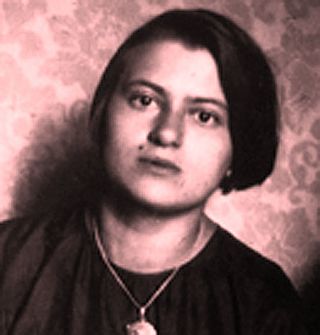 5
Marianne Brandt was a German painter, sculptor, photographer, metalsmith, and designer who studied at the Bauhaus art school in Weimar and later became head of the Bauhaus Metall-Werkstatt in Dessau...
5
Marianne Brandt was a German painter, sculptor, photographer, metalsmith, and designer who studied at the Bauhaus art school in Weimar and later became head of the Bauhaus Metall-Werkstatt in Dessau...
Levi Strauss
 5
Levi Strauss was a German-born American businessman who founded the first company to manufacture blue jeans. His firm of Levi Strauss & Co. (Levi's) began in 1853 in San Francisco, California.
5
Levi Strauss was a German-born American businessman who founded the first company to manufacture blue jeans. His firm of Levi Strauss & Co. (Levi's) began in 1853 in San Francisco, California.
Hermann Gebauer (Unternehmer)
 5
Hermann Gebauer war ein deutscher Unternehmer. Er gilt als Begründer der Textilfirma MEWA.
5
Hermann Gebauer war ein deutscher Unternehmer. Er gilt als Begründer der Textilfirma MEWA.
Otto Schlag
 5
Otto Schlag war ein kommunistischer Politiker.
5
Otto Schlag war ein kommunistischer Politiker.
Wilhelm Fischer (politician)
 5
Wilhelm "Willy" Fischer was a German politician from the Social Democratic Party (SPD) and a member of the German Bundestag.
5
Wilhelm "Willy" Fischer was a German politician from the Social Democratic Party (SPD) and a member of the German Bundestag.
Paul-Henri Spaak
 5
Paul-Henri Charles Spaak was an influential Belgian Socialist politician, diplomat and statesman. Along with Robert Schuman, Alcide De Gasperi and Konrad Adenauer he was a leader in the formation of...
5
Paul-Henri Charles Spaak was an influential Belgian Socialist politician, diplomat and statesman. Along with Robert Schuman, Alcide De Gasperi and Konrad Adenauer he was a leader in the formation of...
Jeanette Wolff
 5
Jeanette Wolff, geborene Cohen war eine deutsche Politikerin der SPD.
5
Jeanette Wolff, geborene Cohen war eine deutsche Politikerin der SPD.
Jakob Schegk
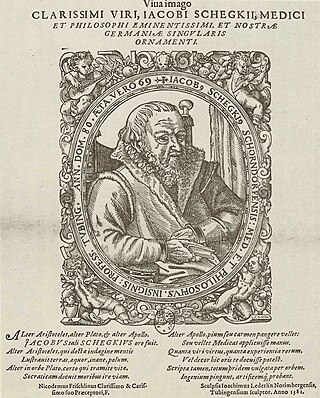 5
Jakob Schegk was a polymath German Aristotelian philosopher and academic physician.
5
Jakob Schegk was a polymath German Aristotelian philosopher and academic physician.
Dorothea Viehmann
 5
Dorothea Viehmann was a German storyteller. Her stories were an important source for the fairy tales collected by the Brothers Grimm. Most of Dorothea Viehmann's tales were published in the second...
5
Dorothea Viehmann was a German storyteller. Her stories were an important source for the fairy tales collected by the Brothers Grimm. Most of Dorothea Viehmann's tales were published in the second...
Adolf Wagner
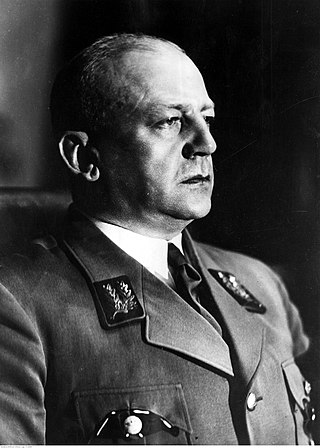 5
Adolf Wagner was a Nazi Party official and politician who served as the Party's Gauleiter in Munich and as the powerful Interior Minister of Bavaria throughout most of the Third Reich.
5
Adolf Wagner was a Nazi Party official and politician who served as the Party's Gauleiter in Munich and as the powerful Interior Minister of Bavaria throughout most of the Third Reich.
Wright brothers
 5
The Wright brothers, Orville Wright and Wilbur Wright, were American aviation pioneers generally credited with inventing, building, and flying the world's first successful airplane. They made the...
5
The Wright brothers, Orville Wright and Wilbur Wright, were American aviation pioneers generally credited with inventing, building, and flying the world's first successful airplane. They made the...
Eduard Müller
 5
Eduard Müller may refer to:Eduard Müller (philologist) (1804–1875), German gymnasium director
Eduard Müller (1818–1895), German priest, member of the German Reichstag, co-founder of the German...
5
Eduard Müller may refer to:Eduard Müller (philologist) (1804–1875), German gymnasium director
Eduard Müller (1818–1895), German priest, member of the German Reichstag, co-founder of the German...
Herzog Ernst
 5
Herzog Ernst is a German epic from the early high Middle Ages, first written down by an anonymous author from the Rhine region.
5
Herzog Ernst is a German epic from the early high Middle Ages, first written down by an anonymous author from the Rhine region.
Nikolaus Becker
 5
Nikolaus Becker was a German lawyer and writer. His one poem of note was the 1840 "Rheinlied" which was set to music over 70 times, the most famous setting being Die Wacht am Rhein.
5
Nikolaus Becker was a German lawyer and writer. His one poem of note was the 1840 "Rheinlied" which was set to music over 70 times, the most famous setting being Die Wacht am Rhein.
Hermann Joseph von Steinfeld
 5
Hermann Joseph, was a German Premonstratensian canon regular and mystic. Never formally canonized, in 1958 his status as a saint of the Roman Catholic Church was formally recognized by Pope Pius XII.
5
Hermann Joseph, was a German Premonstratensian canon regular and mystic. Never formally canonized, in 1958 his status as a saint of the Roman Catholic Church was formally recognized by Pope Pius XII.
Magnus Poser
 5
Magnus Poser war ein deutscher kommunistischer Widerstandskämpfer gegen den Nationalsozialismus.
5
Magnus Poser war ein deutscher kommunistischer Widerstandskämpfer gegen den Nationalsozialismus.
Brigitte Reimann
 5
Brigitte Reimann was a German writer who is best known for her posthumously published novel Franziska Linkerhand.
5
Brigitte Reimann was a German writer who is best known for her posthumously published novel Franziska Linkerhand.
Ernst Müller (Pfarrer)
 5
Ernst Albrecht Müller war ein Schweizer evangelischer Geistlicher und Bühnenautor in Berndeutsch.
5
Ernst Albrecht Müller war ein Schweizer evangelischer Geistlicher und Bühnenautor in Berndeutsch.
Andreas Paul Weber
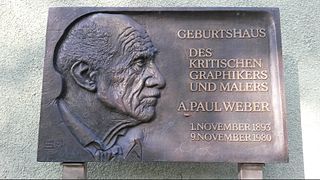 5
Andreas Paul Weber was a German lithographer and painter.
5
Andreas Paul Weber was a German lithographer and painter.
Franz Schneider
 5
Franz Schneider may refer to:Franz Schneider (engineer), Swiss engineer and aircraft designer
Franz Schneider (chemist) (1812–1897), Austrian physician and chemist
Franz Schneider (spy) Courier for...
5
Franz Schneider may refer to:Franz Schneider (engineer), Swiss engineer and aircraft designer
Franz Schneider (chemist) (1812–1897), Austrian physician and chemist
Franz Schneider (spy) Courier for...
Konrad Wachsmann
 5
Konrad Wachsmann was a German Jewish modernist architect. He is notable for his contribution to the mass production of building components.
5
Konrad Wachsmann was a German Jewish modernist architect. He is notable for his contribution to the mass production of building components.
Georg Wolff (journalist)
 5
Georg Wolff was a German SS Hauptsturmführer and journalist. During the Second World War, Wolff was a Head of Division III for the Sicherheitspolizei command in Oslo. He was later a leading editor...
5
Georg Wolff was a German SS Hauptsturmführer and journalist. During the Second World War, Wolff was a Head of Division III for the Sicherheitspolizei command in Oslo. He was later a leading editor...
Emy Roeder
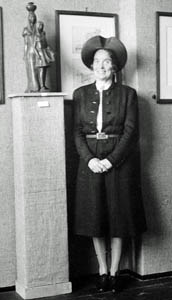 5
Emy Roeder was a modern German sculptor born in Würzburg, Germany. During the first third of the twentieth century she was one of a number of women that were associated with the German Expressionist...
5
Emy Roeder was a modern German sculptor born in Würzburg, Germany. During the first third of the twentieth century she was one of a number of women that were associated with the German Expressionist...
Gustav Leutelt
 5
Gustav Leutelt was a German Bohemian poet and writer. Most of his poetry concerned the area around his birthplace of Josefsthal causing him to be described as a "poet of the Jizera Mountains."
5
Gustav Leutelt was a German Bohemian poet and writer. Most of his poetry concerned the area around his birthplace of Josefsthal causing him to be described as a "poet of the Jizera Mountains."
Mathilde Planck
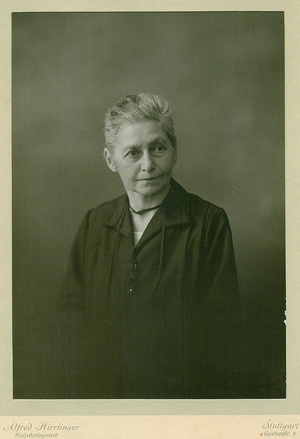 5
Mathilde Planck was a teacher who became the first female member of the regional parliament ("Landtag") of Württemberg. She championed education for girls and is considered to be one of the most...
5
Mathilde Planck was a teacher who became the first female member of the regional parliament ("Landtag") of Württemberg. She championed education for girls and is considered to be one of the most...
Franz Philipp
 5
Franz Joseph Philipp was a German church musician and composer. He studied and later taught various instruments including organ, worked as a composer, directed a conservatory, and founded a school...
5
Franz Joseph Philipp was a German church musician and composer. He studied and later taught various instruments including organ, worked as a composer, directed a conservatory, and founded a school...
Jakob Kneip
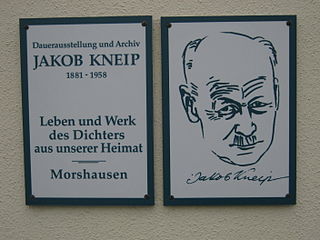 5
Jakob Kneip war ein deutscher Schriftsteller und Dichter.
5
Jakob Kneip war ein deutscher Schriftsteller und Dichter.
Maria Goeppert Mayer
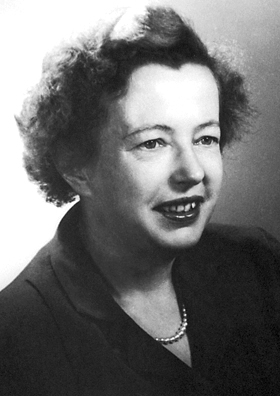 5
Maria Goeppert Mayer was a German-born American theoretical physicist, and Nobel laureate in Physics for proposing the nuclear shell model of the atomic nucleus. She was the second woman to win a...
5
Maria Goeppert Mayer was a German-born American theoretical physicist, and Nobel laureate in Physics for proposing the nuclear shell model of the atomic nucleus. She was the second woman to win a...
Max Frisch
 5
Max Rudolf Frisch was a Swiss playwright and novelist. Frisch's works focused on problems of identity, individuality, responsibility, morality, and political commitment. The use of irony is a...
5
Max Rudolf Frisch was a Swiss playwright and novelist. Frisch's works focused on problems of identity, individuality, responsibility, morality, and political commitment. The use of irony is a...
Ernst Heilmann
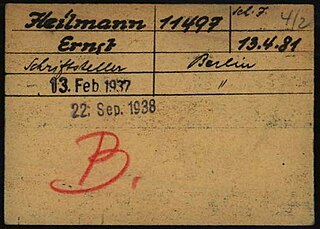 5
Ernst Heilmann was a German jurist and politician of the Social Democratic Party of Germany.
5
Ernst Heilmann was a German jurist and politician of the Social Democratic Party of Germany.
Paul Ernst (German writer)
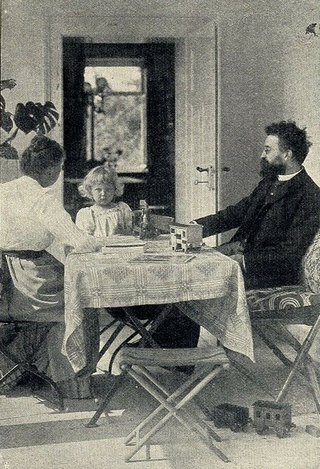 5
Karl Friedrich Paul Ernst was a German writer, dramatist, critic and journalist.
5
Karl Friedrich Paul Ernst was a German writer, dramatist, critic and journalist.
Eugen Langen
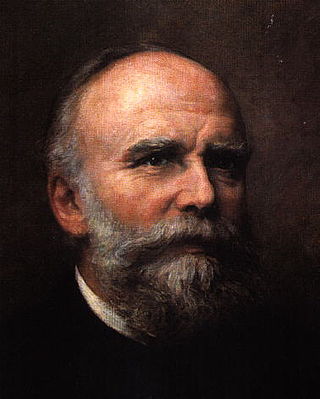 5
Carl Eugen Langen was a German entrepreneur, engineer and inventor, involved in the development of the petrol engine and the Wuppertal Suspension Railway. In 1857 he worked in his father's sugar...
5
Carl Eugen Langen was a German entrepreneur, engineer and inventor, involved in the development of the petrol engine and the Wuppertal Suspension Railway. In 1857 he worked in his father's sugar...
Irmgard Keun
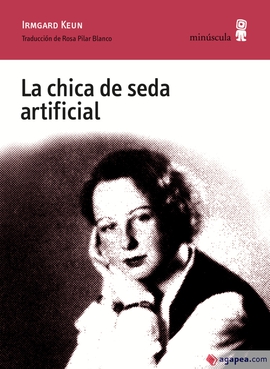 5
Irmgard Keun was a German novelist. Noted for her portrayals of the life of women, she is described as "often reduced to the bold sexuality of her writing, [yet] a significant author of the late...
5
Irmgard Keun was a German novelist. Noted for her portrayals of the life of women, she is described as "often reduced to the bold sexuality of her writing, [yet] a significant author of the late...
Lina Hähnle
 5
Emilie Karoline "Lina" Hähnle was a German pioneer of bird conservation. She founded the Swabian league for bird protection in Germany which would later merge into what became the Naturschutzbund...
5
Emilie Karoline "Lina" Hähnle was a German pioneer of bird conservation. She founded the Swabian league for bird protection in Germany which would later merge into what became the Naturschutzbund...
Killing of Peter Fechter
 5
Peter Fechter was a German bricklayer who became the twenty-seventh known person to die at the Berlin Wall. Fechter was 18 years old when he was shot and killed by East German border guards while...
5
Peter Fechter was a German bricklayer who became the twenty-seventh known person to die at the Berlin Wall. Fechter was 18 years old when he was shot and killed by East German border guards while...
Wilhelm Schäfer
 5
Wilhelm Schäfer was a German writer.
5
Wilhelm Schäfer was a German writer.
Lorenz Jaeger
 5
Lorenz Jaeger was a German cardinal of the Roman Catholic Church, who served as Archbishop of Paderborn from 1941 to 1973, and was elevated to the cardinalate in 1965.
5
Lorenz Jaeger was a German cardinal of the Roman Catholic Church, who served as Archbishop of Paderborn from 1941 to 1973, and was elevated to the cardinalate in 1965.
Simone de Beauvoir
 4
Simone Lucie Ernestine Marie Bertrand de Beauvoir was a French existentialist philosopher, writer, social theorist, and feminist activist. Though she did not consider herself a philosopher, nor was...
4
Simone Lucie Ernestine Marie Bertrand de Beauvoir was a French existentialist philosopher, writer, social theorist, and feminist activist. Though she did not consider herself a philosopher, nor was...
Ludwig Wittgenstein
 4
Ludwig Josef Johann Wittgenstein was an Austrian philosopher who worked primarily in logic, the philosophy of mathematics, the philosophy of mind, and the philosophy of language.
4
Ludwig Josef Johann Wittgenstein was an Austrian philosopher who worked primarily in logic, the philosophy of mathematics, the philosophy of mind, and the philosophy of language.
Lina Morgenstern
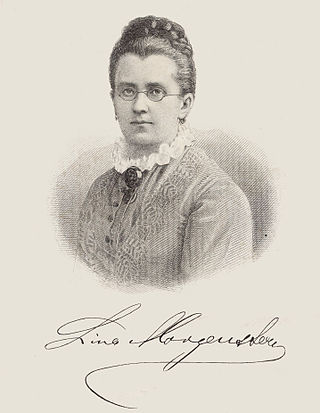 4
Lina Morgenstern was a German writer, educator, feminist and pacifist.
4
Lina Morgenstern was a German writer, educator, feminist and pacifist.
Franklin D. Roosevelt
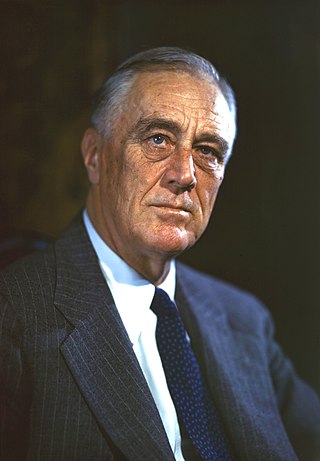 4
Franklin Delano Roosevelt, commonly known by his initials FDR, was an American statesman and politician who served as the 32nd president of the United States from 1933 until his death in 1945. He was...
4
Franklin Delano Roosevelt, commonly known by his initials FDR, was an American statesman and politician who served as the 32nd president of the United States from 1933 until his death in 1945. He was...
Michael Faraday
 4
Michael Faraday was a British scientist who contributed to the study of electromagnetism and electrochemistry. His main discoveries include the principles underlying electromagnetic induction,...
4
Michael Faraday was a British scientist who contributed to the study of electromagnetism and electrochemistry. His main discoveries include the principles underlying electromagnetic induction,...
Virgil
 4
Publius Vergilius Maro, usually called Virgil or Vergil in English, was an ancient Roman poet of the Augustan period. He composed three of the most famous poems in Latin literature: the Eclogues, the...
4
Publius Vergilius Maro, usually called Virgil or Vergil in English, was an ancient Roman poet of the Augustan period. He composed three of the most famous poems in Latin literature: the Eclogues, the...
Philipp Otto Runge
 4
Philipp Otto Runge was a German artist, draftsman, painter, and color theorist. Runge and Caspar David Friedrich are often regarded as the leading painters of the German Romantic movement. He is...
4
Philipp Otto Runge was a German artist, draftsman, painter, and color theorist. Runge and Caspar David Friedrich are often regarded as the leading painters of the German Romantic movement. He is...
Louis Ferdinand, Prince of Prussia
 4
Louis Ferdinand, Prince of Prussia was a member of the princely House of Hohenzollern, which occupied the Prussian and German thrones until the abolition of those monarchies in 1918. He was also...
4
Louis Ferdinand, Prince of Prussia was a member of the princely House of Hohenzollern, which occupied the Prussian and German thrones until the abolition of those monarchies in 1918. He was also...
Hans in Luck
 4
"Hans in Luck" is a fairy tale of Germanic origin, recorded by the Brothers Grimm. It is Aarne-Thompson type 1415.
4
"Hans in Luck" is a fairy tale of Germanic origin, recorded by the Brothers Grimm. It is Aarne-Thompson type 1415.
Josef Frings
 4
Josef Richard Frings, was a German Cardinal of the Catholic Church. He served as Archbishop of Cologne from 1942 to 1969. Considered a significant figure in Catholic resistance to Nazism, he was...
4
Josef Richard Frings, was a German Cardinal of the Catholic Church. He served as Archbishop of Cologne from 1942 to 1969. Considered a significant figure in Catholic resistance to Nazism, he was...
Christoph, Duke of Württemberg
 4
Christoph of Württemberg, ruled as Duke of Württemberg from 1550 until his death in 1568.
4
Christoph of Württemberg, ruled as Duke of Württemberg from 1550 until his death in 1568.
Walter Hallstein
 4
Walter Hallstein was a German academic, diplomat and statesman who was the first president of the Commission of the European Economic Community and one of the founding fathers of the European Union.
4
Walter Hallstein was a German academic, diplomat and statesman who was the first president of the Commission of the European Economic Community and one of the founding fathers of the European Union.
Johanna Kinkel
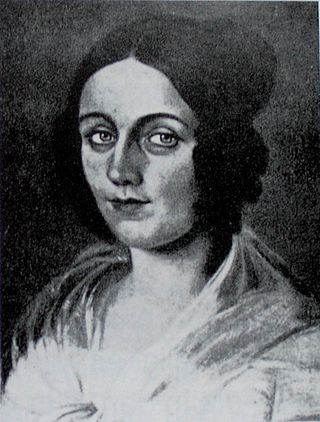 4
Johanna Kinkel, born Maria Johanna Mockel, was a German composer, writer, pedagogue, and revolutionary.
4
Johanna Kinkel, born Maria Johanna Mockel, was a German composer, writer, pedagogue, and revolutionary.
Ferdinand Schmitz
 4
Ferdinand Schmitz was a German wrestler who competed at the 1952 Summer Olympics. In Helsinki he participated in both the freestyle and Greco-Roman bantamweight competitions, eventually withdrawing...
4
Ferdinand Schmitz was a German wrestler who competed at the 1952 Summer Olympics. In Helsinki he participated in both the freestyle and Greco-Roman bantamweight competitions, eventually withdrawing...
Hans Adlhoch
 4
Hans Adlhoch was a German politician, representative of the Bavarian People's Party. He was a member of the City Council at Augsburg, and from January–March 1933 was Reichstag deputy. He was...
4
Hans Adlhoch was a German politician, representative of the Bavarian People's Party. He was a member of the City Council at Augsburg, and from January–March 1933 was Reichstag deputy. He was...
Gottfried von Cramm
 4
Gottfried Alexander Maximilian Walter Kurt Freiherr[A] von Cramm was a German tennis player who won the French Championships twice and reached the final of a Grand Slam singles tournament on five...
4
Gottfried Alexander Maximilian Walter Kurt Freiherr[A] von Cramm was a German tennis player who won the French Championships twice and reached the final of a Grand Slam singles tournament on five...
Hanns Braun
 4
Hanns Braun was a German athlete.
4
Hanns Braun was a German athlete.
Heinrich Schütte
 4
Heinrich Schütte war ein deutscher Lehrer und Heimatforscher, der als Pionier der Marschenforschung an der Nordsee gilt.
4
Heinrich Schütte war ein deutscher Lehrer und Heimatforscher, der als Pionier der Marschenforschung an der Nordsee gilt.
Willi Schröder
 4
Willi Schröder was a German footballer who played as a forward.
4
Willi Schröder was a German footballer who played as a forward.
Ida Noddack
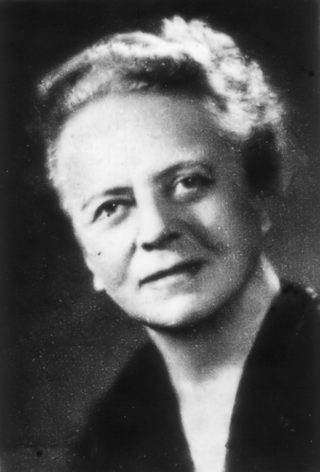 4
Ida Noddack, née Tacke, was a German chemist and physicist. In 1934 she was the first to mention the idea later named nuclear fission. With her husband Walter Noddack, and Otto Berg, she discovered...
4
Ida Noddack, née Tacke, was a German chemist and physicist. In 1934 she was the first to mention the idea later named nuclear fission. With her husband Walter Noddack, and Otto Berg, she discovered...
Wilhelm Schickard
 4
Wilhelm Schickard was a German professor of Hebrew and astronomy who became famous in the second part of the 20th century after Franz Hammer, a biographer of Johannes Kepler, claimed that the...
4
Wilhelm Schickard was a German professor of Hebrew and astronomy who became famous in the second part of the 20th century after Franz Hammer, a biographer of Johannes Kepler, claimed that the...
Marcus Aurelius
 4
Marcus Aurelius Antoninus was Roman emperor from 161 to 180 and a Stoic philosopher. He was a member of the Nerva–Antonine dynasty, the last of the rulers later known as the Five Good Emperors and...
4
Marcus Aurelius Antoninus was Roman emperor from 161 to 180 and a Stoic philosopher. He was a member of the Nerva–Antonine dynasty, the last of the rulers later known as the Five Good Emperors and...
Karl Longin Zeller
 4
Karl Longin Zeller was a German mathematician and computer scientist who worked in numerical analysis and approximation theory. He is the namesake of Zeller operators.
4
Karl Longin Zeller was a German mathematician and computer scientist who worked in numerical analysis and approximation theory. He is the namesake of Zeller operators.
Asam brothers
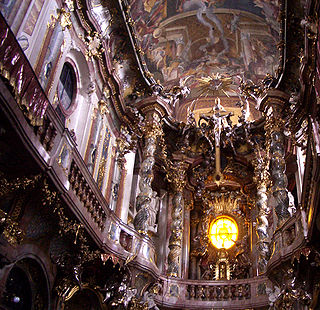 4
The Asam brothers were sculptors, painters, and architects, who worked mostly together and in southern Germany. They are among the most important representatives of the German late Baroque.
4
The Asam brothers were sculptors, painters, and architects, who worked mostly together and in southern Germany. They are among the most important representatives of the German late Baroque.
Gebhard Müller
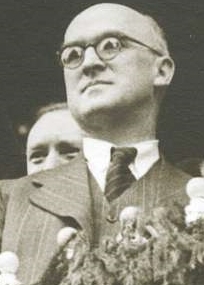 4
Gebhard Müller was a German lawyer and politician (CDU). He was President of Württemberg-Hohenzollern (1948–1952), Minister President of Baden-Württemberg (1953–1958) and President of the Federal...
4
Gebhard Müller was a German lawyer and politician (CDU). He was President of Württemberg-Hohenzollern (1948–1952), Minister President of Baden-Württemberg (1953–1958) and President of the Federal...
Christian Peter Wilhelm Stolle
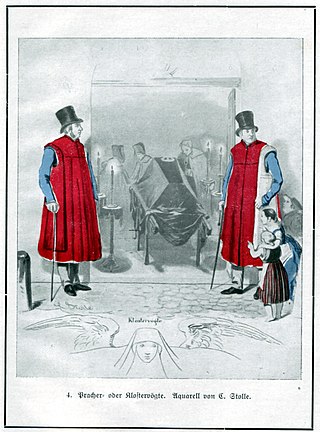 4
Christian Peter Wilhelm Stolle was a German decorative painter.
4
Christian Peter Wilhelm Stolle was a German decorative painter.
Barbara Uthmann
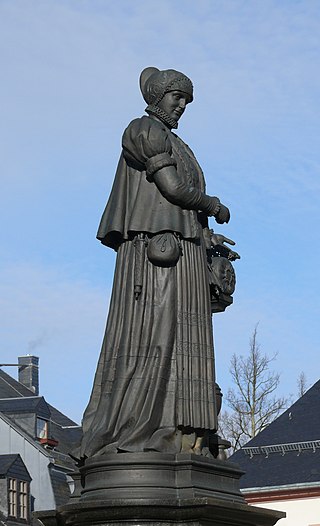 4
Barbara Uthmann was considered to be one of the greatest supporters of bobbin lace making and was a successful businesswoman in the Ore Mountains. Her last name has sometimes been spelled Uttmann,...
4
Barbara Uthmann was considered to be one of the greatest supporters of bobbin lace making and was a successful businesswoman in the Ore Mountains. Her last name has sometimes been spelled Uttmann,...
Francis de Sales
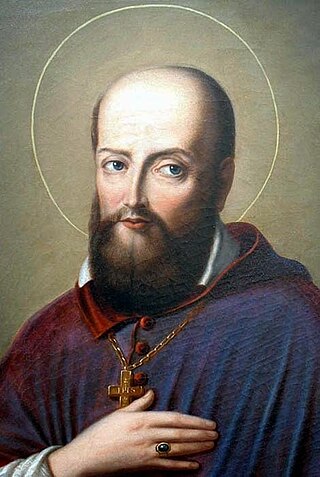 4
Francis de Sales, C.O., O.M. was a Savoyard Catholic prelate who served as Bishop of Geneva and is a saint of the Catholic Church. He became noted for his deep faith and his gentle approach to the...
4
Francis de Sales, C.O., O.M. was a Savoyard Catholic prelate who served as Bishop of Geneva and is a saint of the Catholic Church. He became noted for his deep faith and his gentle approach to the...
Joseph Freundorfer
 4
Joseph Freundorfer war Neutestamentler und von 1949 bis 1963 Bischof von Augsburg.
4
Joseph Freundorfer war Neutestamentler und von 1949 bis 1963 Bischof von Augsburg.
Wilhelm Bauer
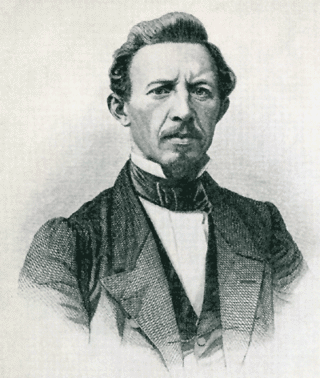 4
Wilhelm Bauer was a German inventor and engineer who built several hand-powered submarines.
4
Wilhelm Bauer was a German inventor and engineer who built several hand-powered submarines.
Lisa Tetzner
 4
Lisa Tetzner was a German-born Swiss children's book writer known for her work with fairy-tales. In 1924 she married Kurt Held, a Jewish Communist.
They fled to Switzerland in 1933 to escape the...
4
Lisa Tetzner was a German-born Swiss children's book writer known for her work with fairy-tales. In 1924 she married Kurt Held, a Jewish Communist.
They fled to Switzerland in 1933 to escape the...
Walter Gieseking
 4
Walter Wilhelm Gieseking was a French-born German pianist and composer. Gieseking was renowned for his subtle touch, pedaling, and dynamic control—particularly in the music of Debussy and Ravel; he...
4
Walter Wilhelm Gieseking was a French-born German pianist and composer. Gieseking was renowned for his subtle touch, pedaling, and dynamic control—particularly in the music of Debussy and Ravel; he...
Erich Knauf
 4
Erich Knauf was a German journalist, writer, and songwriter. He was executed for making jokes about the Nazi regime.
4
Erich Knauf was a German journalist, writer, and songwriter. He was executed for making jokes about the Nazi regime.
Charlotte Niese
 4
Charlotte Niese was a German writer, poet and teacher.
4
Charlotte Niese was a German writer, poet and teacher.
Camillo Sitte
 4
Camillo Sitte was an Austrian architect, painter and urban theorist whose work influenced urban planning and land use regulation. Today, Sitte is best remembered for his 1889 book, City Planning...
4
Camillo Sitte was an Austrian architect, painter and urban theorist whose work influenced urban planning and land use regulation. Today, Sitte is best remembered for his 1889 book, City Planning...
John Lennon
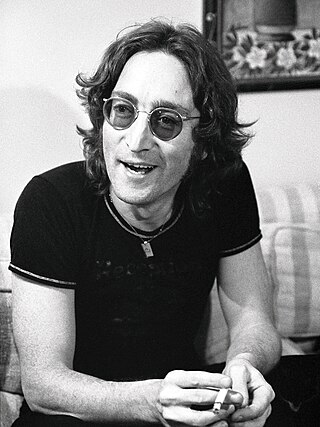 4
John Winston Ono Lennon was an English singer, songwriter and musician. He gained worldwide fame as the founder, co-songwriter, co-lead vocalist and rhythm guitarist of the Beatles. His work included...
4
John Winston Ono Lennon was an English singer, songwriter and musician. He gained worldwide fame as the founder, co-songwriter, co-lead vocalist and rhythm guitarist of the Beatles. His work included...
Lothair III, Holy Roman Emperor
 4
Lothair III, sometimes numbered Lothair II and also known as Lothair of Supplinburg, was Holy Roman Emperor from 1133 until his death. He was appointed Duke of Saxony in 1106 and elected King of...
4
Lothair III, sometimes numbered Lothair II and also known as Lothair of Supplinburg, was Holy Roman Emperor from 1133 until his death. He was appointed Duke of Saxony in 1106 and elected King of...
Adolf, King of the Romans
 4
Adolf was the count of Nassau from about 1276 and the elected king of Germany from 1292 until his deposition by the prince-electors in 1298. He was never crowned by the pope, which would have secured...
4
Adolf was the count of Nassau from about 1276 and the elected king of Germany from 1292 until his deposition by the prince-electors in 1298. He was never crowned by the pope, which would have secured...
Wilhelm Geiger
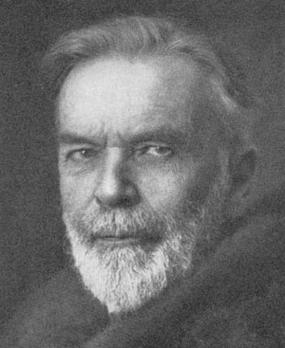 4
Wilhelm Ludwig Geiger was a German Orientalist in the fields of Indo-Iranian languages and the history of Iran and Sri Lanka. He was known as a specialist in Pali, Sinhala language and the Dhivehi...
4
Wilhelm Ludwig Geiger was a German Orientalist in the fields of Indo-Iranian languages and the history of Iran and Sri Lanka. He was known as a specialist in Pali, Sinhala language and the Dhivehi...
Regina Protmann
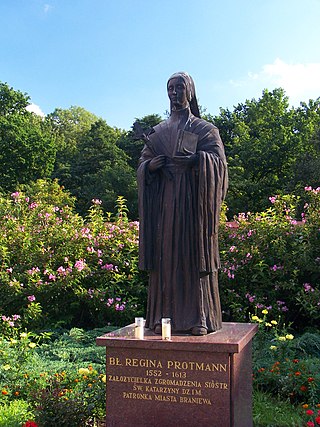 4
Regina Protmann was a Roman Catholic religious sister. She founded the Sisters of Saint Catherine and was a pioneer in the establishment of hospitals as well as schools for girls. Her first...
4
Regina Protmann was a Roman Catholic religious sister. She founded the Sisters of Saint Catherine and was a pioneer in the establishment of hospitals as well as schools for girls. Her first...
Jesse Owens
 4
James Cleveland "Jesse" Owens was an American track and field athlete who won four gold medals at the 1936 Olympic Games.
4
James Cleveland "Jesse" Owens was an American track and field athlete who won four gold medals at the 1936 Olympic Games.
Walter Eucken
 4
Walter Eucken was a German economist of the Freiburg school and father of ordoliberalism. He is closely linked with the development of the concept of "social market economy".
4
Walter Eucken was a German economist of the Freiburg school and father of ordoliberalism. He is closely linked with the development of the concept of "social market economy".
Ferdinand Krüger
 4
Ferdinand Krüger war Geheimer Sanitätsrat und westfälischer Mundartdichter (plattdeutsch).
4
Ferdinand Krüger war Geheimer Sanitätsrat und westfälischer Mundartdichter (plattdeutsch).
Friedrich Wagner
 4
Friedrich E. Wagner is a German physicist and emeritus professor who specializes in plasma physics. He was known to have discovered the high-confinement mode of magnetic confinement in fusion plasmas...
4
Friedrich E. Wagner is a German physicist and emeritus professor who specializes in plasma physics. He was known to have discovered the high-confinement mode of magnetic confinement in fusion plasmas...
Stefan Andres
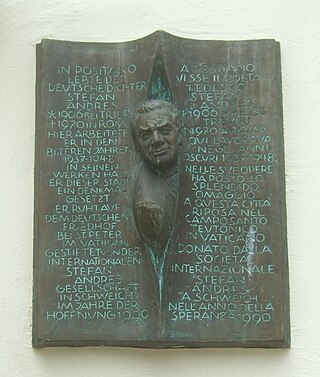 4
Stefan Paul Andres was a German novelist.
He was nominated for the Nobel Prize in Literature.
4
Stefan Paul Andres was a German novelist.
He was nominated for the Nobel Prize in Literature.
Ferdinand Dietz
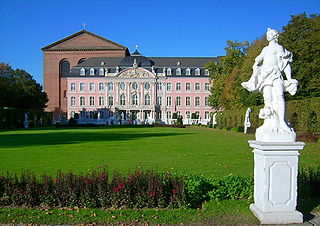 4
Adam Ferdinand Dietz, auch Ferdinand Tietz war ein deutscher Bildhauer des Rokoko. Er war an fünf Fürstensitzen als Hofbildhauer tätig: Bamberg (1749–1754), Würzburg (1736–1754) Trier, Speyer und...
4
Adam Ferdinand Dietz, auch Ferdinand Tietz war ein deutscher Bildhauer des Rokoko. Er war an fünf Fürstensitzen als Hofbildhauer tätig: Bamberg (1749–1754), Würzburg (1736–1754) Trier, Speyer und...
Albrecht Goes
 4
Albrecht Goes was a German writer and Protestant theologian.
4
Albrecht Goes was a German writer and Protestant theologian.
Franz Leuninger
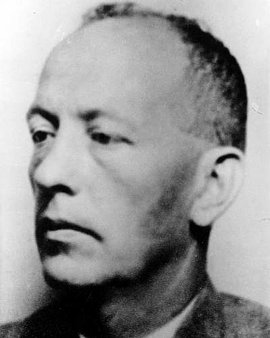 4
Franz Leuninger was a German trade unionist, politician and resistant against the Nazis' rise to power and regime. Working as a bricklayer after school, he became a member of the trade union for...
4
Franz Leuninger was a German trade unionist, politician and resistant against the Nazis' rise to power and regime. Working as a bricklayer after school, he became a member of the trade union for...
Ernst von Harnack
 4
Ernst Wolf Alexander Oskar Harnack, granted the title von Harnack in 1914, was an official of the Prussian provincial government, a German politician, and a German Resistance fighter. He was...
4
Ernst Wolf Alexander Oskar Harnack, granted the title von Harnack in 1914, was an official of the Prussian provincial government, a German politician, and a German Resistance fighter. He was...
Adolf Dassler
 4
Adolf "Adi" Dassler was a German cobbler, inventor, member of the Nazi party, and businessman who founded the German sportswear company Adidas. He was also the younger brother of Rudolf Dassler,...
4
Adolf "Adi" Dassler was a German cobbler, inventor, member of the Nazi party, and businessman who founded the German sportswear company Adidas. He was also the younger brother of Rudolf Dassler,...
Meinrad Spieß
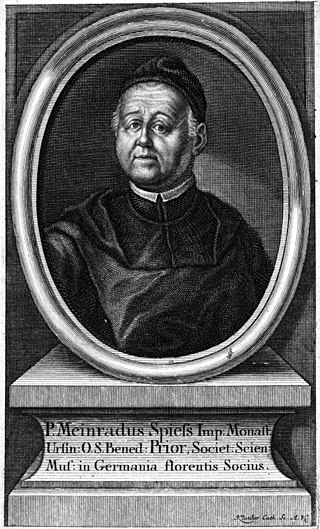 4
Meinrad Spieß, eigentlich Matthäus Spieß war ein deutscher Benediktinermönch und Komponist.
4
Meinrad Spieß, eigentlich Matthäus Spieß war ein deutscher Benediktinermönch und Komponist.
Peter Klöckner
 4
Peter Klöckner was a German businessman and industrialist.
4
Peter Klöckner was a German businessman and industrialist.
Ludwig Nüdling
 4
Ludwig Nüdling war ein katholischer Priester im Bistum Fulda, der sich der Heimatdichtung widmete.
4
Ludwig Nüdling war ein katholischer Priester im Bistum Fulda, der sich der Heimatdichtung widmete.
Ernst Behrens (Schriftsteller)
 4
Ernst Behrens war ein deutscher Heimatdichter und Schriftsteller des Niederdeutschen. Er verfasste amüsante Geschichten, deren Themen zum größten Teil aus seiner engeren Heimat stammten.
4
Ernst Behrens war ein deutscher Heimatdichter und Schriftsteller des Niederdeutschen. Er verfasste amüsante Geschichten, deren Themen zum größten Teil aus seiner engeren Heimat stammten.
Heinrich Hofmann (painter)
 4
Johann Michael Ferdinand Heinrich Hofmann was a German painter of the late 19th to early 20th century. He was the uncle of the German painter Ludwig von Hofmann. He was born in Darmstadt and died in...
4
Johann Michael Ferdinand Heinrich Hofmann was a German painter of the late 19th to early 20th century. He was the uncle of the German painter Ludwig von Hofmann. He was born in Darmstadt and died in...
Karl Philipp Moritz
 4
Karl Philipp Moritz was a German author, editor and essayist of the Sturm und Drang, late Enlightenment, and classicist periods, influencing early German Romanticism as well. He led a life as a...
4
Karl Philipp Moritz was a German author, editor and essayist of the Sturm und Drang, late Enlightenment, and classicist periods, influencing early German Romanticism as well. He led a life as a...
Angelica Kauffman
 4
Maria Anna Angelika Kauffmann, usually known in English as Angelica Kauffman, was a Swiss Neoclassical painter who had a successful career in London and Rome. Remembered primarily as a history...
4
Maria Anna Angelika Kauffmann, usually known in English as Angelica Kauffman, was a Swiss Neoclassical painter who had a successful career in London and Rome. Remembered primarily as a history...
Hansel and Gretel
 4
"Hansel and Gretel" is a German fairy tale collected by the Brothers Grimm and published in 1812 as part of Grimms' Fairy Tales. It is also known as Little Step Brother and Little Step Sister.
4
"Hansel and Gretel" is a German fairy tale collected by the Brothers Grimm and published in 1812 as part of Grimms' Fairy Tales. It is also known as Little Step Brother and Little Step Sister.
Anton Wurzer
 4
Anton Wurzer war ein deutscher Lehrer und Oberpfälzer Mundart- und Heimatdichter.
4
Anton Wurzer war ein deutscher Lehrer und Oberpfälzer Mundart- und Heimatdichter.
Gertrud Luckner
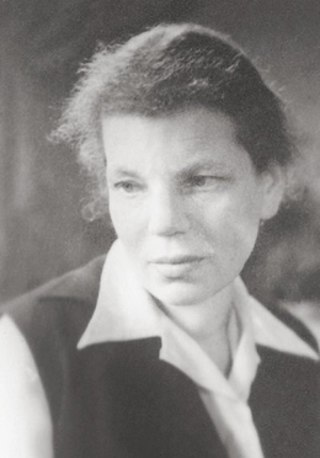 4
Gertrud Luckner was a Christian social worker involved in the German resistance to Nazism.
A member of the banned German Catholic Peace Movement, she organised food packages for Jews deported to...
4
Gertrud Luckner was a Christian social worker involved in the German resistance to Nazism.
A member of the banned German Catholic Peace Movement, she organised food packages for Jews deported to...
Georges Bizet
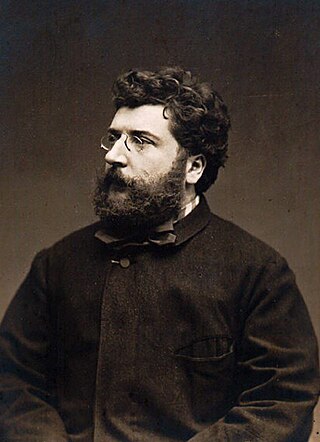 3
Georges Bizet was a French composer of the Romantic era. Best known for his operas in a career cut short by his early death, Bizet achieved few successes before his final work, Carmen, which has...
3
Georges Bizet was a French composer of the Romantic era. Best known for his operas in a career cut short by his early death, Bizet achieved few successes before his final work, Carmen, which has...
Michelangelo
 3
Michelangelo di Lodovico Buonarroti Simoni, known mononymously as Michelangelo, was an Italian sculptor, painter, architect, and poet of the High Renaissance. Born in the Republic of Florence, his...
3
Michelangelo di Lodovico Buonarroti Simoni, known mononymously as Michelangelo, was an Italian sculptor, painter, architect, and poet of the High Renaissance. Born in the Republic of Florence, his...
Frédéric Joliot-Curie
 3
Jean Frédéric Joliot-Curie was a French physicist and husband of Irène Joliot-Curie, with whom he was jointly awarded the Nobel Prize in Chemistry in 1935 for their discovery of induced...
3
Jean Frédéric Joliot-Curie was a French physicist and husband of Irène Joliot-Curie, with whom he was jointly awarded the Nobel Prize in Chemistry in 1935 for their discovery of induced...
Horst Heilmann
 3
Horst Heilmann was a German resistance fighter against the Nazi regime. He was a member of the anti-fascist resistance group that formed around Harro Schulze-Boysen in 1940. Later, the people of the...
3
Horst Heilmann was a German resistance fighter against the Nazi regime. He was a member of the anti-fascist resistance group that formed around Harro Schulze-Boysen in 1940. Later, the people of the...
Adam Mickiewicz
 3
Adam Bernard Mickiewicz was a Polish poet, dramatist, essayist, publicist, translator and political activist. He is regarded as national poet in Poland, Lithuania and Belarus. He also largely...
3
Adam Bernard Mickiewicz was a Polish poet, dramatist, essayist, publicist, translator and political activist. He is regarded as national poet in Poland, Lithuania and Belarus. He also largely...
Mahatma Gandhi
 3
Mohandas Karamchand Gandhi was an Indian lawyer, anti-colonial nationalist and political ethicist who employed nonviolent resistance to lead the successful campaign for India's independence from...
3
Mohandas Karamchand Gandhi was an Indian lawyer, anti-colonial nationalist and political ethicist who employed nonviolent resistance to lead the successful campaign for India's independence from...
Miguel de Cervantes
 3
Miguel de Cervantes Saavedra was an Early Modern Spanish writer widely regarded as the greatest writer in the Spanish language and one of the world's pre-eminent novelists. He is best known for his...
3
Miguel de Cervantes Saavedra was an Early Modern Spanish writer widely regarded as the greatest writer in the Spanish language and one of the world's pre-eminent novelists. He is best known for his...
Jules Verne
 3
Jules Gabriel Verne was a French novelist, poet, and playwright. His collaboration with the publisher Pierre-Jules Hetzel led to the creation of the Voyages extraordinaires, a series of bestselling...
3
Jules Gabriel Verne was a French novelist, poet, and playwright. His collaboration with the publisher Pierre-Jules Hetzel led to the creation of the Voyages extraordinaires, a series of bestselling...
Karlrobert Kreiten
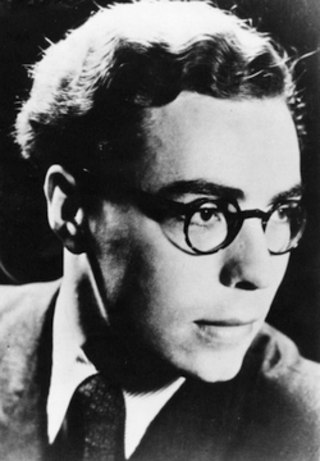 3
Karlrobert Kreiten was a German pianist, albeit holding Dutch citizenship his entire life due to his Dutch father.
3
Karlrobert Kreiten was a German pianist, albeit holding Dutch citizenship his entire life due to his Dutch father.
Bernhardt Holtermann
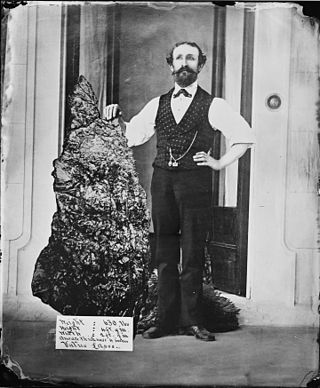 3
Bernhardt Otto Holtermann was a successful gold miner, businessman, politician and photographer in Australia. Perhaps his greatest claim to fame is his association with the Holtermann Nugget, the...
3
Bernhardt Otto Holtermann was a successful gold miner, businessman, politician and photographer in Australia. Perhaps his greatest claim to fame is his association with the Holtermann Nugget, the...
Auguste Förster
 3
Auguste Förster was a German educationalist and activist in the bourgeois women's movement. She was founder of the Kassel Organization of Women's Groups.
3
Auguste Förster was a German educationalist and activist in the bourgeois women's movement. She was founder of the Kassel Organization of Women's Groups.
Ernst Zimmermann
 3
Ernst Christoph Philipp Zimmermann was a German classical philologist and theologian. He was the brother of theologian Karl Zimmermann (1803–1877).
3
Ernst Christoph Philipp Zimmermann was a German classical philologist and theologian. He was the brother of theologian Karl Zimmermann (1803–1877).
Hanno Günther
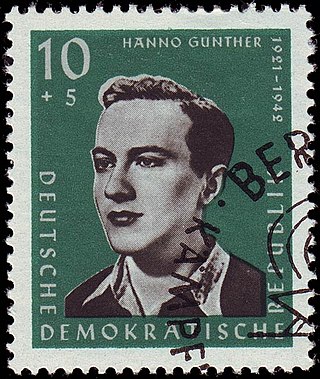 3
Hanno Günther, eigentlich Hans-Joachim Günther, war ein deutscher kommunistischer Widerstandskämpfer gegen den Nationalsozialismus.
3
Hanno Günther, eigentlich Hans-Joachim Günther, war ein deutscher kommunistischer Widerstandskämpfer gegen den Nationalsozialismus.
Orlando di Lasso
 3
Orlando di Lasso was a composer of the late Renaissance. The chief representative of the mature polyphonic style in the Franco-Flemish school, Lassus stands with William Byrd, Giovanni Pierluigi da...
3
Orlando di Lasso was a composer of the late Renaissance. The chief representative of the mature polyphonic style in the Franco-Flemish school, Lassus stands with William Byrd, Giovanni Pierluigi da...
Heinrich Reimers
 3
Heinrich Reimers war ein deutscher evangelischer Geistlicher und Publizist.
3
Heinrich Reimers war ein deutscher evangelischer Geistlicher und Publizist.
Luke the Evangelist
 3
Luke the Evangelist is one of the Four Evangelists—the four traditionally ascribed authors of the canonical gospels. The Early Church Fathers ascribed to him authorship of both the Gospel of Luke and...
3
Luke the Evangelist is one of the Four Evangelists—the four traditionally ascribed authors of the canonical gospels. The Early Church Fathers ascribed to him authorship of both the Gospel of Luke and...
Wilhelm Heusel
 3
Wilhelm Heusel war ein deutscher Wirtschaftsführer.
3
Wilhelm Heusel war ein deutscher Wirtschaftsführer.
Willi Daume
 3
Willi Daume war ein deutscher Unternehmer, Sportler und Sportfunktionär. Er war in den 1930er Jahren deutscher Nationalspieler im Basketball und Feldhandball und bei den Olympischen Sommerspielen in...
3
Willi Daume war ein deutscher Unternehmer, Sportler und Sportfunktionär. Er war in den 1930er Jahren deutscher Nationalspieler im Basketball und Feldhandball und bei den Olympischen Sommerspielen in...
Peter Waldo
 3
Peter Waldo was the leader of the Waldensians, a Christian spiritual movement of the Middle Ages.
3
Peter Waldo was the leader of the Waldensians, a Christian spiritual movement of the Middle Ages.
Karl Ritter von Halt
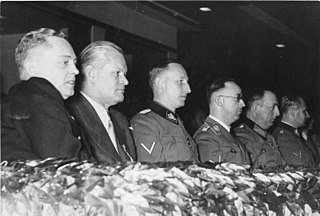 3
Dr Karl Ritter von Halt, born Karl Ferdinand Halt was a sport official in Nazi Germany and the German Federal Republic. He was born and died in Munich.
3
Dr Karl Ritter von Halt, born Karl Ferdinand Halt was a sport official in Nazi Germany and the German Federal Republic. He was born and died in Munich.
Josephine Lang
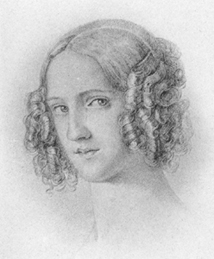 3
Josephine Caroline Lang was a German composer. Josephine Lang was the daughter of Theobald Lang, a violinist, and Regina Hitzelberger, opera singer. Her mother taught young Josephine how to play...
3
Josephine Caroline Lang was a German composer. Josephine Lang was the daughter of Theobald Lang, a violinist, and Regina Hitzelberger, opera singer. Her mother taught young Josephine how to play...
Alexander Graham Bell
 3
Alexander Graham Bell was a Scottish-born Canadian-American inventor, scientist and engineer who is credited with patenting the first practical telephone. He also co-founded the American Telephone...
3
Alexander Graham Bell was a Scottish-born Canadian-American inventor, scientist and engineer who is credited with patenting the first practical telephone. He also co-founded the American Telephone...
Georg Kolbe
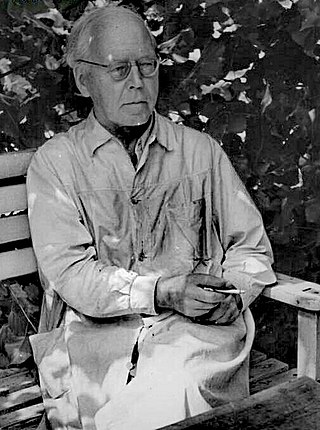 3
Georg Kolbe was a German sculptor. He was the leading German figure sculptor of his generation, in a vigorous, modern, simplified classical style similar to Aristide Maillol of France.
3
Georg Kolbe was a German sculptor. He was the leading German figure sculptor of his generation, in a vigorous, modern, simplified classical style similar to Aristide Maillol of France.
Fritz Jöde
 3
Fritz Jöde was a German music educator and one of the leading figures in the Jugendmusikbewegung.
3
Fritz Jöde was a German music educator and one of the leading figures in the Jugendmusikbewegung.
Archduke Charles Stephen of Austria
 3
Archduke Charles Stephen Eugene Viktor Felix Maria of Austria was a member of the House of Habsburg, a Grand Admiral in the Austro-Hungarian Navy and candidate for the Polish crown.
3
Archduke Charles Stephen Eugene Viktor Felix Maria of Austria was a member of the House of Habsburg, a Grand Admiral in the Austro-Hungarian Navy and candidate for the Polish crown.
Goliath
 3
Goliath is a Philistine warrior in the Book of Samuel. Descriptions of Goliath's immense stature vary among biblical sources, with the Masoretic Text describing him as 9 feet 9 inches (2.97 m) tall....
3
Goliath is a Philistine warrior in the Book of Samuel. Descriptions of Goliath's immense stature vary among biblical sources, with the Masoretic Text describing him as 9 feet 9 inches (2.97 m) tall....
Ernst Koch (Schriftsteller)
 3
Ernst Wilhelm August Peter Koch war ein deutscher Dichterjurist in der Zeit der Romantik; Pseudonyme: Eduard Helmer, Leonhard Emil Hubert, Hubertus.
3
Ernst Wilhelm August Peter Koch war ein deutscher Dichterjurist in der Zeit der Romantik; Pseudonyme: Eduard Helmer, Leonhard Emil Hubert, Hubertus.
Hans Kohlhase
 3
Hans Kohlhase, according to early modern German accounts, was a merchant whose grievance against a Saxon nobleman developed into a full-blown feud against the state of Saxony, thus infringing the...
3
Hans Kohlhase, according to early modern German accounts, was a merchant whose grievance against a Saxon nobleman developed into a full-blown feud against the state of Saxony, thus infringing the...
Nikolaus Eseler der Ältere
 3
Nikolaus Eseler der Ältere war ein spätgotischer Baumeister aus dem süddeutschen Raum.
3
Nikolaus Eseler der Ältere war ein spätgotischer Baumeister aus dem süddeutschen Raum.
Walter Bruch
 3
Walter Bruch was a German electrical engineer and pioneer of German television. He was the inventor of Closed-circuit television. He invented the PAL colour television system at Telefunken in the...
3
Walter Bruch was a German electrical engineer and pioneer of German television. He was the inventor of Closed-circuit television. He invented the PAL colour television system at Telefunken in the...
Fritz Rau
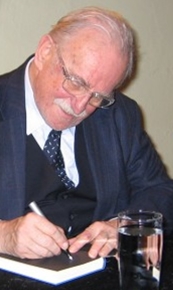 3
Fritz Rau was a German music promoter, who was influential in the development of the appreciation of jazz and blues music in Europe in the 1950s and 1960s, and has since been a leading promoter of...
3
Fritz Rau was a German music promoter, who was influential in the development of the appreciation of jazz and blues music in Europe in the 1950s and 1960s, and has since been a leading promoter of...
Heinrich August Wilhelm Meyer
 3
Heinrich August Wilhelm Meyer was a German Protestant divine. He wrote commentaries on the New Testament and published an edition of that book.
3
Heinrich August Wilhelm Meyer was a German Protestant divine. He wrote commentaries on the New Testament and published an edition of that book.
House of Hatzfeld
 3
The House of Hatzfeld, also spelled House of Hatzfeldt, is the name of an ancient and influential German noble family, whose members played important roles in the history of the Holy Roman Empire,...
3
The House of Hatzfeld, also spelled House of Hatzfeldt, is the name of an ancient and influential German noble family, whose members played important roles in the history of the Holy Roman Empire,...
Gustav Waldau
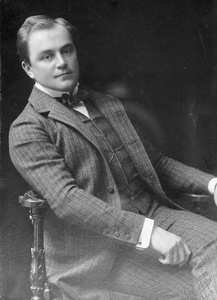 3
Gustav Waldau was a German actor. He appeared in more than 100 films between 1915 and 1955.
3
Gustav Waldau was a German actor. He appeared in more than 100 films between 1915 and 1955.
Franz Josef Degenhardt
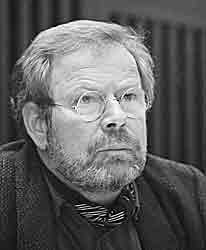 3
Franz Josef Degenhardt was a German poet, satirist, novelist, and – first and foremost – a folksinger/songwriter (Liedermacher) with decidedly left-wing politics. He was also a lawyer, bearing the...
3
Franz Josef Degenhardt was a German poet, satirist, novelist, and – first and foremost – a folksinger/songwriter (Liedermacher) with decidedly left-wing politics. He was also a lawyer, bearing the...
Edmund Husserl
 3
Edmund Gustav Albrecht Husserl was an Austrian-German philosopher and mathematician who established the school of phenomenology.
3
Edmund Gustav Albrecht Husserl was an Austrian-German philosopher and mathematician who established the school of phenomenology.
Franz Keller (psychologist)
 3
Franz Keller was a Swiss psychologist, Christian pacifist and left-wing news editor (Zeitdienst).
3
Franz Keller was a Swiss psychologist, Christian pacifist and left-wing news editor (Zeitdienst).
Rita Maiburg
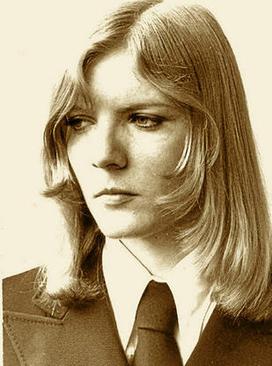 3
Rita Maiburg was a German airline pilot. She was the world's first female captain of a commercial passenger airliner.
3
Rita Maiburg was a German airline pilot. She was the world's first female captain of a commercial passenger airliner.
Jean Arp
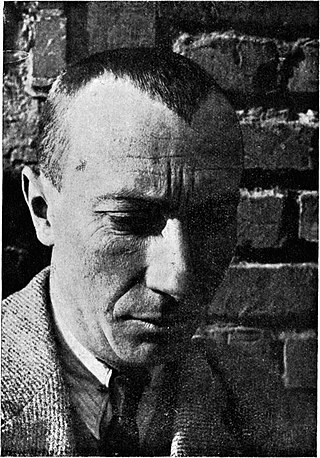 3
Hans Peter Wilhelm Arp, better known as Jean Arp in English, was a German-French sculptor, painter and poet. He was known as a Dadaist and an abstract artist.
3
Hans Peter Wilhelm Arp, better known as Jean Arp in English, was a German-French sculptor, painter and poet. He was known as a Dadaist and an abstract artist.
Karl Stülpner
 3
Karl Stülpner, eigentlich Carl Heinrich Stilpner, war ein erzgebirgischer Soldat, Wilderer, Schmuggler, Fabrikant und Lebenskünstler.
3
Karl Stülpner, eigentlich Carl Heinrich Stilpner, war ein erzgebirgischer Soldat, Wilderer, Schmuggler, Fabrikant und Lebenskünstler.
Robert Stock (businessman)
 3
Carl Christian Robert Stock was a German entrepreneur and telecommunications pioneer.
3
Carl Christian Robert Stock was a German entrepreneur and telecommunications pioneer.
Gerhard Küntscher
 3
Gerhard Küntscher was a German surgeon who inaugurated the intramedullary nailing of long bone fractures.
3
Gerhard Küntscher was a German surgeon who inaugurated the intramedullary nailing of long bone fractures.
Saint Valentine
 3
Saint Valentine was a 3rd-century Roman saint, commemorated in Western Christianity on February 14 and in Eastern Orthodoxy on July 6. From the High Middle Ages, his feast day has been associated...
3
Saint Valentine was a 3rd-century Roman saint, commemorated in Western Christianity on February 14 and in Eastern Orthodoxy on July 6. From the High Middle Ages, his feast day has been associated...
Hermann Daur
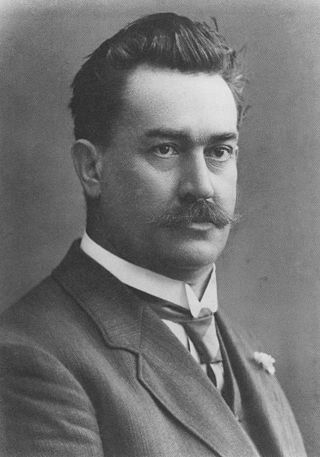 3
Albert Hermann Daur war ein deutscher Maler und Graphiker.
3
Albert Hermann Daur war ein deutscher Maler und Graphiker.
Adolf Glattacker
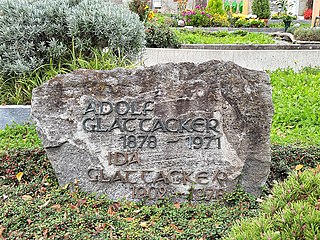 3
Adolf Glattacker war ein deutscher Maler und Zeichner. Bekannt wurde er als Heimatmaler des Markgräflerlandes.
3
Adolf Glattacker war ein deutscher Maler und Zeichner. Bekannt wurde er als Heimatmaler des Markgräflerlandes.
Albert Camus
 3
Albert Camus was a French philosopher, author, dramatist, journalist, world federalist, and political activist. He was the recipient of the 1957 Nobel Prize in Literature at the age of 44, the...
3
Albert Camus was a French philosopher, author, dramatist, journalist, world federalist, and political activist. He was the recipient of the 1957 Nobel Prize in Literature at the age of 44, the...
Johann Maier
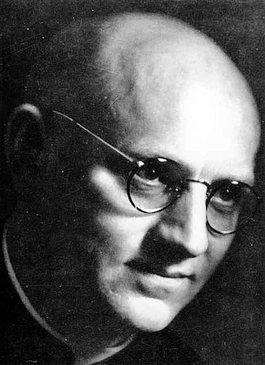 3
Johann Maier was from 1939 until his death a Catholic priest at Regensburg Cathedral.
On 22 April 1945, Reich Defense Commissioner Ludwig Ruckdeschel took city defence to the extreme in Regensburg...
3
Johann Maier was from 1939 until his death a Catholic priest at Regensburg Cathedral.
On 22 April 1945, Reich Defense Commissioner Ludwig Ruckdeschel took city defence to the extreme in Regensburg...
Hermann Bauer
 3
Hermann Bauer was a German naval officer who served as commander of the U-boat forces of the Kaiserliche Marine during World War I. In addition to his World War I career, Bauer is well known as the...
3
Hermann Bauer was a German naval officer who served as commander of the U-boat forces of the Kaiserliche Marine during World War I. In addition to his World War I career, Bauer is well known as the...
Karl Nahrgang
 3
Karl Nahrgang war ein deutscher Heimatforscher, Kreisbodendenkmalpfleger, Gründer und Leiter des Dreieich-Museums und Archäologe. Er ist der Begründer der Heimatmuseen in Dreieichenhain und...
3
Karl Nahrgang war ein deutscher Heimatforscher, Kreisbodendenkmalpfleger, Gründer und Leiter des Dreieich-Museums und Archäologe. Er ist der Begründer der Heimatmuseen in Dreieichenhain und...
Pelagius
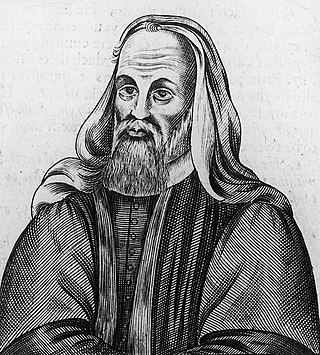 3
Pelagius was a British theologian known for promoting a system of doctrines which emphasized human choice in salvation and denied original sin. Pelagius was accused of heresy at the synod of...
3
Pelagius was a British theologian known for promoting a system of doctrines which emphasized human choice in salvation and denied original sin. Pelagius was accused of heresy at the synod of...
Fritz Fischer
 3
Fritz Fischer may refer to:Fritz Fischer (historian) (1908–1999), German historian
Fritz Fischer (1912–2003), Waffen-SS doctor
Fritz Fischer (biathlete), German biathlete
Fritz Fischer (physicist)...
3
Fritz Fischer may refer to:Fritz Fischer (historian) (1908–1999), German historian
Fritz Fischer (1912–2003), Waffen-SS doctor
Fritz Fischer (biathlete), German biathlete
Fritz Fischer (physicist)...
Heinrich Ritter
 3
Heinrich August Ritter was a German philosopher and historian of philosophy.
3
Heinrich August Ritter was a German philosopher and historian of philosophy.
Jörg Zürn
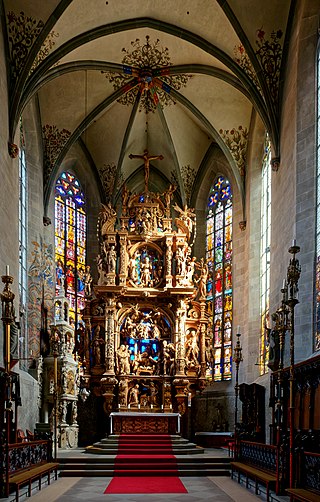 3
Jörg Zürn stammt aus einer im 16. Jahrhundert in Oberschwaben tätigen Familie von Bildhauern und Schnitzern. Er war der älteste Sohn des Bildhauers Hans Zürn des Älteren.
3
Jörg Zürn stammt aus einer im 16. Jahrhundert in Oberschwaben tätigen Familie von Bildhauern und Schnitzern. Er war der älteste Sohn des Bildhauers Hans Zürn des Älteren.
Josef Giggenbach
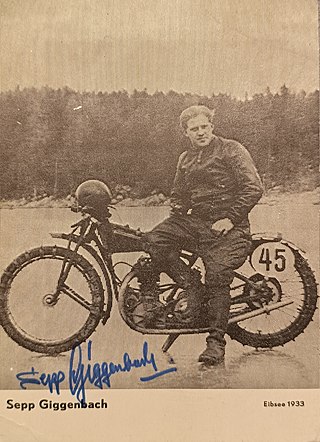 3
Josef „Sepp“ Giggenbach war ein deutscher Motorradrennfahrer. Er trat hauptsächlich auf der Sand-, Gras- und Eisbahn an, und fuhr auch Berg- und Straßenrennen.
3
Josef „Sepp“ Giggenbach war ein deutscher Motorradrennfahrer. Er trat hauptsächlich auf der Sand-, Gras- und Eisbahn an, und fuhr auch Berg- und Straßenrennen.
Emil Rathenau
 3
Emil Moritz Rathenau was a German entrepreneur, industrialist, mechanical engineer. He was a leading figure in the early European electrical industry and founder of AEG.
3
Emil Moritz Rathenau was a German entrepreneur, industrialist, mechanical engineer. He was a leading figure in the early European electrical industry and founder of AEG.
Hermann-Eberhard Wildermuth
 3
Hermann-Eberhard Wildermuth was a German politician and a member of the FDP/DVP. From 1949 until his death he was the Federal Minister for Housing under Konrad Adenauer. During World War II...
3
Hermann-Eberhard Wildermuth was a German politician and a member of the FDP/DVP. From 1949 until his death he was the Federal Minister for Housing under Konrad Adenauer. During World War II...
Helmuth James von Moltke
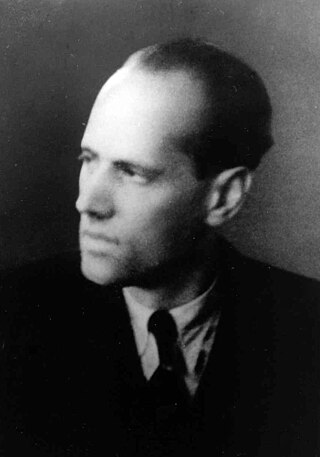 3
Helmuth James Graf von Moltke was a German jurist who, as a draftee in the German Abwehr, acted to subvert German human-rights abuses of people in territories occupied by Germany during World War II....
3
Helmuth James Graf von Moltke was a German jurist who, as a draftee in the German Abwehr, acted to subvert German human-rights abuses of people in territories occupied by Germany during World War II....
Heinrich Werner (composer)
 3
Heinrich Werner was a German composer.
3
Heinrich Werner was a German composer.
Karl Maybach
 3
Karl Maybach war ein deutscher Konstrukteur.
3
Karl Maybach war ein deutscher Konstrukteur.
Adolf Wächter (Politiker)
 3
Adolf Wächter war Geheimer Rat, Rechtsrat sowie Oberbürgermeister und Ehrenbürger der Stadt Bamberg.
3
Adolf Wächter war Geheimer Rat, Rechtsrat sowie Oberbürgermeister und Ehrenbürger der Stadt Bamberg.
Jakob Maier
 3
Jakob Maier war ein deutscher Kunstmaler, Fotograf und Landwirt.
3
Jakob Maier war ein deutscher Kunstmaler, Fotograf und Landwirt.
Matthias Corvinus
 3
Matthias Corvinus was King of Hungary and Croatia from 1458 to 1490, as Matthias I. After conducting several military campaigns, he was elected King of Bohemia in 1469 and adopted the title Duke of...
3
Matthias Corvinus was King of Hungary and Croatia from 1458 to 1490, as Matthias I. After conducting several military campaigns, he was elected King of Bohemia in 1469 and adopted the title Duke of...
Georg von der Vring
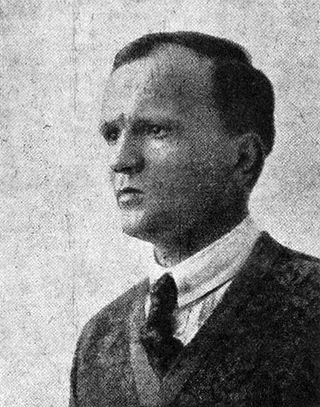 3
Georg von der Vring war ein deutscher Schriftsteller und Maler.
3
Georg von der Vring war ein deutscher Schriftsteller und Maler.
Walter Bauer
 3
Walter Bauer was a German theologian, lexicographer of New Testament Greek, and scholar of the development of Early Christianity.
3
Walter Bauer was a German theologian, lexicographer of New Testament Greek, and scholar of the development of Early Christianity.
Anton Jaumann
 3
Anton Jaumann war ein deutscher Jurist und Politiker der CSU.
3
Anton Jaumann war ein deutscher Jurist und Politiker der CSU.
Maria Mönch-Tegeder
 3
Maria Mönch-Tegeder war eine deutsche Dichterin.
3
Maria Mönch-Tegeder war eine deutsche Dichterin.
Karl Hermann Frank
 3
Karl Hermann Frank was a Sudeten German Nazi official in the Protectorate of Bohemia and Moravia prior to and during World War II. Attaining the rank of Obergruppenführer, he was in command of the...
3
Karl Hermann Frank was a Sudeten German Nazi official in the Protectorate of Bohemia and Moravia prior to and during World War II. Attaining the rank of Obergruppenführer, he was in command of the...
Poppe Folkerts
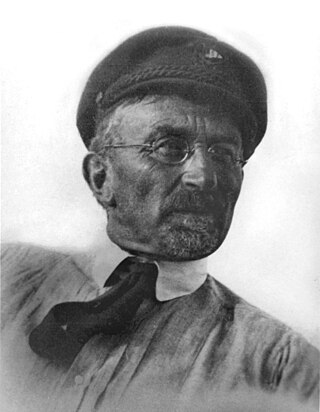 3
Poppe Folkerts war einer der bedeutendsten deutschen Marinemaler, Zeichner und Grafiker.
3
Poppe Folkerts war einer der bedeutendsten deutschen Marinemaler, Zeichner und Grafiker.
Irmtraud Morgner
 3
Irmtraud Morgner was a German writer, best known for works of magical realism concerned predominantly with the role of gender in East German society.
3
Irmtraud Morgner was a German writer, best known for works of magical realism concerned predominantly with the role of gender in East German society.
Martin Bucer
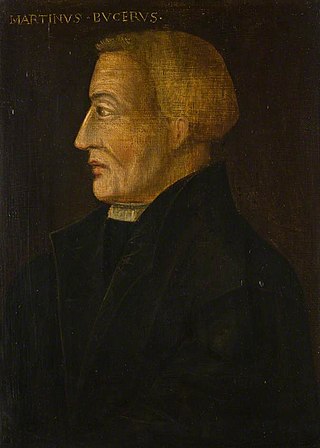 3
Martin Bucer was a German Protestant reformer based in Strasbourg who influenced Lutheran, Calvinist, and Anglican doctrines and practices. Bucer was originally a member of the Dominican Order, but...
3
Martin Bucer was a German Protestant reformer based in Strasbourg who influenced Lutheran, Calvinist, and Anglican doctrines and practices. Bucer was originally a member of the Dominican Order, but...
Neidhart von Reuental
 3
Neidhart c. 1190 – c. 1240 was one of the most famous Minnesänger. With around 1500 documented strophes of his songs surviving, Neidhart has the largest corpus of surviving lyrics of any Minnesänger,...
3
Neidhart c. 1190 – c. 1240 was one of the most famous Minnesänger. With around 1500 documented strophes of his songs surviving, Neidhart has the largest corpus of surviving lyrics of any Minnesänger,...
Friedrich Flick
Salvador Dalí
 3
Salvador Domingo Felipe Jacinto Dalí i Domènech, Marquess of Dalí of Púbol, known as Salvador Dalí, was a Spanish surrealist artist renowned for his technical skill, precise draftsmanship, and the...
3
Salvador Domingo Felipe Jacinto Dalí i Domènech, Marquess of Dalí of Púbol, known as Salvador Dalí, was a Spanish surrealist artist renowned for his technical skill, precise draftsmanship, and the...
Xaver Fuhr
 3
Franz Xaver Fuhr war ein deutscher Maler, der nach 1920 in Mannheim arbeitete. Seine Werke galten in der Zeit des Nationalsozialismus als entartet und wurden 1937 teilweise beschlagnahmt. Nach 1943...
3
Franz Xaver Fuhr war ein deutscher Maler, der nach 1920 in Mannheim arbeitete. Seine Werke galten in der Zeit des Nationalsozialismus als entartet und wurden 1937 teilweise beschlagnahmt. Nach 1943...
Käthe Miethe
 3
Käthe Miethe war eine deutsche Journalistin, Schriftstellerin und Übersetzerin.
3
Käthe Miethe war eine deutsche Journalistin, Schriftstellerin und Übersetzerin.
Josef Suwelack (Unternehmer)
 3
Josef Suwelack war ein deutscher Unternehmer und Firmengründer in der Gründerzeit. Er ist der Vater des Jagdfliegers Josef Suwelack. Nach ihm wurde in Billerbeck die Josef-Suwelack-Straße benannt.
3
Josef Suwelack war ein deutscher Unternehmer und Firmengründer in der Gründerzeit. Er ist der Vater des Jagdfliegers Josef Suwelack. Nach ihm wurde in Billerbeck die Josef-Suwelack-Straße benannt.
Francis Xavier
 3
Francis Xavier, SJ, venerated as Saint Francis Xavier, was a Spanish Catholic missionary and saint who co-founded the Society of Jesus and, as a representative of the Portuguese Empire, led the first...
3
Francis Xavier, SJ, venerated as Saint Francis Xavier, was a Spanish Catholic missionary and saint who co-founded the Society of Jesus and, as a representative of the Portuguese Empire, led the first...
Richard Stücklen
 3
Richard Stücklen was German politician of the Christian Social Union (CSU). He had previously been a member of the NSDAP (1939–1945). From 1957 to 1966, he served as Federal Minister for Post and...
3
Richard Stücklen was German politician of the Christian Social Union (CSU). He had previously been a member of the NSDAP (1939–1945). From 1957 to 1966, he served as Federal Minister for Post and...
Johann Eck
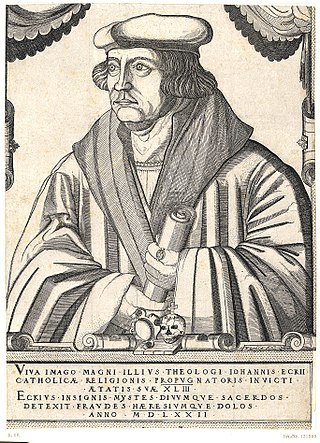 3
Johann Maier von Eck, often anglicized as John Eck, was a German Catholic theologian, scholastic, prelate, and a pioneer of the counter-reformation who was among Martin Luther's most important...
3
Johann Maier von Eck, often anglicized as John Eck, was a German Catholic theologian, scholastic, prelate, and a pioneer of the counter-reformation who was among Martin Luther's most important...
Friedrich Stampfer
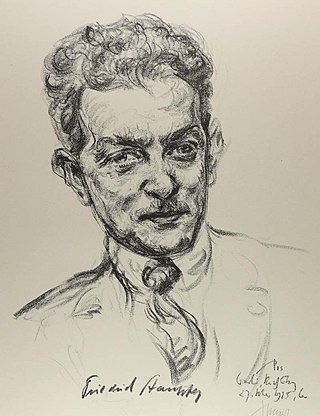 3
Friedrich Stampfer war ein deutscher Journalist und Politiker (SPD).
3
Friedrich Stampfer war ein deutscher Journalist und Politiker (SPD).
Anton von Werner
 3
Anton Alexander von Werner was a German painter known for his history paintings of notable political and military events in the Kingdom of Prussia.
3
Anton Alexander von Werner was a German painter known for his history paintings of notable political and military events in the Kingdom of Prussia.
Loki Schmidt
 3
Hannelore "Loki" Schmidt was a German teacher and environmentalist. She was the wife of Helmut Schmidt, who was the Chancellor of Germany from 1974 to 1982.
3
Hannelore "Loki" Schmidt was a German teacher and environmentalist. She was the wife of Helmut Schmidt, who was the Chancellor of Germany from 1974 to 1982.
Agnes Sapper
 3
Agnes Sapper war neben Johanna Spyri und Ottilie Wildermuth eine der erfolgreichsten und meistgelesenen deutschsprachigen Jugendbuchautorinnen des frühen 20. Jahrhunderts. Allein von ihrem...
3
Agnes Sapper war neben Johanna Spyri und Ottilie Wildermuth eine der erfolgreichsten und meistgelesenen deutschsprachigen Jugendbuchautorinnen des frühen 20. Jahrhunderts. Allein von ihrem...
Stefan Heym
 3
Helmut Flieg was a German writer, known by his pseudonym Stefan Heym. He lived in the United States and trained at Camp Ritchie, making him one of the Ritchie Boys of World War II. In 1952, he...
3
Helmut Flieg was a German writer, known by his pseudonym Stefan Heym. He lived in the United States and trained at Camp Ritchie, making him one of the Ritchie Boys of World War II. In 1952, he...
List of Knight's Cross of the Iron Cross recipients (Sa–Schr)
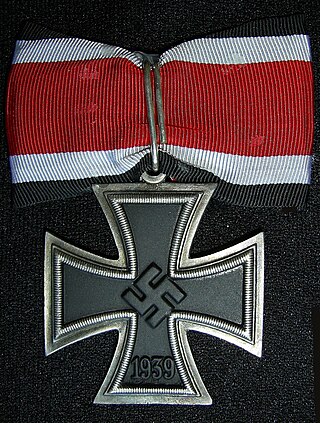 3
The Knight's Cross of the Iron Cross and its variants were the highest awards in the military and paramilitary forces of Nazi Germany during World War II. The Knight's Cross of the Iron Cross was...
3
The Knight's Cross of the Iron Cross and its variants were the highest awards in the military and paramilitary forces of Nazi Germany during World War II. The Knight's Cross of the Iron Cross was...
Hermann Keller
 3
Hermann Keller was a German Protestant church musician and musicologist.
3
Hermann Keller was a German Protestant church musician and musicologist.
Thomas Aquinas
 3
Thomas Aquinas was an Italian Dominican friar and priest, an influential philosopher and theologian, and a jurist in the tradition of scholasticism from the county of Aquino in the Kingdom of Sicily.
3
Thomas Aquinas was an Italian Dominican friar and priest, an influential philosopher and theologian, and a jurist in the tradition of scholasticism from the county of Aquino in the Kingdom of Sicily.
Karl Söhle
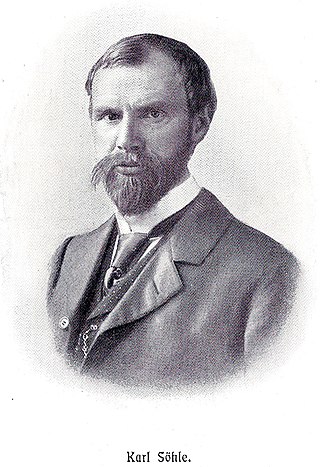 3
Karl Söhle war ein deutscher Schriftsteller, Musikkritiker und Musikprofessor ehrenhalber.
3
Karl Söhle war ein deutscher Schriftsteller, Musikkritiker und Musikprofessor ehrenhalber.
Karl Göbel
 3
Karl Göbel was a general in the Wehrmacht of Nazi Germany during World War II. He was a recipient of the Knight's Cross of the Iron Cross with Oak Leaves. Göbel was wounded on 16 February 1945 in the...
3
Karl Göbel was a general in the Wehrmacht of Nazi Germany during World War II. He was a recipient of the Knight's Cross of the Iron Cross with Oak Leaves. Göbel was wounded on 16 February 1945 in the...
Roider Jackl
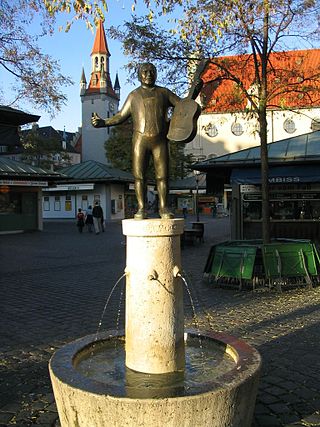 3
Roider Jackl was a German performer, singer, and folk singer, who performed in Bavarian language.
3
Roider Jackl was a German performer, singer, and folk singer, who performed in Bavarian language.
Boing von Oldersum
 3
Boing von Oldersum war ein ostfriesischer Adliger und Verlobter der Maria von Jever.
3
Boing von Oldersum war ein ostfriesischer Adliger und Verlobter der Maria von Jever.
Joseph Otto Kolb
 3
Joseph Otto Kolb war von 1943 bis 1955 Erzbischof von Bamberg.
3
Joseph Otto Kolb war von 1943 bis 1955 Erzbischof von Bamberg.
Rudolf Herzog
 3
Rudolf Herzog war ein deutscher Schriftsteller, Journalist, Dichter und Erzähler. Herzog war zu Beginn des 20. Jahrhunderts ein Bestseller-Autor, die meisten seiner Bücher erreichten Auflagen von...
3
Rudolf Herzog war ein deutscher Schriftsteller, Journalist, Dichter und Erzähler. Herzog war zu Beginn des 20. Jahrhunderts ein Bestseller-Autor, die meisten seiner Bücher erreichten Auflagen von...
Bruno Schönlank (Journalist)
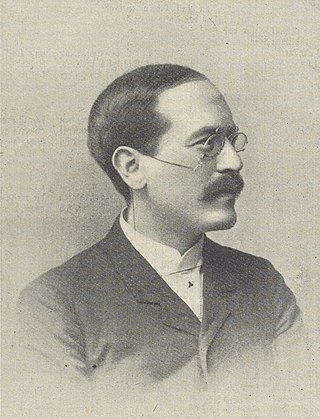 3
Bruno Schönlank, auch Schoenlank war ein sozialdemokratischer deutscher Politiker und Journalist.
3
Bruno Schönlank, auch Schoenlank war ein sozialdemokratischer deutscher Politiker und Journalist.
Albert Haueisen
 3
Albert Haueisen war ein deutscher Maler. Er war ein Spätimpressionist, lehrte an der Kunstakademie Karlsruhe und war Gründungsmitglied der Arbeitsgemeinschaft Pfälzer Künstler.
3
Albert Haueisen war ein deutscher Maler. Er war ein Spätimpressionist, lehrte an der Kunstakademie Karlsruhe und war Gründungsmitglied der Arbeitsgemeinschaft Pfälzer Künstler.
Friedrich Hartmann Graf
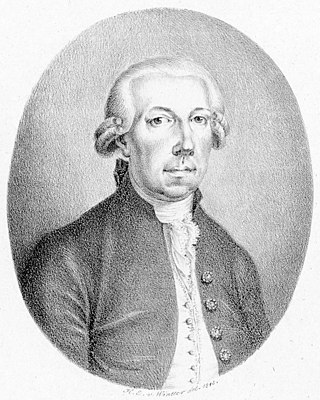 3
Friedrich Hartmann Graf was a German flautist and composer.
3
Friedrich Hartmann Graf was a German flautist and composer.
Heinrich Ruppel
 3
Heinrich Ruppel war ein deutscher Schriftsteller. Der hessische Dichter verfasste Erzählungen, Schnurren und Schwänke.
3
Heinrich Ruppel war ein deutscher Schriftsteller. Der hessische Dichter verfasste Erzählungen, Schnurren und Schwänke.
Sophie Opel
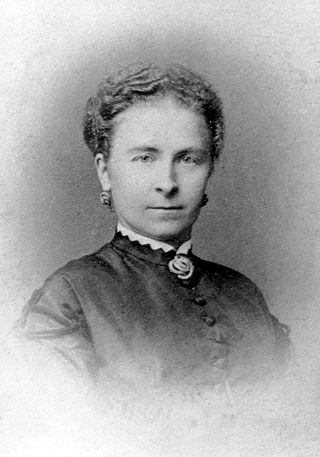 3
Sophie Marie Opel also referred to as Mother Opel was a German industrialist. Under her management and controlling interest Opel transformed from manufacturing sewing machines and bicycles to...
3
Sophie Marie Opel also referred to as Mother Opel was a German industrialist. Under her management and controlling interest Opel transformed from manufacturing sewing machines and bicycles to...
Wilhelm Thielmann
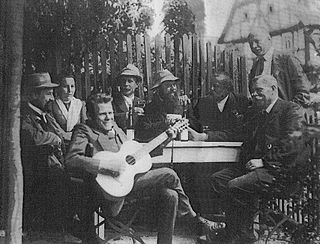 3
Wilhelm Thielmann ging als „Maler und Zeichner der Schwalm“ in die deutsche Kunstgeschichte ein. Er war Mitglied der Willingshäuser Malerkolonie.
3
Wilhelm Thielmann ging als „Maler und Zeichner der Schwalm“ in die deutsche Kunstgeschichte ein. Er war Mitglied der Willingshäuser Malerkolonie.
Lina Staab
 3
Lina Staab war eine deutsche Dichterin.
3
Lina Staab war eine deutsche Dichterin.
Heinrich Blanc
 3
Heinrich Blanc war ein deutscher Unternehmer, der die heute weltweit agierende Unternehmensgruppe Blanco gründete und lange Zeit leitete.
3
Heinrich Blanc war ein deutscher Unternehmer, der die heute weltweit agierende Unternehmensgruppe Blanco gründete und lange Zeit leitete.
Joachim Mähl
 3
Joachim Mähl war ein plattdeutscher Dichter und Lehrer. Er wirkte 35 Jahre von 1854 bis 1889 in Reinfeld als Oberknabenlehrer.
3
Joachim Mähl war ein plattdeutscher Dichter und Lehrer. Er wirkte 35 Jahre von 1854 bis 1889 in Reinfeld als Oberknabenlehrer.
Hans Richter (artist)
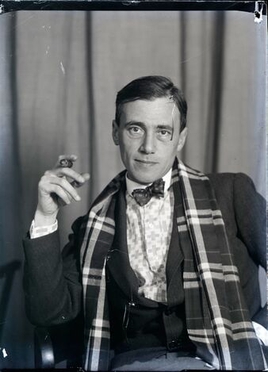 3
Hans Richter was a German Dada painter, graphic artist, avant-garde film producer, and art historian. In 1965 he authored the book Dadaism about the history of the Dada movement.
He was born in...
3
Hans Richter was a German Dada painter, graphic artist, avant-garde film producer, and art historian. In 1965 he authored the book Dadaism about the history of the Dada movement.
He was born in...
Ada Lovelace
 3
Augusta Ada King, Countess of Lovelace was an English mathematician and writer, chiefly known for her work on Charles Babbage's proposed mechanical general-purpose computer, the Analytical Engine....
3
Augusta Ada King, Countess of Lovelace was an English mathematician and writer, chiefly known for her work on Charles Babbage's proposed mechanical general-purpose computer, the Analytical Engine....
Fritz Jaeger (Geograph)
 3
Fritz Jaeger war ein deutscher Geograph und Forschungsreisender. Er wurde später auch Schweizer Bürger.
3
Fritz Jaeger war ein deutscher Geograph und Forschungsreisender. Er wurde später auch Schweizer Bürger.
Luise Albertz
 3
Luise Albertz was a German politician committed, throughout her life, to the Social Democratic Party (SPD). She was a member of the West German Bundestag for two decades, until 1969. However, she was...
3
Luise Albertz was a German politician committed, throughout her life, to the Social Democratic Party (SPD). She was a member of the West German Bundestag for two decades, until 1969. However, she was...
Blandine Merten
 3
Blandine Merten, was a German Ursuline. Merten worked as a teacher from 1902 to 1908 in the secular environment while then serving as a teacher while in the religious life from her first vows...
3
Blandine Merten, was a German Ursuline. Merten worked as a teacher from 1902 to 1908 in the secular environment while then serving as a teacher while in the religious life from her first vows...
Christian Stock
 3
Christian Stock was a German Social Democrat politician and the first Minister-President of the provisional state of Greater Hesse, which had been constituted in the aftermath of World War II.
3
Christian Stock was a German Social Democrat politician and the first Minister-President of the provisional state of Greater Hesse, which had been constituted in the aftermath of World War II.
Marie Eberth
 3
Marie Eberth war eine deutsche Stifterin.
3
Marie Eberth war eine deutsche Stifterin.
Hans Wölfel
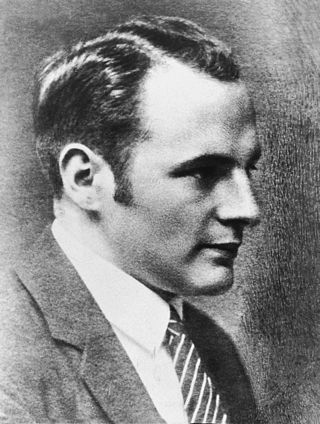 3
Johann Wilhelm Wölfel war ein Jurist. Er wird dem katholisch motivierten Widerstand gegen den Nationalsozialismus zugeordnet.
3
Johann Wilhelm Wölfel war ein Jurist. Er wird dem katholisch motivierten Widerstand gegen den Nationalsozialismus zugeordnet.
Robert Beltz (Prähistoriker)
 3
Robert Karl Ludwig Beltz war ein deutscher Prähistoriker, der vor allem im Gebiet des früheren Landes Mecklenburg tätig war.
3
Robert Karl Ludwig Beltz war ein deutscher Prähistoriker, der vor allem im Gebiet des früheren Landes Mecklenburg tätig war.
Lothar Kreyssig
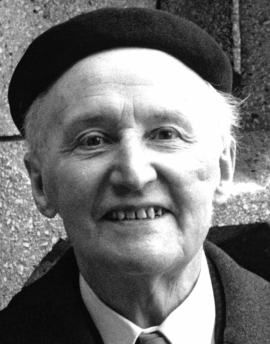 3
Lothar Kreyssig was a German judge during the Weimar and Nazi era. He was the only German judge who attempted to stop the mass-murder of persons deemed "unworthy of living" under the Aktion T4...
3
Lothar Kreyssig was a German judge during the Weimar and Nazi era. He was the only German judge who attempted to stop the mass-murder of persons deemed "unworthy of living" under the Aktion T4...
Ludwig Schwamb
 3
Ludwig Schwamb was a social-democratic jurist and politician who fought against the Nazi dictatorship in Germany as a member of the Kreisau Circle motivated by his Christian beliefs, and as a close...
3
Ludwig Schwamb was a social-democratic jurist and politician who fought against the Nazi dictatorship in Germany as a member of the Kreisau Circle motivated by his Christian beliefs, and as a close...
Hermann Wolf
 3
Hermann Wolf was a flying ace in the Luftwaffe and recipient of the Knight's Cross of the Iron Cross during World War II. The Knight's Cross of the Iron Cross was awarded to recognise extreme...
3
Hermann Wolf was a flying ace in the Luftwaffe and recipient of the Knight's Cross of the Iron Cross during World War II. The Knight's Cross of the Iron Cross was awarded to recognise extreme...
Benedikt Knittel
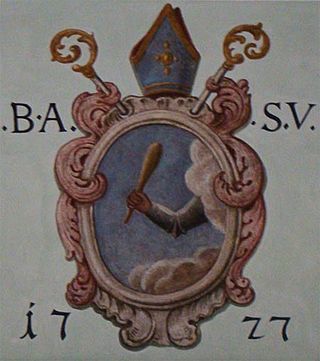 3
Benedikt Knittel war ab 1683 Abt im Kloster Schöntal. Dort trat er durch eine rege Bautätigkeit in Erscheinung, wobei viele der Klostergebäude von Knittel gedichtete Verse mit Chronogrammen...
3
Benedikt Knittel war ab 1683 Abt im Kloster Schöntal. Dort trat er durch eine rege Bautätigkeit in Erscheinung, wobei viele der Klostergebäude von Knittel gedichtete Verse mit Chronogrammen...
Elvis Presley
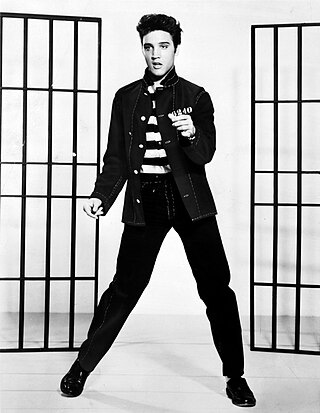 3
Elvis Aaron Presley, also known mononymously as Elvis, was an American singer and actor. Known as the "King of Rock and Roll", he is regarded as one of the most significant cultural figures of the...
3
Elvis Aaron Presley, also known mononymously as Elvis, was an American singer and actor. Known as the "King of Rock and Roll", he is regarded as one of the most significant cultural figures of the...
Heinrich Maria Janssen
 3
Heinrich Maria Janssen war vom 3. Februar 1957 bis 28. Dezember 1982 Bischof von Hildesheim. Er ist der erste Bischof der römisch-katholischen Kirche in Deutschland, der persönlich des sexuellen...
3
Heinrich Maria Janssen war vom 3. Februar 1957 bis 28. Dezember 1982 Bischof von Hildesheim. Er ist der erste Bischof der römisch-katholischen Kirche in Deutschland, der persönlich des sexuellen...
Arno Schmidt
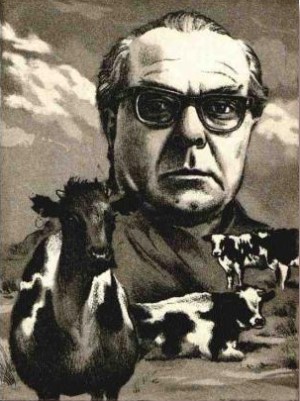 3
Arno Schmidt was a German author and translator. He is little known outside of German-speaking areas, in part because his works present a formidable challenge to translators. Although he is not one...
3
Arno Schmidt was a German author and translator. He is little known outside of German-speaking areas, in part because his works present a formidable challenge to translators. Although he is not one...
Johann Moritz Rugendas
 3
Johann Moritz Rugendas was a German painter, famous in the first half of the 19th century for his works depicting landscapes and ethnographic subjects in several countries in the Americas. Rugendas...
3
Johann Moritz Rugendas was a German painter, famous in the first half of the 19th century for his works depicting landscapes and ethnographic subjects in several countries in the Americas. Rugendas...
List of Knight's Cross of the Iron Cross recipients (Ba–Bm)
 3
The Knight's Cross of the Iron Cross and its variants were the highest awards in the military of Nazi Germany during World War II. The Knight's Cross of the Iron Cross was awarded for a wide range of...
3
The Knight's Cross of the Iron Cross and its variants were the highest awards in the military of Nazi Germany during World War II. The Knight's Cross of the Iron Cross was awarded for a wide range of...
Elisabeth Walter
 3
Elisabeth Walter war eine deutsche Lehrerin und Schriftstellerin.
3
Elisabeth Walter war eine deutsche Lehrerin und Schriftstellerin.
Tobias Mayer
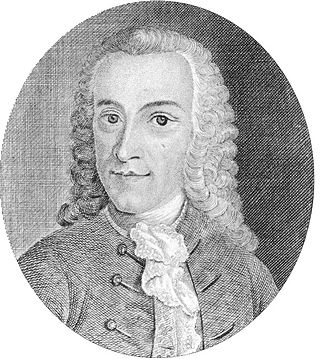 3
Tobias Mayer was a German astronomer famous for his studies of the Moon.
3
Tobias Mayer was a German astronomer famous for his studies of the Moon.
Eva-Maria Buch
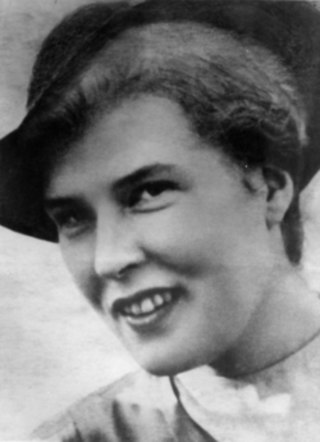 3
Eva-Maria Buch was a resistance fighter against the Nazi régime in Germany associated with the Red Orchestra resistance group.
3
Eva-Maria Buch was a resistance fighter against the Nazi régime in Germany associated with the Red Orchestra resistance group.
Zeno of Verona
 3
Zeno of Verona was an Afro-Italian Christian figure believe to have either served as Bishop of Verona or died as a martyr. He is venerated as a saint in the Catholic Church and the Orthodox Church.
3
Zeno of Verona was an Afro-Italian Christian figure believe to have either served as Bishop of Verona or died as a martyr. He is venerated as a saint in the Catholic Church and the Orthodox Church.
Hans Wagner (sculptor)
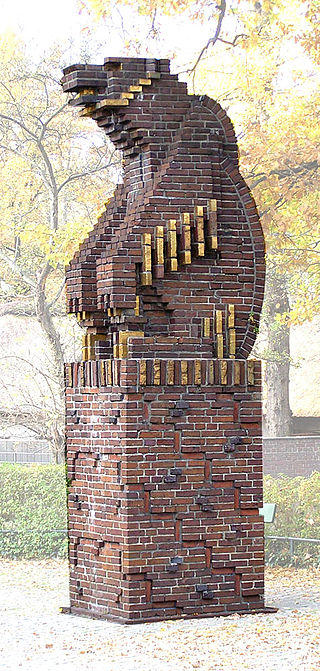 3
Hans Wagner was a German sculptor and painter.
3
Hans Wagner was a German sculptor and painter.
Johannes Fischer
 3
Johannes Fischer was a German physicist.
3
Johannes Fischer was a German physicist.
August Läpple
 3
August Läpple war ein deutscher Fabrikant. Aus einer von ihm 1919 in Weinsberg eröffneten mechanischen Werkstatt und Bauschlosserei mit drei Angestellten ging die heutige Läpple AG mit Sitz in...
3
August Läpple war ein deutscher Fabrikant. Aus einer von ihm 1919 in Weinsberg eröffneten mechanischen Werkstatt und Bauschlosserei mit drei Angestellten ging die heutige Läpple AG mit Sitz in...
Bernhard Poether
 3
Bernhard Poether war ein römisch-katholischer Priester des Bistums Münster, der sich für die polnische Minderheit im Ruhrgebiet einsetzte. Wegen seines Engagements für die „Polenseelsorge“ und wegen...
3
Bernhard Poether war ein römisch-katholischer Priester des Bistums Münster, der sich für die polnische Minderheit im Ruhrgebiet einsetzte. Wegen seines Engagements für die „Polenseelsorge“ und wegen...
Herman Hollerith
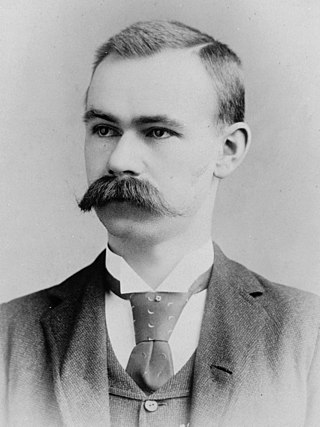 3
Herman Hollerith was a German-American statistician, inventor, and businessman who developed an electromechanical tabulating machine for punched cards to assist in summarizing information and, later,...
3
Herman Hollerith was a German-American statistician, inventor, and businessman who developed an electromechanical tabulating machine for punched cards to assist in summarizing information and, later,...
Otto Tetjus Tügel
 3
Otto Tetjus Tügel war ein deutscher Schriftsteller, Maler, Musiker und Kabarettist. Er selbst bezeichnete sich als Malerpoeten. Seine Brüder waren der Schriftsteller Ludwig Tügel, der evangelische...
3
Otto Tetjus Tügel war ein deutscher Schriftsteller, Maler, Musiker und Kabarettist. Er selbst bezeichnete sich als Malerpoeten. Seine Brüder waren der Schriftsteller Ludwig Tügel, der evangelische...
Max Scheler
 3
Max Ferdinand Scheler was a German philosopher known for his work in phenomenology, ethics, and philosophical anthropology. Considered in his lifetime one of the most prominent German philosophers,...
3
Max Ferdinand Scheler was a German philosopher known for his work in phenomenology, ethics, and philosophical anthropology. Considered in his lifetime one of the most prominent German philosophers,...
Max Ackermann
 3
Max Ackermann was a German painter and graphic artist of abstract works and representational art.
3
Max Ackermann was a German painter and graphic artist of abstract works and representational art.
Franz Huber
 3
Franz Huber was an Austrian luger who competed during the 1980s. A natural track luger, he won two medals in the men's doubles event at the FIL World Luge Natural Track Championships with a silver in...
3
Franz Huber was an Austrian luger who competed during the 1980s. A natural track luger, he won two medals in the men's doubles event at the FIL World Luge Natural Track Championships with a silver in...
Katharina Staritz
 3
Katharina Helene Charlotte Staritz war eine deutsche evangelische Theologin. Sie zählte zu den ersten Frauen, der die evangelische Kirche erlaubte, als Pfarrerin tätig zu sein. Sie wurde 1938 in...
3
Katharina Helene Charlotte Staritz war eine deutsche evangelische Theologin. Sie zählte zu den ersten Frauen, der die evangelische Kirche erlaubte, als Pfarrerin tätig zu sein. Sie wurde 1938 in...
Lucian Reich (Sohn)
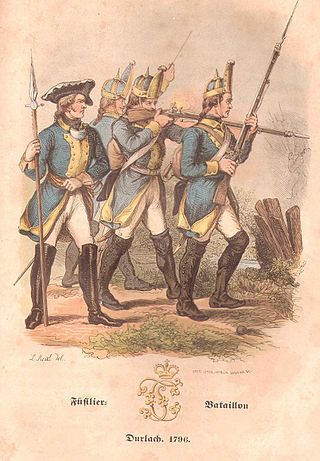 3
Lucian Reich war ein deutscher Maler und Schriftsteller.
3
Lucian Reich war ein deutscher Maler und Schriftsteller.
Ignatius Taschner
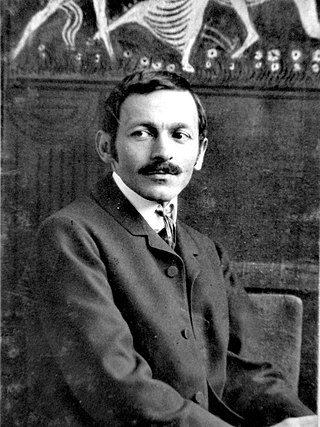 3
Ignatius Taschner, also known as Ignaz Taschner, was a German sculptor, medalist, graphic designer and illustrator.
3
Ignatius Taschner, also known as Ignaz Taschner, was a German sculptor, medalist, graphic designer and illustrator.
Friedrich Beck
 3
Friedrich Hans Beck was a German physicist. His research interests were focused on superconductivity, nuclear and elementary particle physics, relativistic quantum field theory, and late in his life,...
3
Friedrich Hans Beck was a German physicist. His research interests were focused on superconductivity, nuclear and elementary particle physics, relativistic quantum field theory, and late in his life,...
Alfred Müller-Armack
 3
Alfred Müller-Armack was a German economist and politician. He coined the term "social market economy" in 1946.
3
Alfred Müller-Armack was a German economist and politician. He coined the term "social market economy" in 1946.
Ferdinand von Lüninck
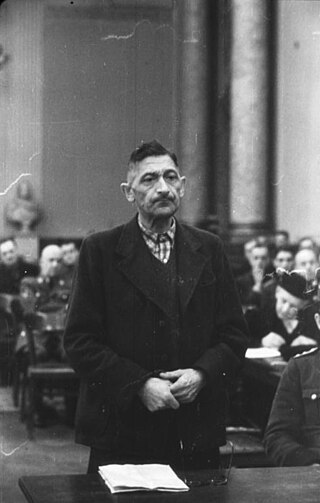 3
Ferdinand Joseph Meinolph Anton Maria Freiherr von Lüninck was a German landowner, lawyer, military officer and politician. An early supporter of the Nazi Party, he became the Oberpräsident of the...
3
Ferdinand Joseph Meinolph Anton Maria Freiherr von Lüninck was a German landowner, lawyer, military officer and politician. An early supporter of the Nazi Party, he became the Oberpräsident of the...
Wilhelm Diess
 3
Wilhelm Diess war ein deutscher Erzähler, Jurist und Theaterdirektor.
3
Wilhelm Diess war ein deutscher Erzähler, Jurist und Theaterdirektor.
Friedrich Castelle
 3
Friedrich Castelle, was a Völkischer Nationalismus journalist and writer and party member of the NS regime.
3
Friedrich Castelle, was a Völkischer Nationalismus journalist and writer and party member of the NS regime.
Johanna Sebus
 3
Johanna Sebus aus Brienen bei Kleve am Niederrhein rettete bei einem Dammbruch zunächst ihre Mutter aus den Fluten des Rheins und kam dann ums Leben, als sie weiteren Menschen helfen wollte. Ihre...
3
Johanna Sebus aus Brienen bei Kleve am Niederrhein rettete bei einem Dammbruch zunächst ihre Mutter aus den Fluten des Rheins und kam dann ums Leben, als sie weiteren Menschen helfen wollte. Ihre...
Götz von Berlichingen
 3
Gottfried "Götz" von Berlichingen, also known as Götz of the Iron Hand, was a German (Franconian) Imperial Knight (Reichsritter), mercenary and poet. He was born around 1480 into the noble family of...
3
Gottfried "Götz" von Berlichingen, also known as Götz of the Iron Hand, was a German (Franconian) Imperial Knight (Reichsritter), mercenary and poet. He was born around 1480 into the noble family of...
Clara Fey
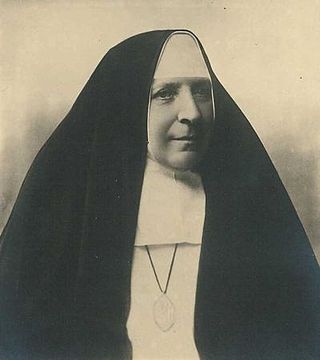 3
Clara Fey was a German Roman Catholic Nun and the founder of the Sisters of the Poor Child Jesus. Her life was dedicated to providing aid to the poor, with particular emphasis on education, first in...
3
Clara Fey was a German Roman Catholic Nun and the founder of the Sisters of the Poor Child Jesus. Her life was dedicated to providing aid to the poor, with particular emphasis on education, first in...
Georg Britting
 3
Georg Britting was a German poet, short story writer, and essayist.
3
Georg Britting was a German poet, short story writer, and essayist.
Karl Raupp
 3
Karl Raupp was a German landscape and genre painter.
3
Karl Raupp was a German landscape and genre painter.
Hans von Dohnanyi
 3
Hans von Dohnanyi was a German jurist. He used his position in the Abwehr to help Jews escape Germany, worked with German resistance against the Nazi régime, and after the failed 20 July Plot, he was...
3
Hans von Dohnanyi was a German jurist. He used his position in the Abwehr to help Jews escape Germany, worked with German resistance against the Nazi régime, and after the failed 20 July Plot, he was...
Ferdinand Schrey
 3
Ferdinand Schrey ist einer der Mitbegründer der Stenografie.
3
Ferdinand Schrey ist einer der Mitbegründer der Stenografie.
Mathilde Franziska Anneke
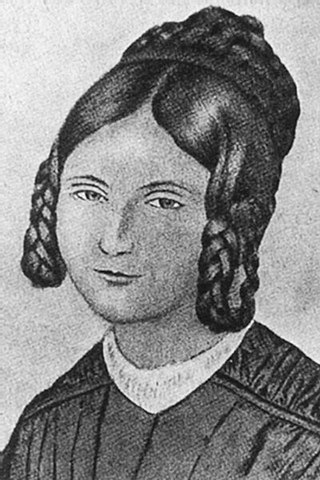 3
Mathilde Franziska Anneke was a German writer, feminist, and radical democrat who participated in the Revolutions of 1848–1849. In late 1849, she moved to the United States, where she campaigned to...
3
Mathilde Franziska Anneke was a German writer, feminist, and radical democrat who participated in the Revolutions of 1848–1849. In late 1849, she moved to the United States, where she campaigned to...
Gustav Bauer
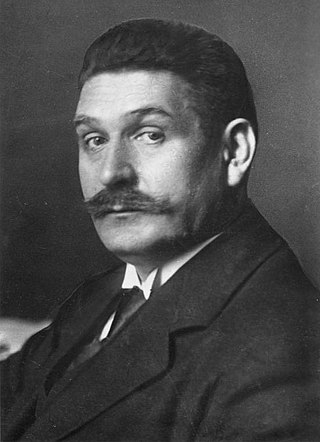 3
Gustav Adolf Bauer was a German Social Democratic Party leader and the chancellor of Germany from June 1919 to March 1920. Prior to that, he was minister of labour in the last cabinet of the German...
3
Gustav Adolf Bauer was a German Social Democratic Party leader and the chancellor of Germany from June 1919 to March 1920. Prior to that, he was minister of labour in the last cabinet of the German...
Johann Hermann Schein
 3
Johann Hermann Schein was a German composer of the early Baroque era. He was Thomaskantor in Leipzig from 1615 to 1630. He was one of the first to import the early Italian stylistic innovations into...
3
Johann Hermann Schein was a German composer of the early Baroque era. He was Thomaskantor in Leipzig from 1615 to 1630. He was one of the first to import the early Italian stylistic innovations into...
Anna Blos
 3
Anna Berta Antonia Blos was a German educator and politician. In 1919 she was one of the 36 women elected to the Weimar National Assembly, the first female parliamentarians in Germany.
3
Anna Berta Antonia Blos was a German educator and politician. In 1919 she was one of the 36 women elected to the Weimar National Assembly, the first female parliamentarians in Germany.
Gustav Frenssen
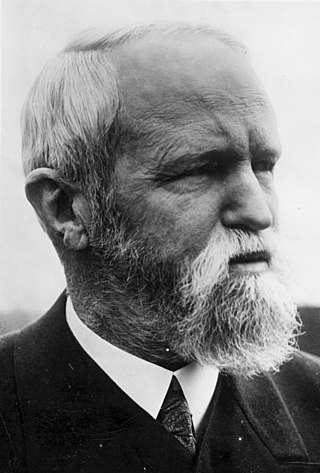 3
Gustav Frenssen was a German novelist. He wrote patriotically about his native country and promoted Heimatkunst (regionalism) in literature.
3
Gustav Frenssen was a German novelist. He wrote patriotically about his native country and promoted Heimatkunst (regionalism) in literature.
Waldemar Bonsels
 3
Waldemar Bonsels was a German writer and creator of Maya the Bee.
3
Waldemar Bonsels was a German writer and creator of Maya the Bee.
Johann Gottlob Theaenus Schneider
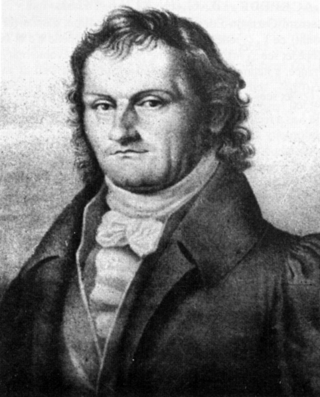 3
Johann Gottlob Theaenus Schneider was a German classicist and naturalist.
3
Johann Gottlob Theaenus Schneider was a German classicist and naturalist.
Conrad II, Holy Roman Emperor
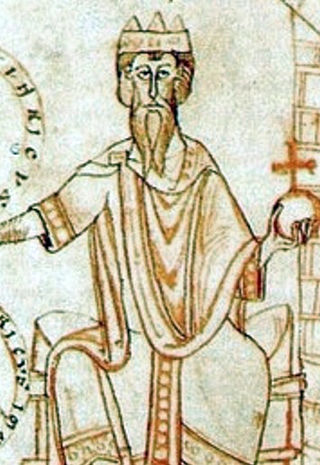 3
Conrad II, also known as Conrad the Elder and Conrad the Salic, was the emperor of the Holy Roman Empire from 1027 until his death in 1039. The first of a succession of four Salian emperors, who...
3
Conrad II, also known as Conrad the Elder and Conrad the Salic, was the emperor of the Holy Roman Empire from 1027 until his death in 1039. The first of a succession of four Salian emperors, who...
Friedrich Husemann
 3
Friedrich Husemann war ein deutscher anthroposophischer Arzt und Psychiater.
3
Friedrich Husemann war ein deutscher anthroposophischer Arzt und Psychiater.
Karl Müllenhoff
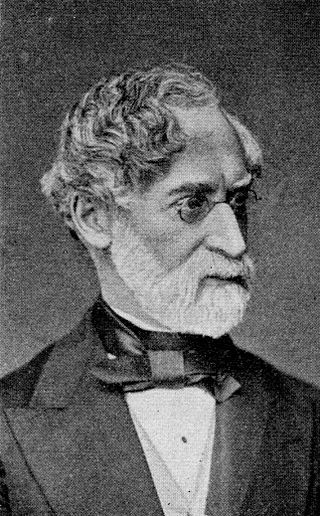 3
Karl Viktor Müllenhoff was a German philologist who specialized in Germanic studies.
3
Karl Viktor Müllenhoff was a German philologist who specialized in Germanic studies.
Jane Addams
 3
Laura Jane Addams was an American settlement activist, reformer, social worker, sociologist, public administrator, philosopher, and author. She was a very important leader in the history of social...
3
Laura Jane Addams was an American settlement activist, reformer, social worker, sociologist, public administrator, philosopher, and author. She was a very important leader in the history of social...
Adolf Clarenbach
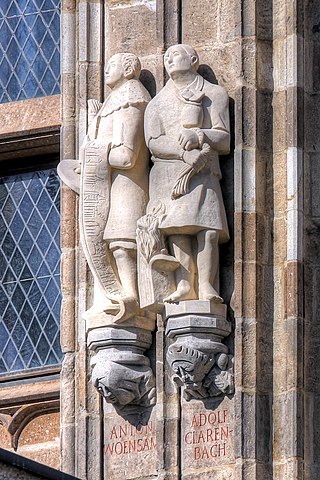 3
Adolf Clarenbach, burnt at the stake in Cologne, died as one of the first Protestant martyrs of the Reformation in the Lower Rhine region in Germany.
3
Adolf Clarenbach, burnt at the stake in Cologne, died as one of the first Protestant martyrs of the Reformation in the Lower Rhine region in Germany.
Linus Pauling
 3
Linus Carl Pauling was an American chemist, biochemist, chemical engineer, peace activist, author, and educator. He published more than 1,200 papers and books, of which about 850 dealt with...
3
Linus Carl Pauling was an American chemist, biochemist, chemical engineer, peace activist, author, and educator. He published more than 1,200 papers and books, of which about 850 dealt with...
Friedrich Engelhorn
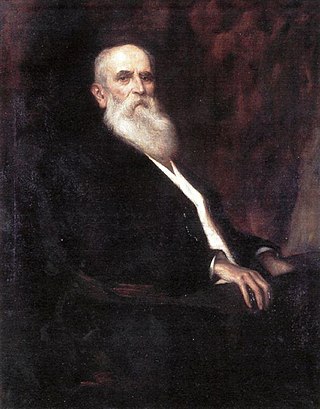 3
Friedrich Engelhorn was a German industrialist and founder of BASF in Ludwigshafen.
3
Friedrich Engelhorn was a German industrialist and founder of BASF in Ludwigshafen.
Carl Mosterts
 3
Carl Mosterts war Nestor der katholischen Jugendseelsorge und Jugendverbandsarbeit in Deutschland zu Beginn des 20. Jahrhunderts.
3
Carl Mosterts war Nestor der katholischen Jugendseelsorge und Jugendverbandsarbeit in Deutschland zu Beginn des 20. Jahrhunderts.
Gottfried Michaelsen
 3
Gödeke Michels, also known as Gottfried Michaelsen in High German, was a German pirate and one of the leaders of the Likedeeler, a combination of former Vitalienbrüder.
3
Gödeke Michels, also known as Gottfried Michaelsen in High German, was a German pirate and one of the leaders of the Likedeeler, a combination of former Vitalienbrüder.
Joseph Fischer (cartographer)
 3
Joseph Fischer, S.J. was a German clergyman and cartographer. Fischer had an eminently successful career as a cartographer, publishing old maps. In 1901, while he was investigating the Vikings'...
3
Joseph Fischer, S.J. was a German clergyman and cartographer. Fischer had an eminently successful career as a cartographer, publishing old maps. In 1901, while he was investigating the Vikings'...
John Casimir of the Palatinate-Simmern
 3
John Casimir, Count Palatine of Simmern was a German prince and a younger son of Frederick III, Elector Palatine. A firm Calvinist, he was a leader of mercenary troops in the religious wars of the...
3
John Casimir, Count Palatine of Simmern was a German prince and a younger son of Frederick III, Elector Palatine. A firm Calvinist, he was a leader of mercenary troops in the religious wars of the...
Nikolaus Müller
 3
Nikolaus Josef Müller, also known as Klaus Müller, was a German politician who served as the mayor of Augsburg from 1947 to 1964. He was a member of the Christian Social Union of Bavaria.
3
Nikolaus Josef Müller, also known as Klaus Müller, was a German politician who served as the mayor of Augsburg from 1947 to 1964. He was a member of the Christian Social Union of Bavaria.
Philip Neri
 3
Philip Romolo Neri, known as the "Second Apostle of Rome" after Saint Peter, was an Italian Catholic priest noted for founding the Congregation of the Oratory, a society of secular clergy.
3
Philip Romolo Neri, known as the "Second Apostle of Rome" after Saint Peter, was an Italian Catholic priest noted for founding the Congregation of the Oratory, a society of secular clergy.
Hertha Koenig
 3
Hertha Koenig war eine deutsche Schriftstellerin, Lyrikerin, Mäzenin, Kunstsammlerin und Salonnière.
3
Hertha Koenig war eine deutsche Schriftstellerin, Lyrikerin, Mäzenin, Kunstsammlerin und Salonnière.
Aenne Burda
 3
Aenne Burda, born Anna Magdalene Lemminger, was a German publisher of the Burda Group, a media group based in Offenburg and Munich, Germany. She was one of the symbols of the German economic miracle.
3
Aenne Burda, born Anna Magdalene Lemminger, was a German publisher of the Burda Group, a media group based in Offenburg and Munich, Germany. She was one of the symbols of the German economic miracle.
Gustav Kohne
 3
Gustav Kohne war ein deutscher Pädagoge und Schriftsteller.
3
Gustav Kohne war ein deutscher Pädagoge und Schriftsteller.
Leo Trepp
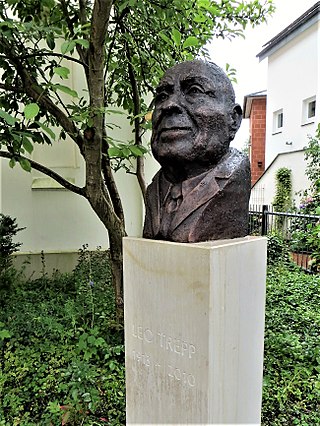 3
Leo Trepp was a German-born American rabbi who was the last surviving rabbi who had led a congregation in Nazi Germany during the early days of The Holocaust.
3
Leo Trepp was a German-born American rabbi who was the last surviving rabbi who had led a congregation in Nazi Germany during the early days of The Holocaust.
Ludwig Hoffmann (architect)
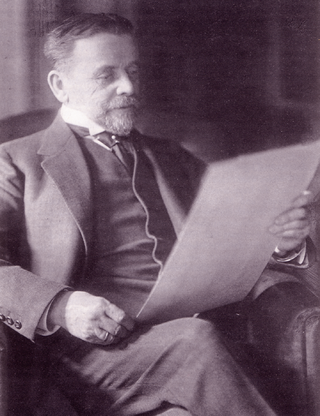 3
Ludwig Ernst Emil Hoffmann was a German architect and was one of the most famous architects of Berlin.
3
Ludwig Ernst Emil Hoffmann was a German architect and was one of the most famous architects of Berlin.
Alexander Schleicher
 3
Alexander Schleicher was a German pioneer of sailplane design. The company that he founded and which bears his name - Alexander Schleicher GmbH & Co - is today one of the world's leading sailplane...
3
Alexander Schleicher was a German pioneer of sailplane design. The company that he founded and which bears his name - Alexander Schleicher GmbH & Co - is today one of the world's leading sailplane...
Carl Joseph Leiprecht
 3
Karl Joseph Leiprecht was the Bishop of Rottenburg.
3
Karl Joseph Leiprecht was the Bishop of Rottenburg.
Heinrich Hanke (Pädagoge)
 3
Heinrich „Hennak“ Hanke, war ein Lehrer, Konrektor und lippischer Heimat- und Mundartdichter.
3
Heinrich „Hennak“ Hanke, war ein Lehrer, Konrektor und lippischer Heimat- und Mundartdichter.
Hermann Anthony Cornelius Weber
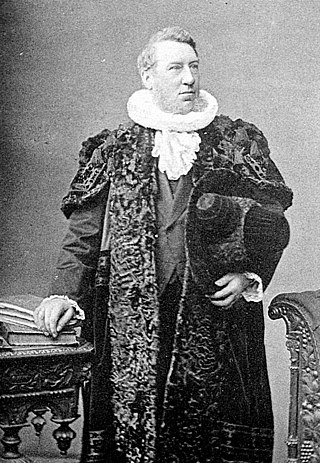 3
Hermann Anthony Cornelius Weber war ein Hamburger Senator und Bürgermeister.
3
Hermann Anthony Cornelius Weber war ein Hamburger Senator und Bürgermeister.
Theodor Blank
 3
Theodor Anton Blank was a German politician of the CDU. He was one of the founders of the CDU in 1945.
3
Theodor Anton Blank was a German politician of the CDU. He was one of the founders of the CDU in 1945.
Adolf Gröber
 3
Adolf Gröber war ein deutscher Jurist und Politiker (Zentrum).
3
Adolf Gröber war ein deutscher Jurist und Politiker (Zentrum).
Gustav Klimt
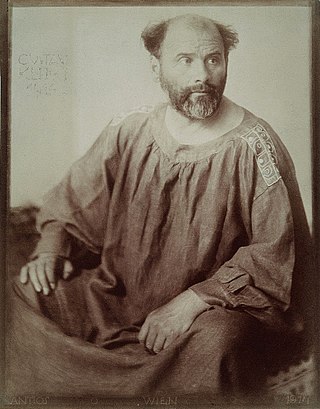 3
Gustav Klimt was an Austrian symbolist painter and one of the most prominent members of the Vienna Secession movement. Klimt is noted for his paintings, murals, sketches, and other objets d'art....
3
Gustav Klimt was an Austrian symbolist painter and one of the most prominent members of the Vienna Secession movement. Klimt is noted for his paintings, murals, sketches, and other objets d'art....
Karl Joseph Schulte
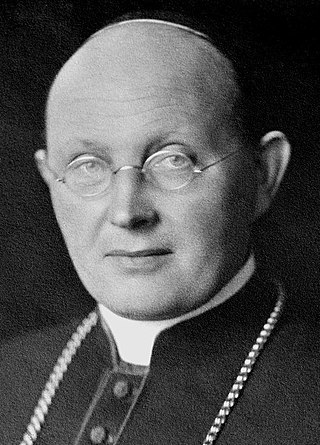 3
Karl Joseph Schulte, was a German Cardinal of the Roman Catholic Church who served as Archbishop of Cologne from 1920 until his death, and was elevated to the cardinalate in 1921.
3
Karl Joseph Schulte, was a German Cardinal of the Roman Catholic Church who served as Archbishop of Cologne from 1920 until his death, and was elevated to the cardinalate in 1921.
Georg Philipp Telemann
 3
Georg Philipp Telemann was a German Baroque composer and multi-instrumentalist. He is one of the most prolific composers in history, at least in terms of surviving oeuvre. Telemann was considered by...
3
Georg Philipp Telemann was a German Baroque composer and multi-instrumentalist. He is one of the most prolific composers in history, at least in terms of surviving oeuvre. Telemann was considered by...
Gustav Becker
 3
Gustav Eduard Becker was a German clockmaker and founder of the brand Gustav Becker.
3
Gustav Eduard Becker was a German clockmaker and founder of the brand Gustav Becker.
Otto Meier
 3
Otto Meier was a Swiss footballer who played for FC Basel in the late 1920's. He played in the position of midfielder.
3
Otto Meier was a Swiss footballer who played for FC Basel in the late 1920's. He played in the position of midfielder.
Michael von Jung
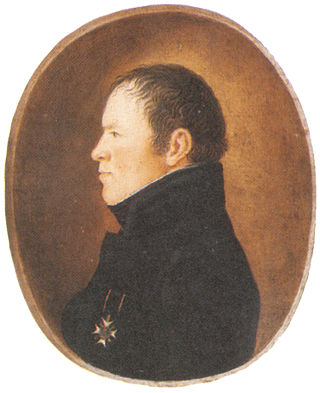 3
Michael von Jung war ein deutscher römisch-katholischer Geistlicher und Dichter von Grabliedern, die er zur Laute vortrug und später auch in Buchform veröffentlichte. Seine Lieder zeichnen sich aus...
3
Michael von Jung war ein deutscher römisch-katholischer Geistlicher und Dichter von Grabliedern, die er zur Laute vortrug und später auch in Buchform veröffentlichte. Seine Lieder zeichnen sich aus...
Franz Müller
 3
Franz Müller, was a German tailor who was hanged for the murder of Thomas Briggs, the first killing on a British train. The case caught the imagination of the public due to increasing safety fears...
3
Franz Müller, was a German tailor who was hanged for the murder of Thomas Briggs, the first killing on a British train. The case caught the imagination of the public due to increasing safety fears...
August von Haxthausen
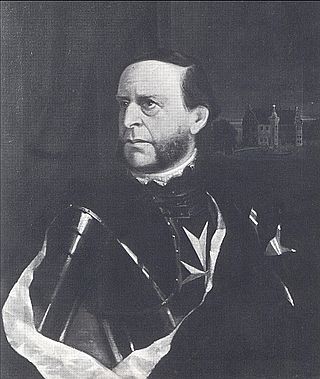 3
August Franz Ludwig Maria, Baron von Haxthausen-Abbenburg was a German agricultural scientist, economist, lawyer, writer, and collector of folk songs, best known for his account of conditions in...
3
August Franz Ludwig Maria, Baron von Haxthausen-Abbenburg was a German agricultural scientist, economist, lawyer, writer, and collector of folk songs, best known for his account of conditions in...